There’s always room for Fox Squirrel (Sciurus niger):
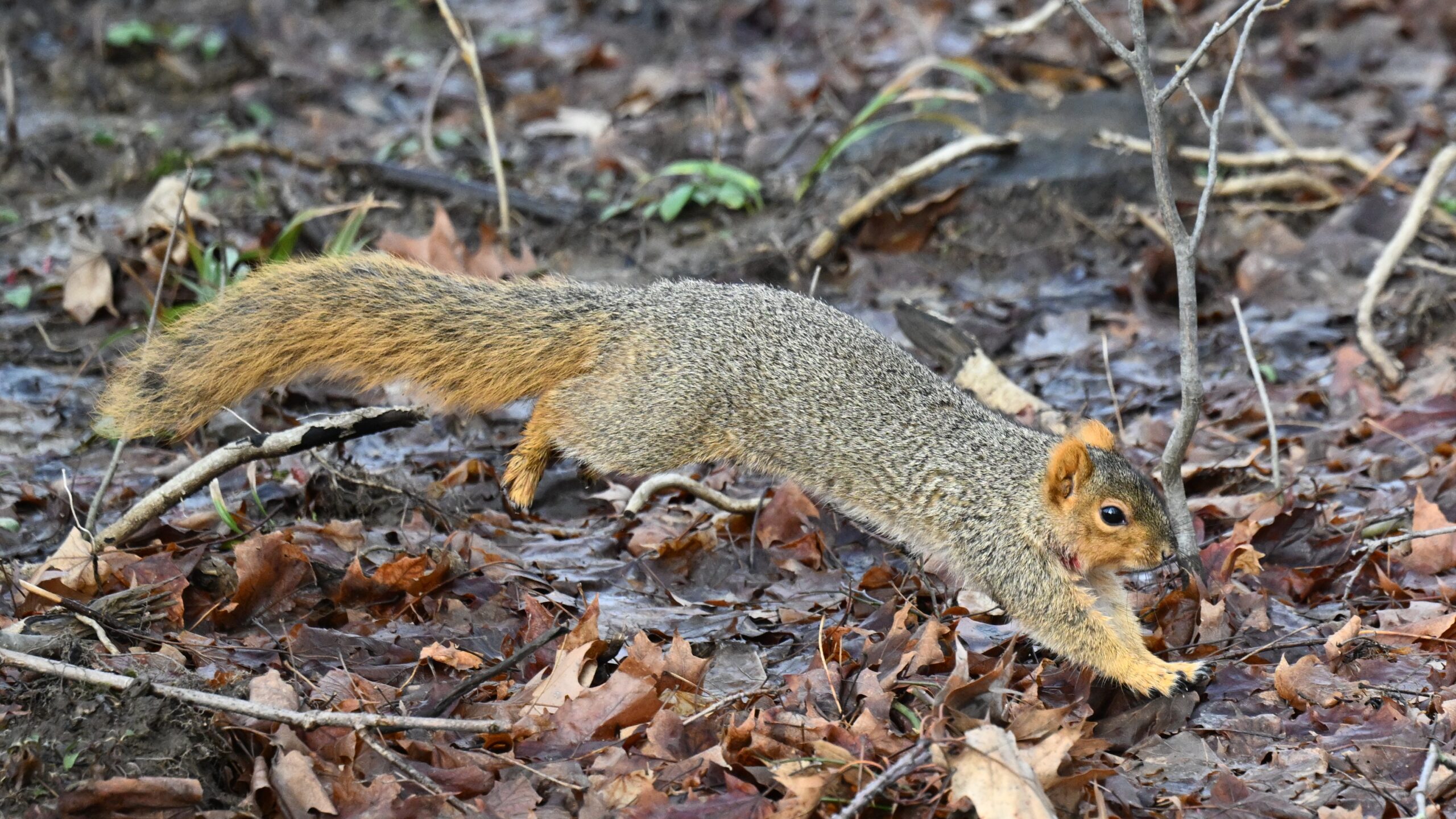
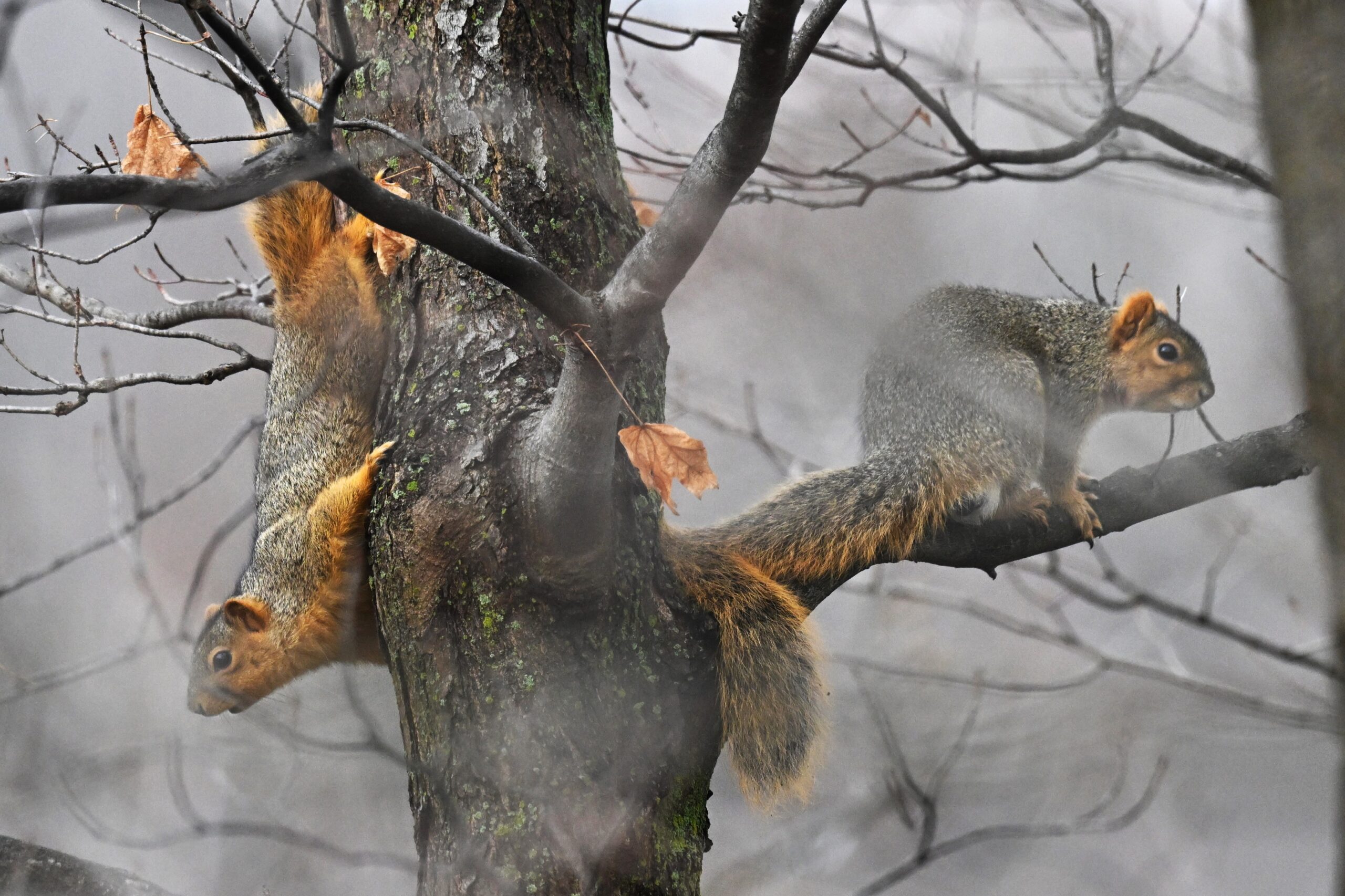
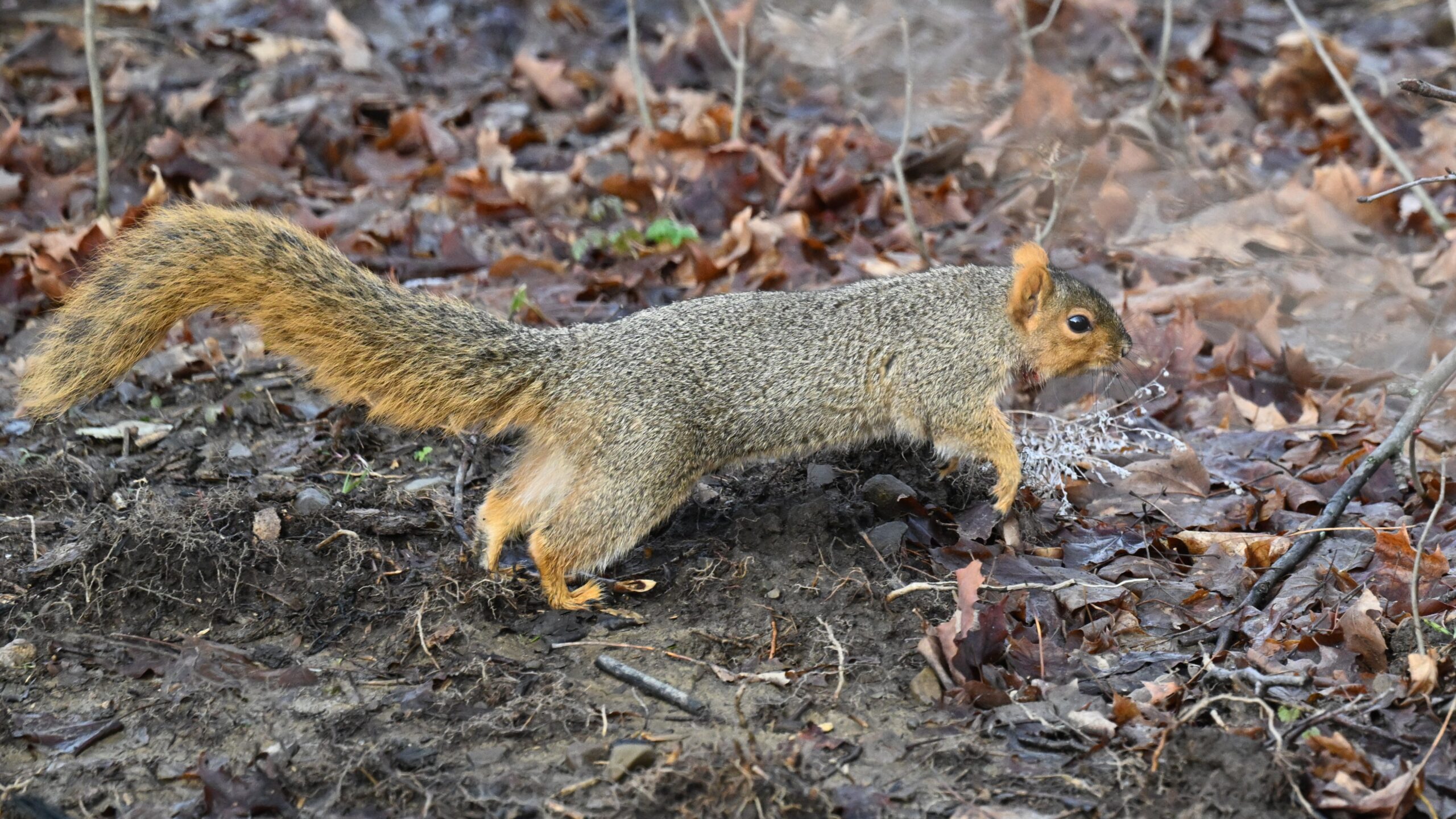
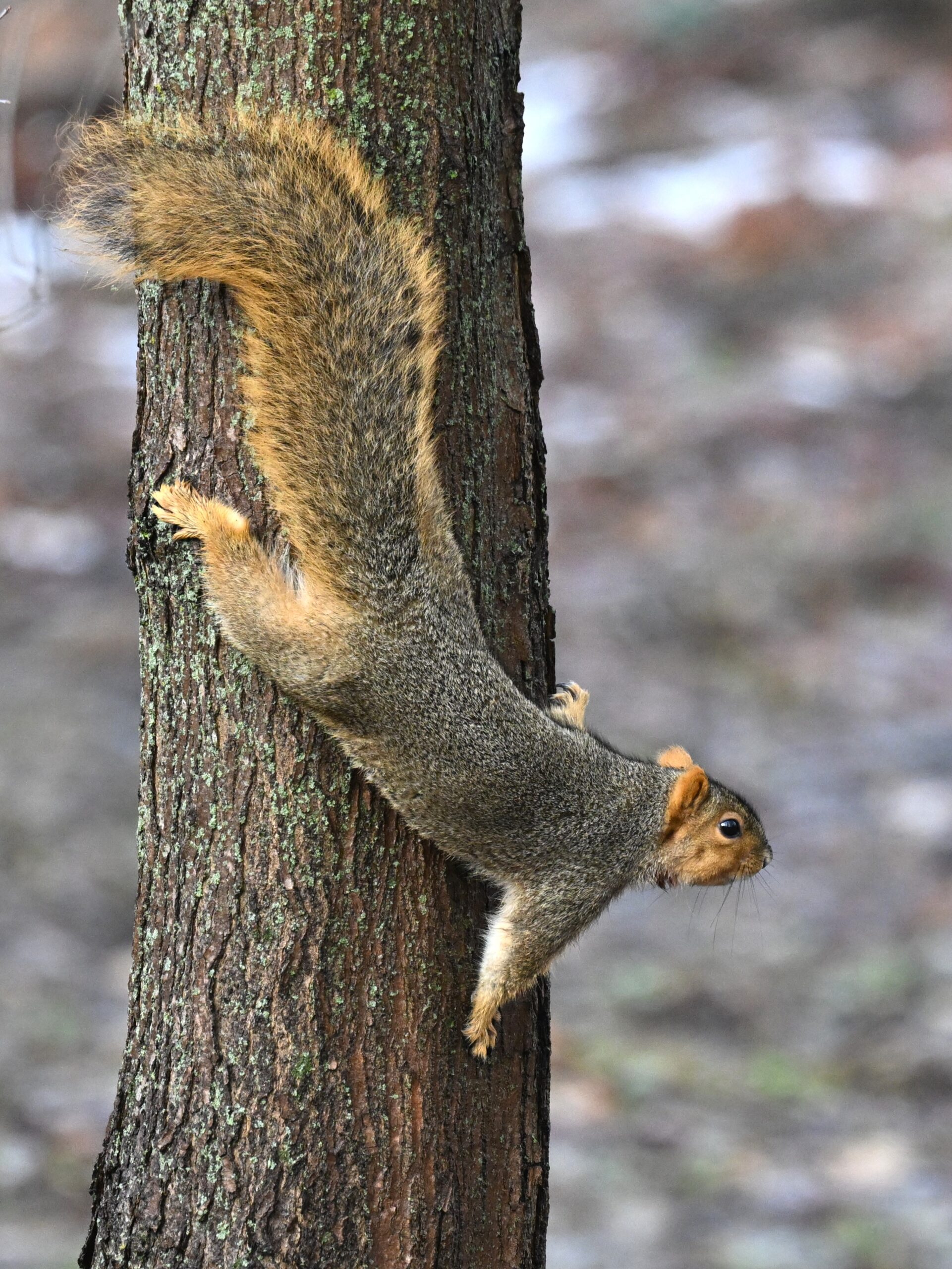
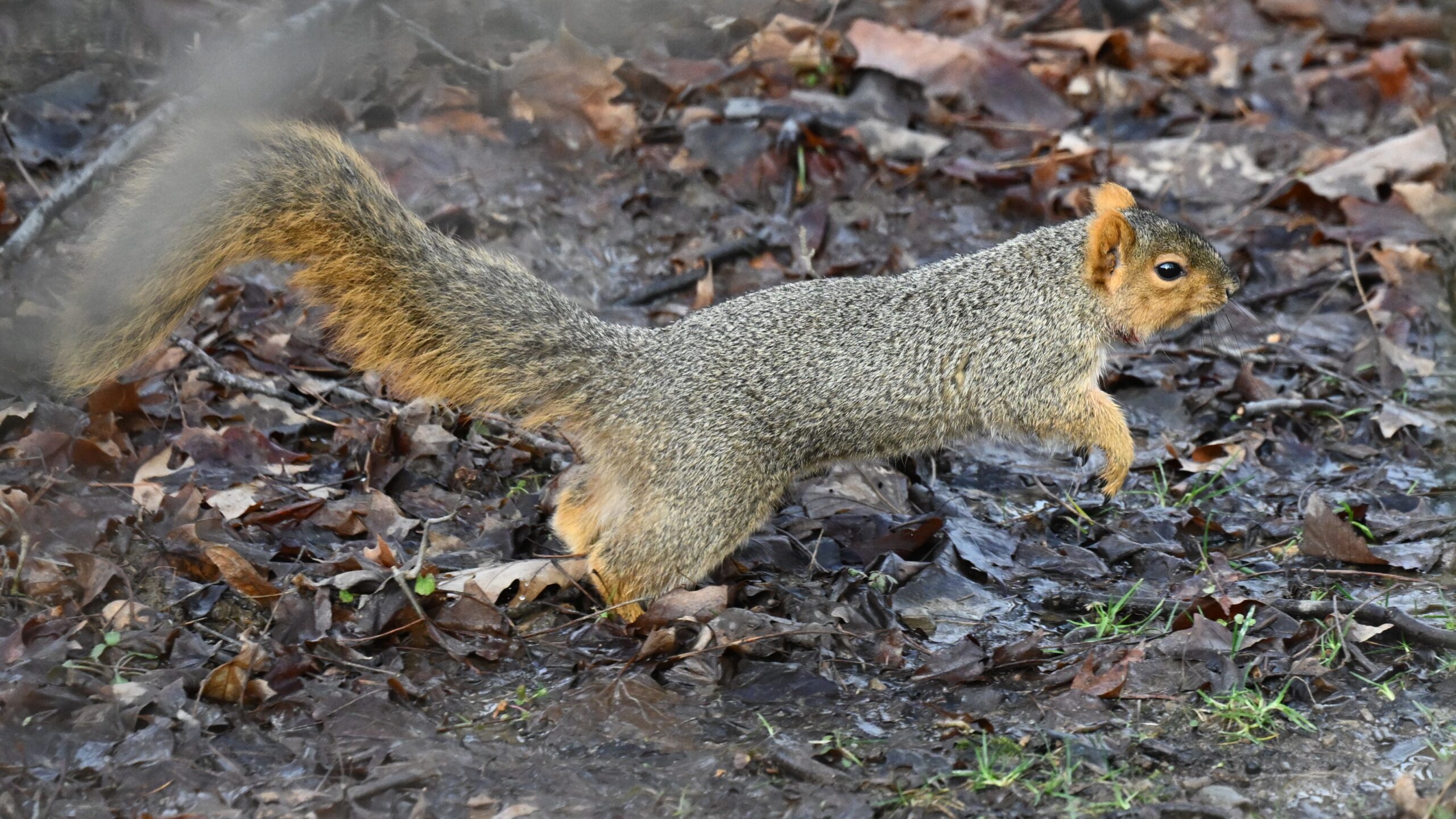
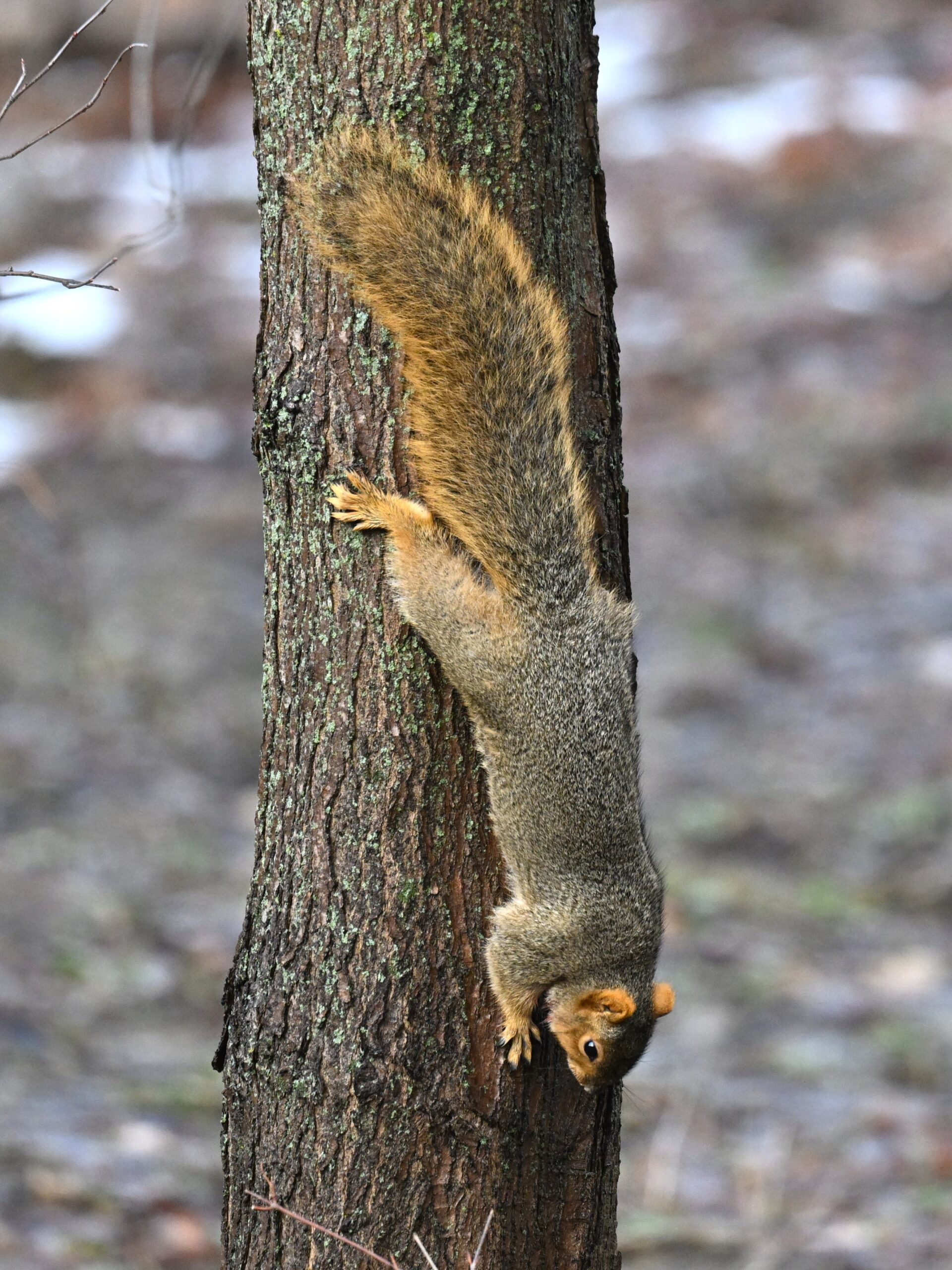
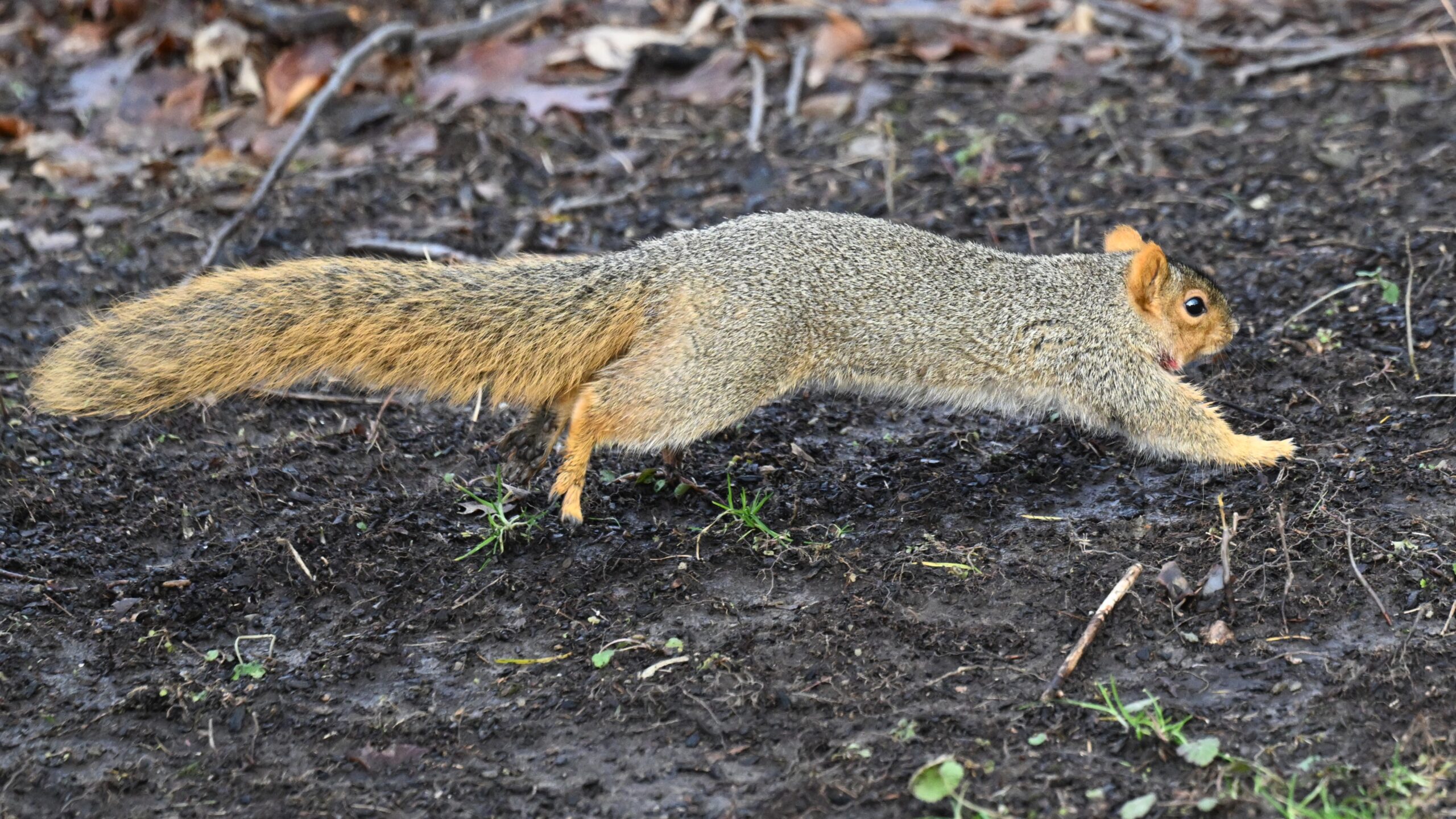
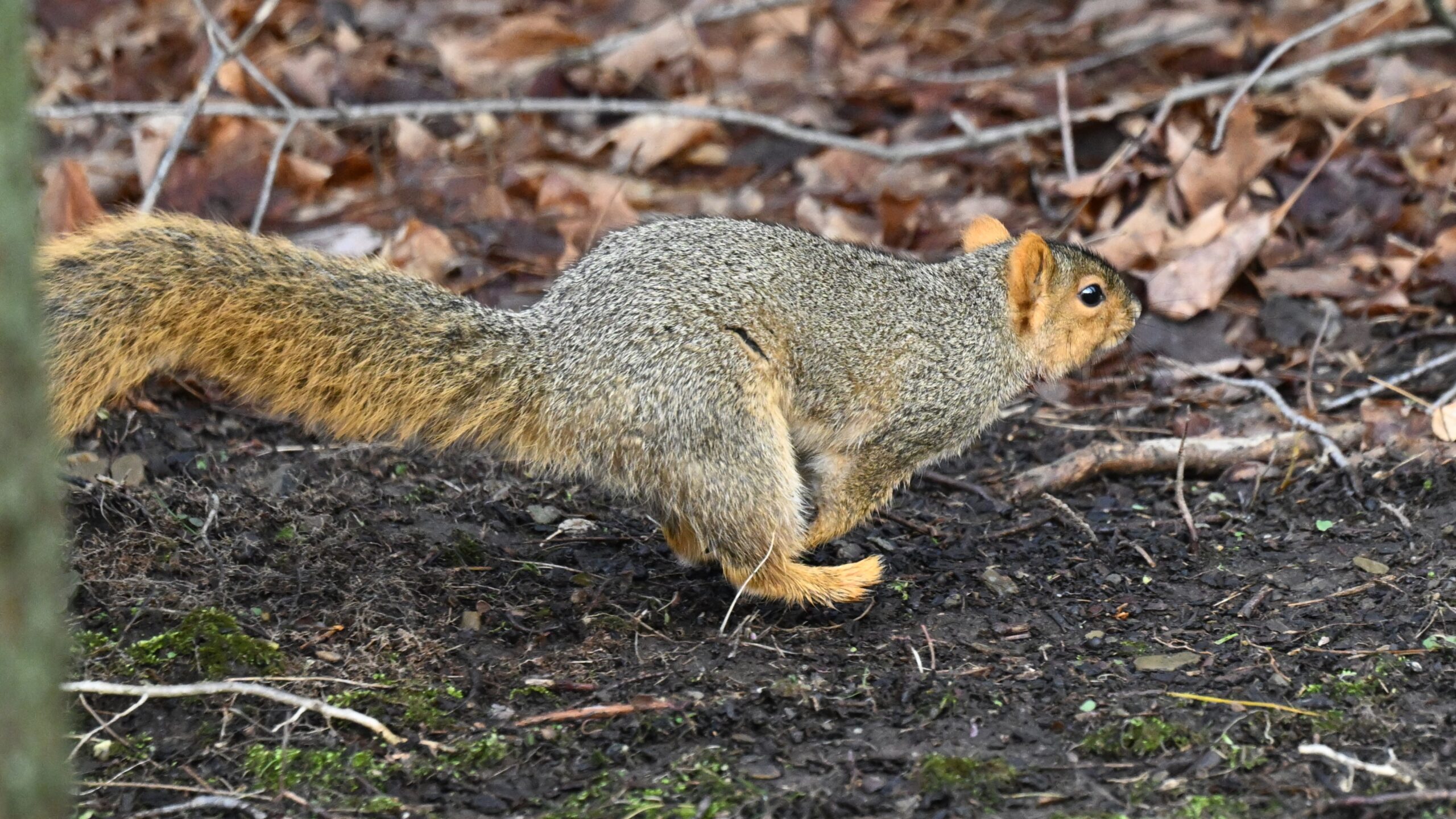
There’s always room for Fox Squirrel (Sciurus niger):








Dateline: 15 January 2023
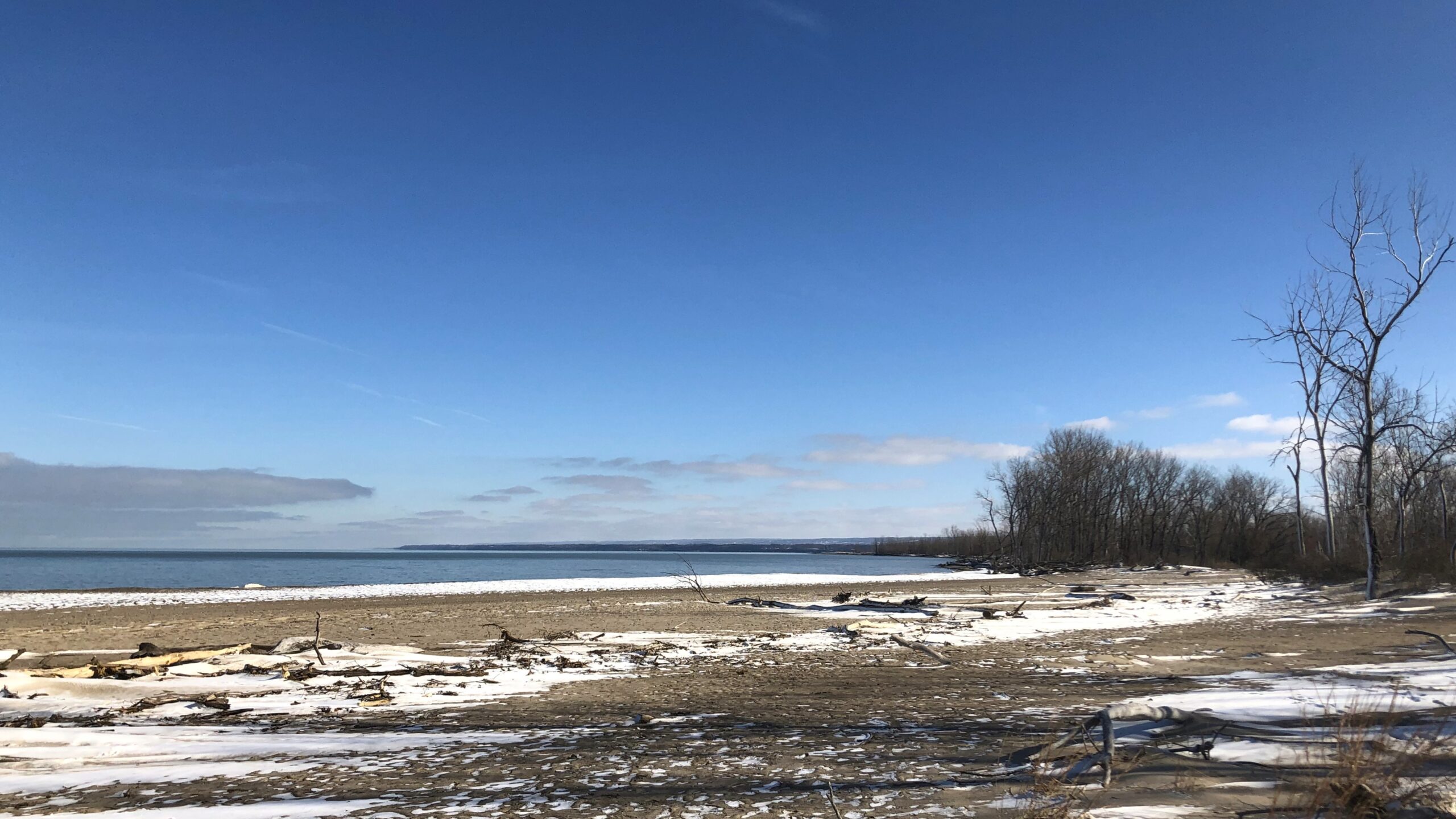
Elsewhere at Presque Isle State Park on Sunday afternoon, it was BirdingPI.com’s “wandering around sort of near Gull Point” contingent. From Budny Beach (above) to the outer old trail to the back/south lakeshore of interior Gull Point then due north back to the outer beach/ “new trail.” Access note: lake level is low enough to easily/dryly walk along the entire south lakeshore from the outer old trail “turn” (from N/S to E/W at it’s closest approach to the lake on the south) to outer Gull Point. See red-marked trail with the star in following map excerpt:
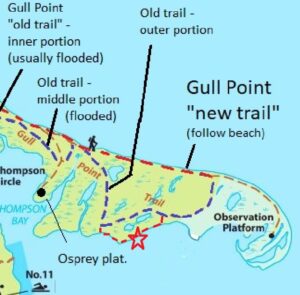
Following shots mostly taken at/near the location marked by the red star above.
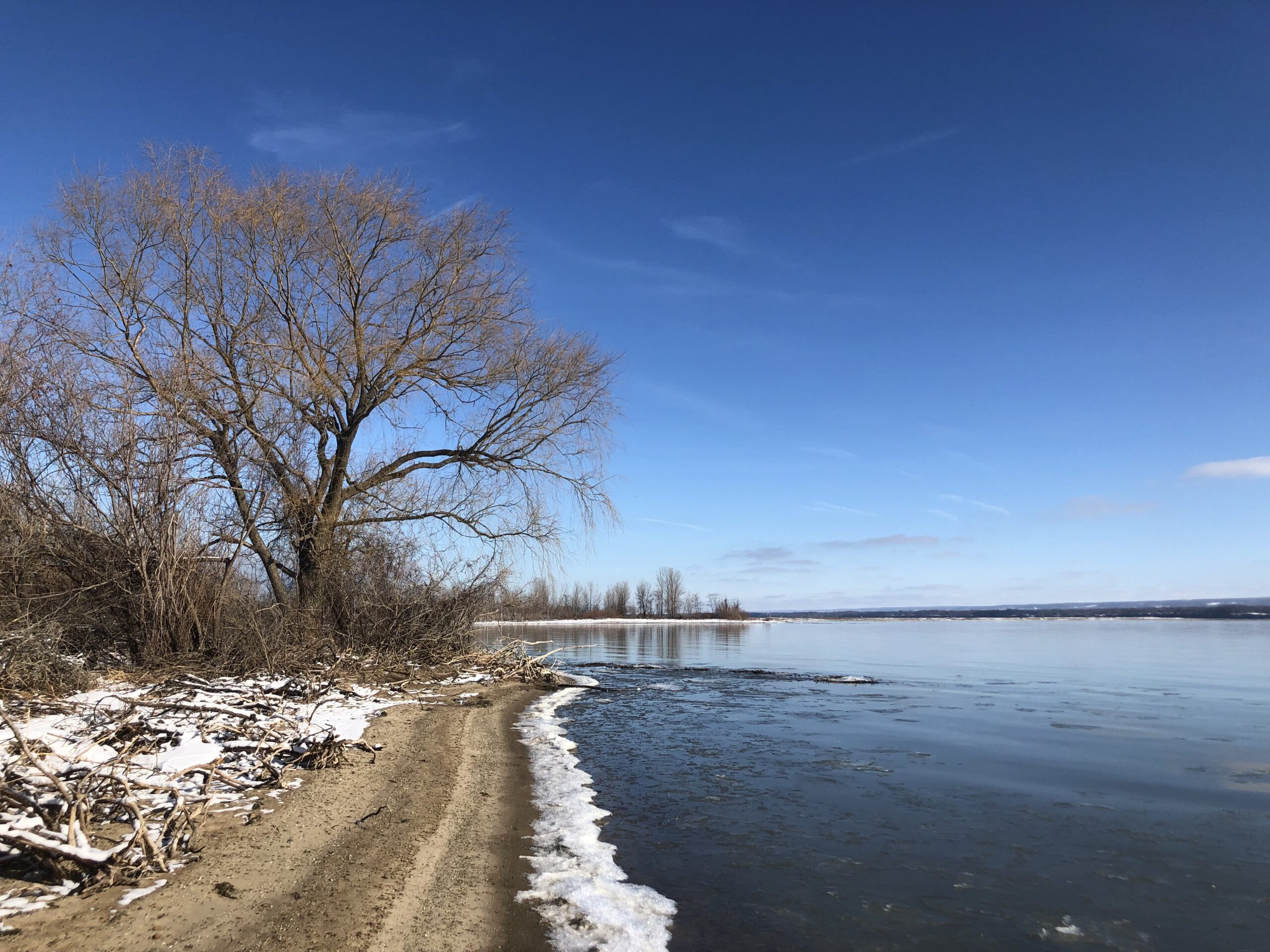
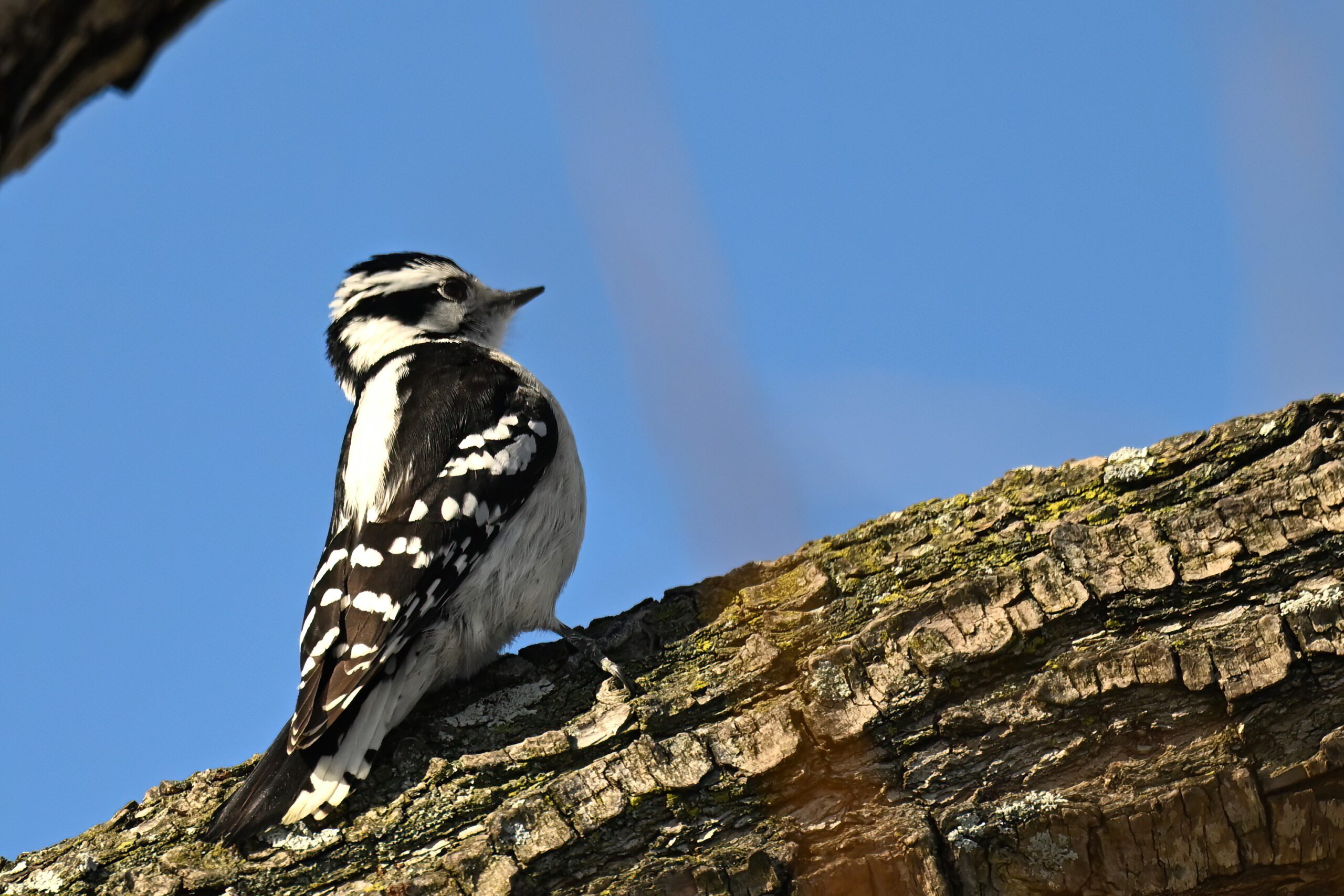
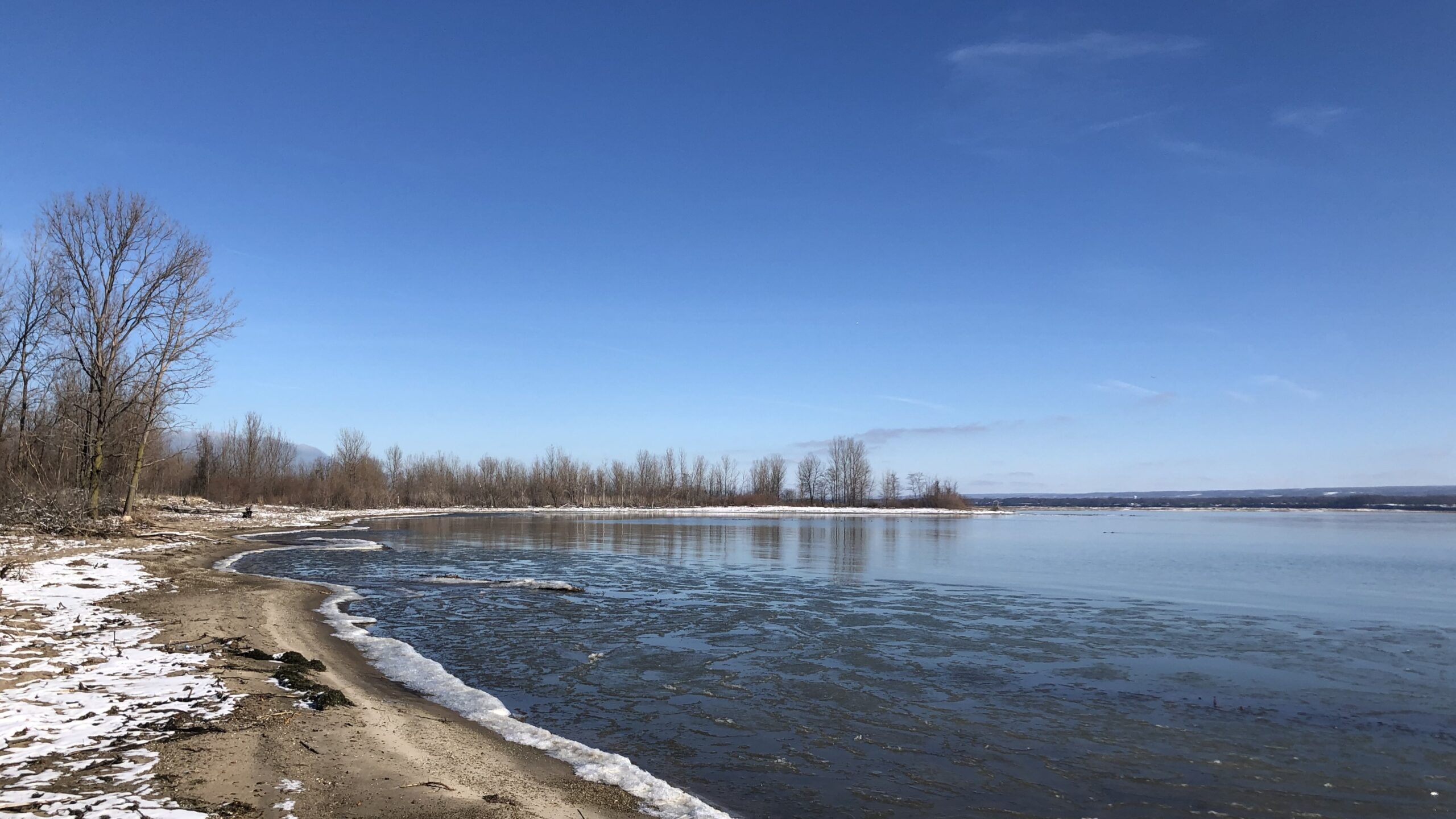
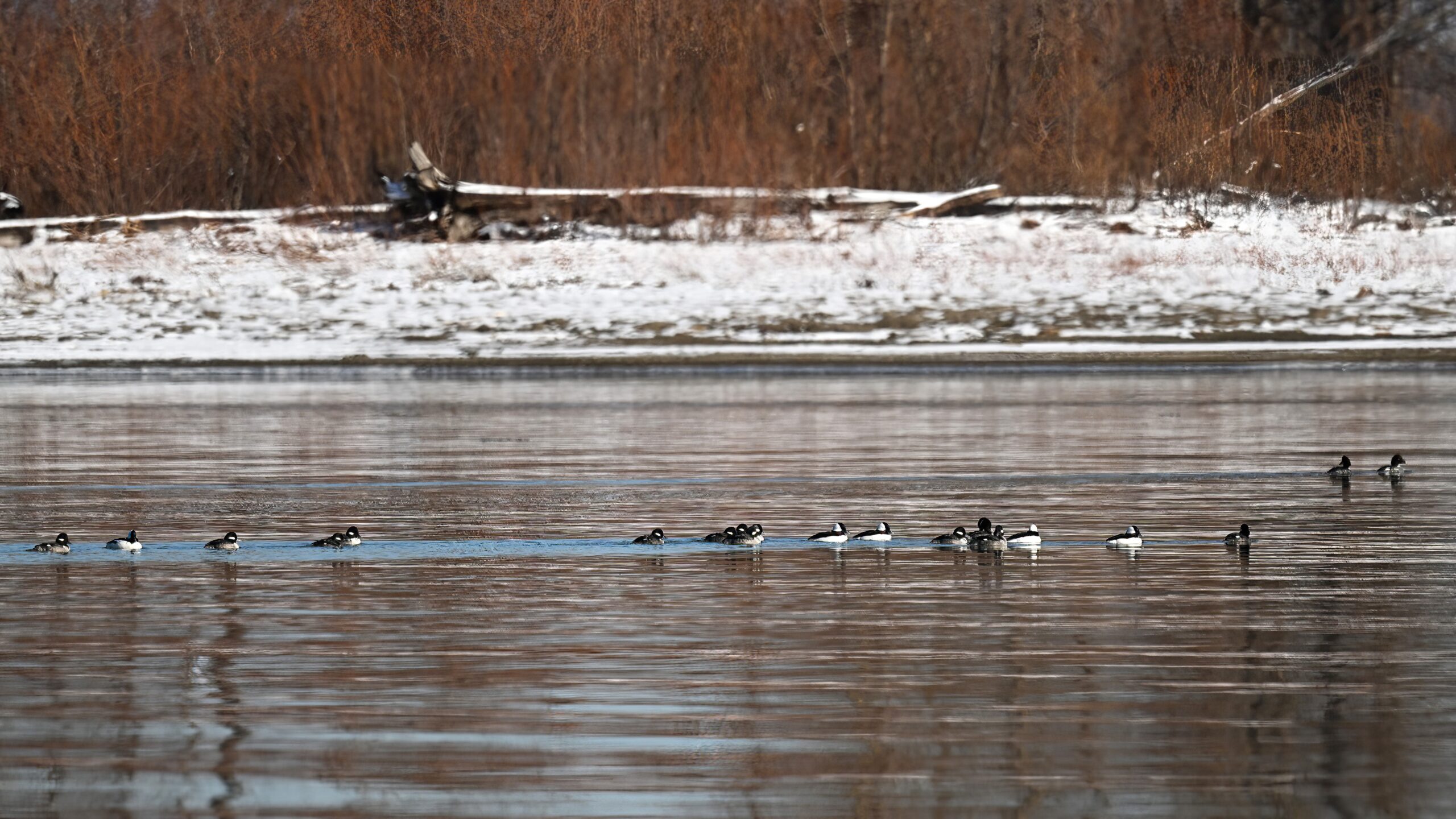
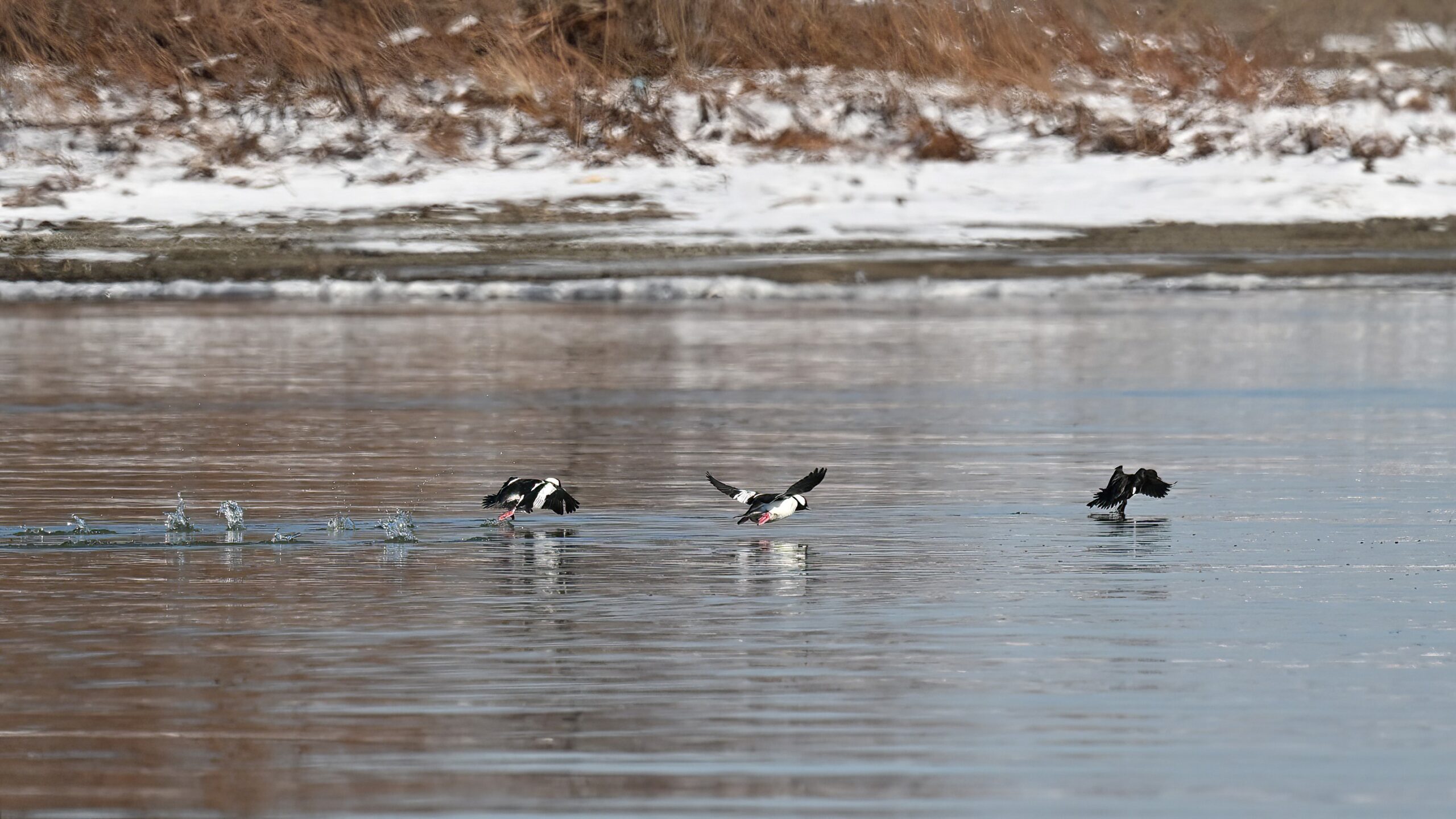
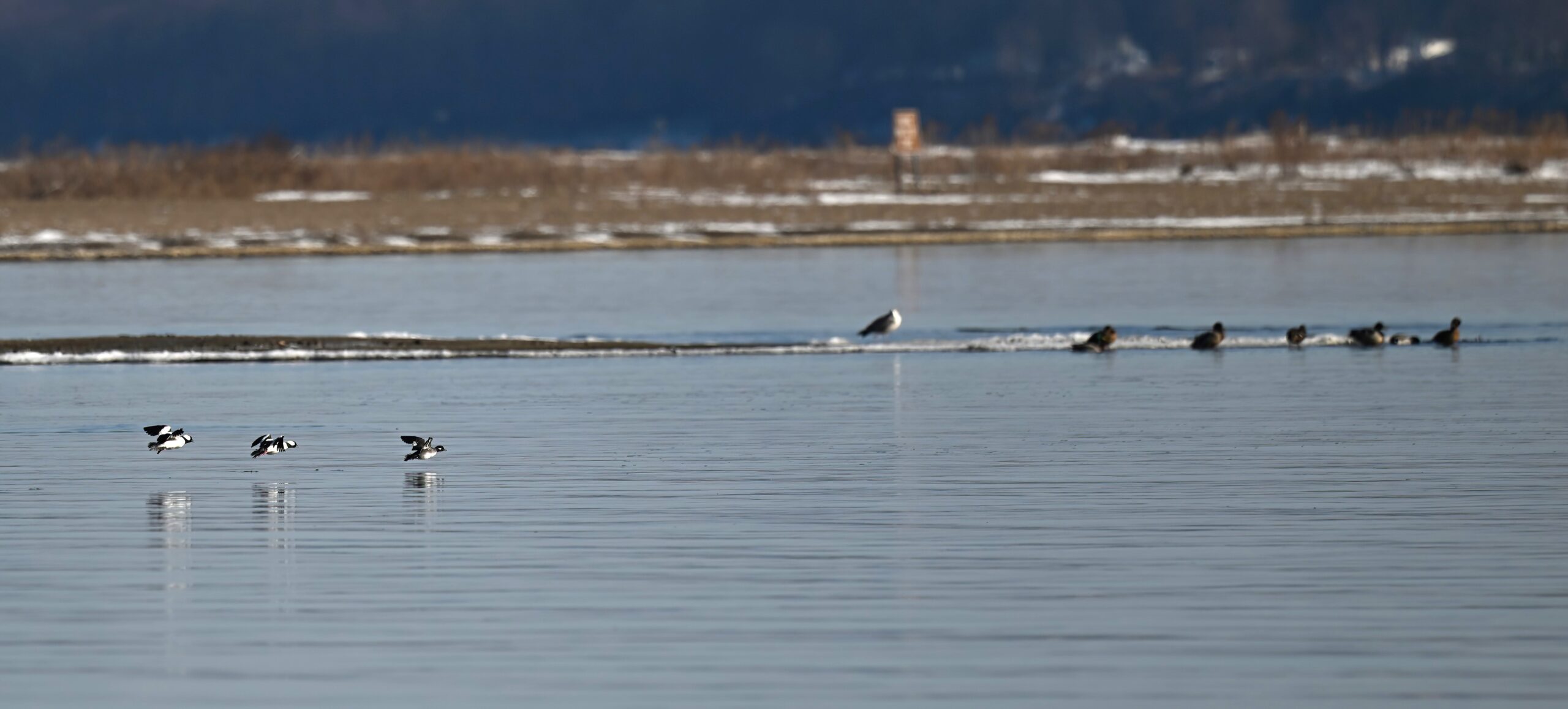
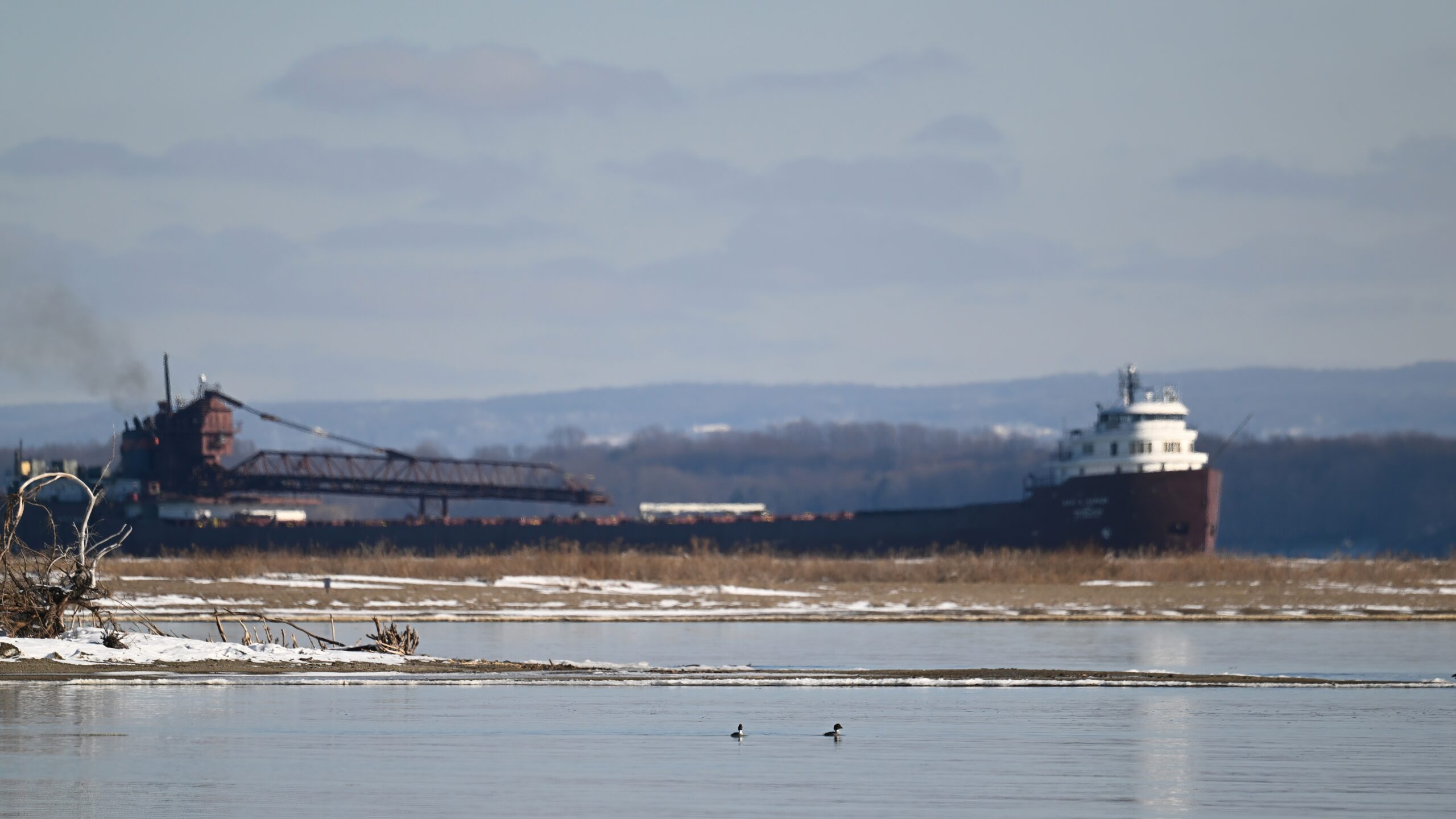
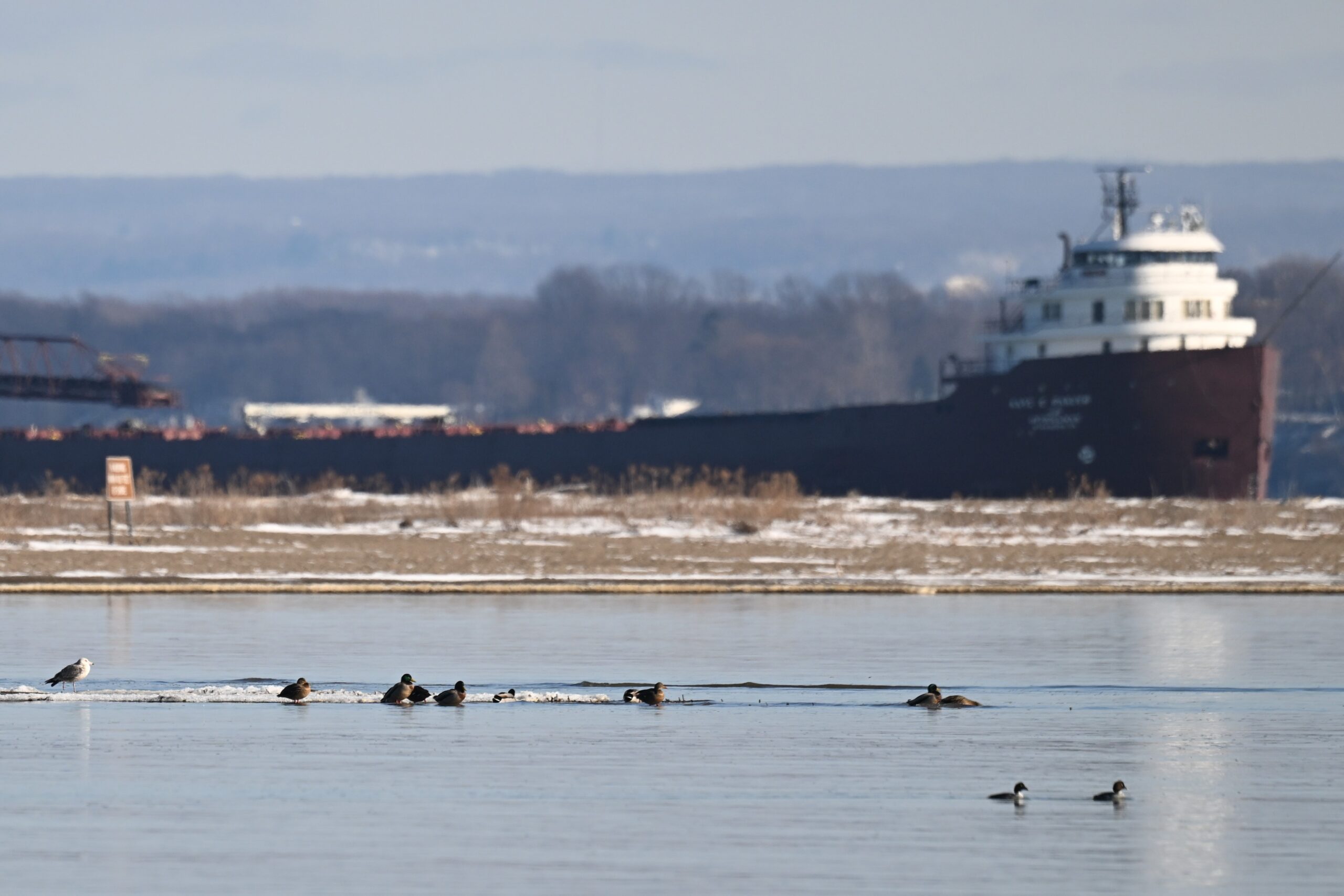
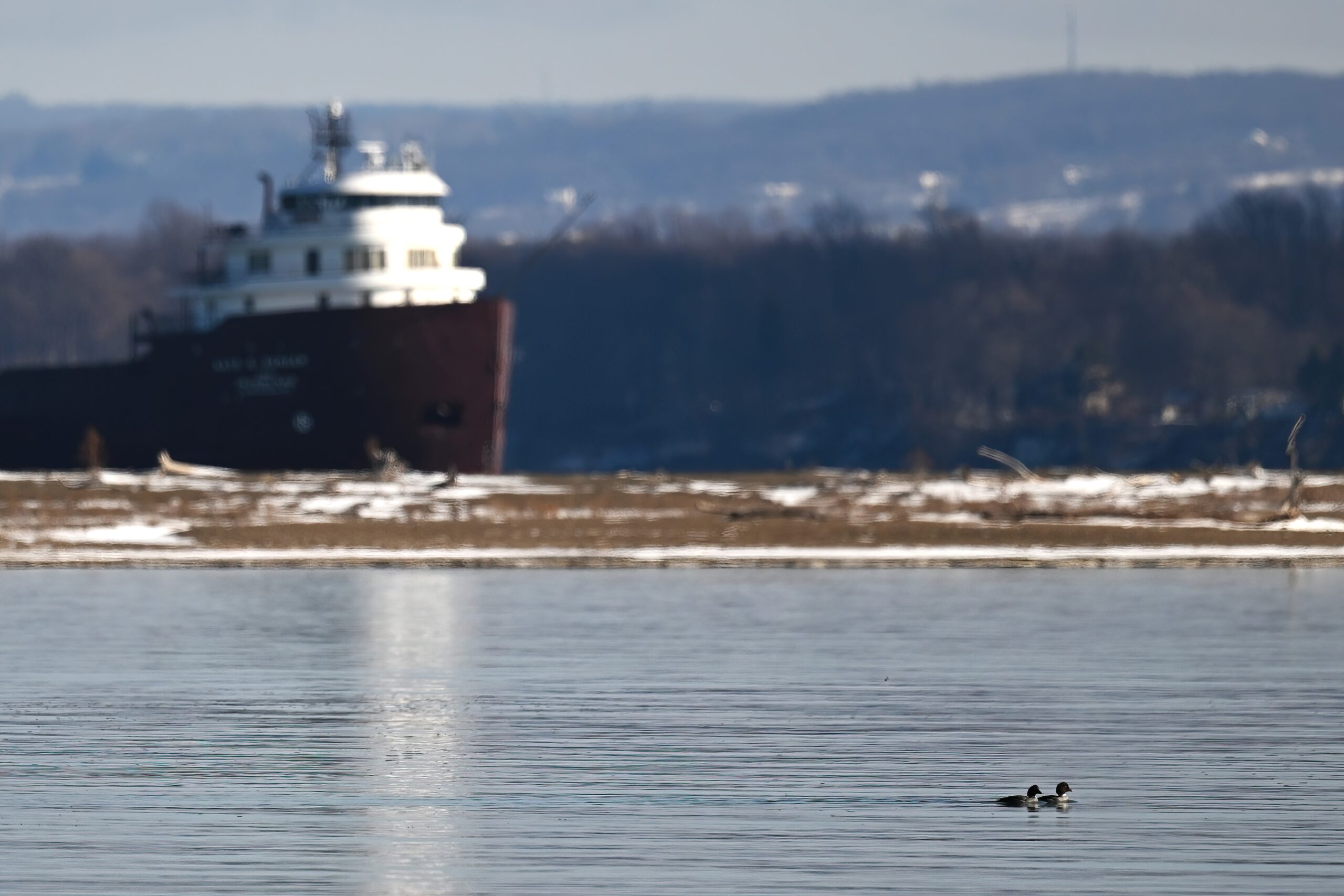
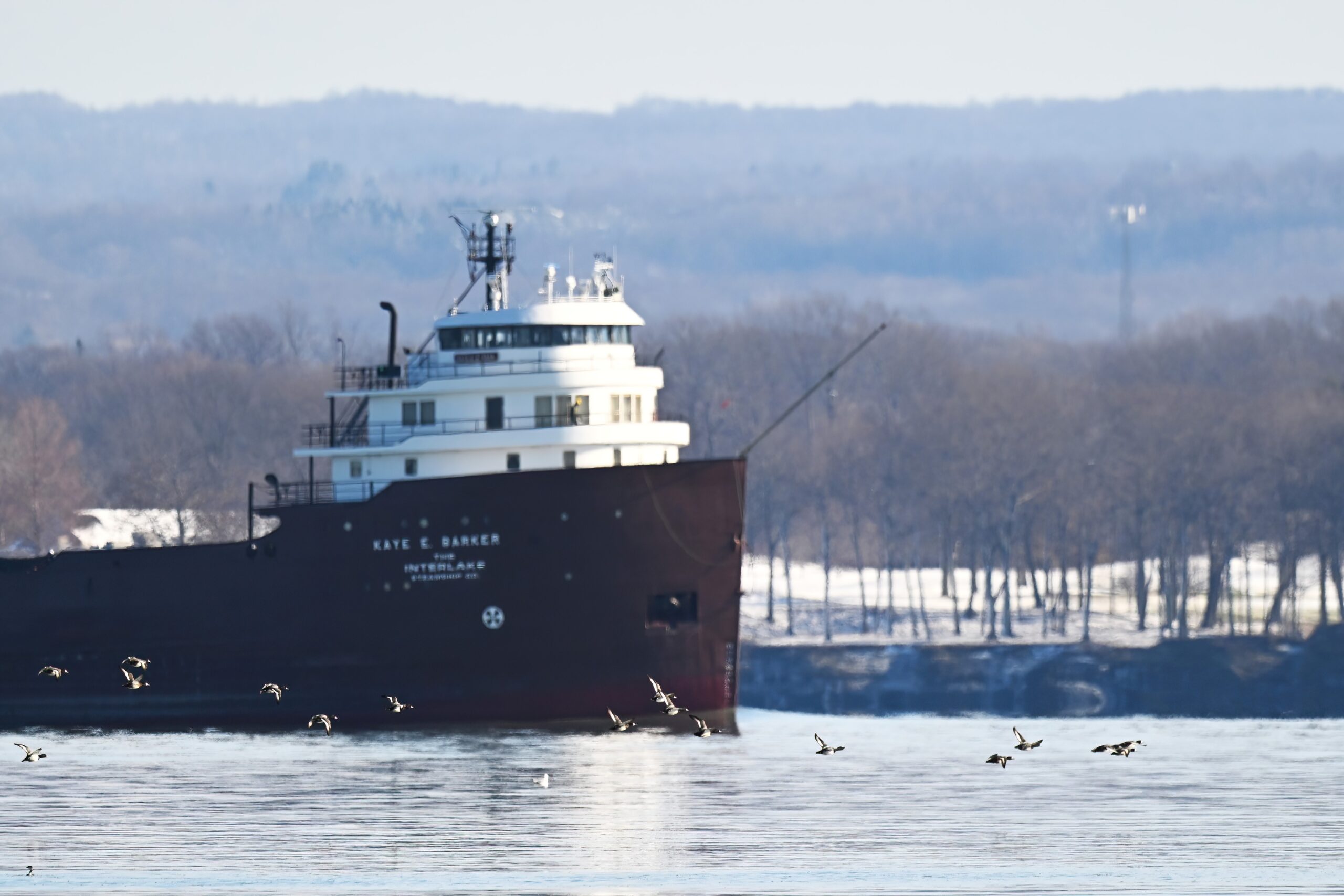
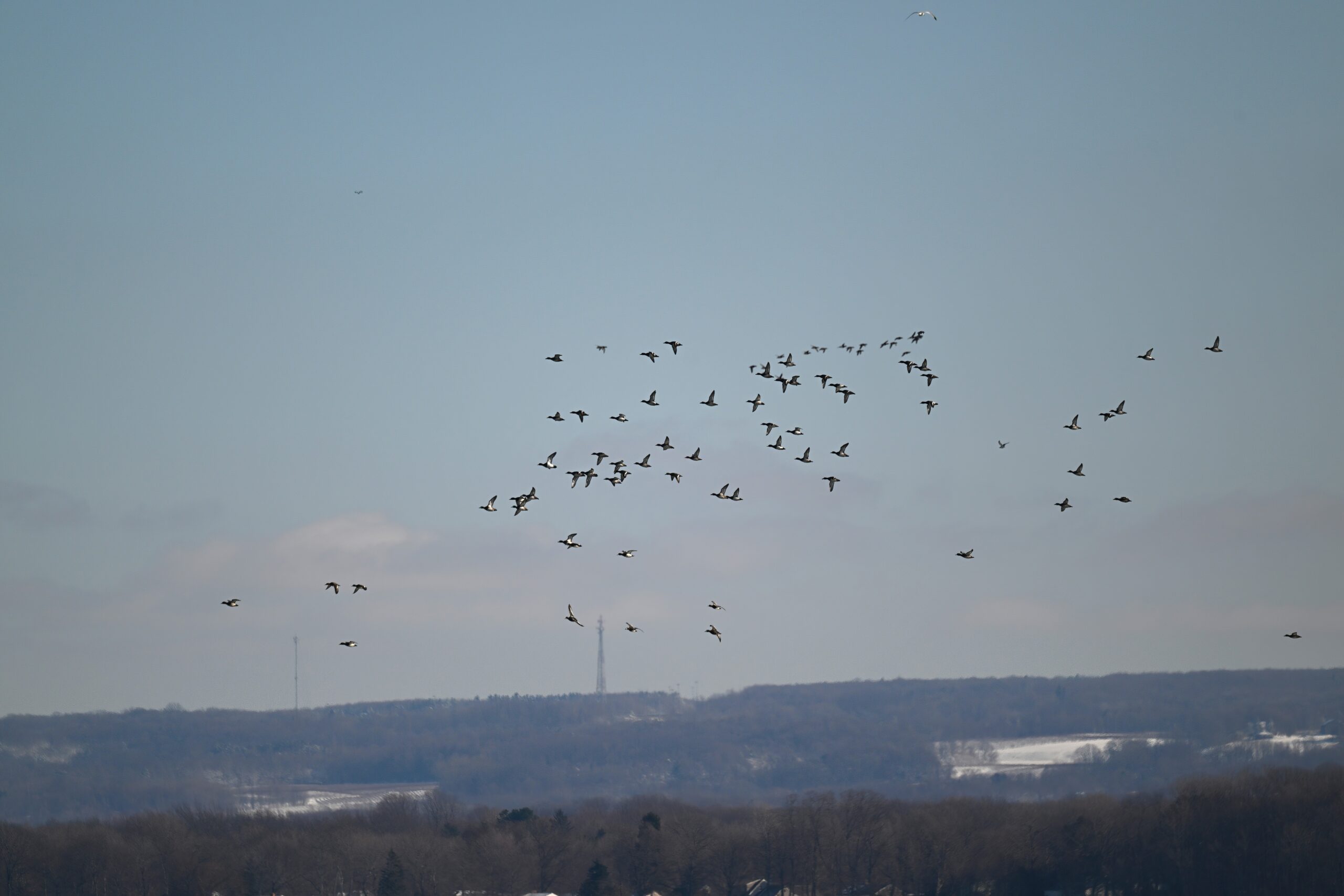
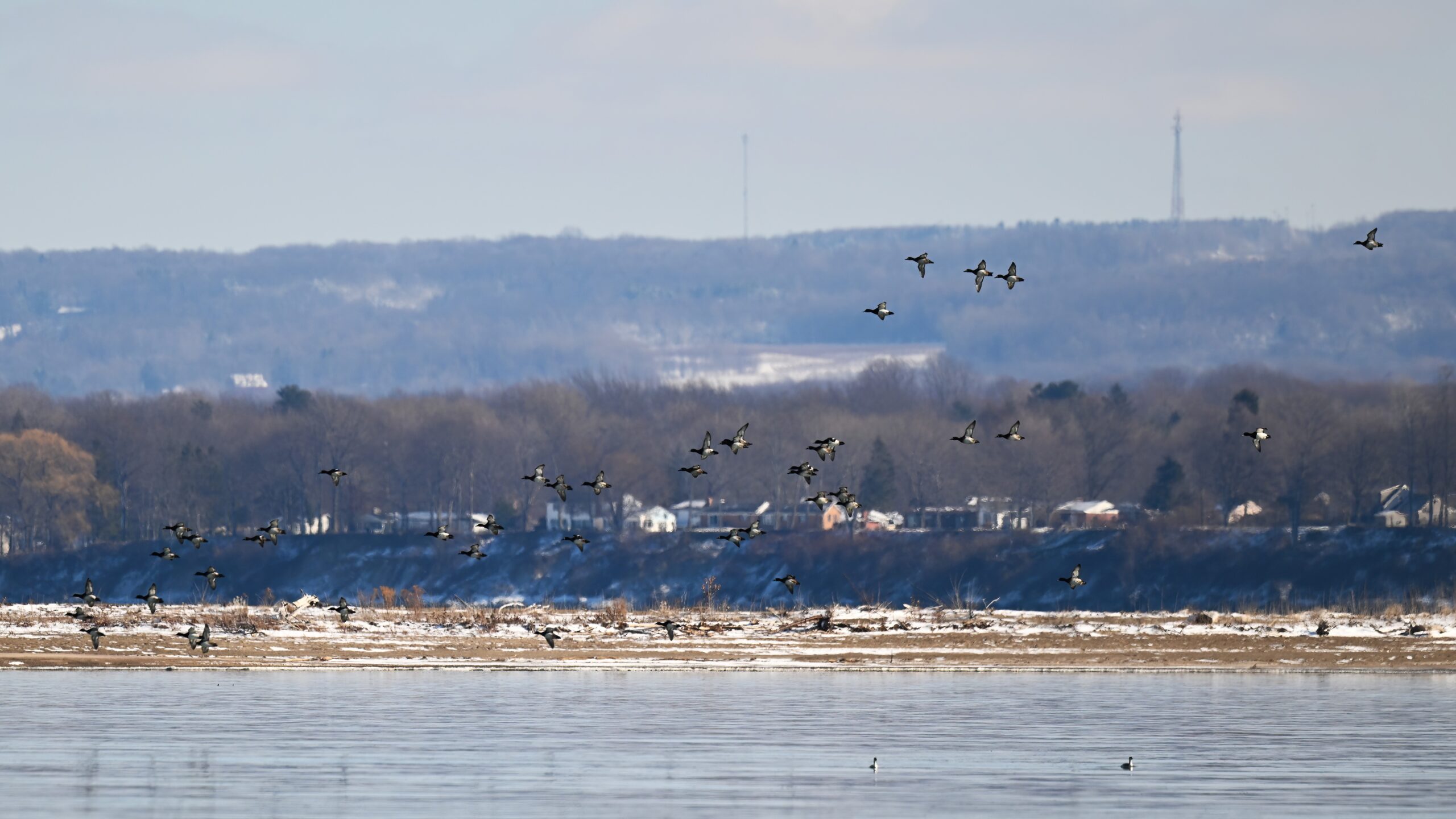
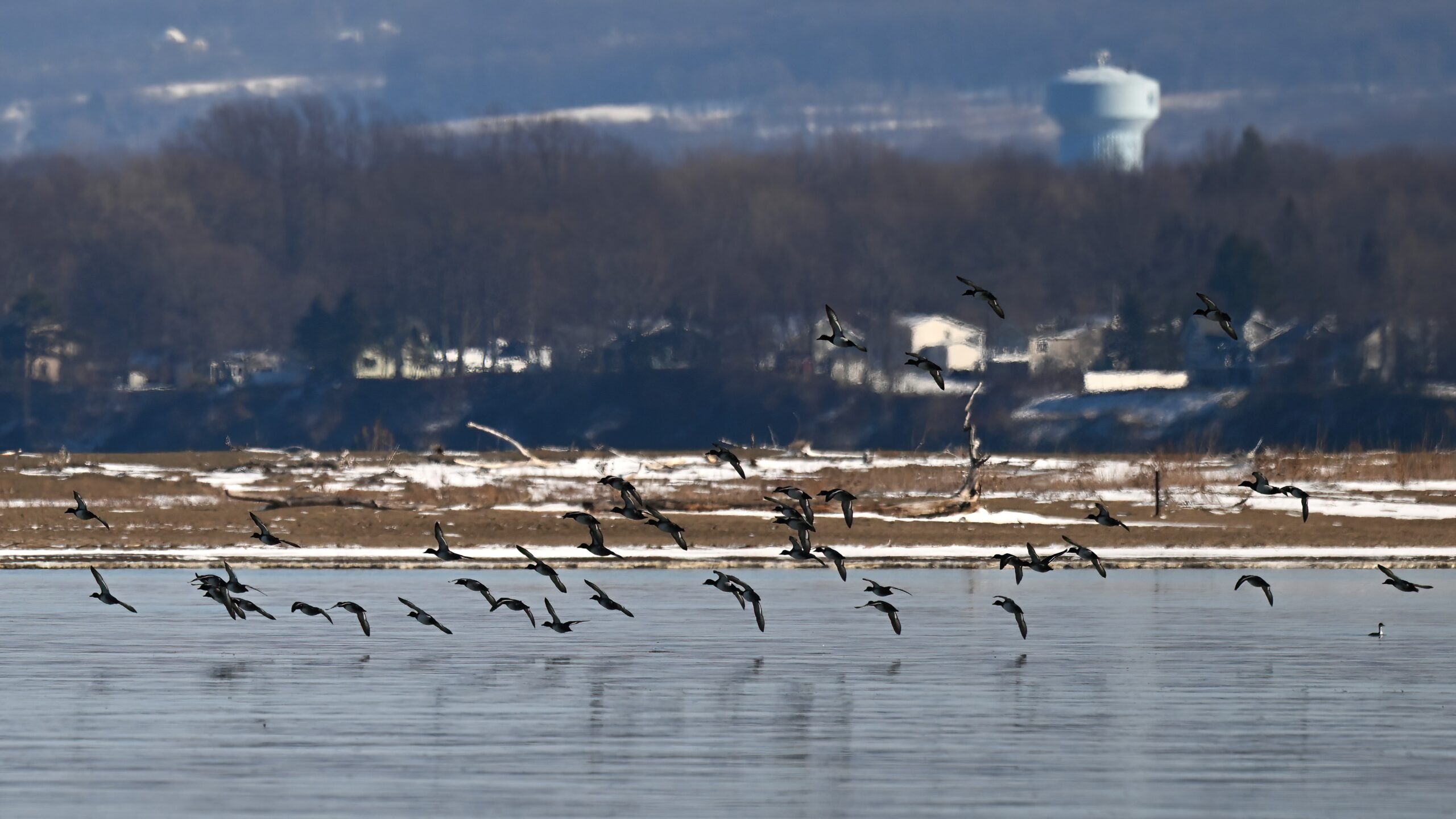
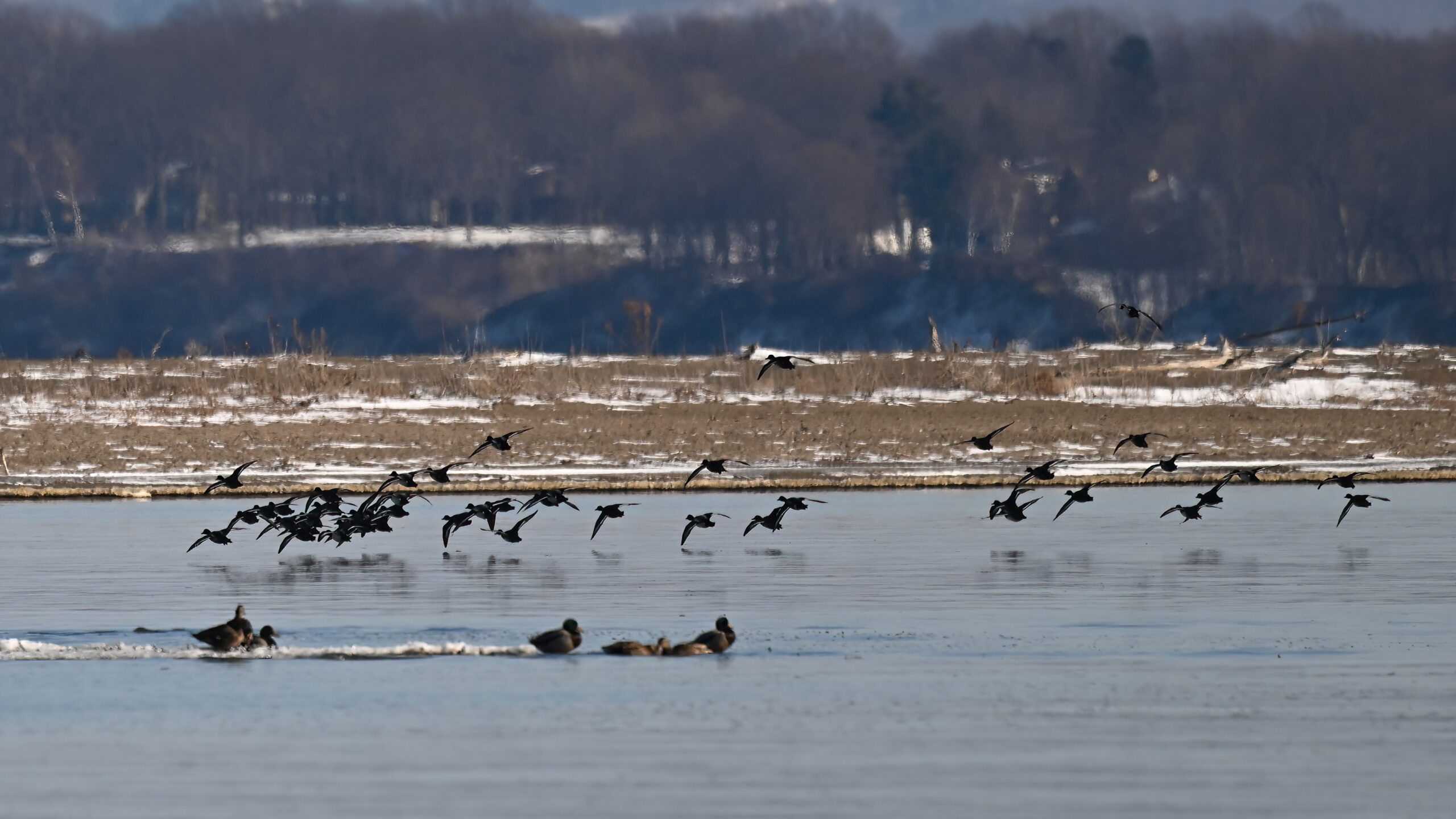
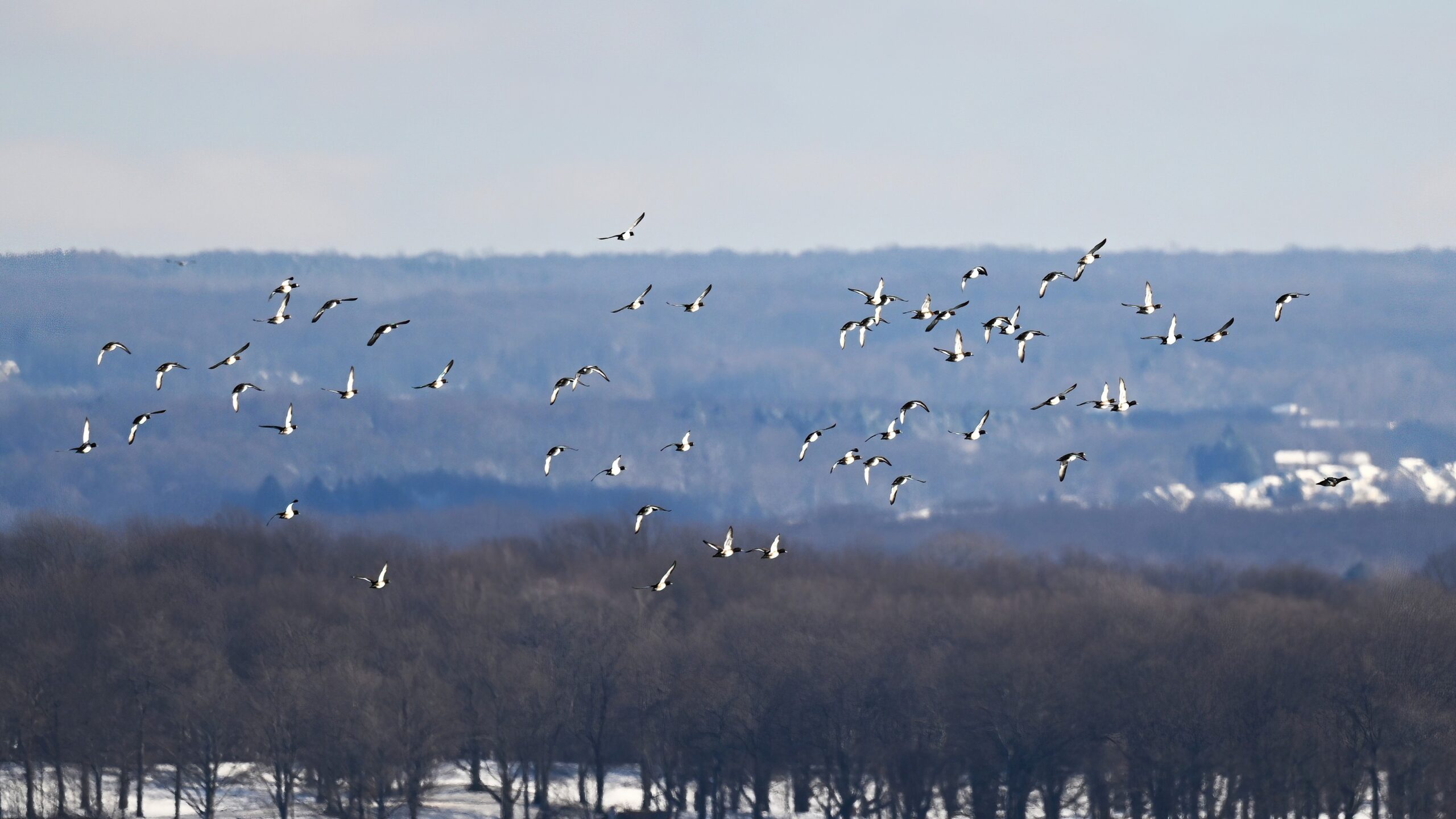
Various shots of Bufflehead:
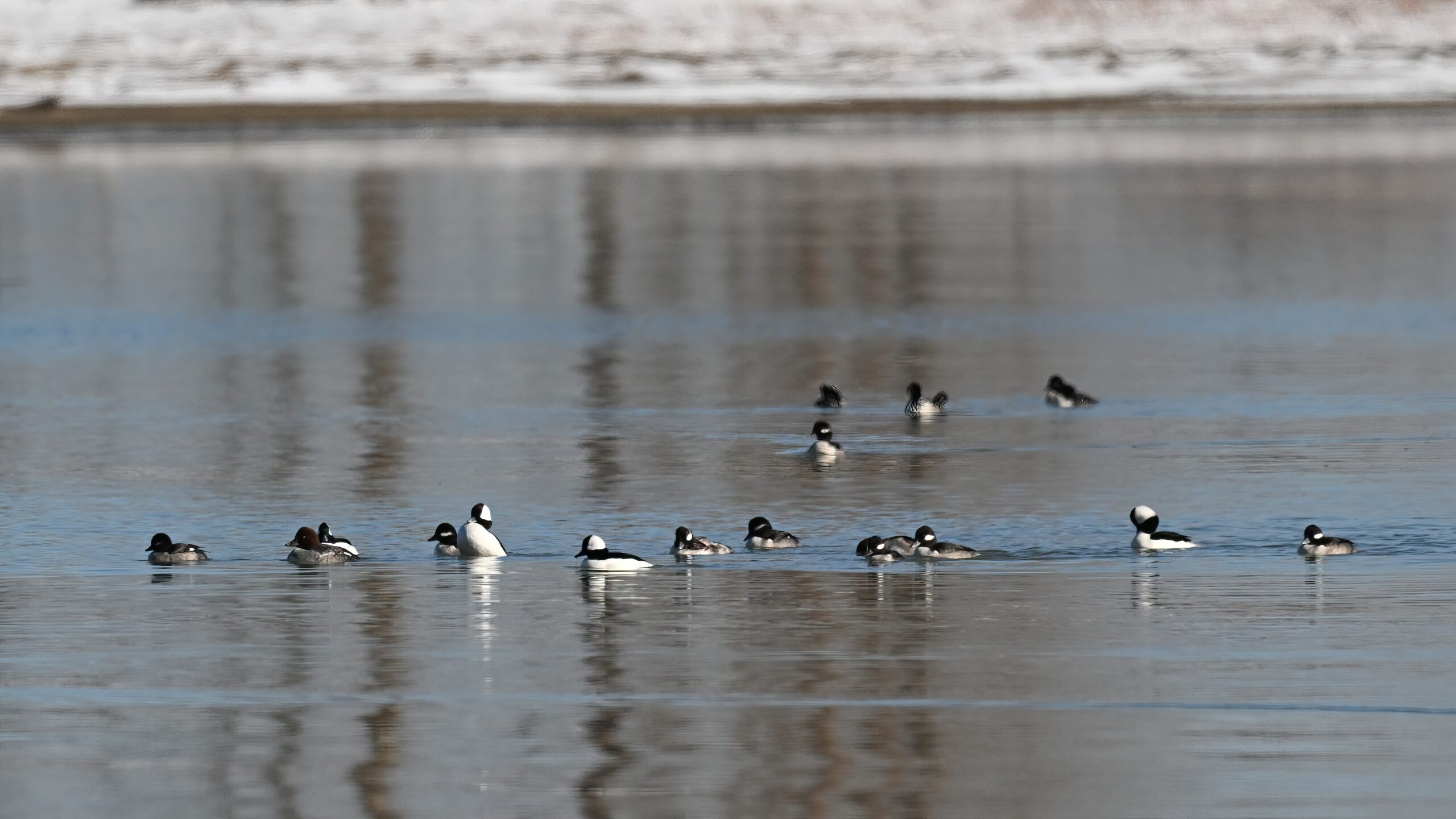
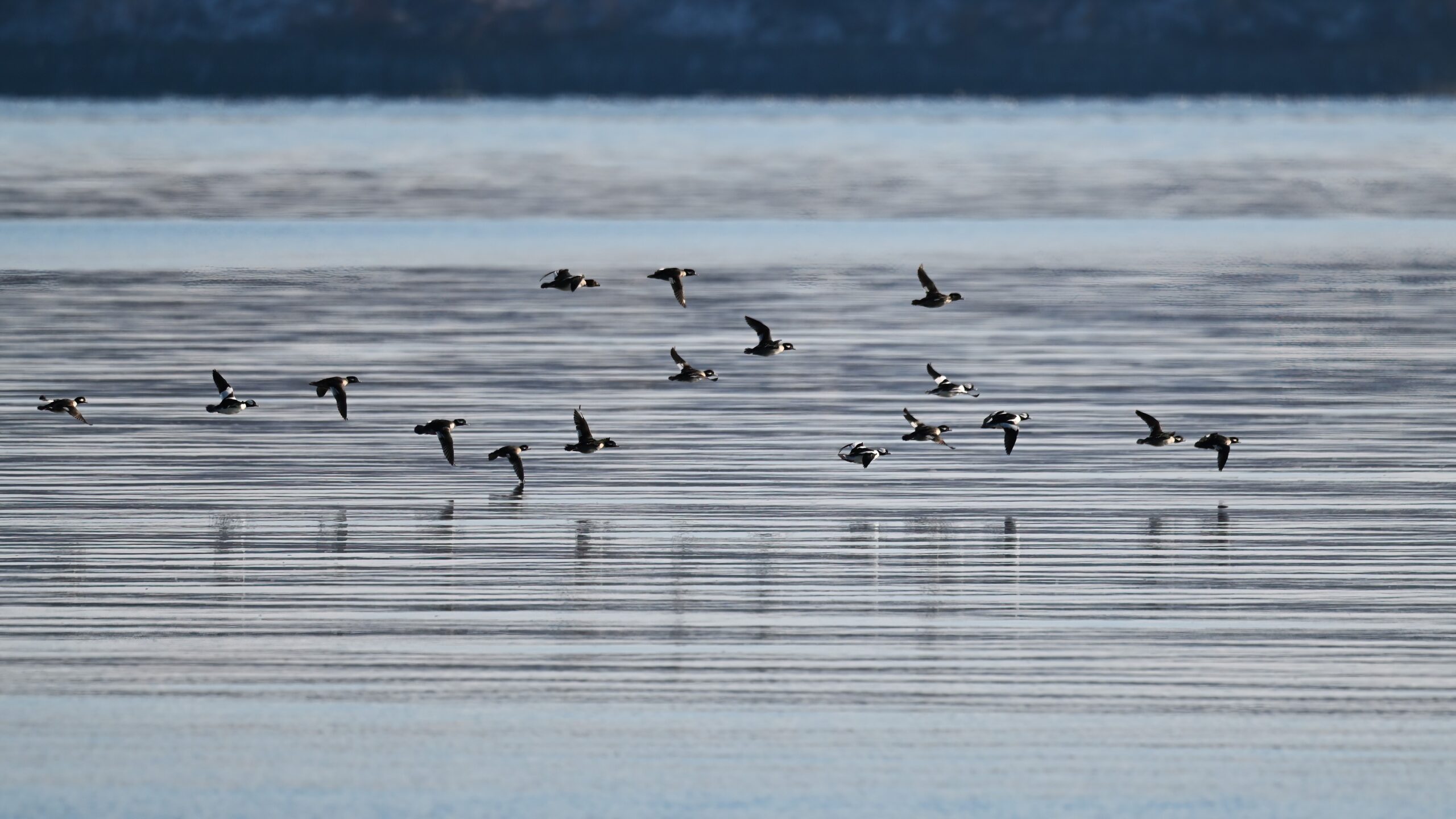
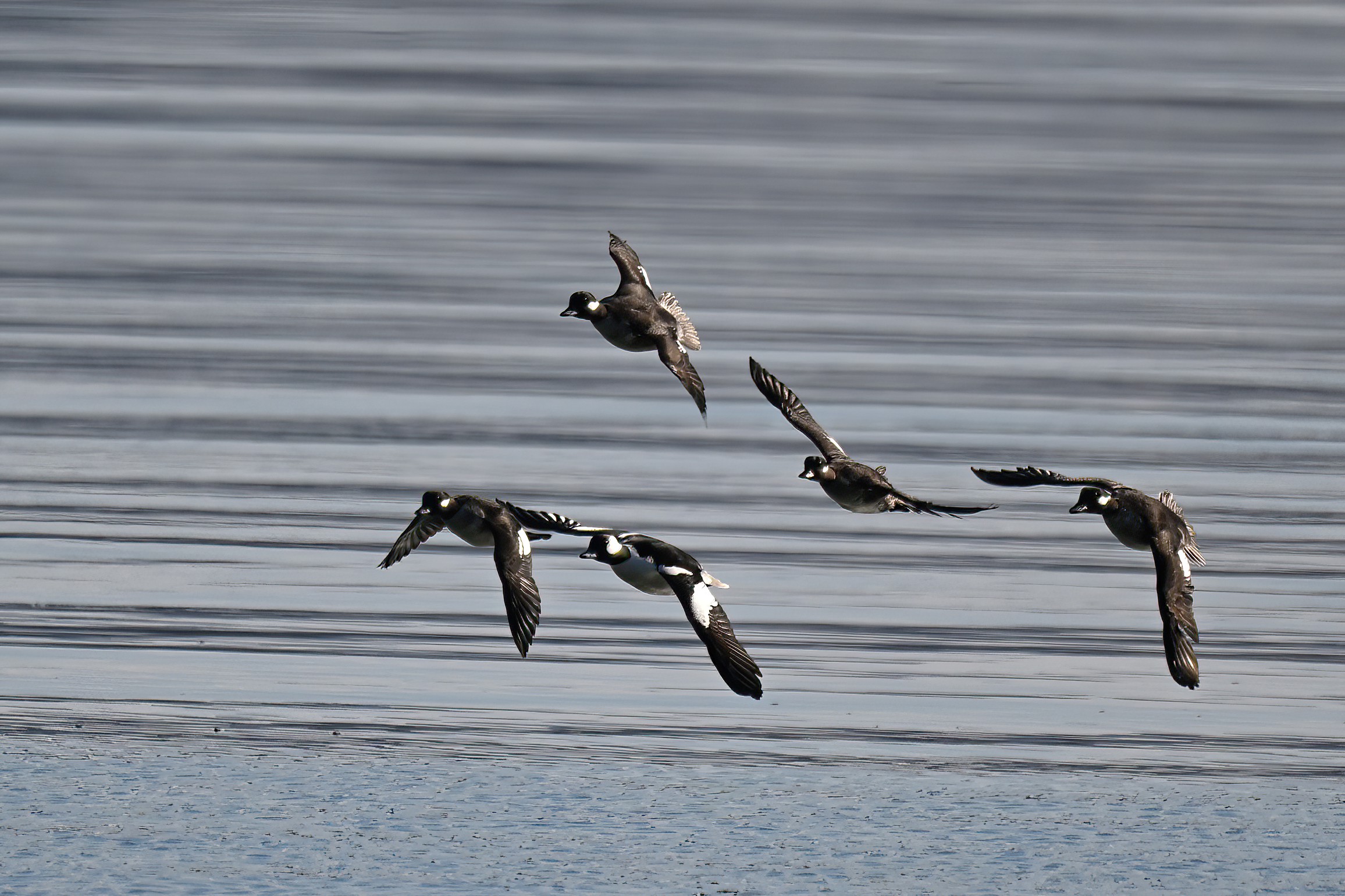
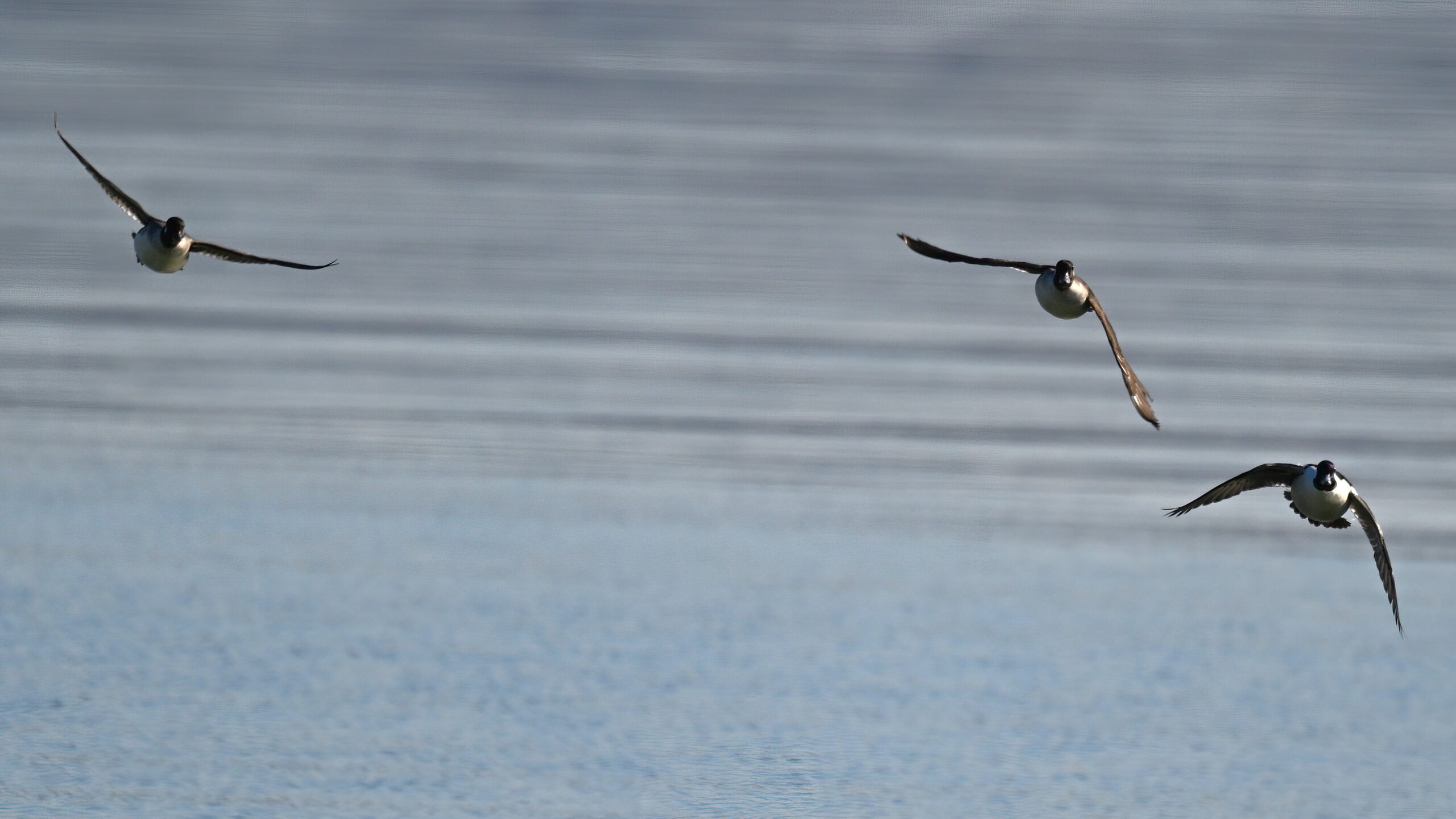
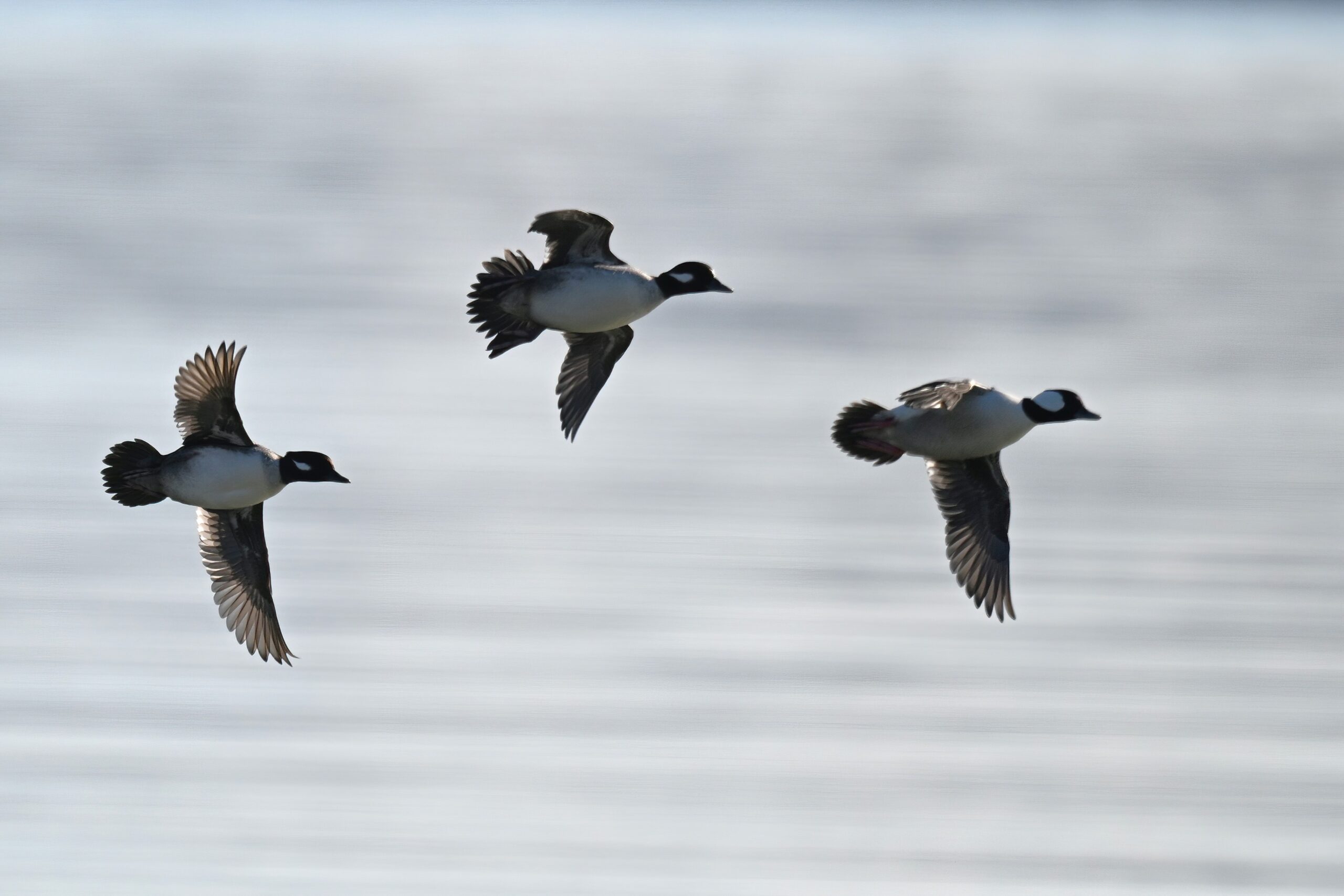
Back along the outer beach:
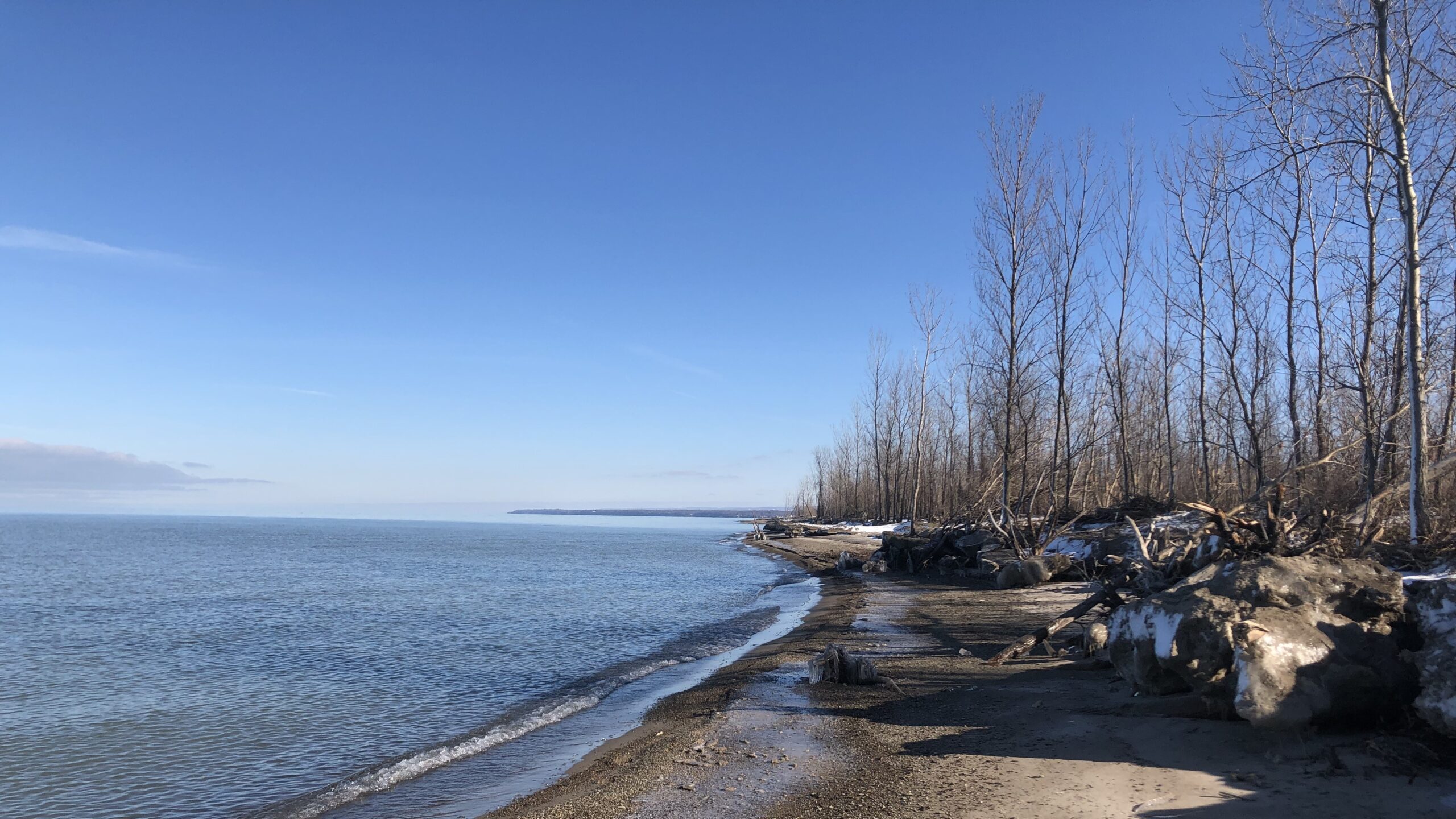
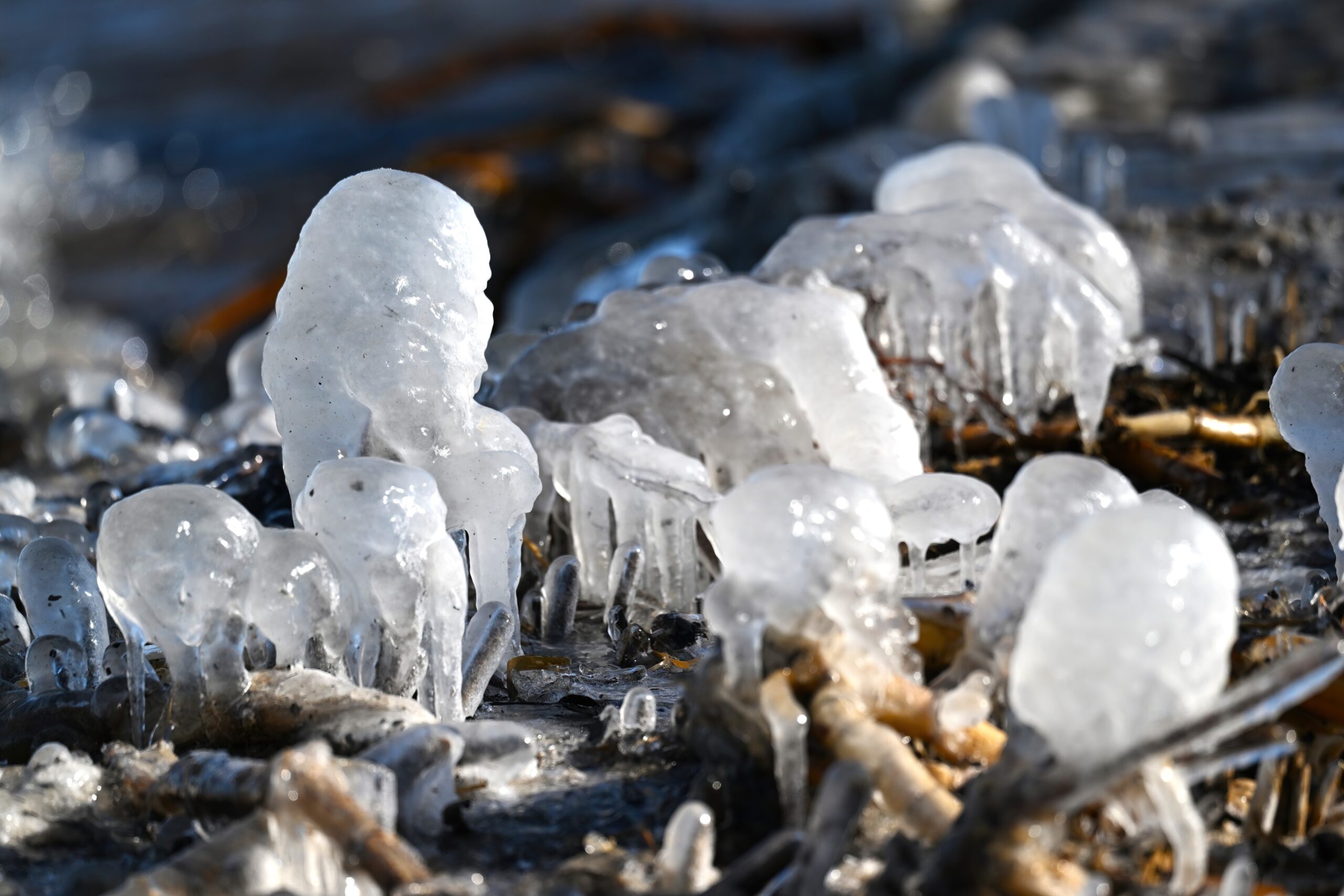
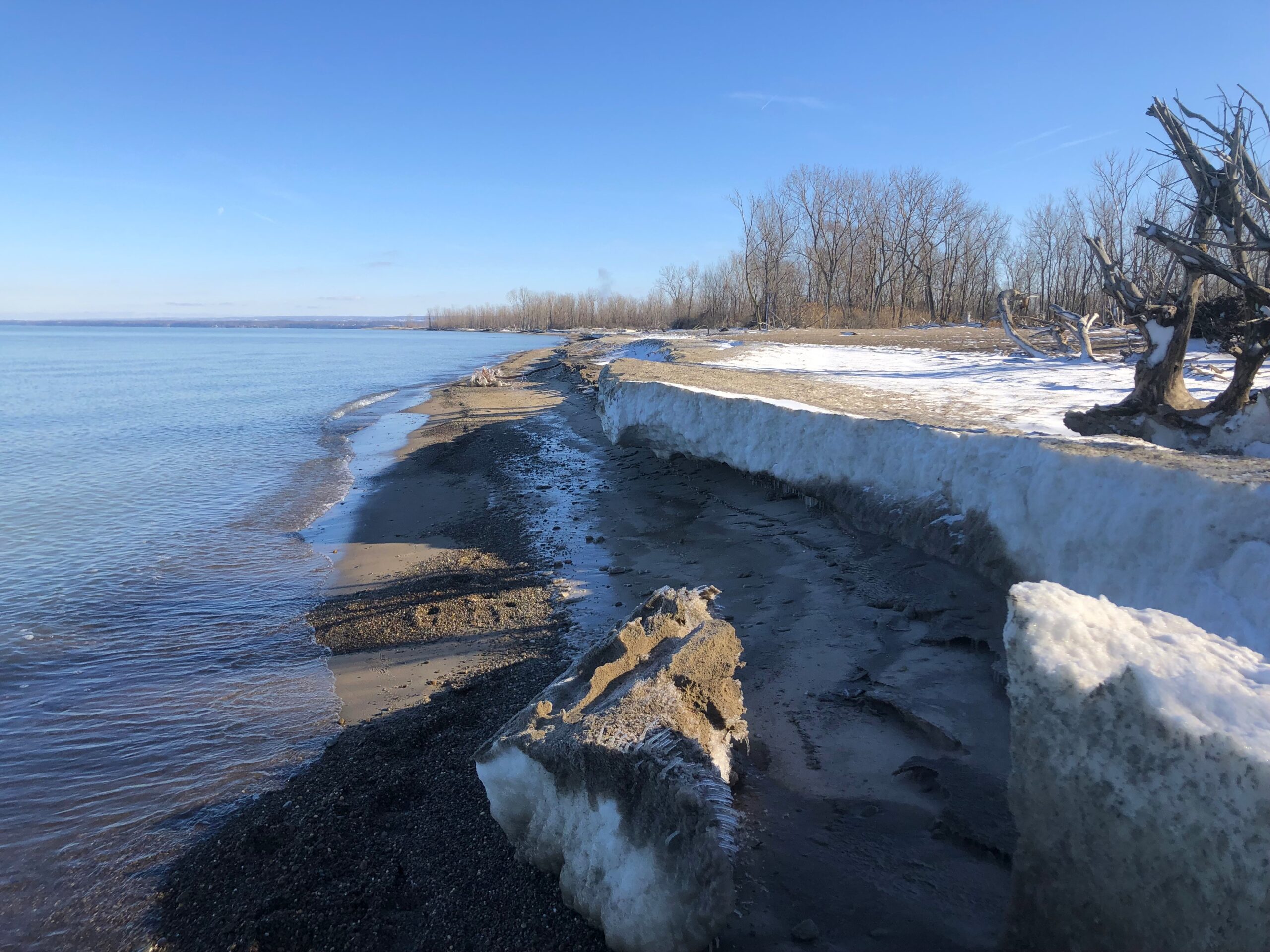
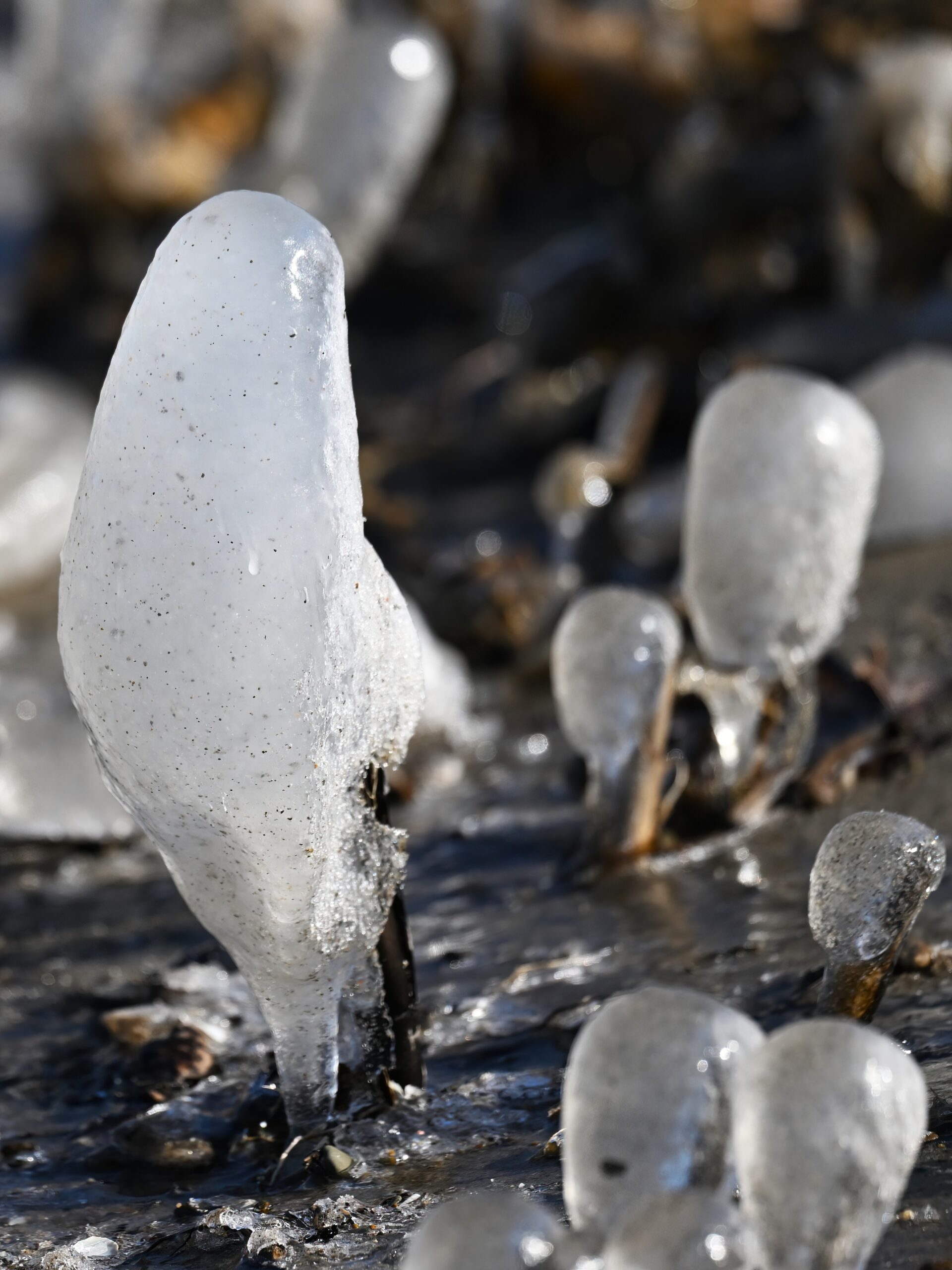
Trail note: due to periods of warm temps, outer beach edge mostly ice and ice dune free (see shots above) = hike to outer Gull point along the beach is relatively easy for this time of year.
[Editor’s note: Kaye C. Barker.]
Dateline: 15 January 2023
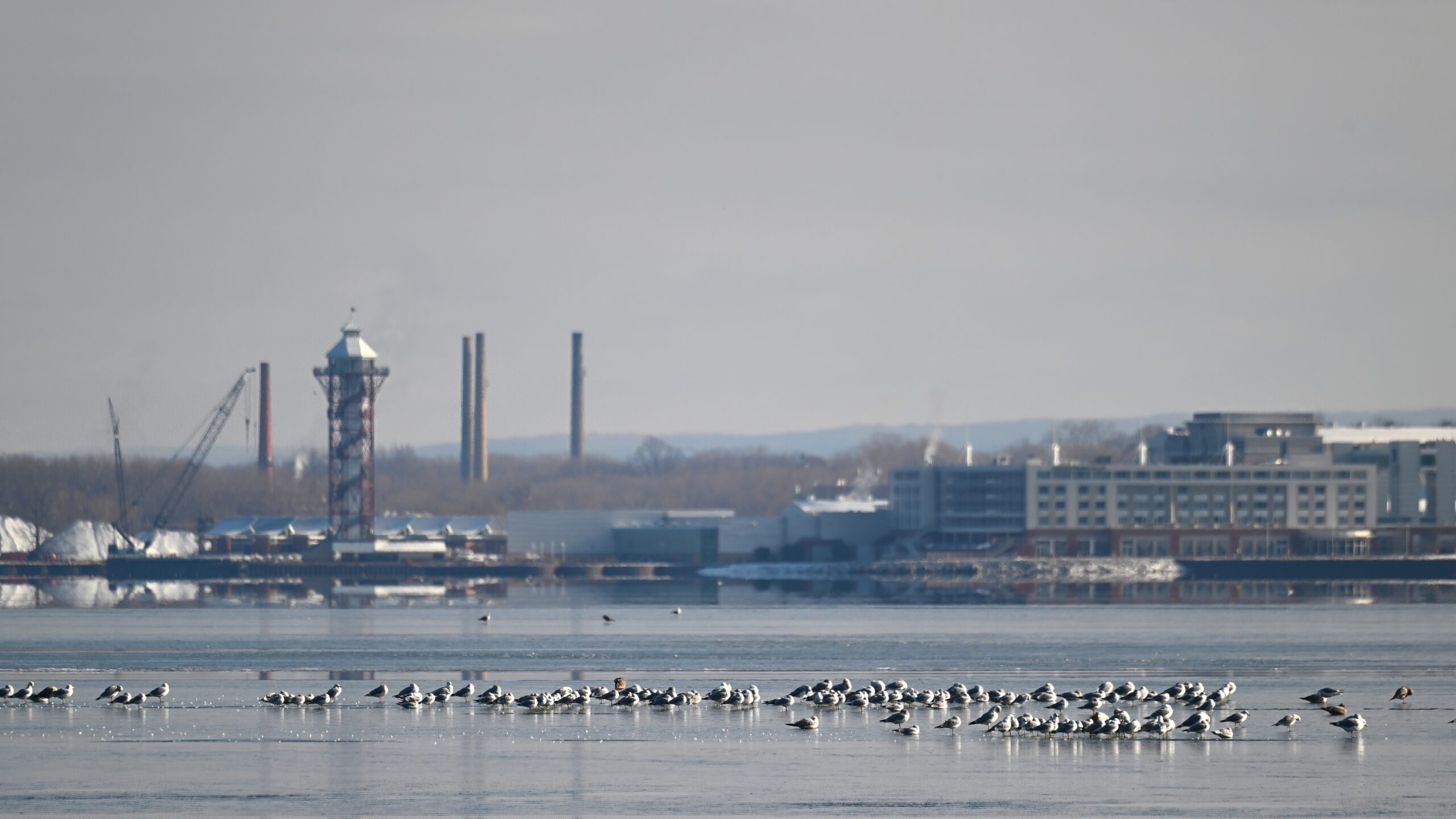
Out of (chronological) order for this BirdingPI.com weekend update, continuing to focus on sunny Sunday. Because sunlight = happy bird photographers. Tundra Swan and Bald Eagle were covered in the last two posts; bird activity: overall, excellent – only a few ‘land birds,’ but plenty otherwise (waterfowl, etc.)
Sunday, Presque Isle Bay frozen over (slightly/partially) just enough to support waterfowl. Here, looks like American Black Duck in the foreground and gulls in the background, from near Feather Platform:
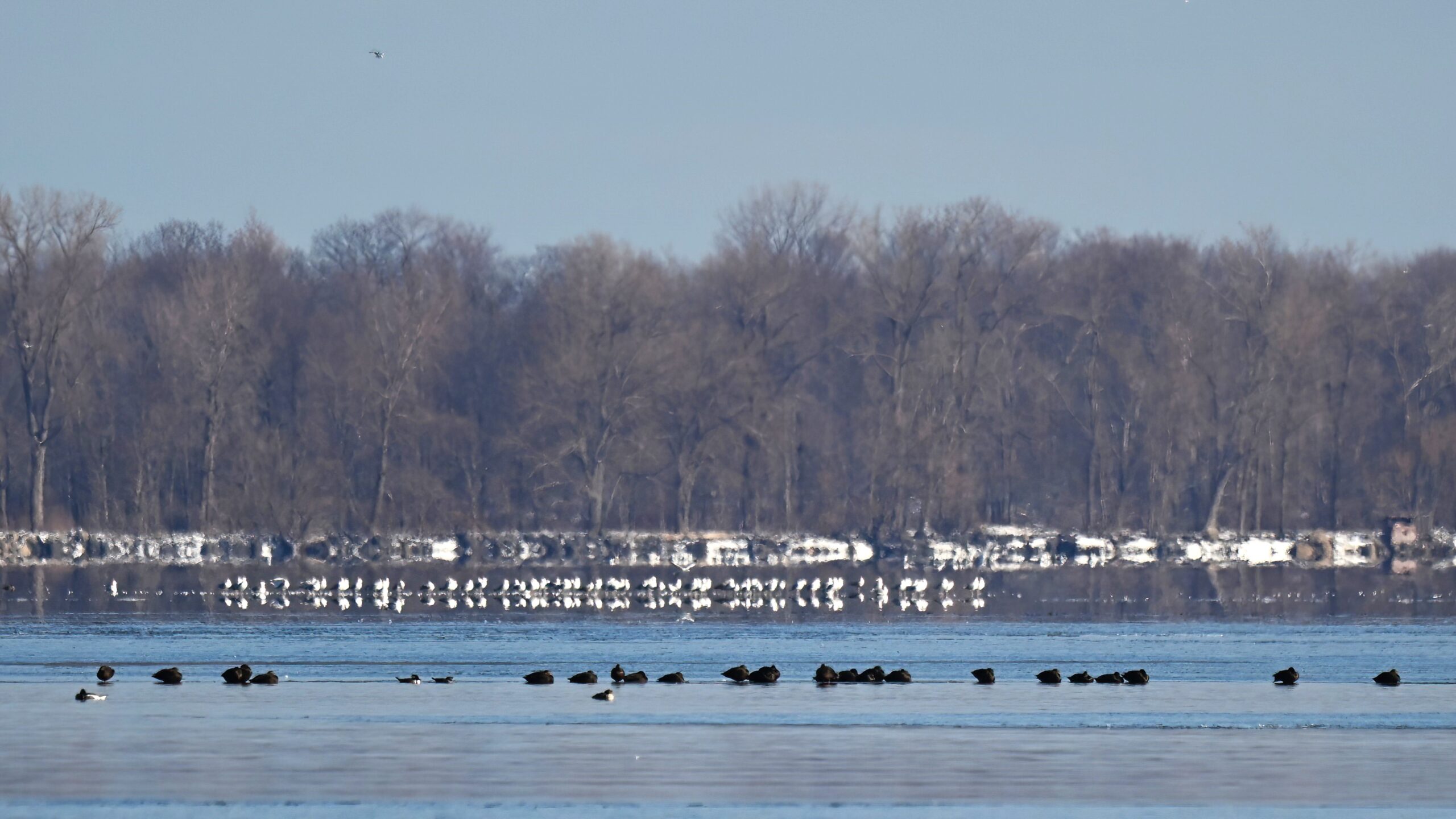
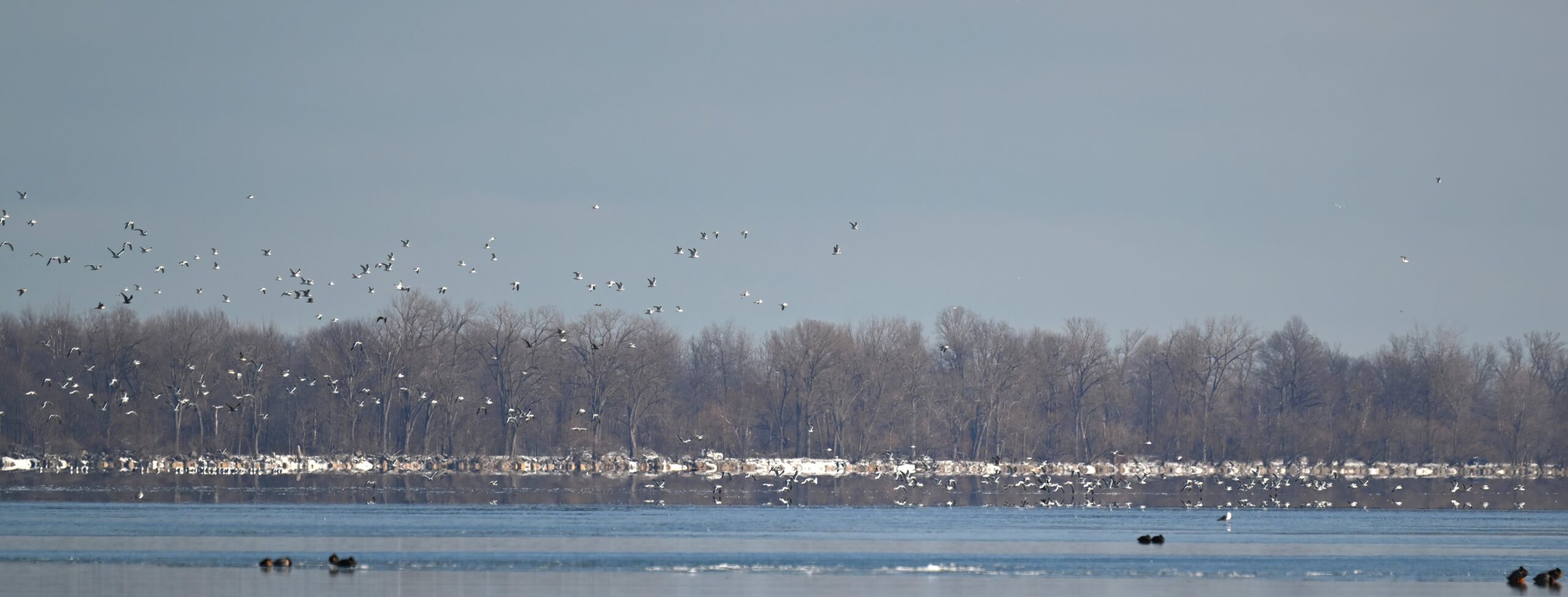
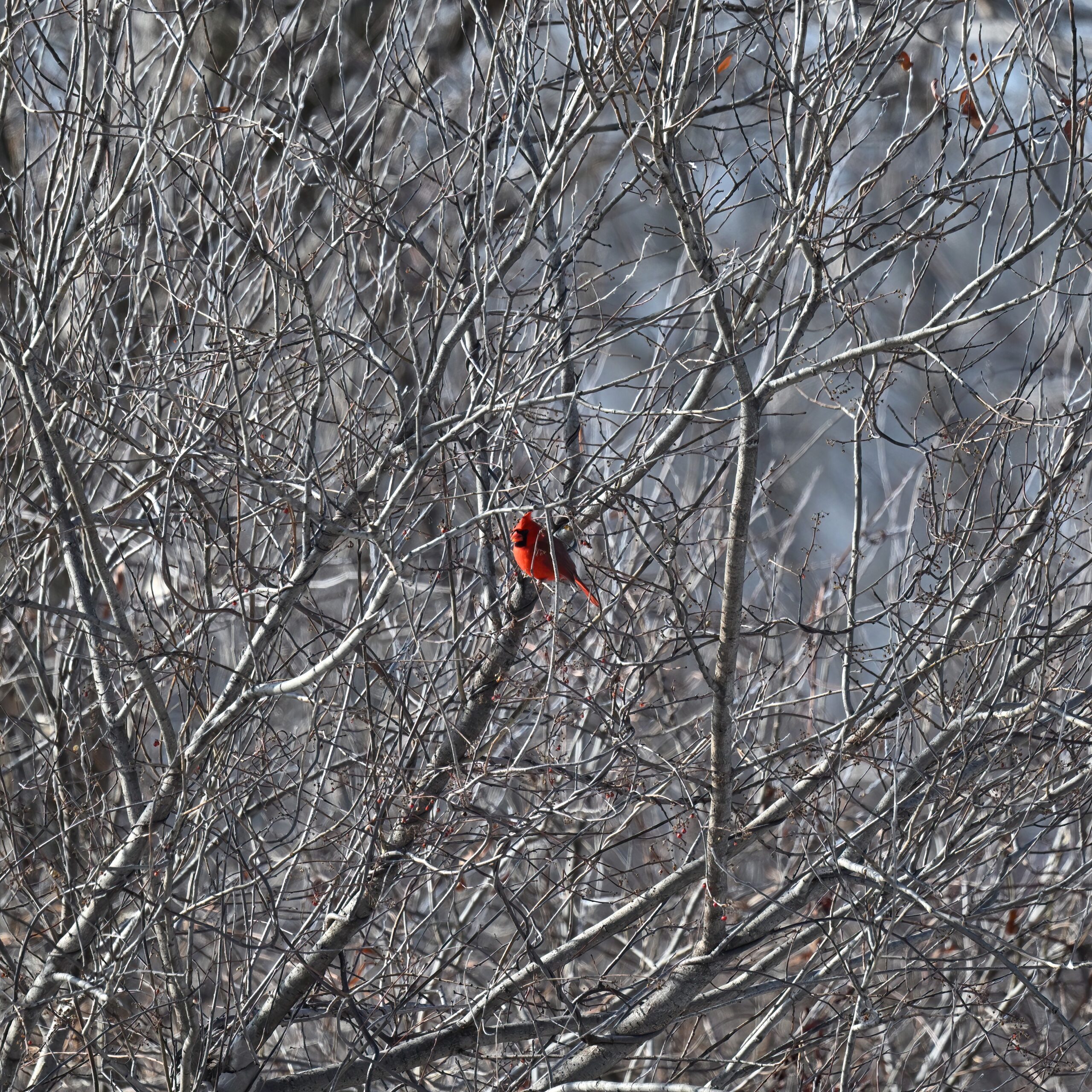
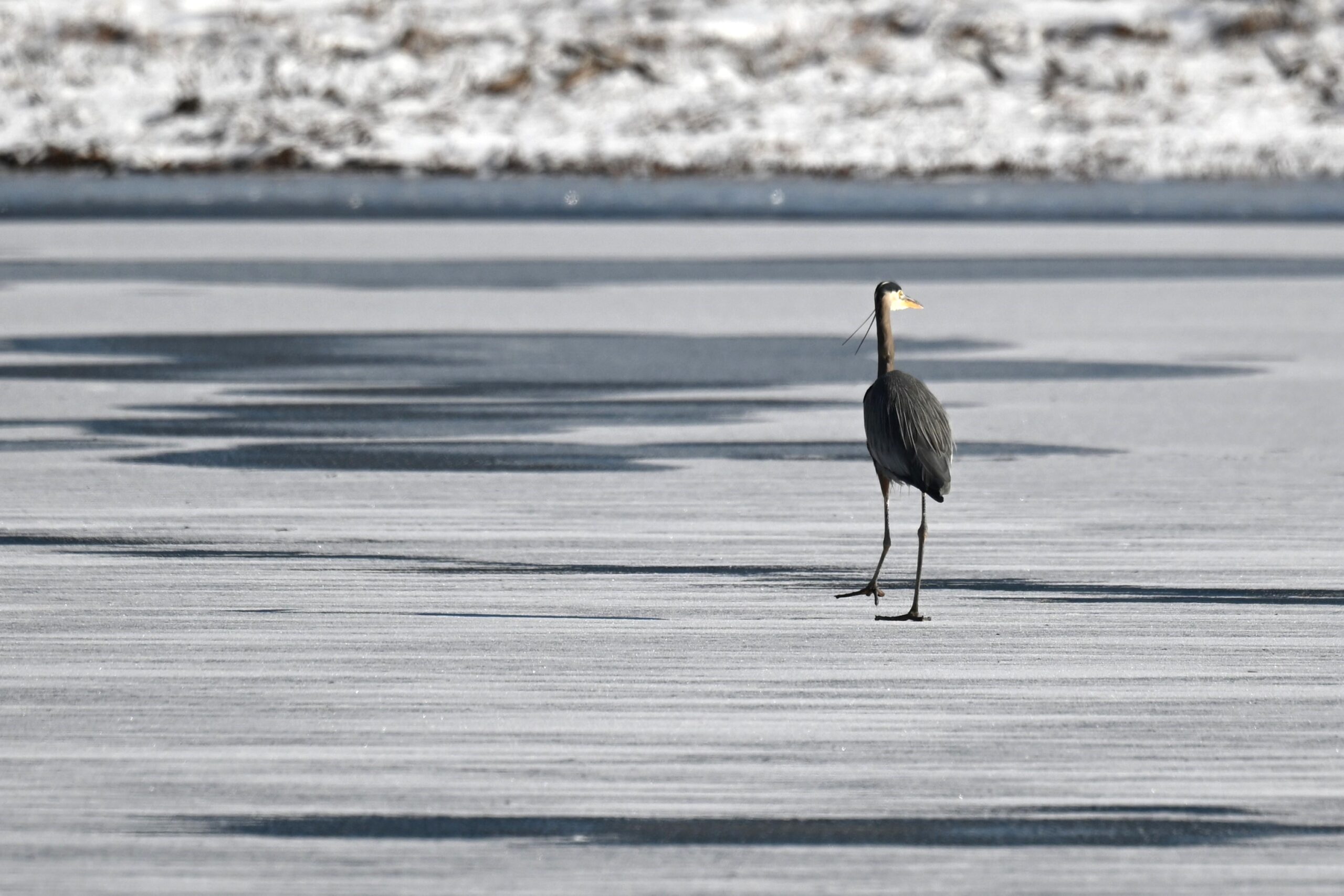
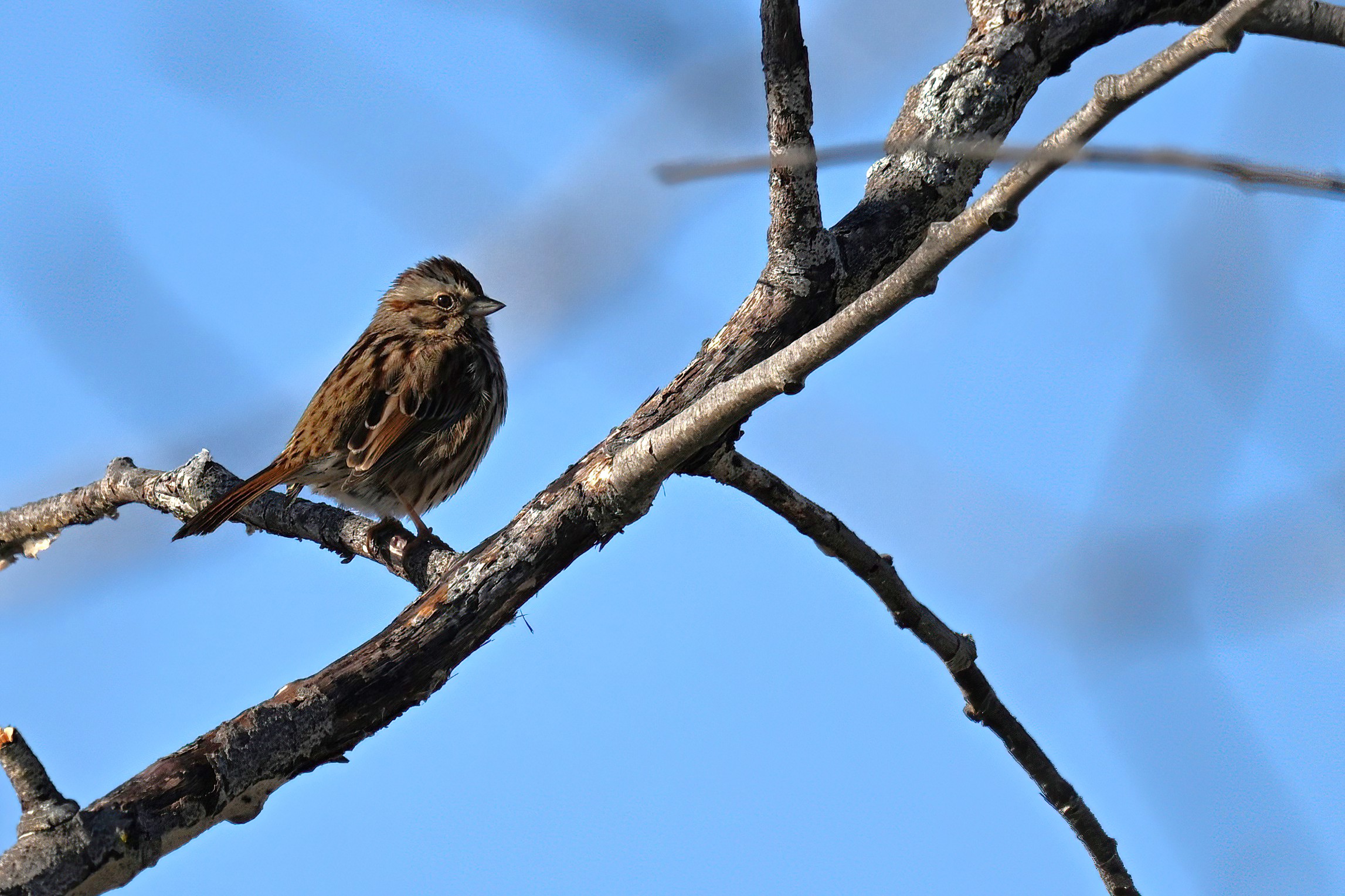
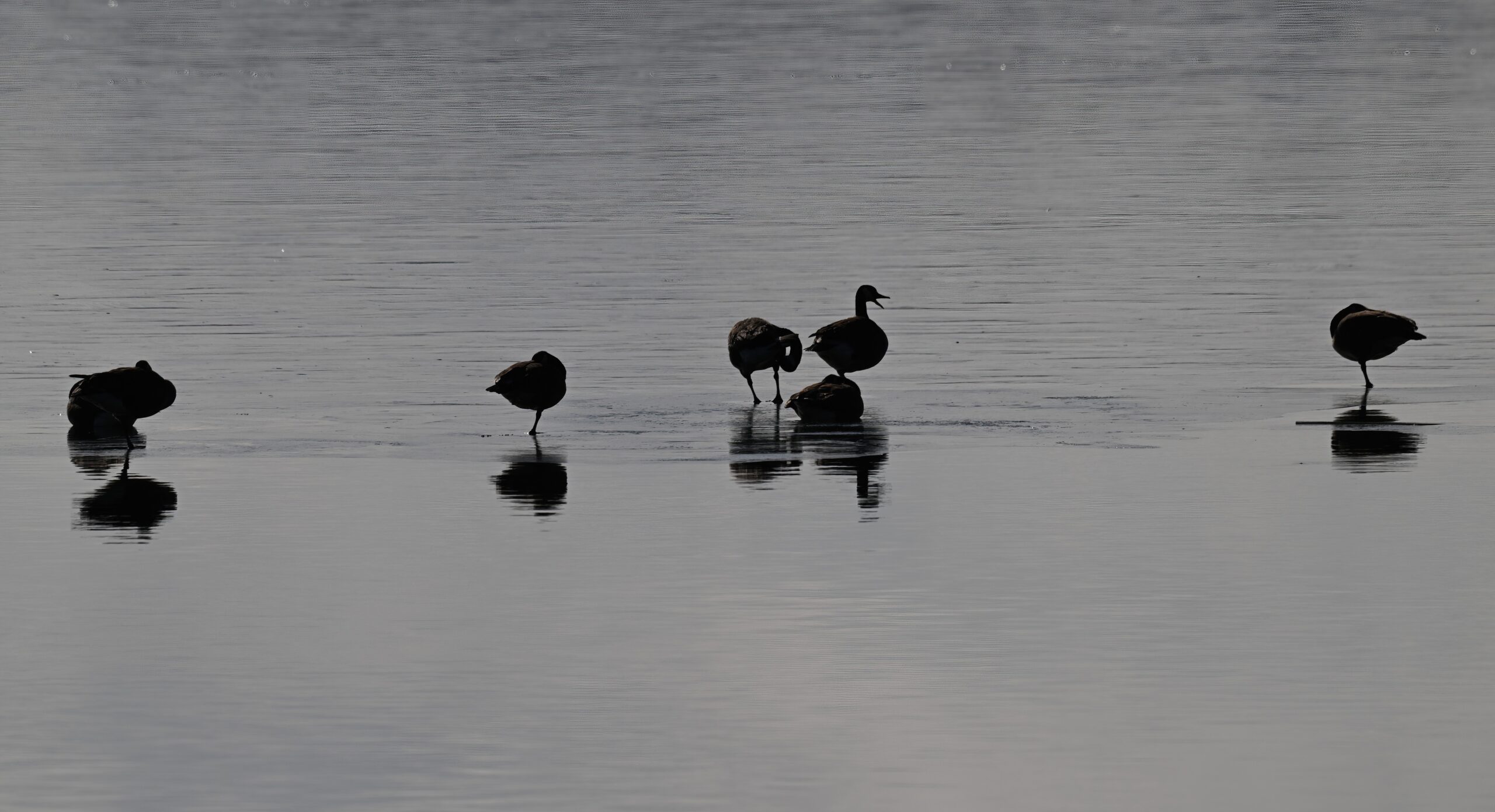
Following three shots of Canada Geese at Perry Monument, first foraging, then startled, then in flight:
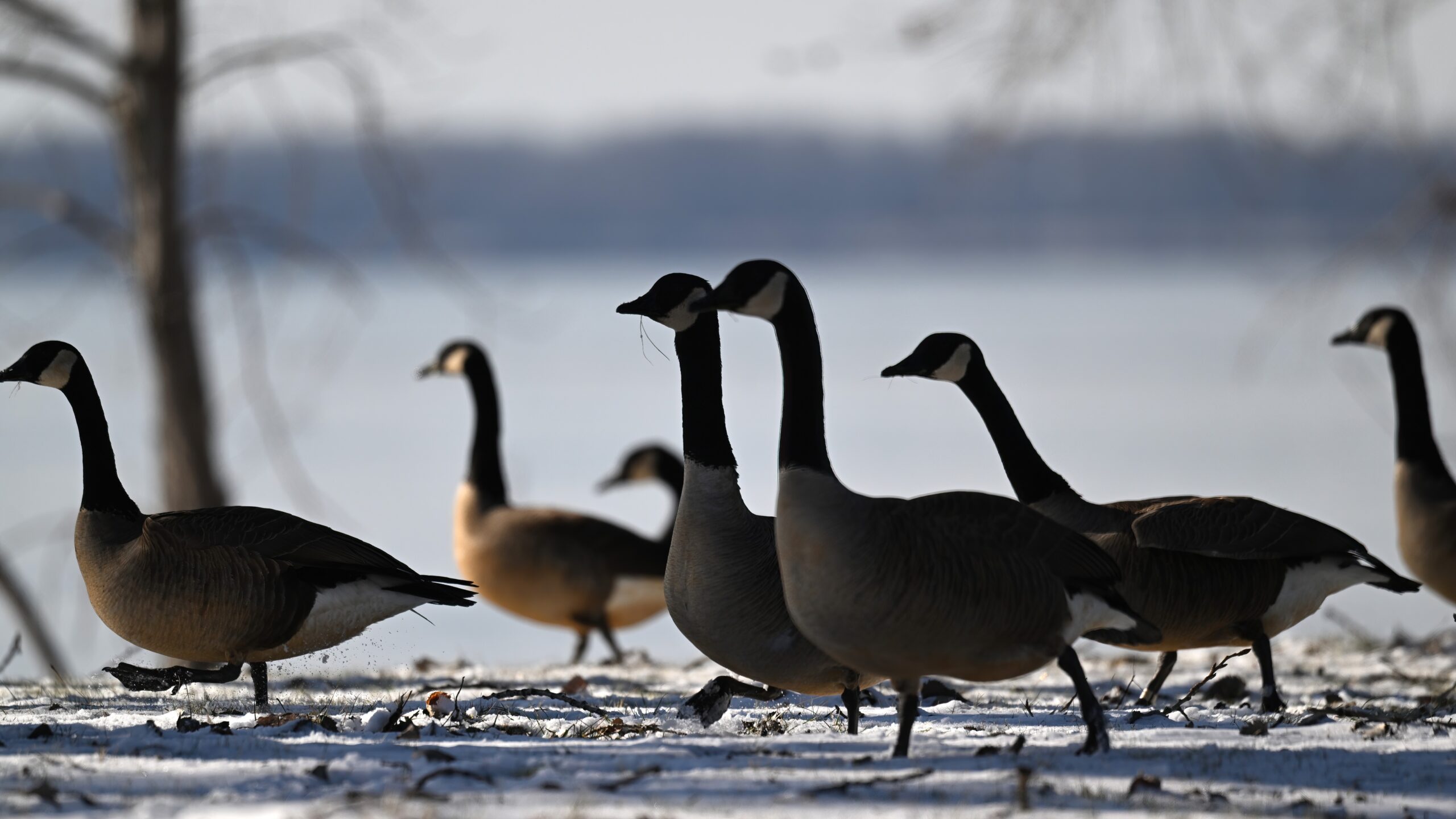
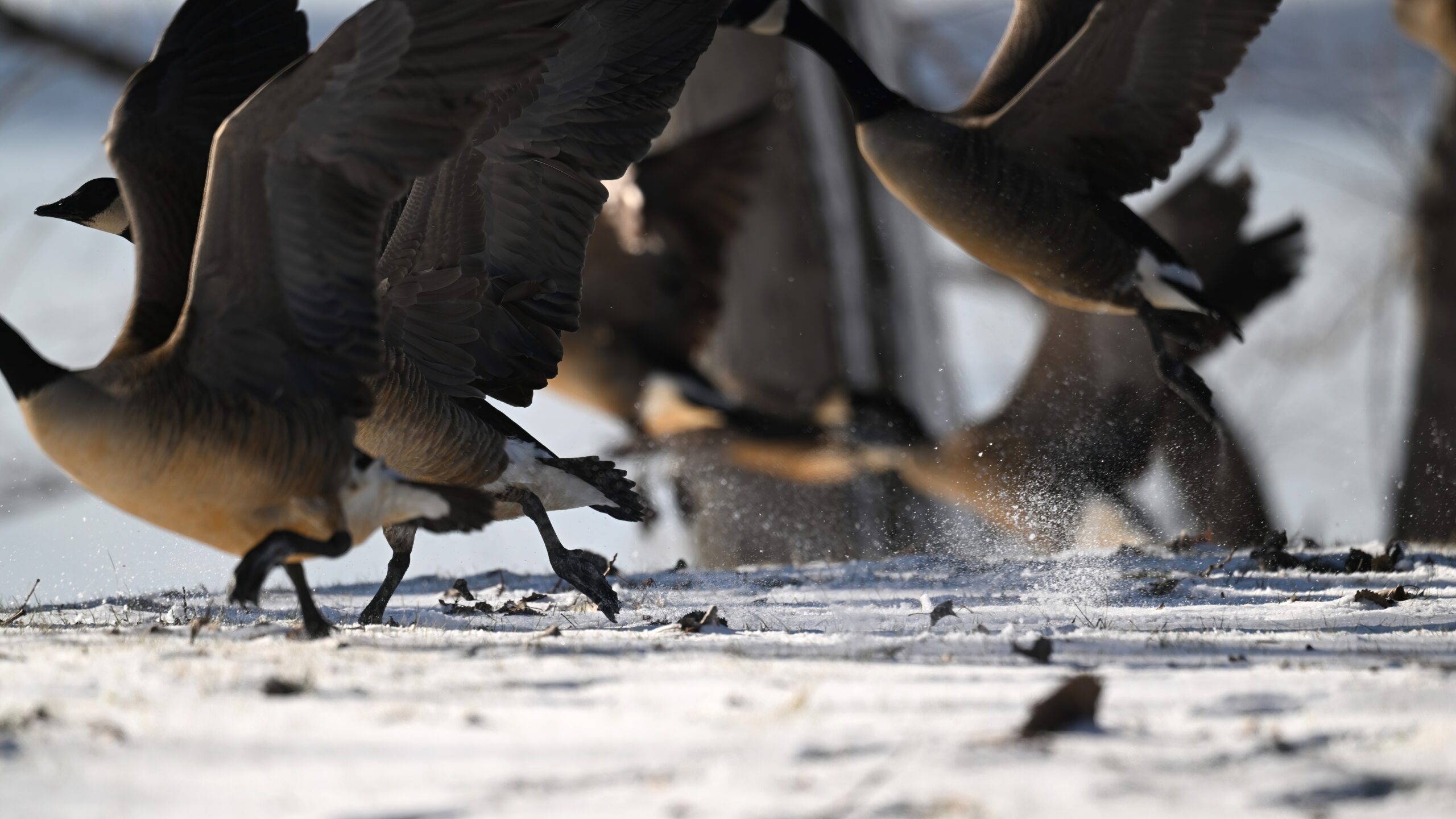
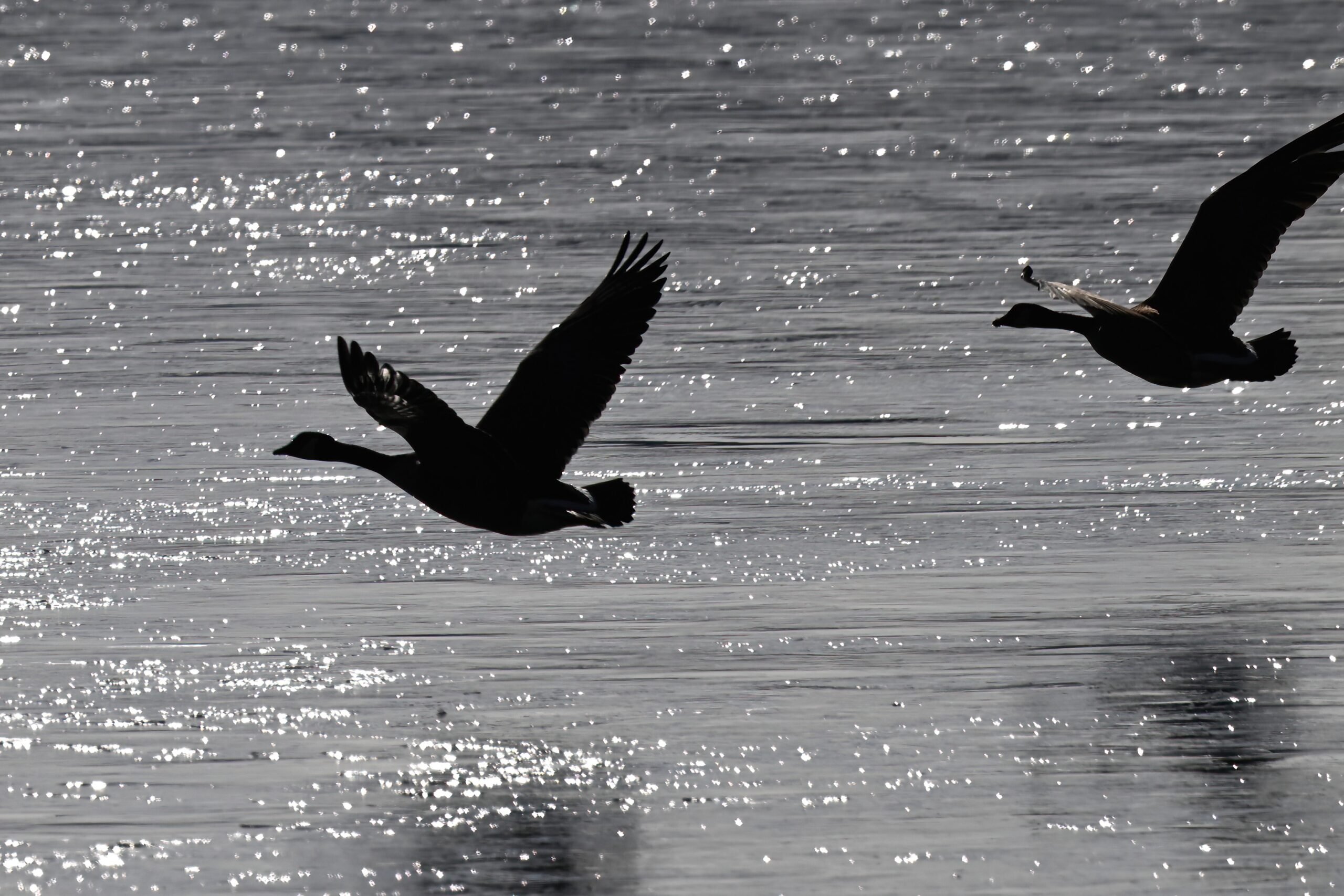
Two of Herring Gull in flight. Thank you, lovely blue background.
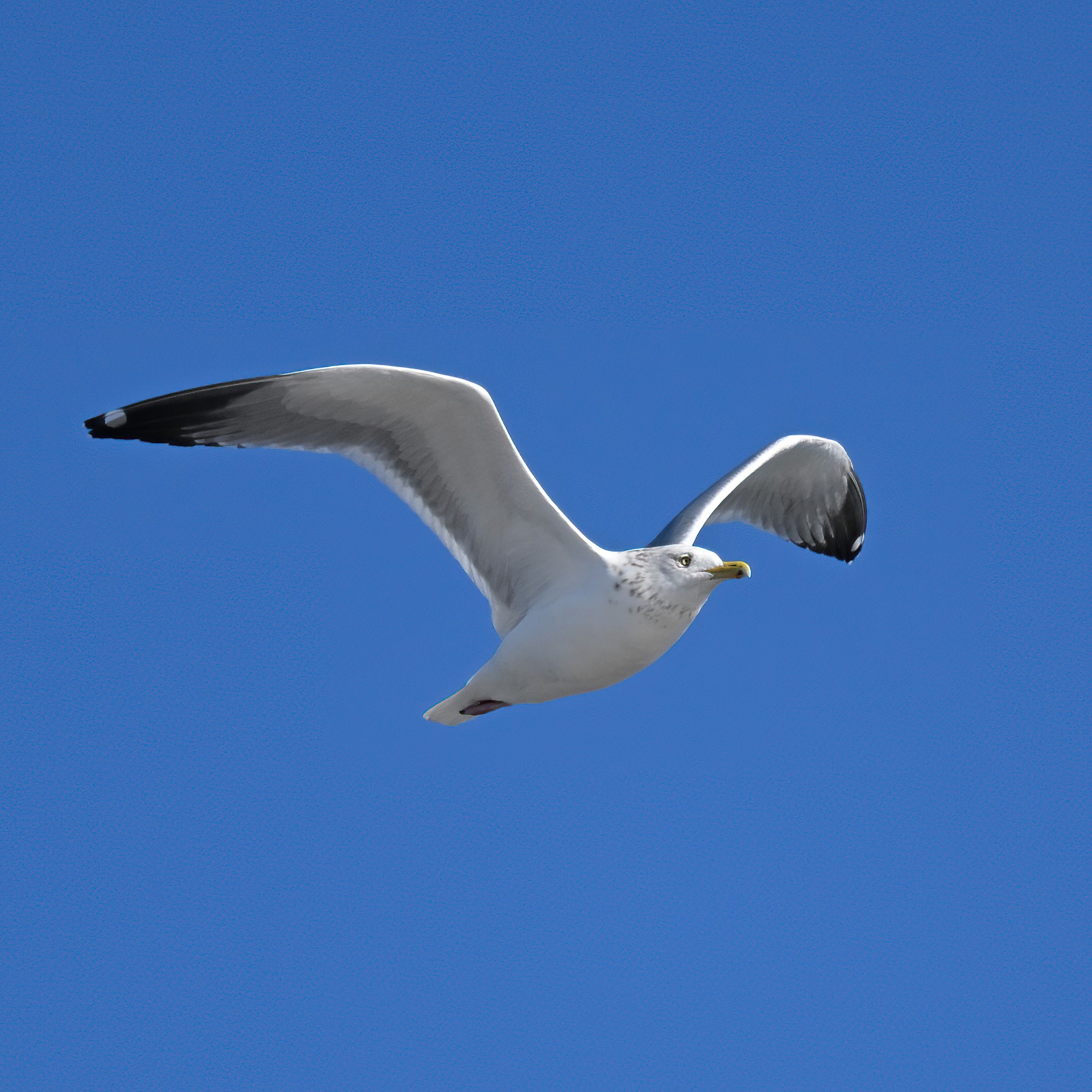
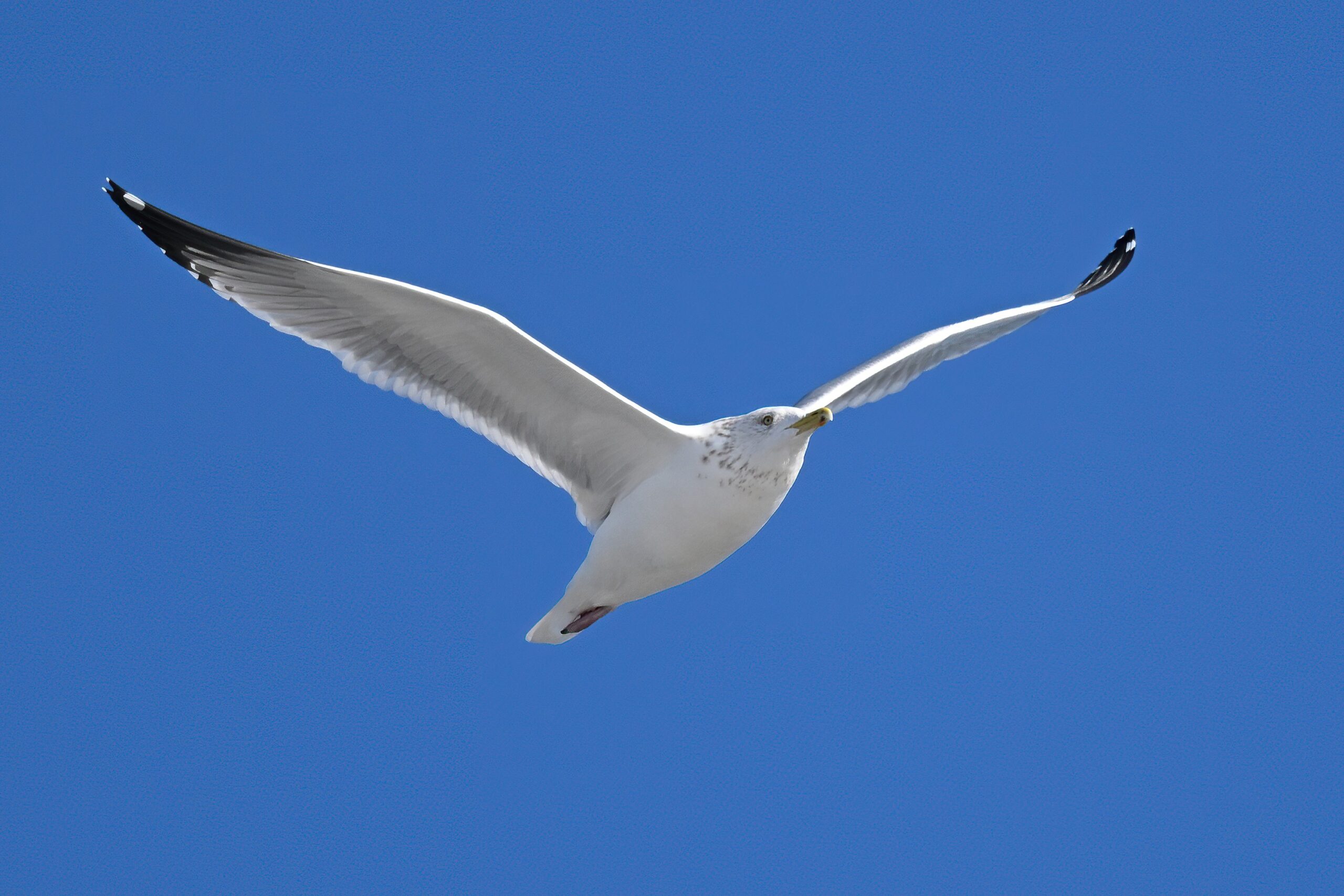
Bad photo, but, just for ID purposes, off Budny Beach: Mallard in the foreground left; perhaps a juvenile merganser middle-ground, off center left; five ducks in the background are Common Goldeneye.
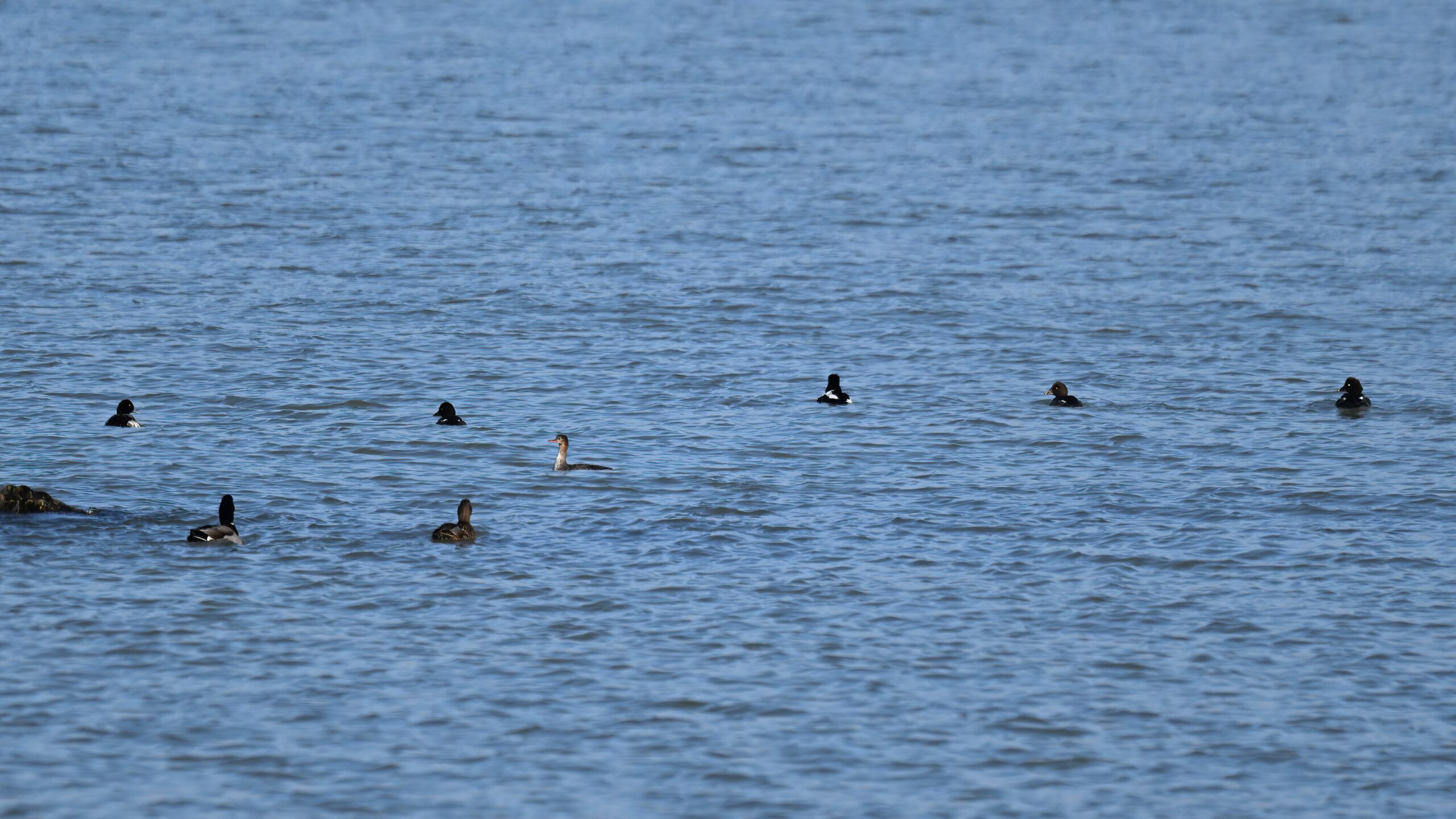
Our Pekin friend and his Mallard lady friend (?) are back on the lake:
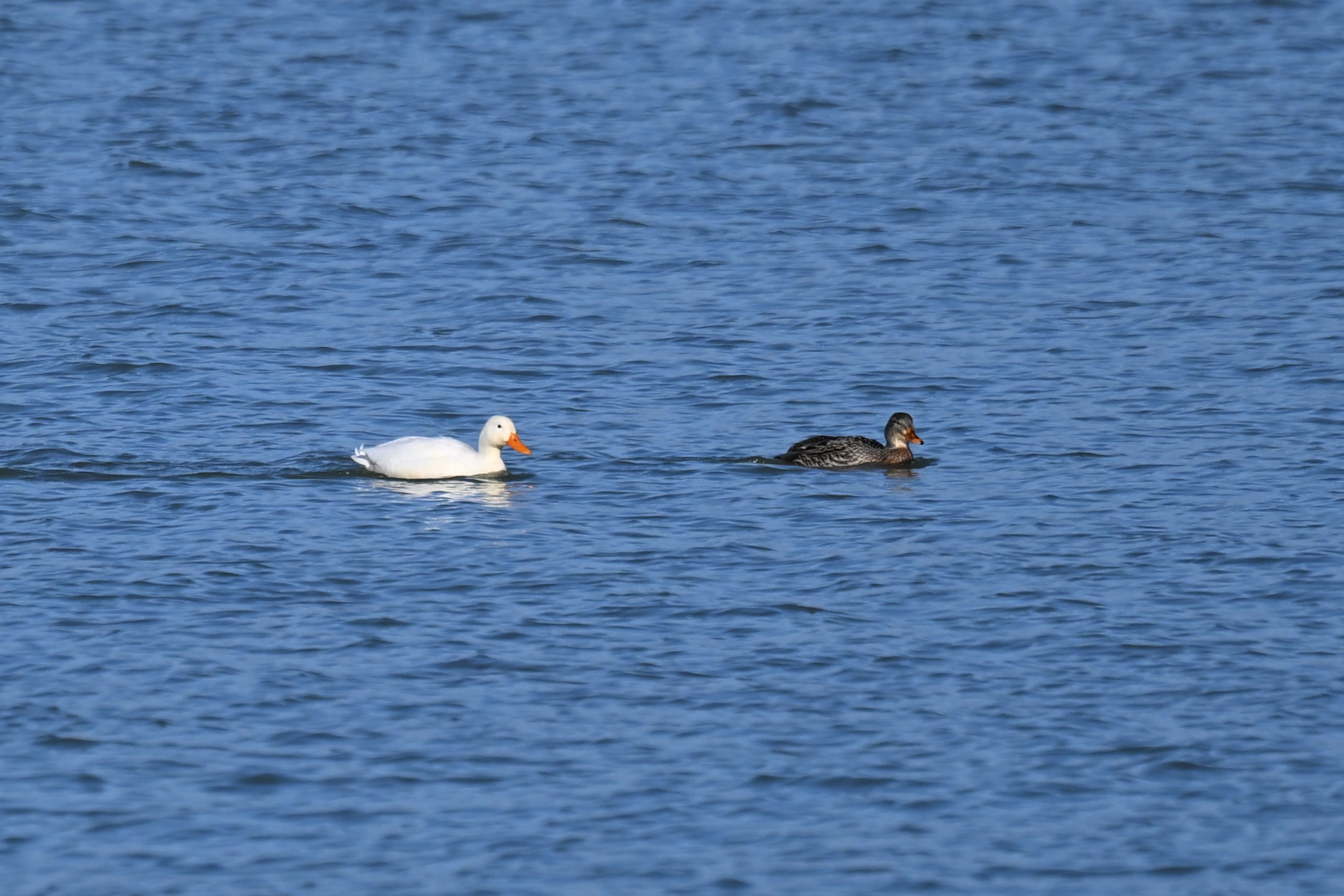
Misc. gull (species unknown) on Lake Erie:

Sunday was so big, going to take four posts to cover it all. Weekend update part II tomorrow. Then, back to Greater Black-backed Gull (finally), Bald Eagle vs. Canada Goose (really, sort of), and American Kestrel, lots of them! Really.
Worried it’s “birding slow season” in PA? Worry no longer – BirdingPI.com is here to assuage your concerns via moderately intrepid nature reporting and mostly unobjectionable bird photography/videography content. #more_bird
Dateline: 15 January 2023
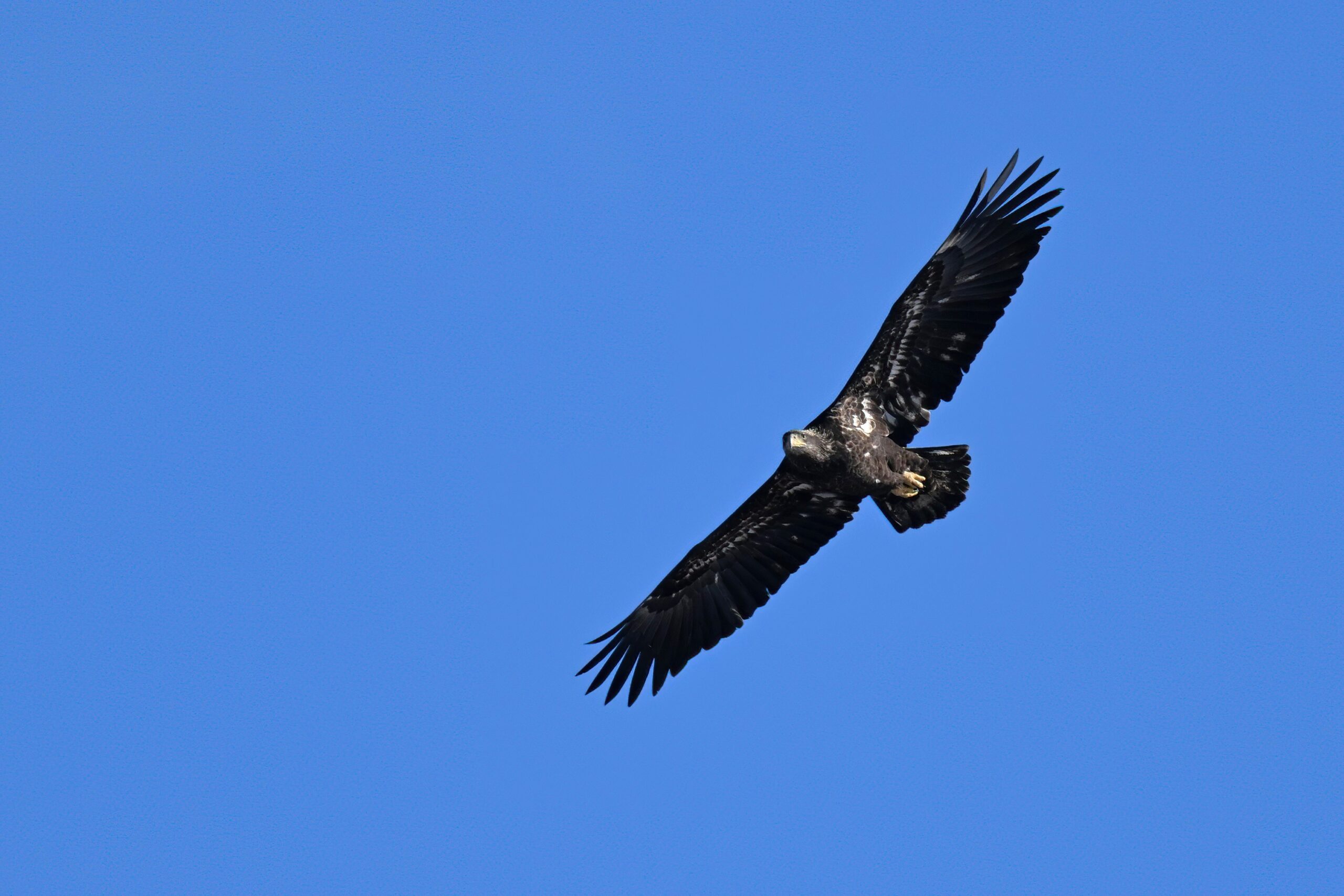
Presque Isle State Park. Cold but sunny Sunday. Peacefully driving the BirdingPI.com van along the outer loop road by Misery Bay.
“Hot damn! It’s an eagle! Quick, pull over!” [*]
Execute the “two second don’t hit pedestrians or bicyclists” check before pulling over onto the shoulder/multi-use trail. Take shots out the window as best possible. Jump out (execute the “one second don’t get run over by passing car” check) and keep shooting.
Run 1:
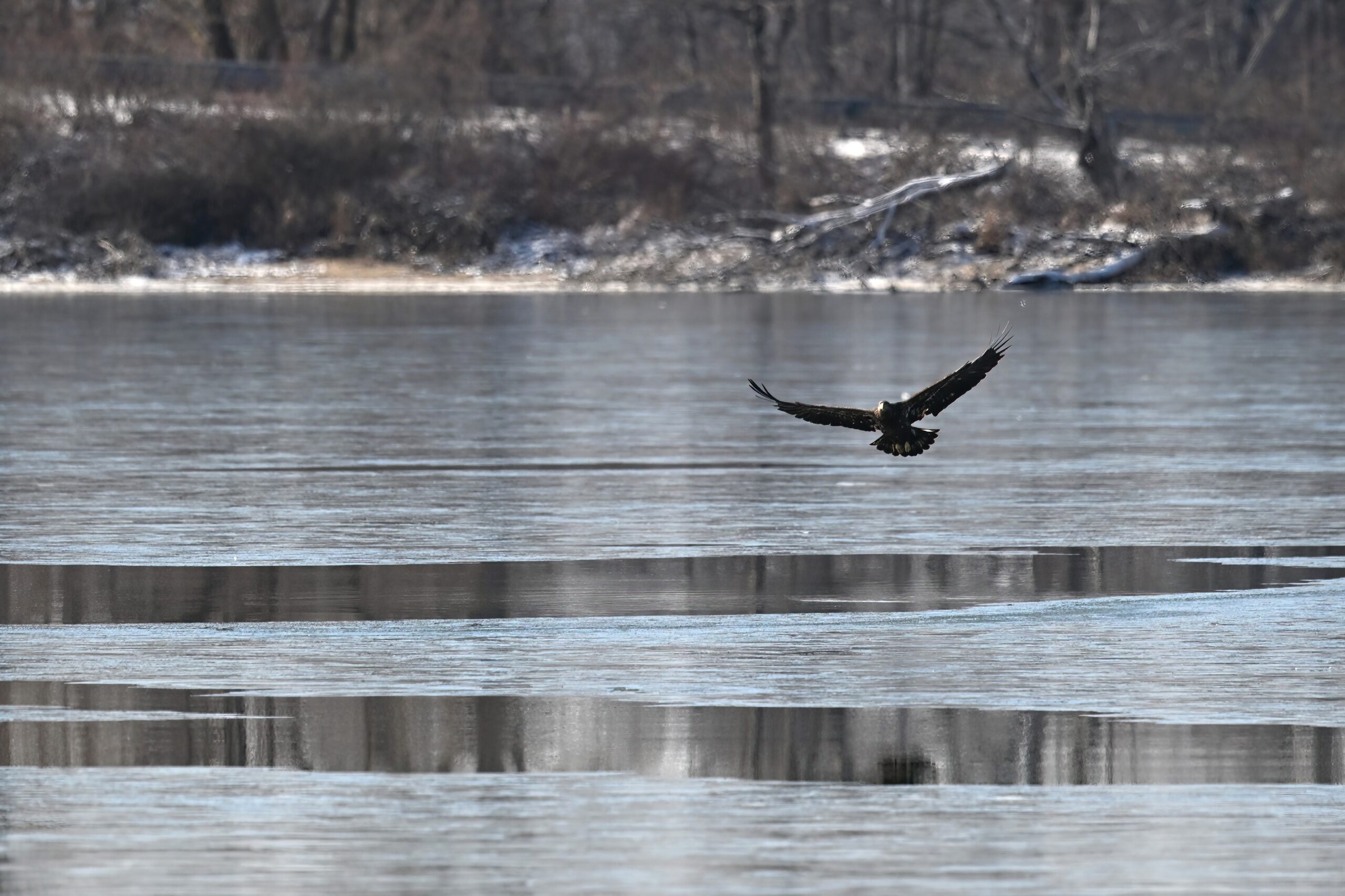
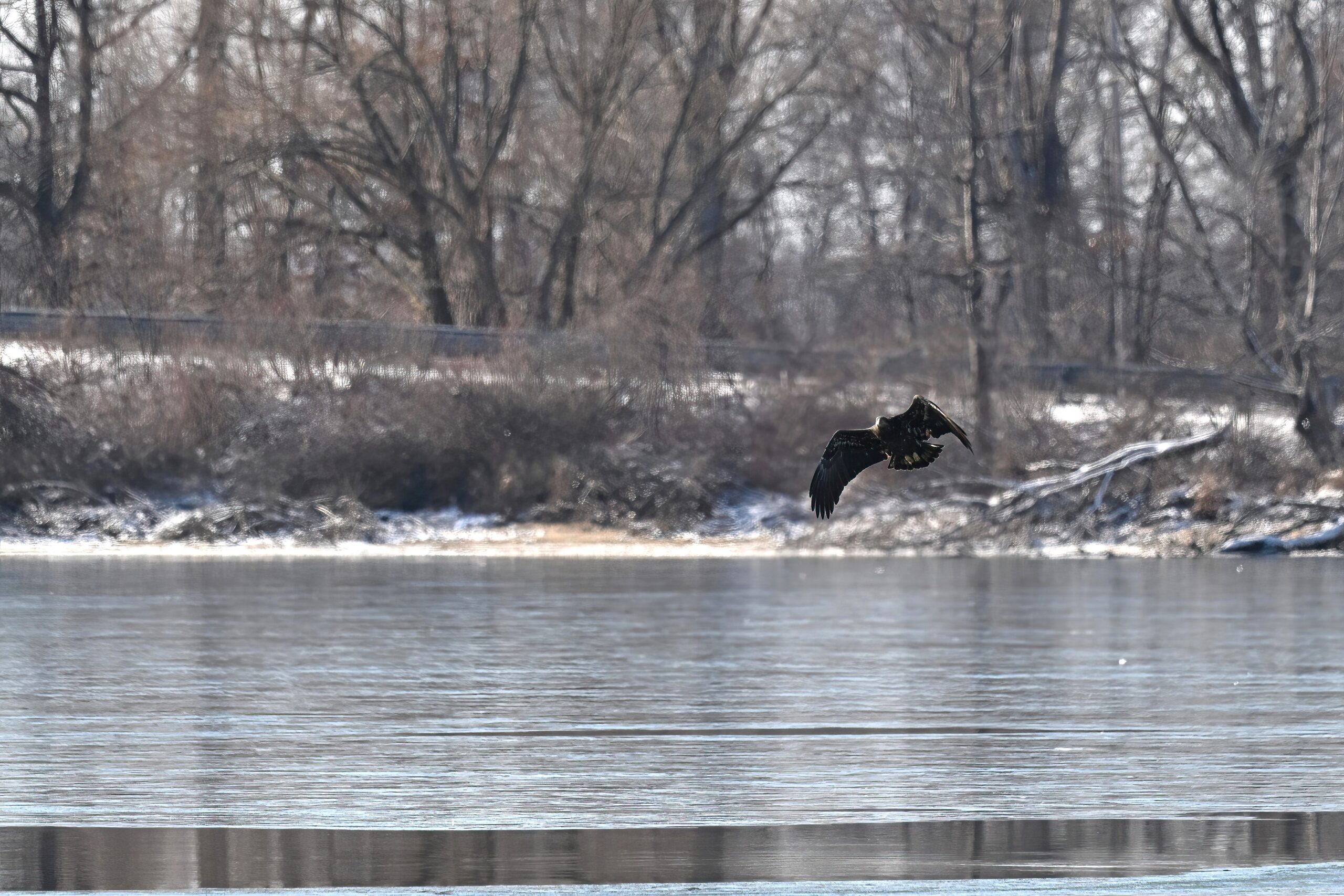
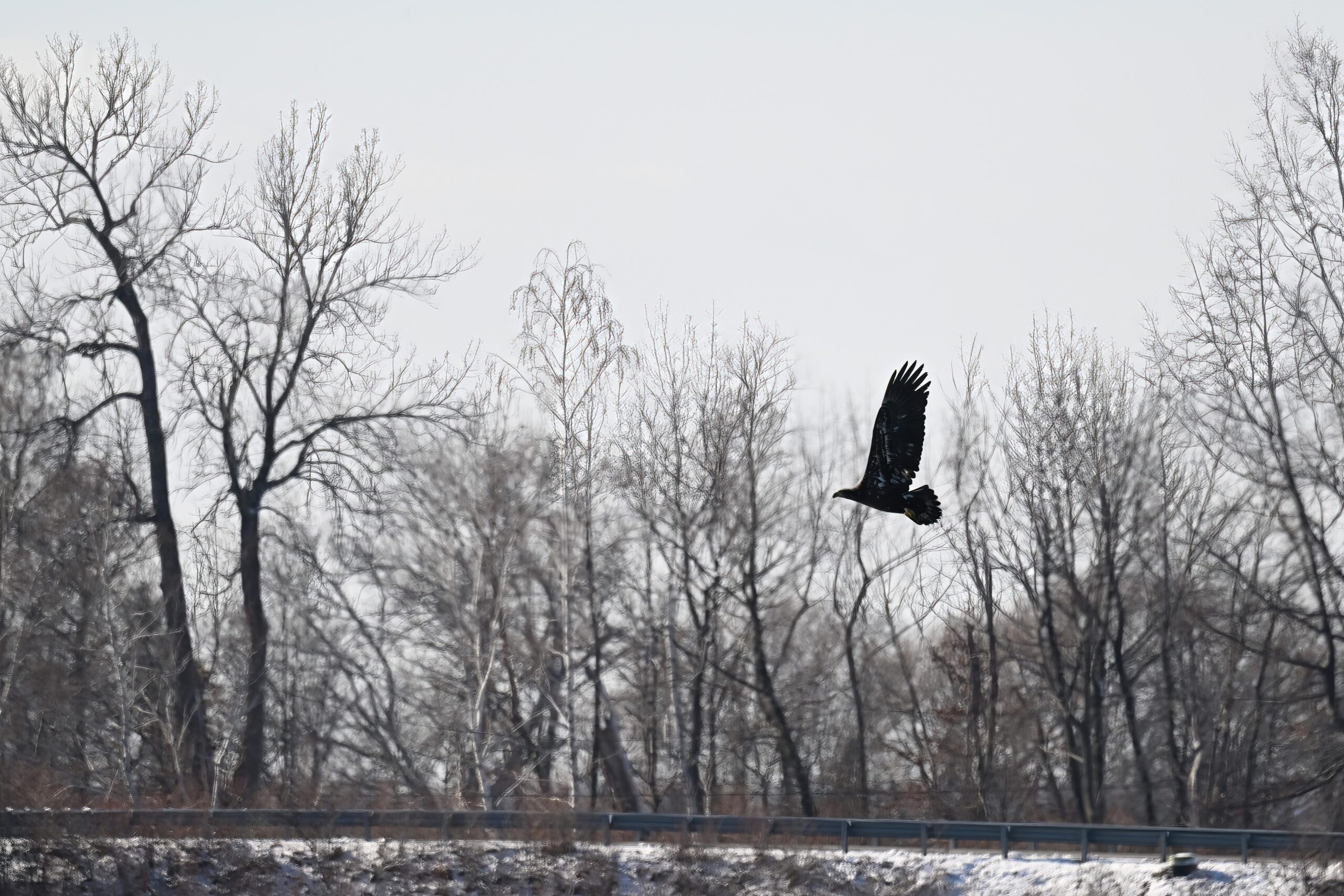
Run 2:
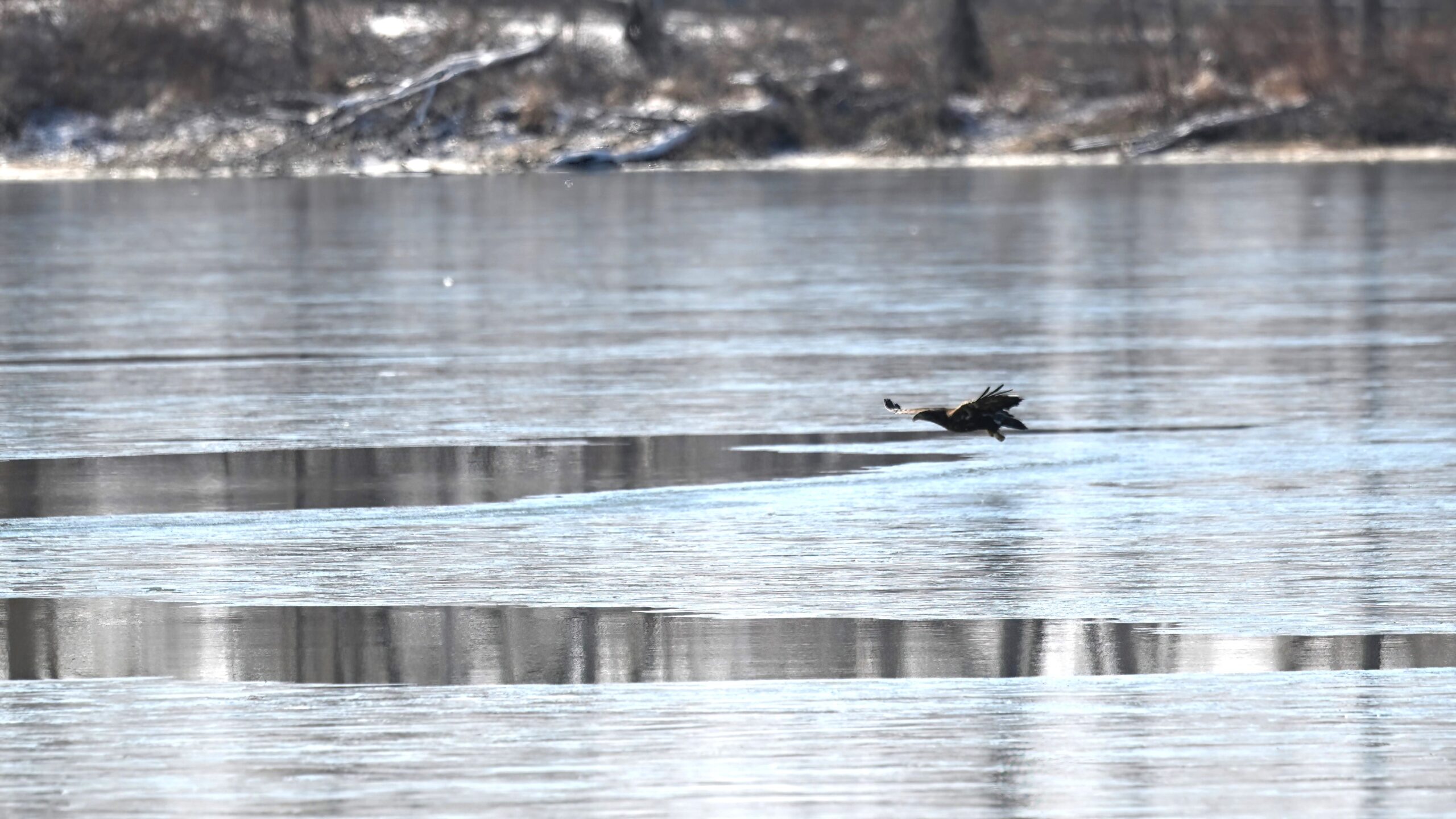
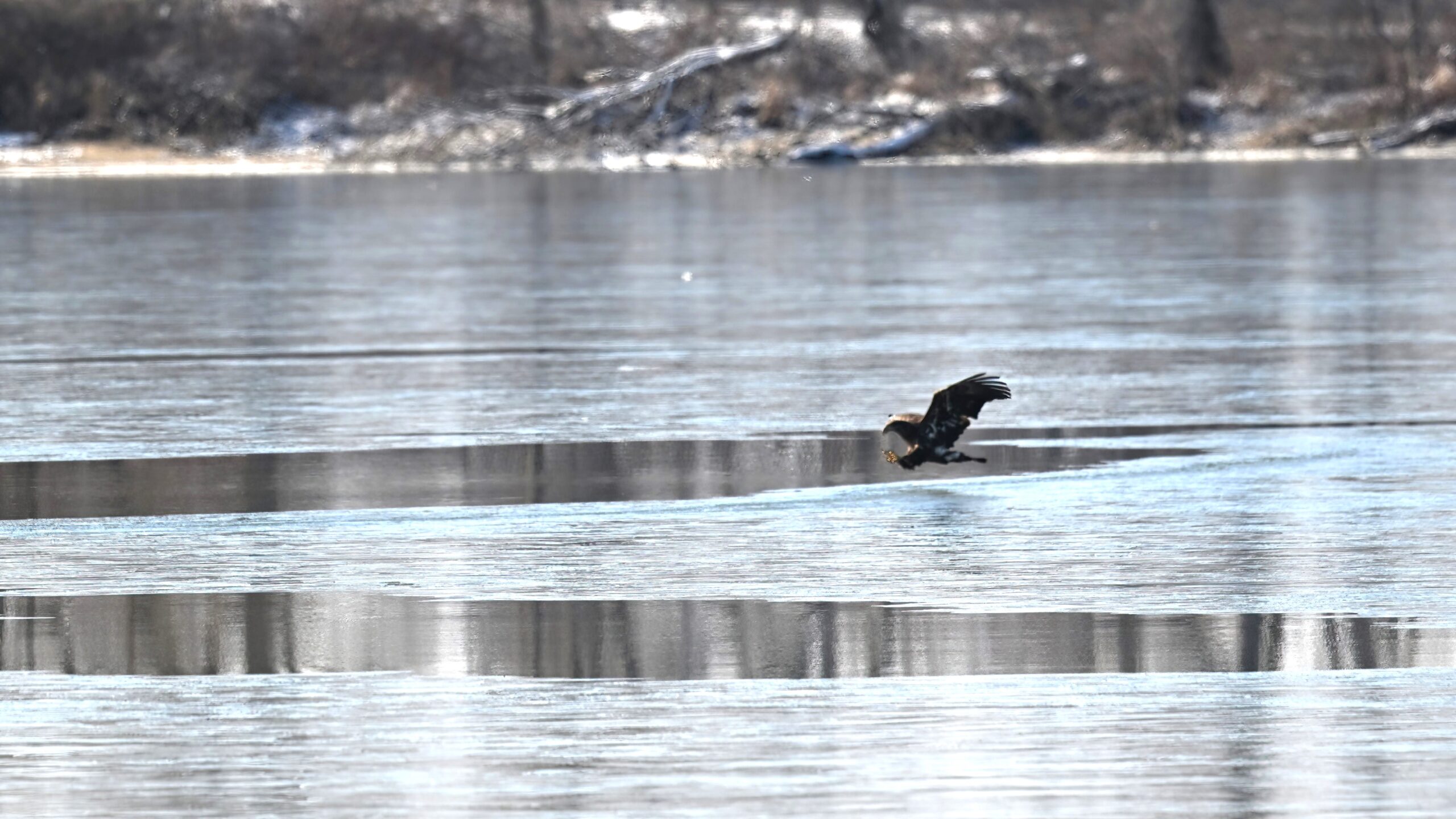
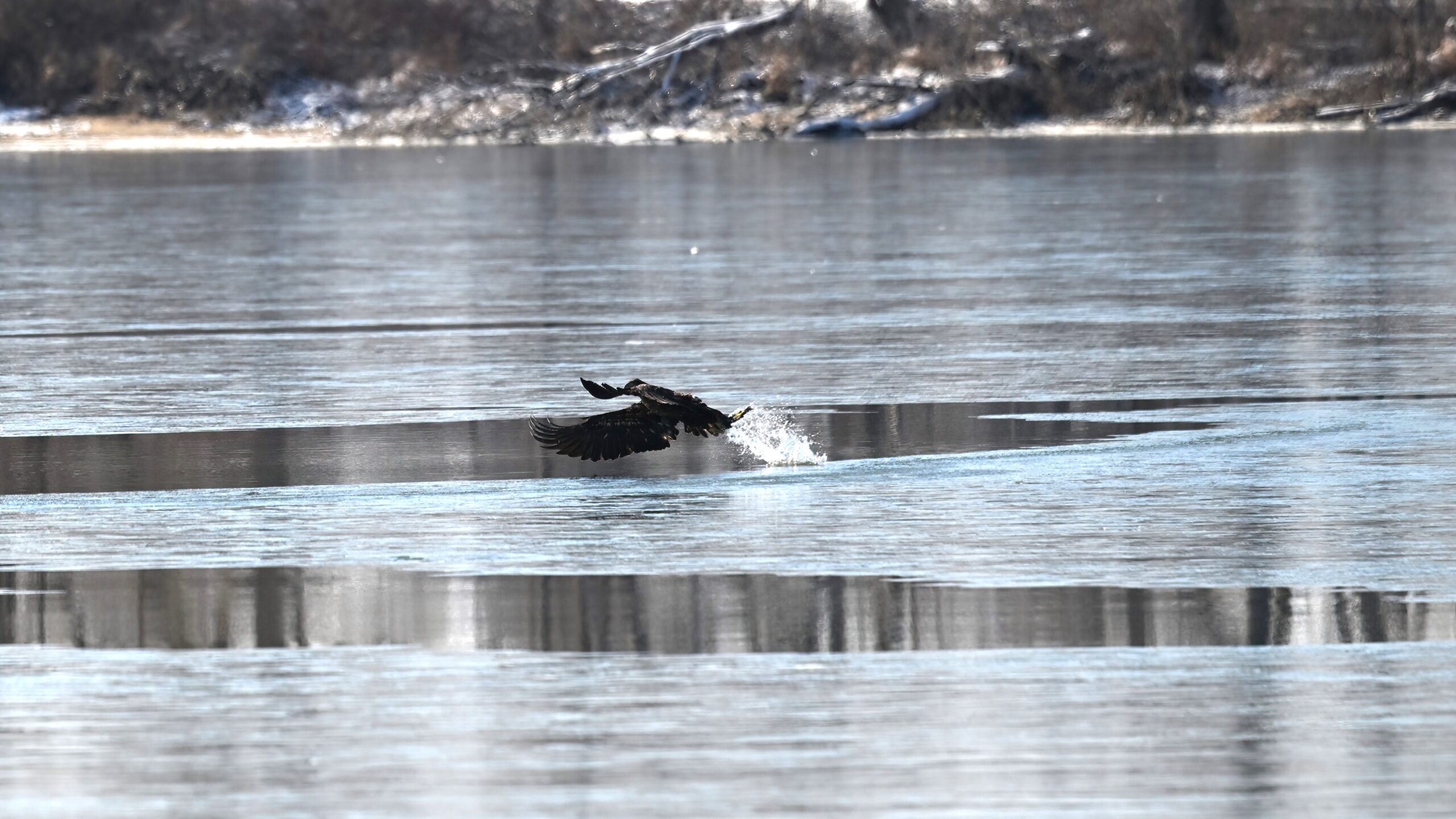
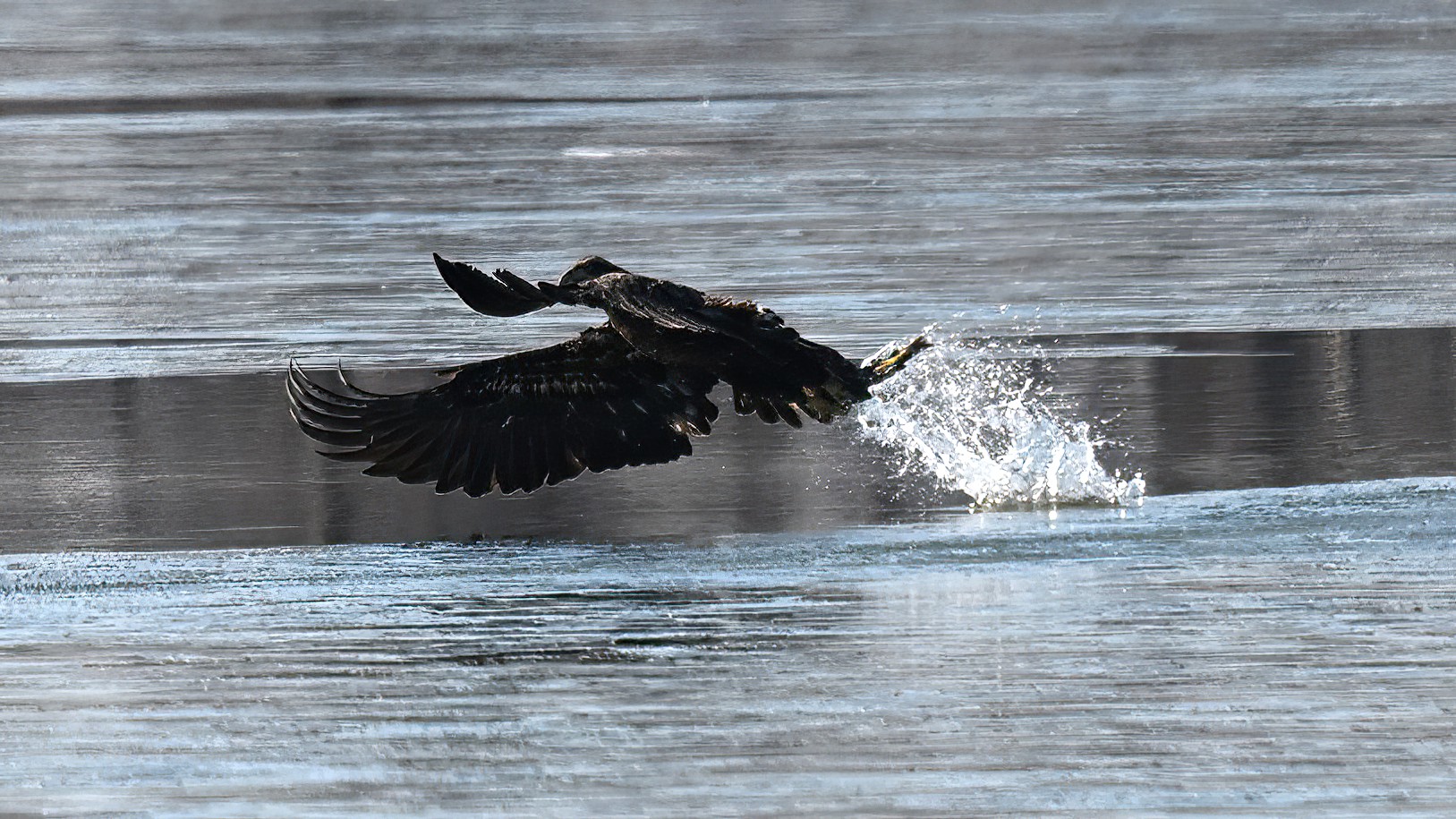
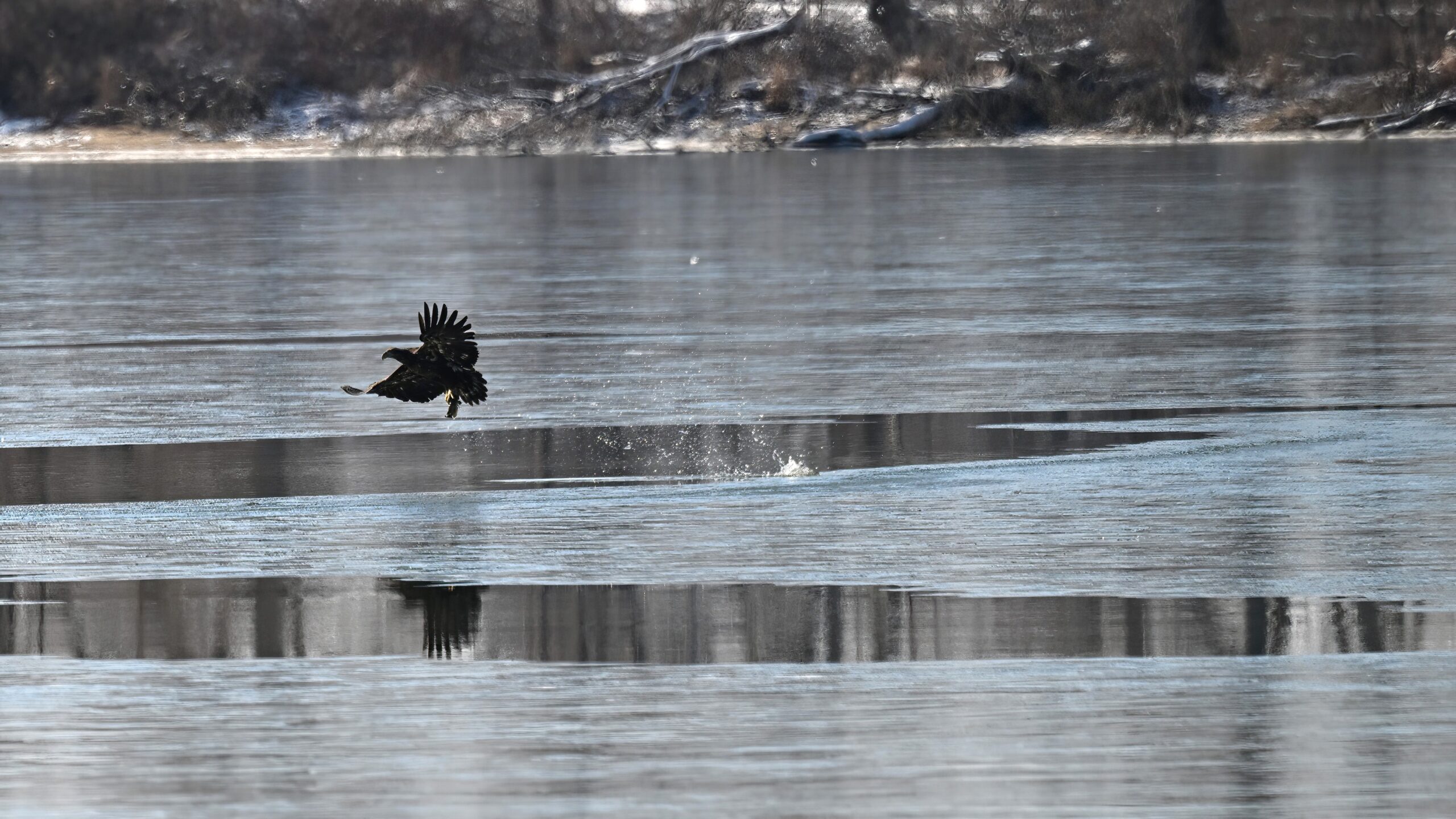
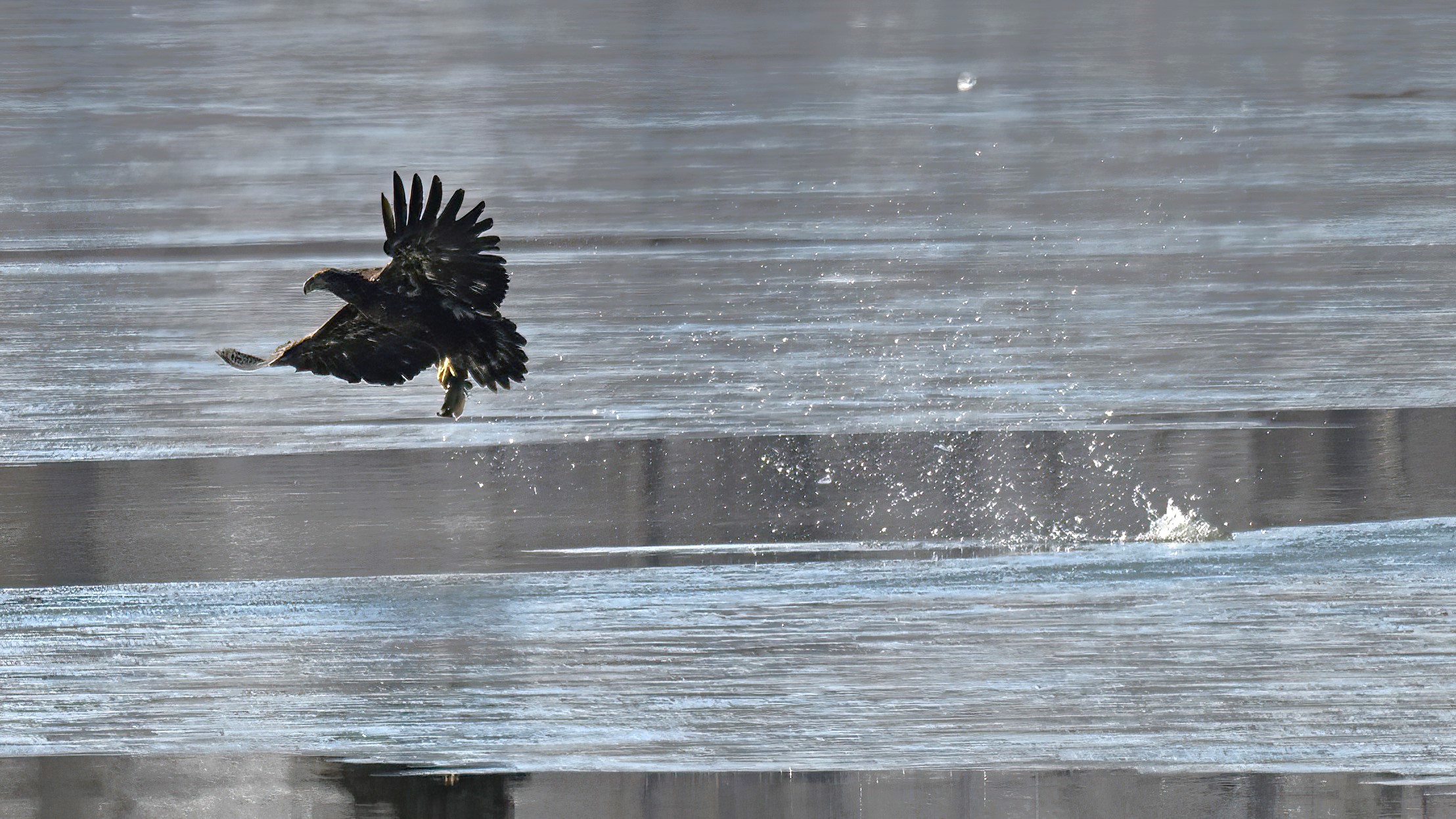
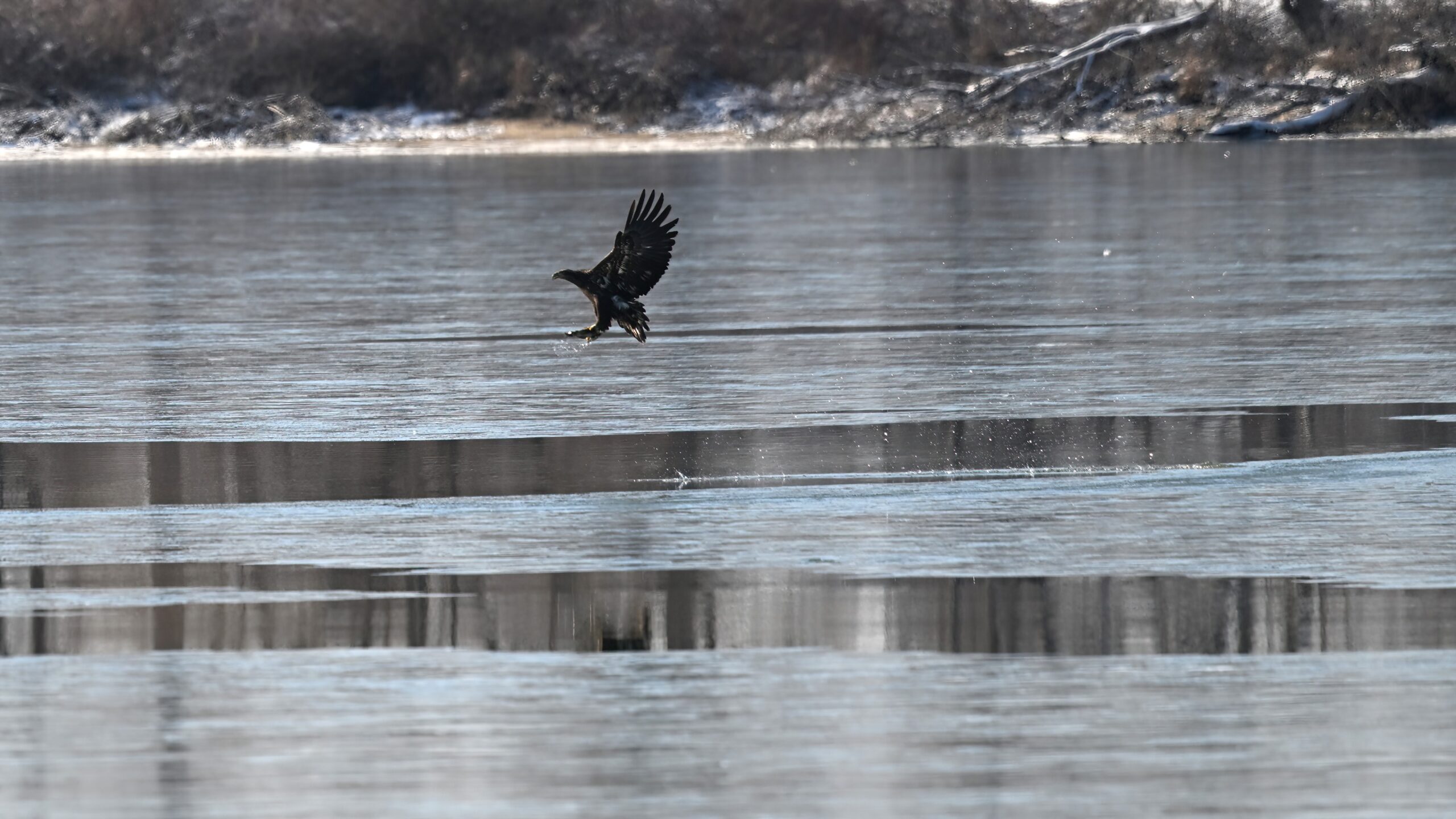
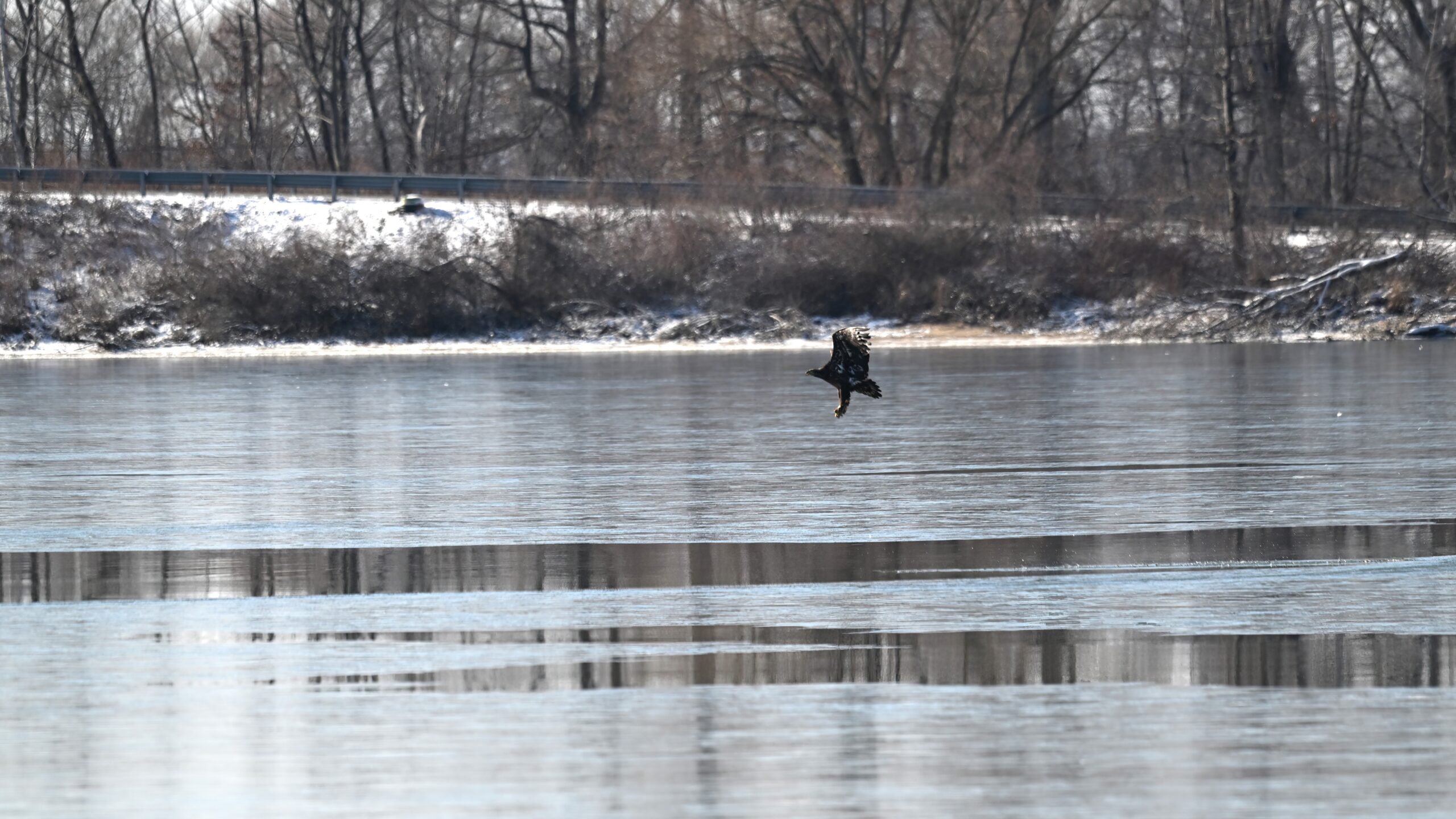
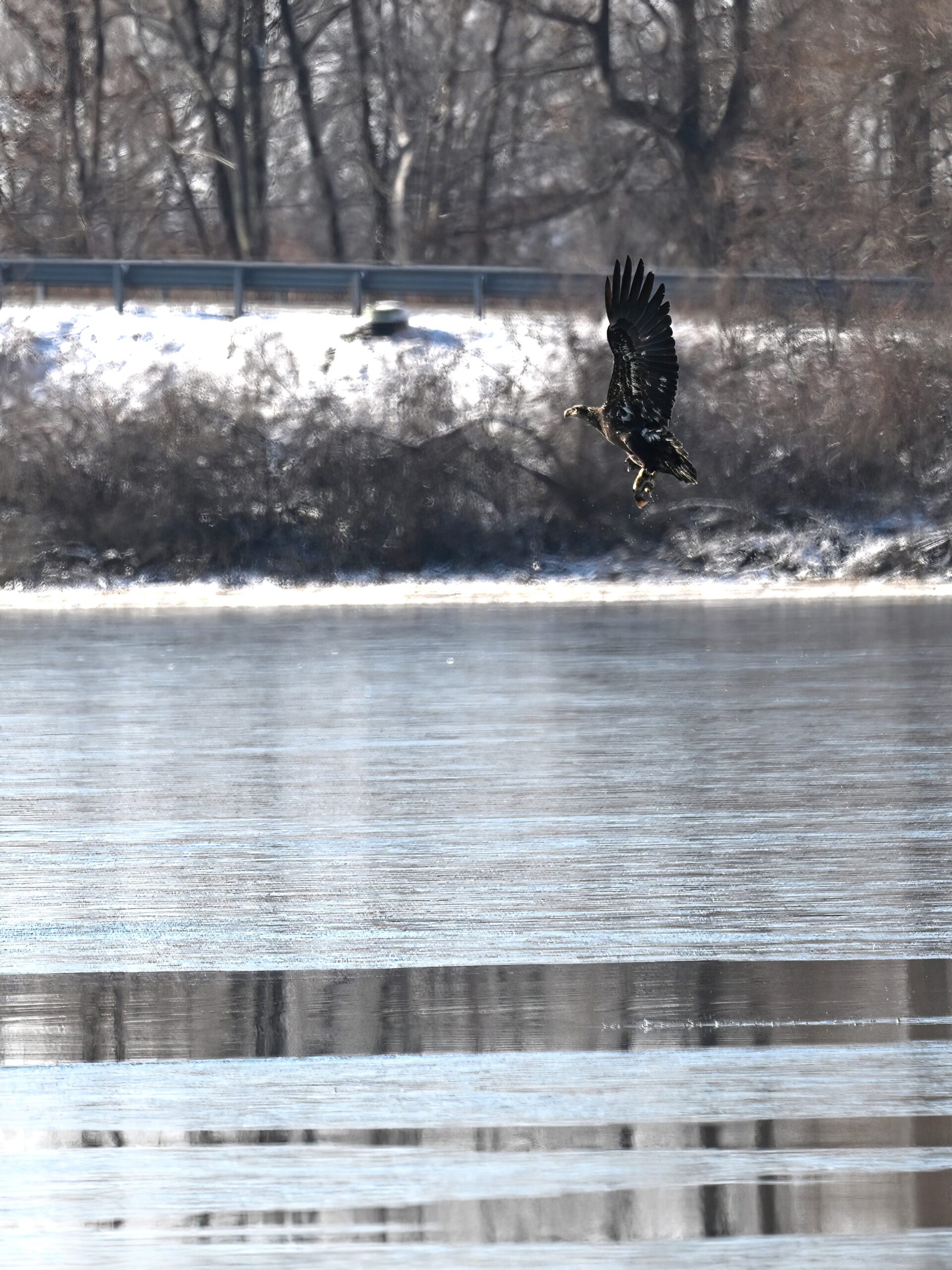
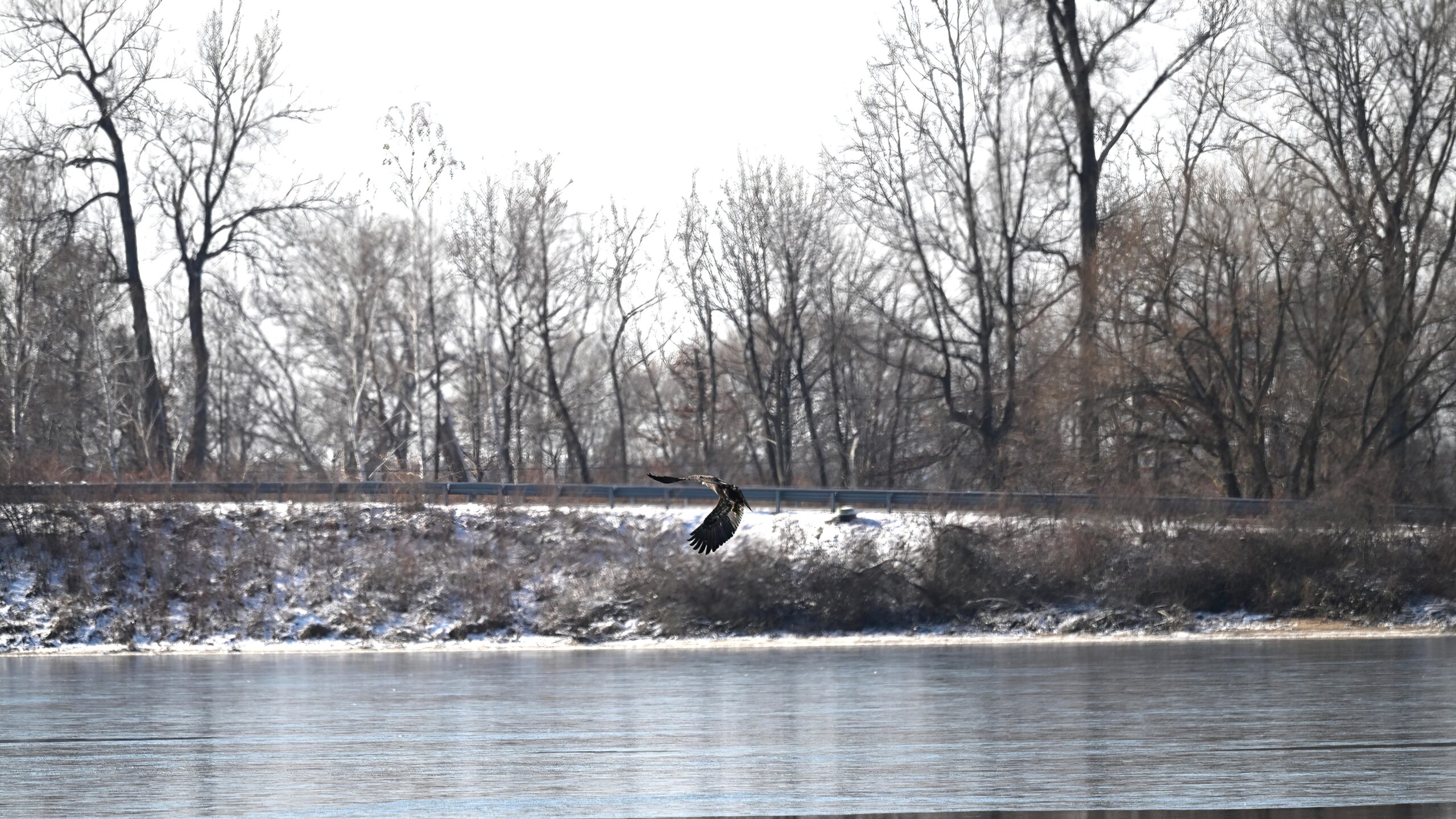
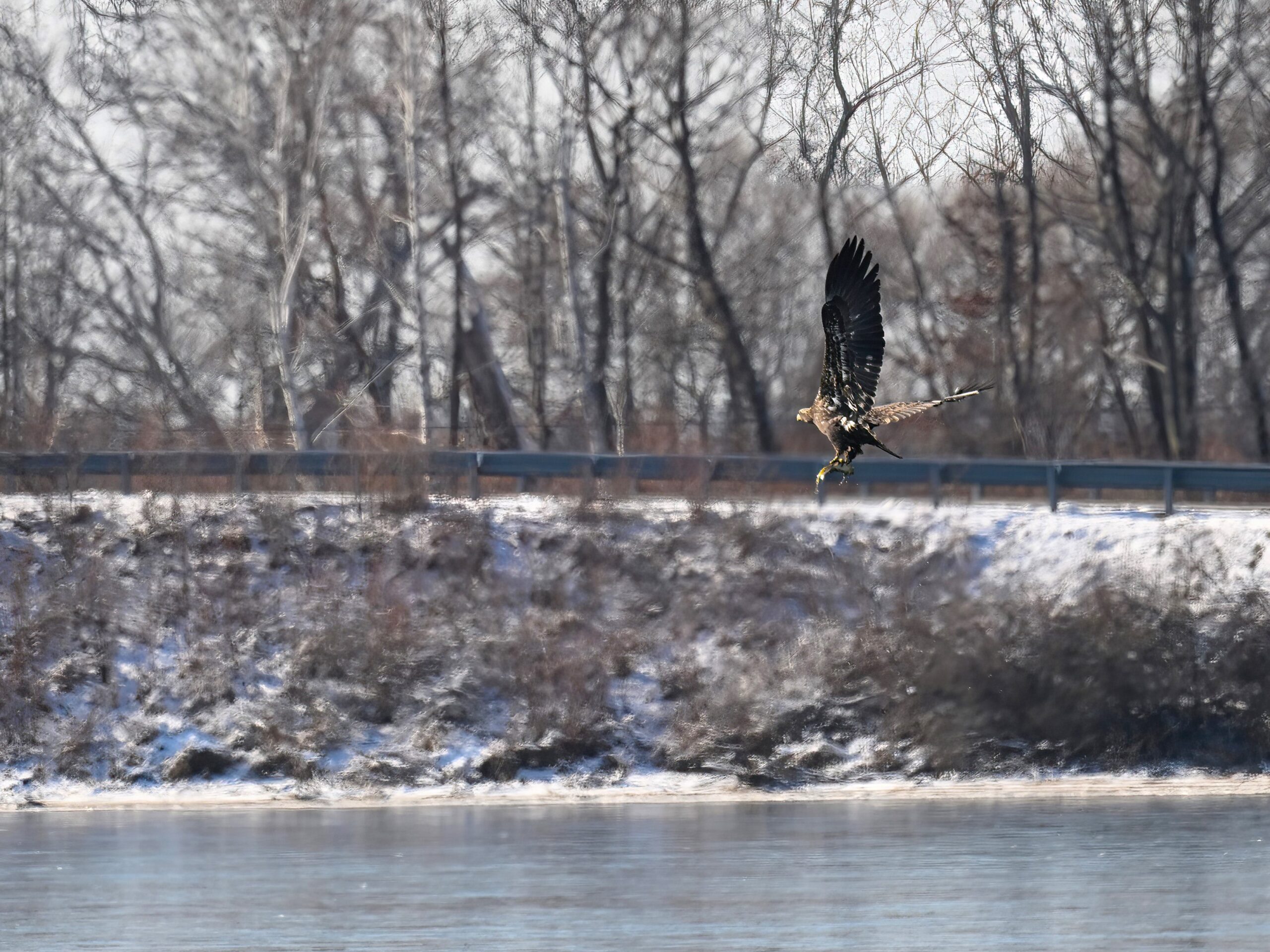
From here, looked like it flew off to the tall trees along the Ridge Trail – known Bald Eagle “hang out” spot.
Doesn’t get much better than Bald Eagle/hunting. #nature
[Photo Editor’s note: tough conditions due to distance, lighting, etc. = not the best shots ever. Still, fun to see.]
[* Editor’s note: “Hot damn” appears to be a literary embellishment. Seems unlikely anyone says “hot damn.”]
Please enjoy peaceful Tundra Swan content from Sunday:
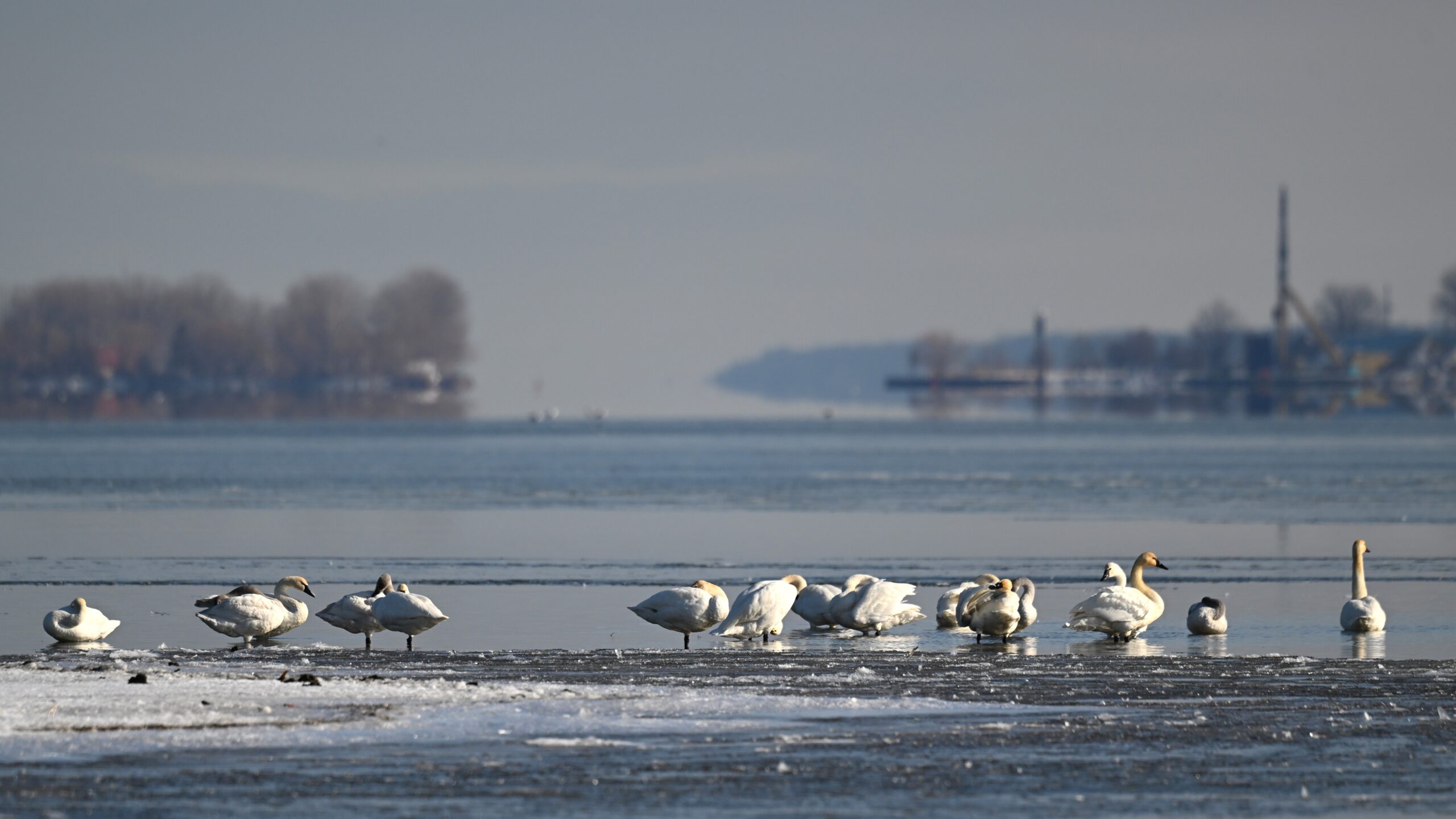
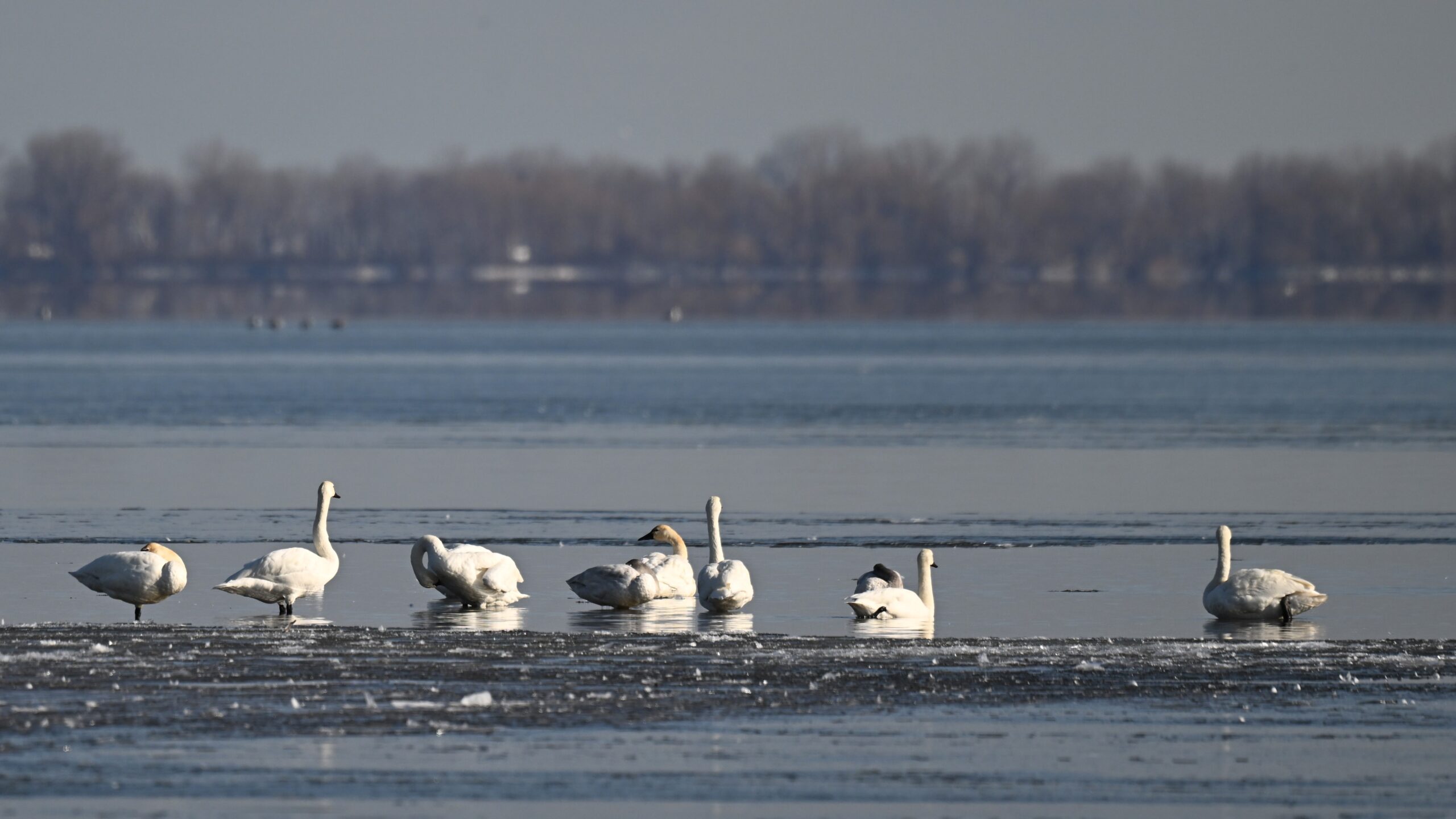
All content @ Presque Isle State Park, Erie County, PA. Taken near Feather Platform.
[Editor’s Note: shot above, background: looking east at entrance to Presque Isle Bay, with South Pier to the right and North Pier to the left.]
With the BirdingPI.com team out scouring Presque Isle State Park this weekend for interesting wildlife (spoiler alert: Great Black-backed Gull!), only time for some recent, previously-unposted shots from Erie County, in the ‘grab bag’ category. #more_bird!
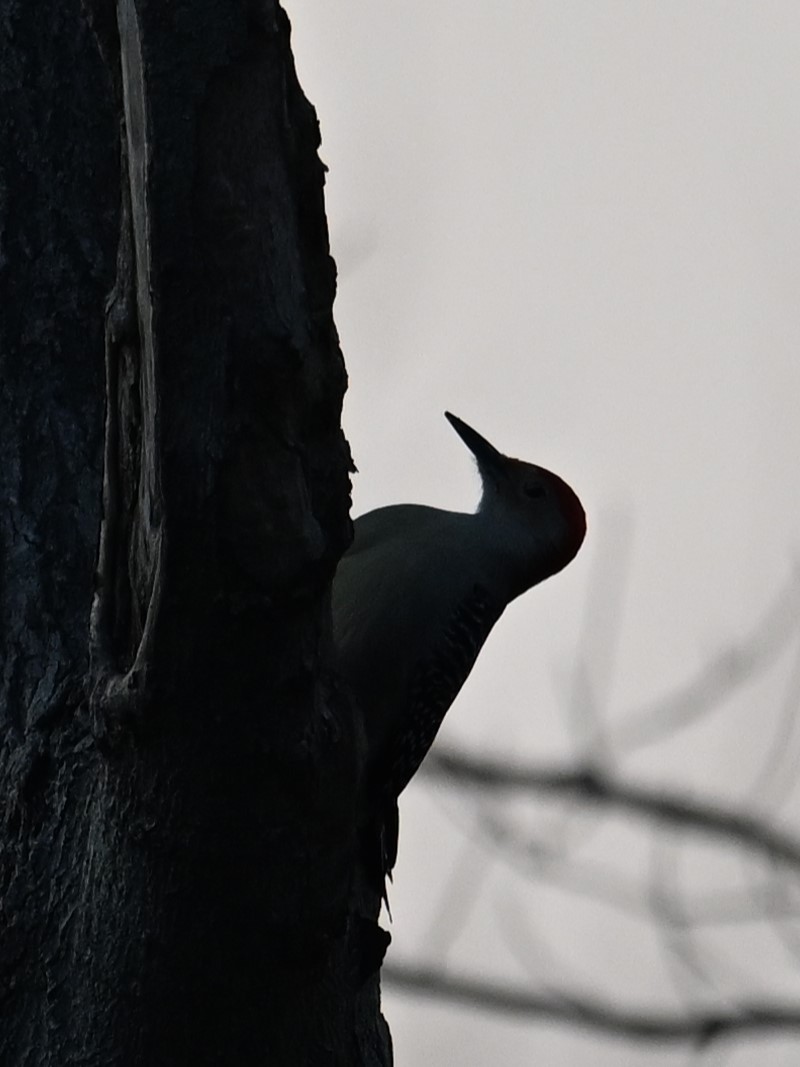
Common Merganser (f or immature male) over Presque Isle Bay:
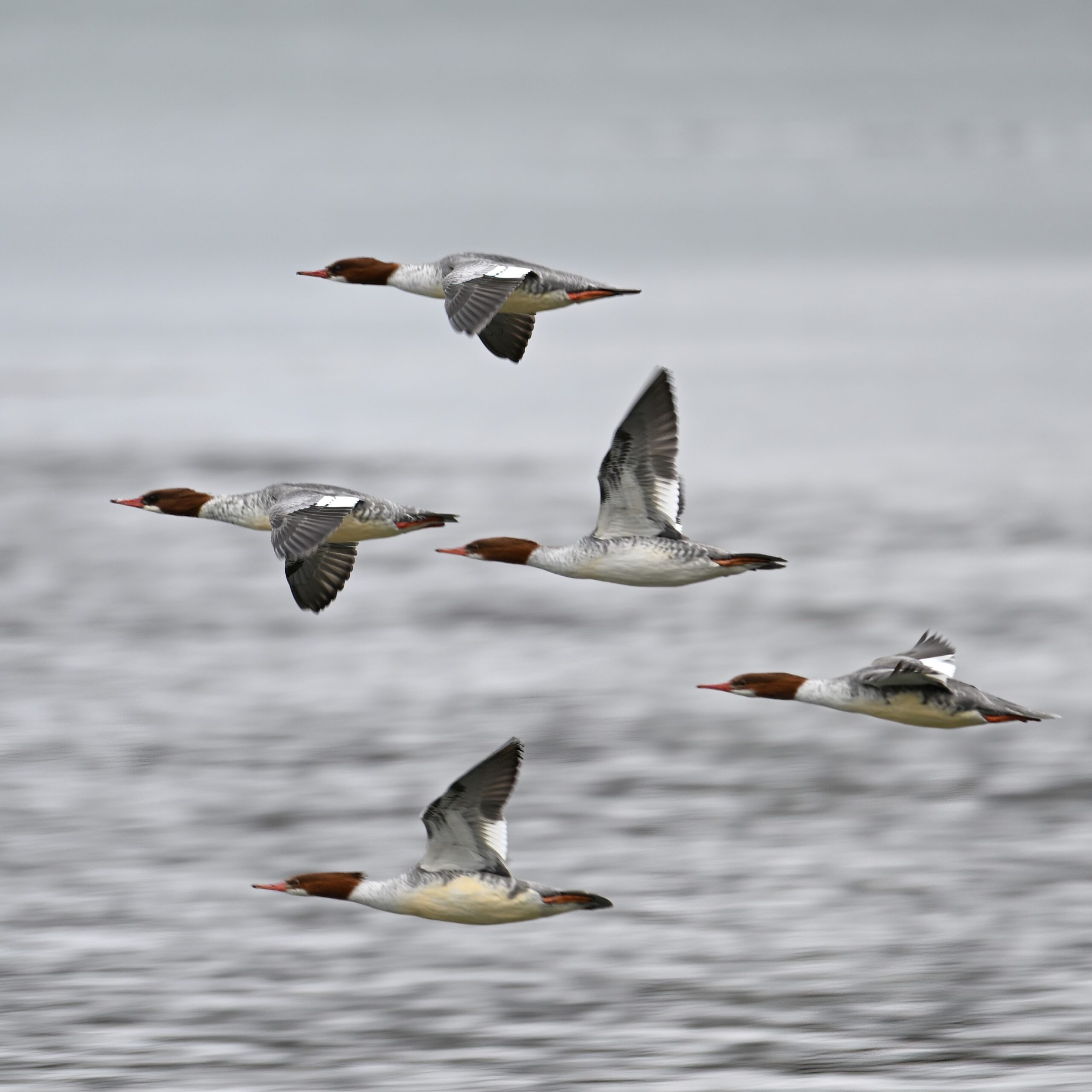
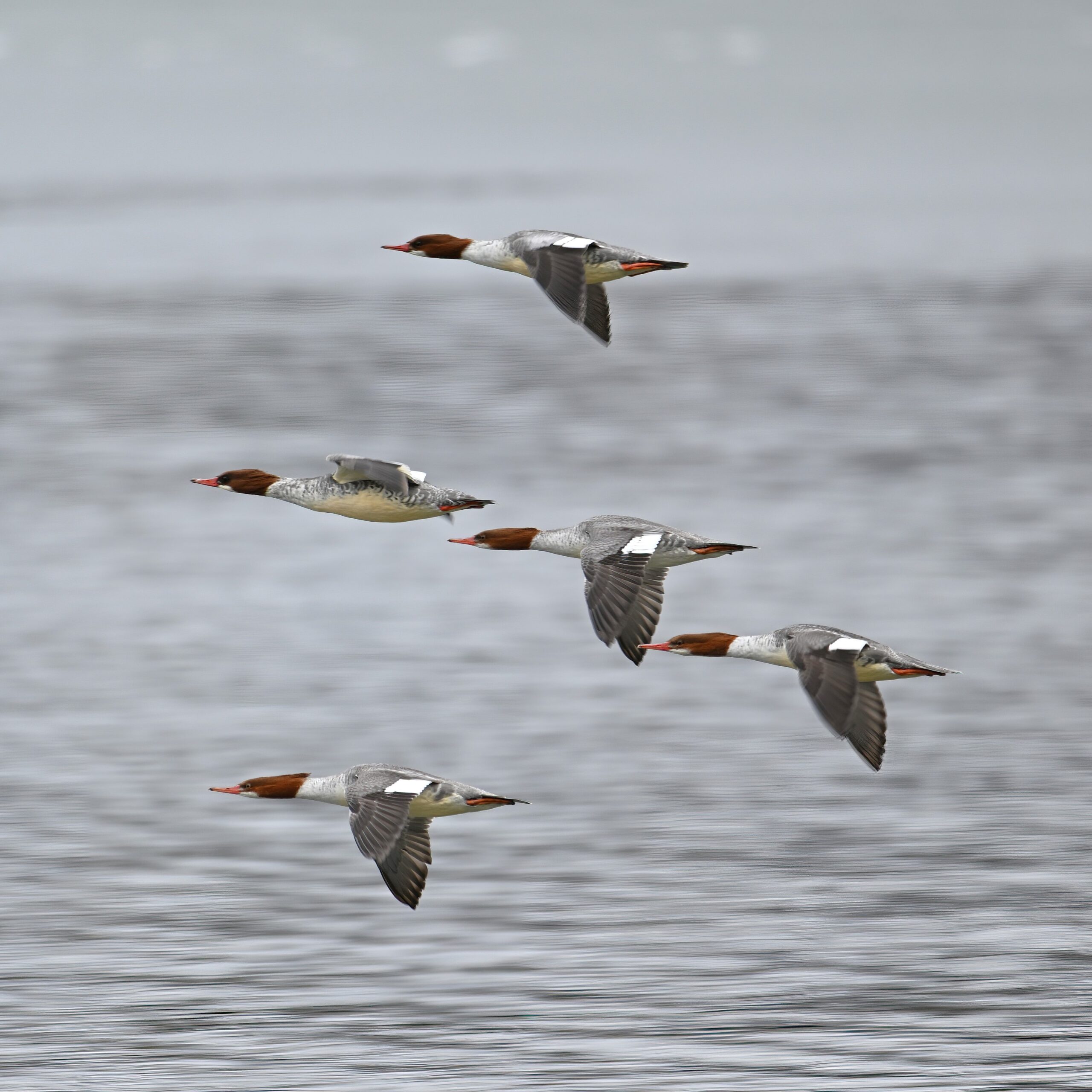
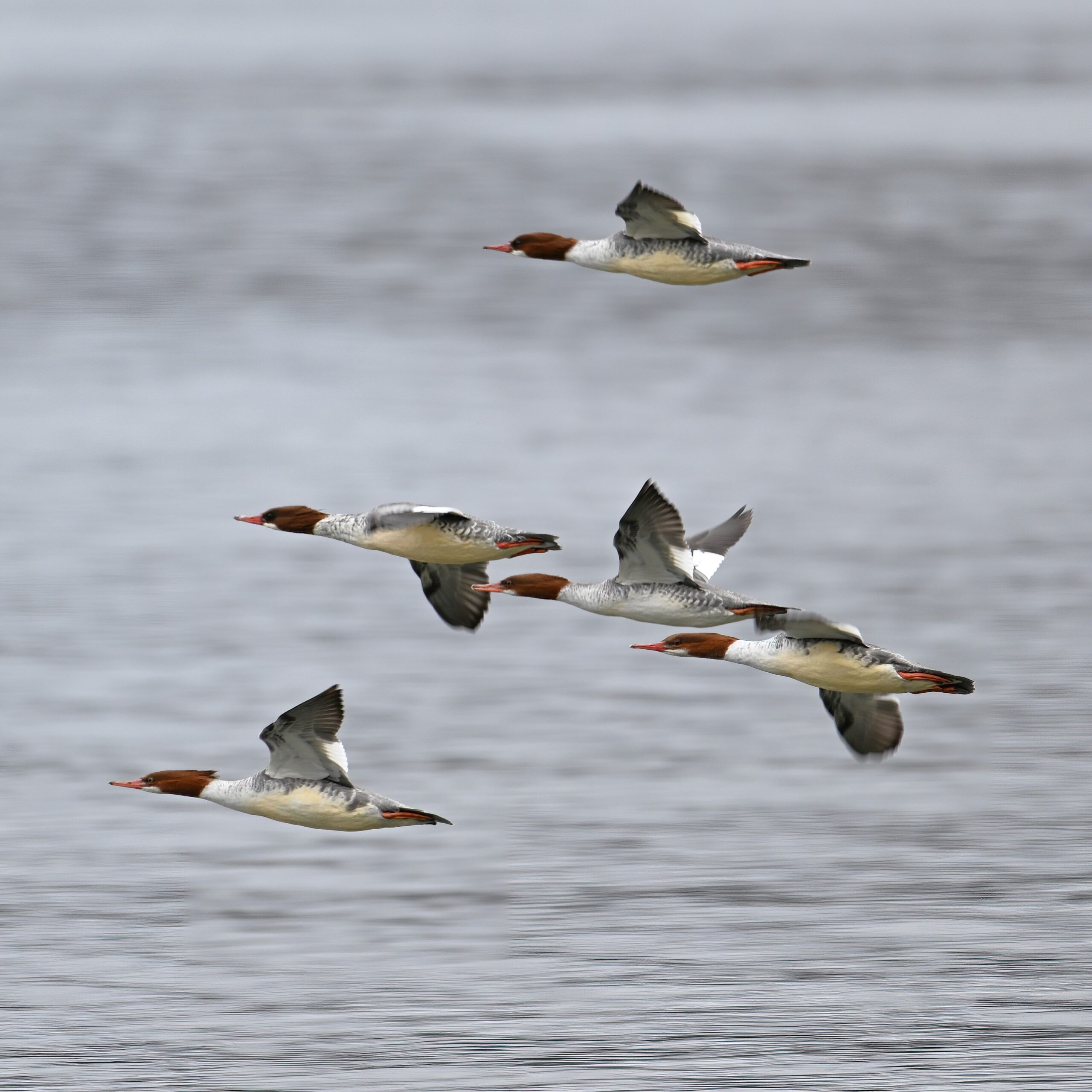
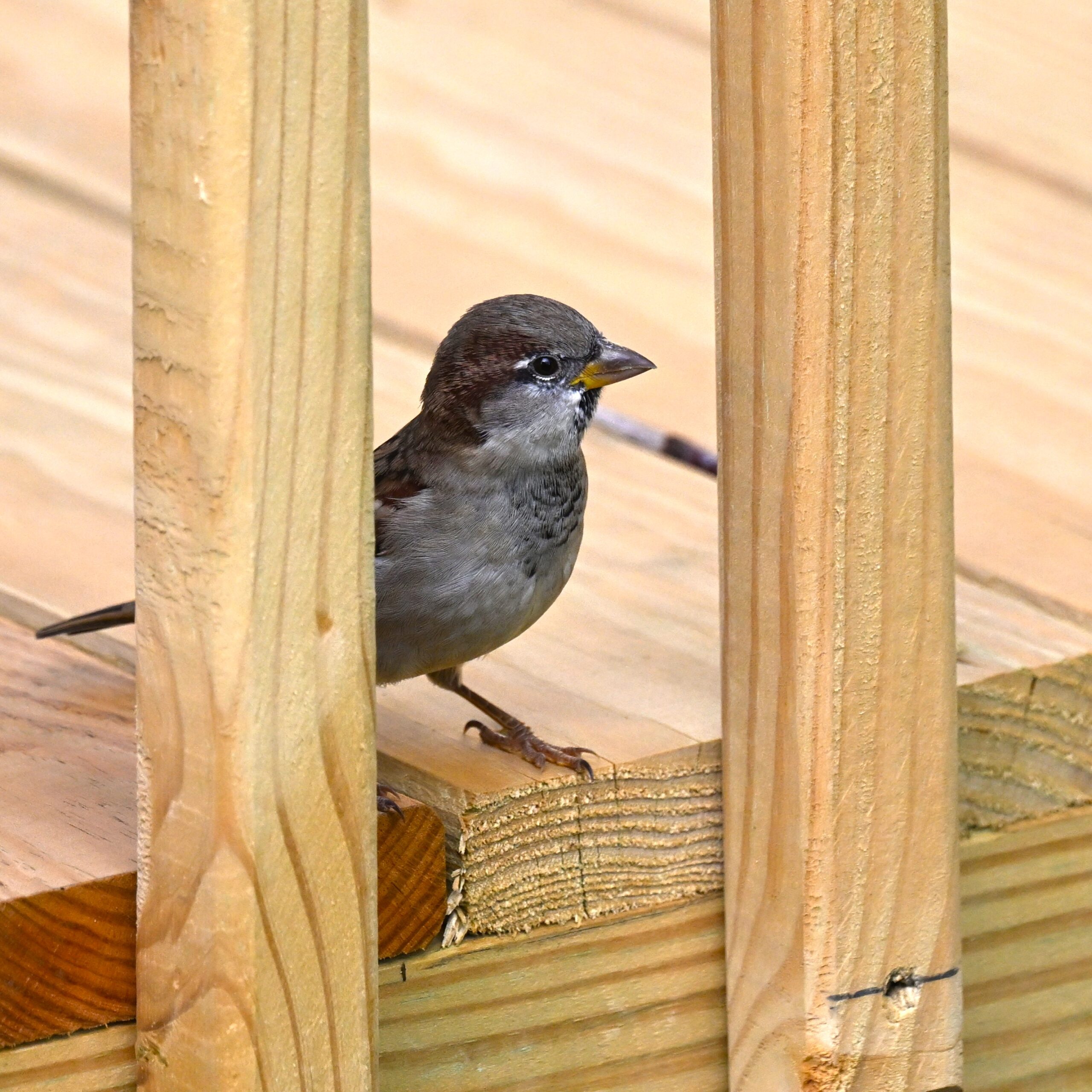
Ring-billed Gull vs. surf @ Budny Beach:
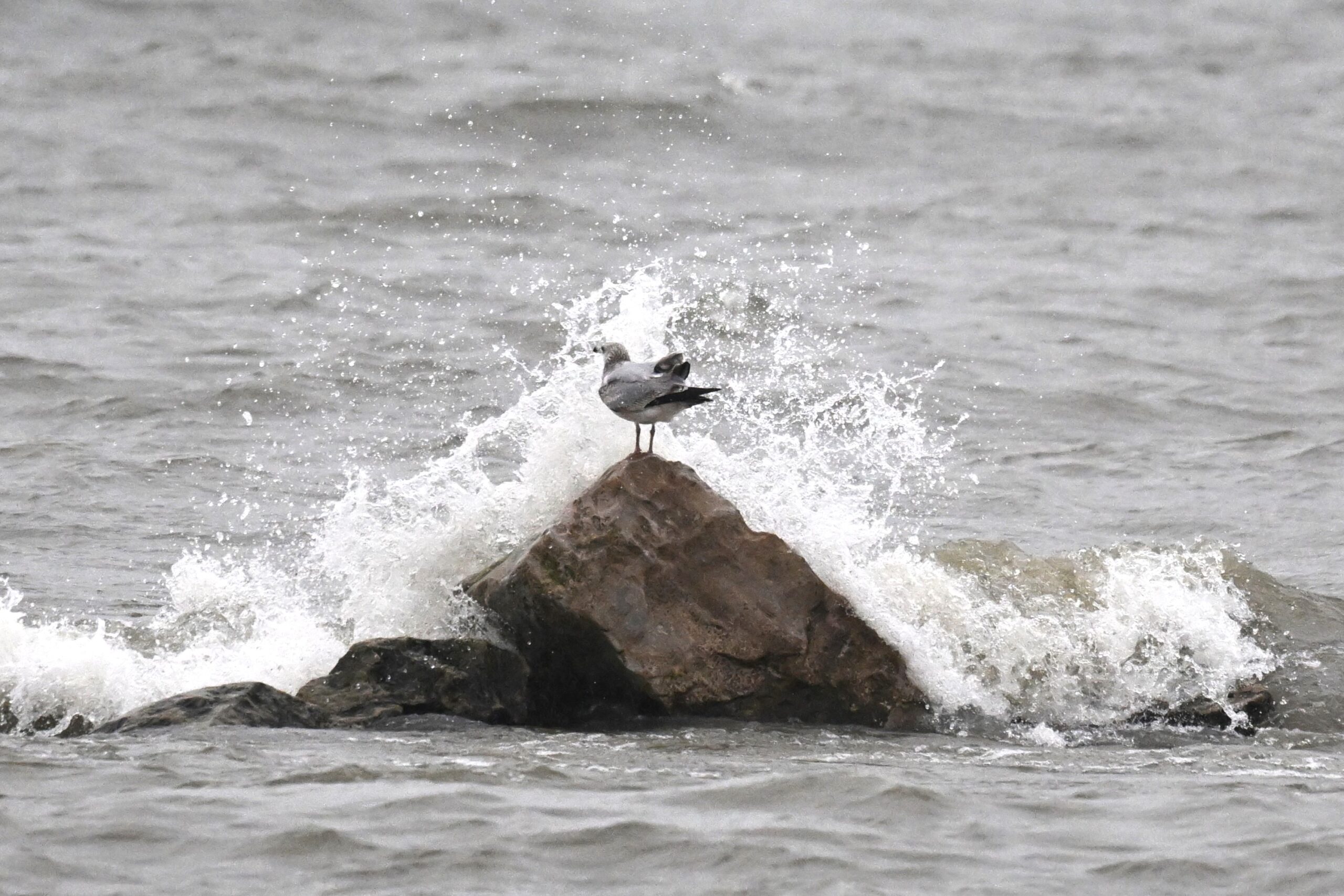
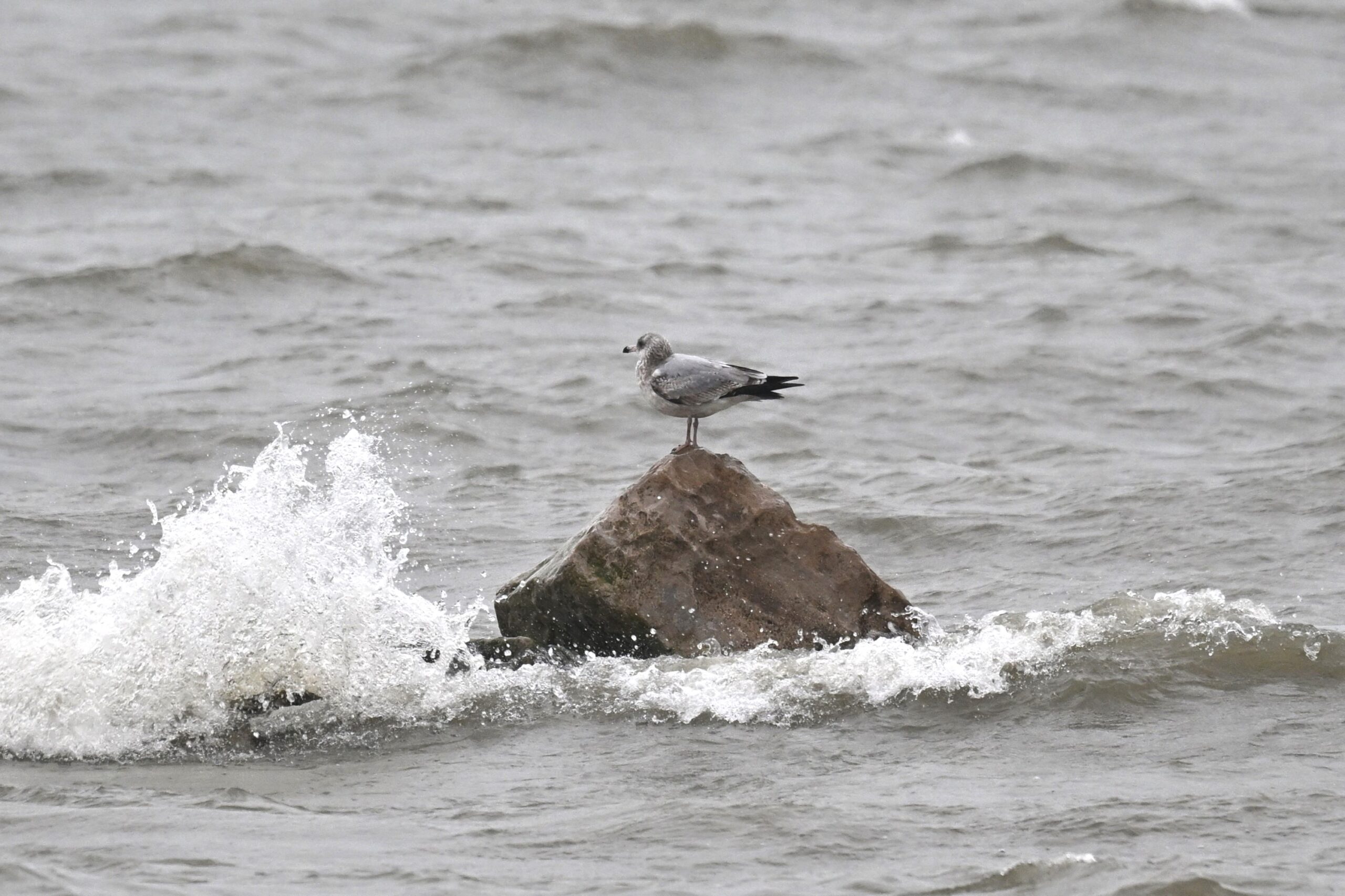
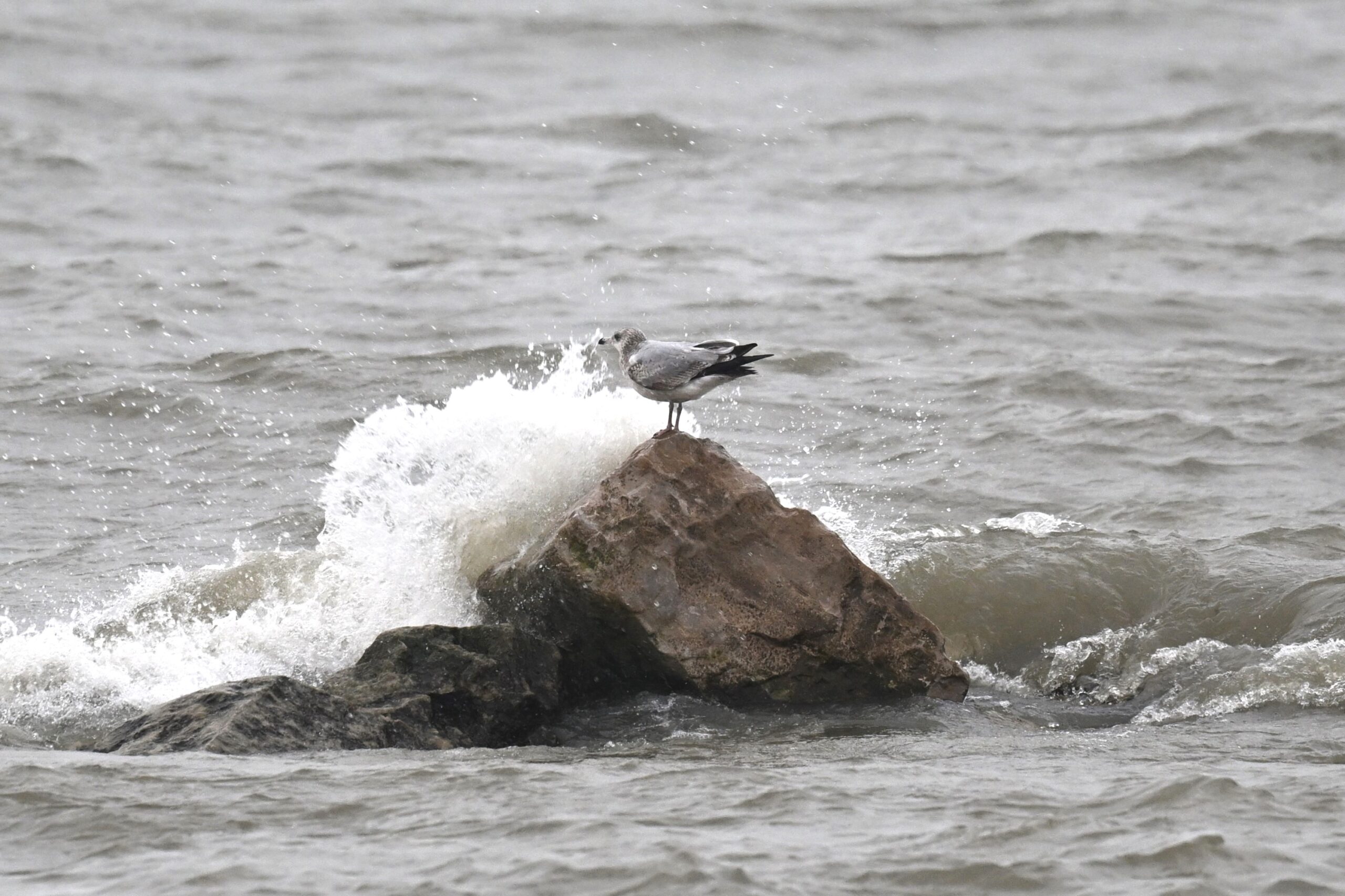
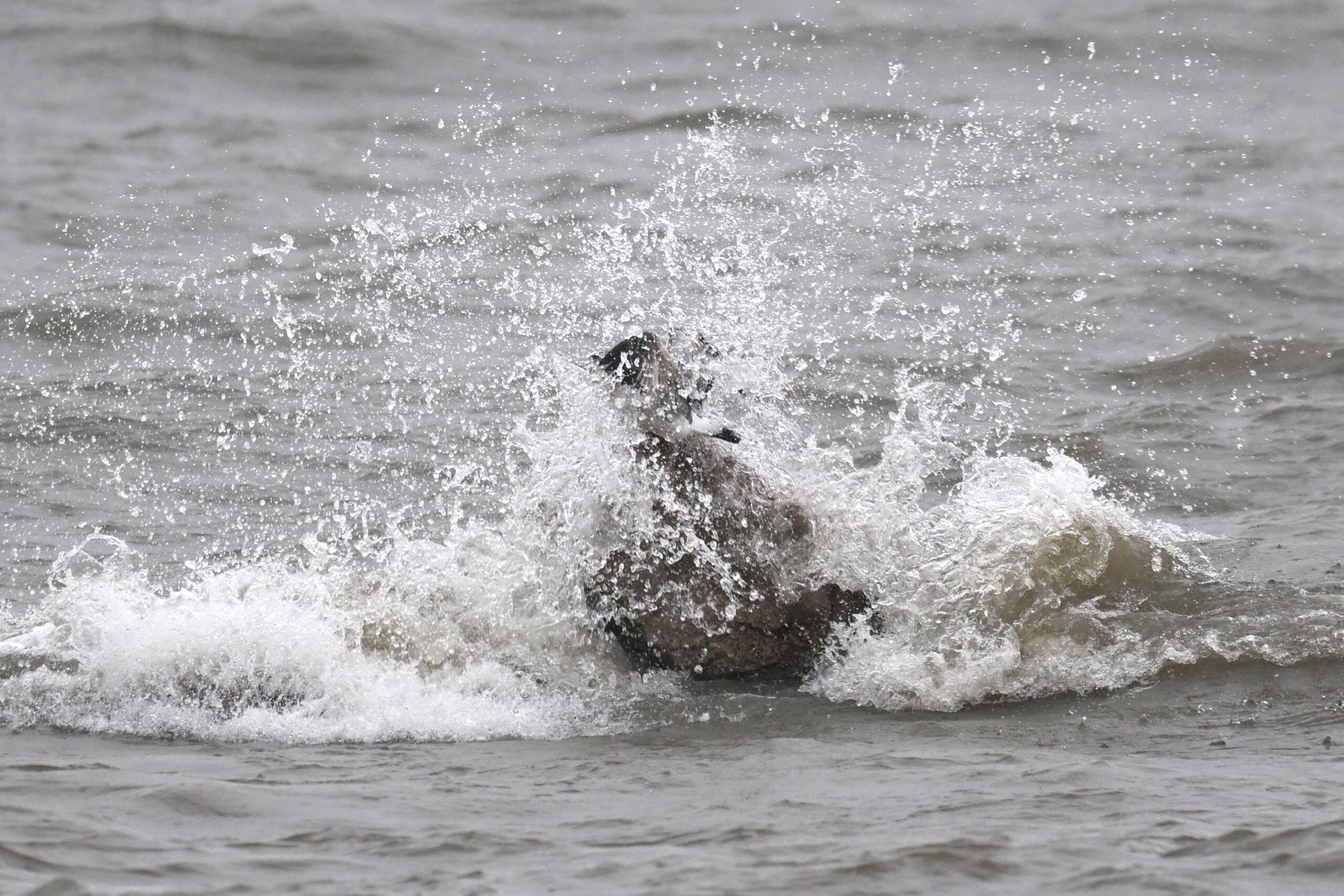
Funky exposure on some of these shots of European Starling at Presque Isle State Park by the ranger station:
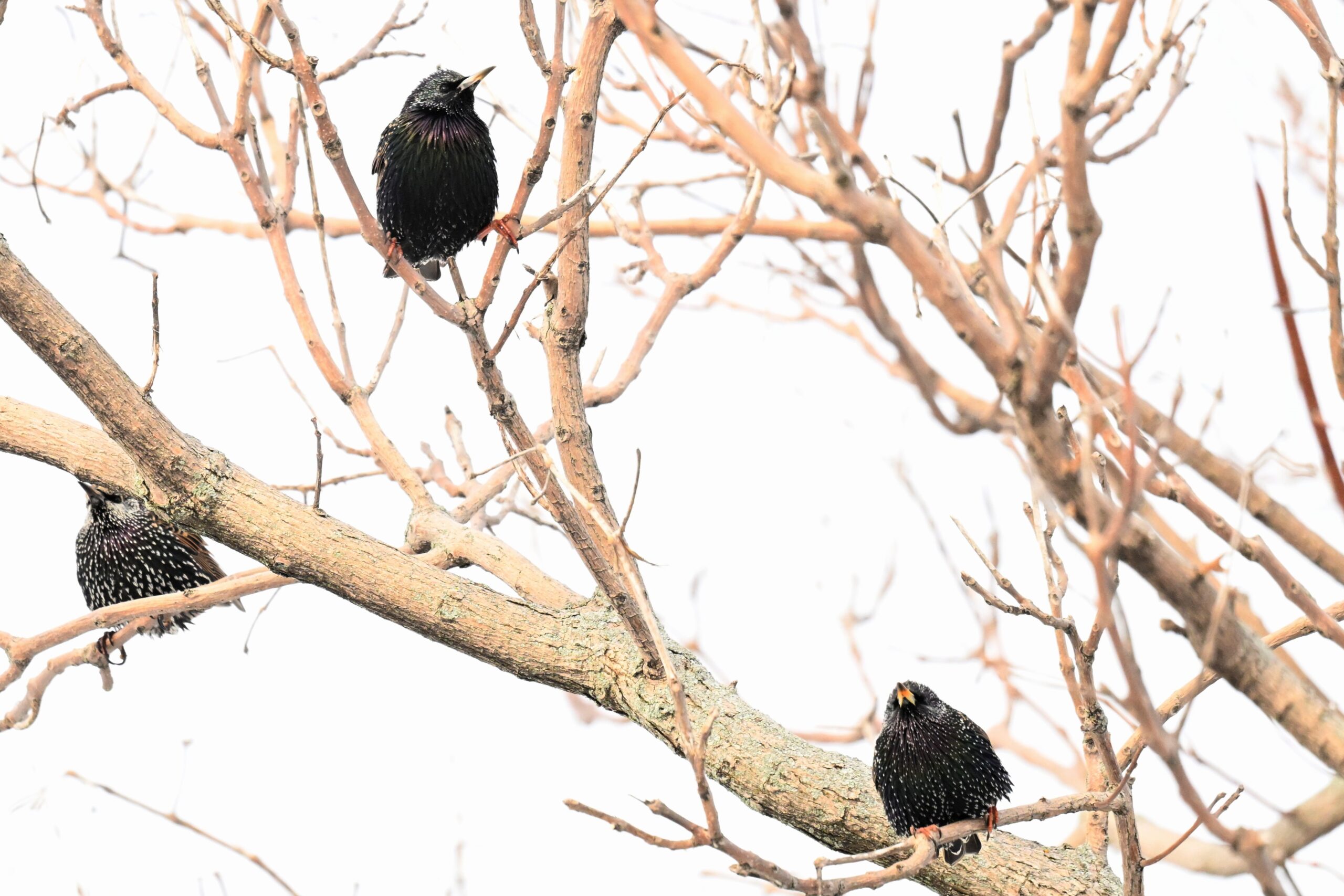
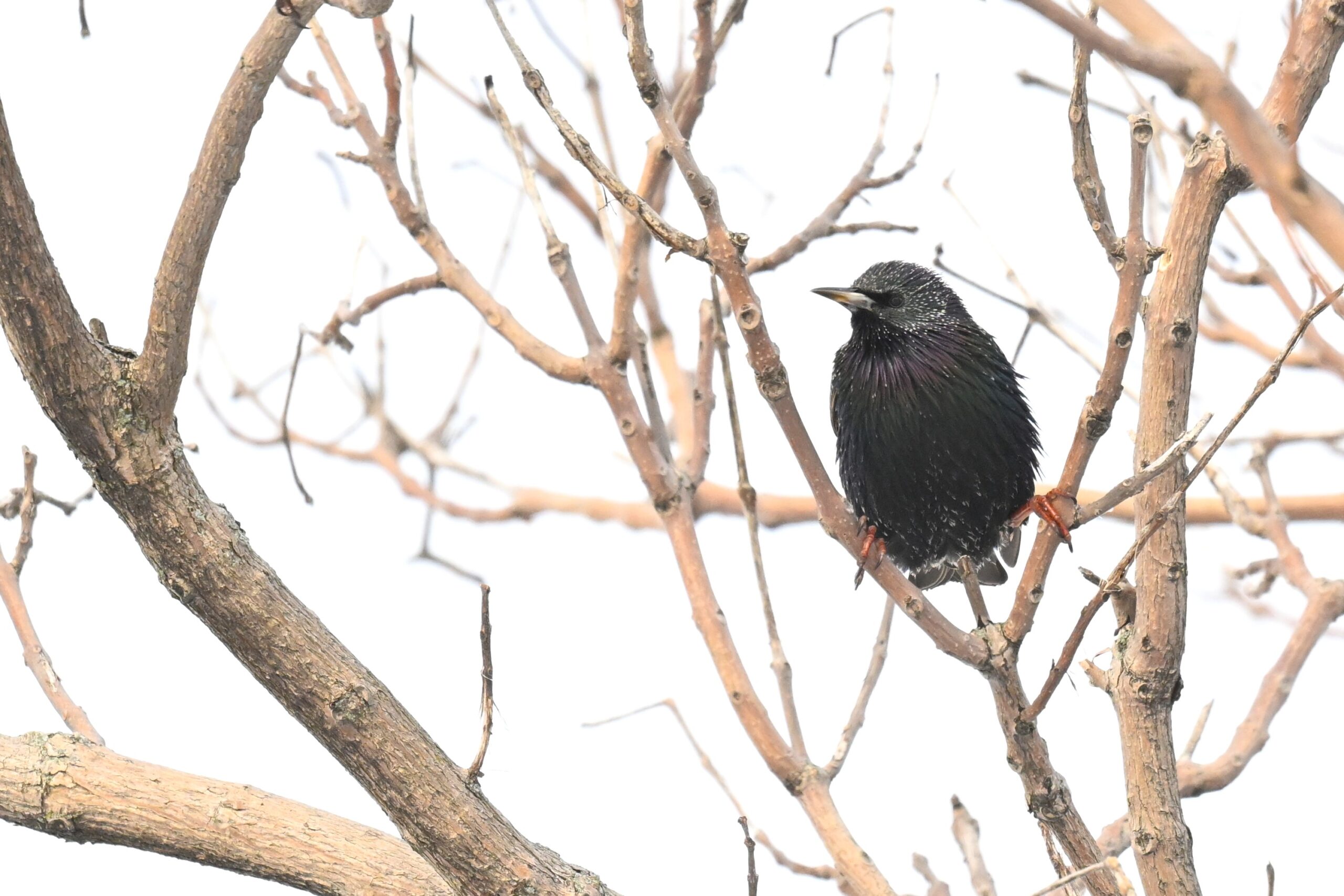
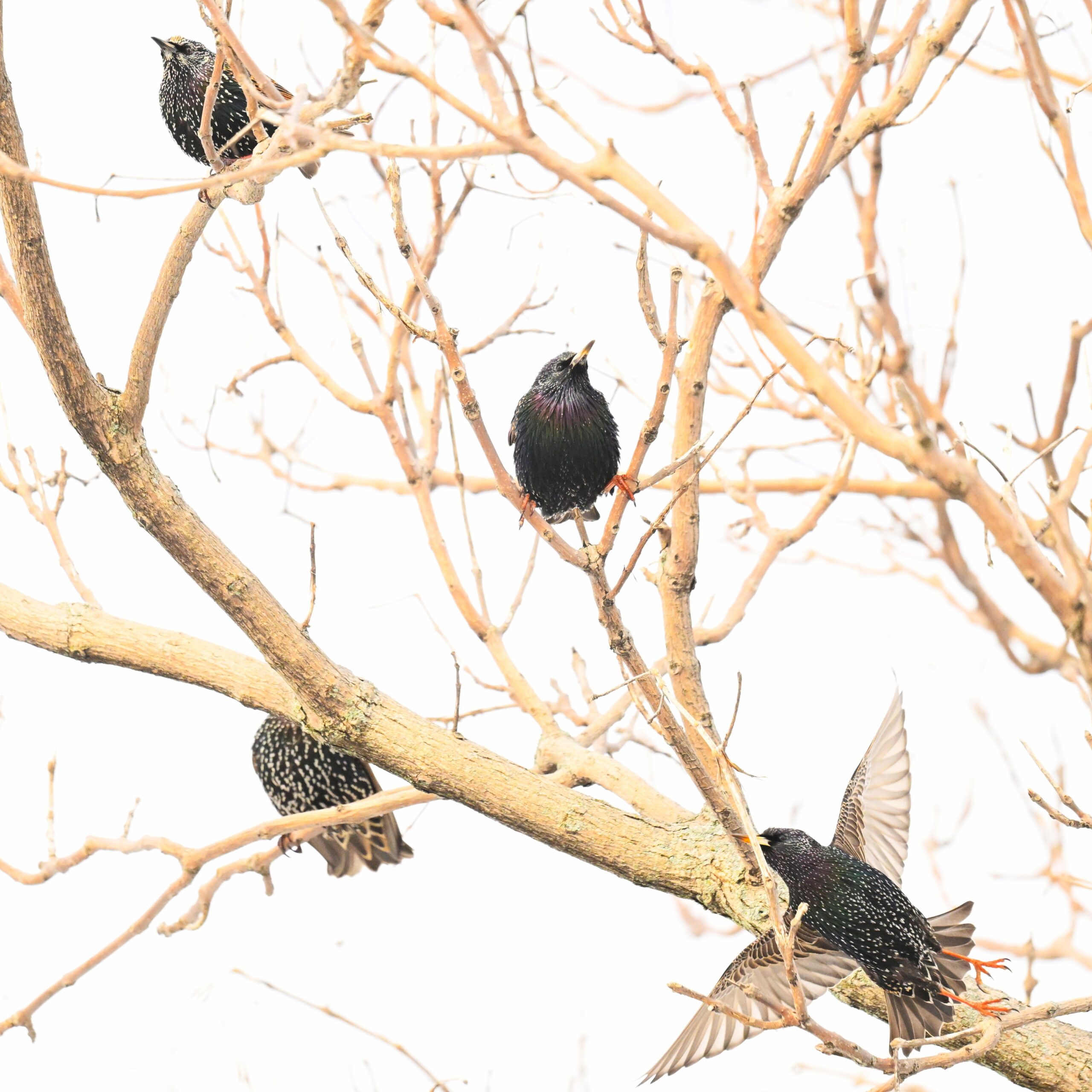
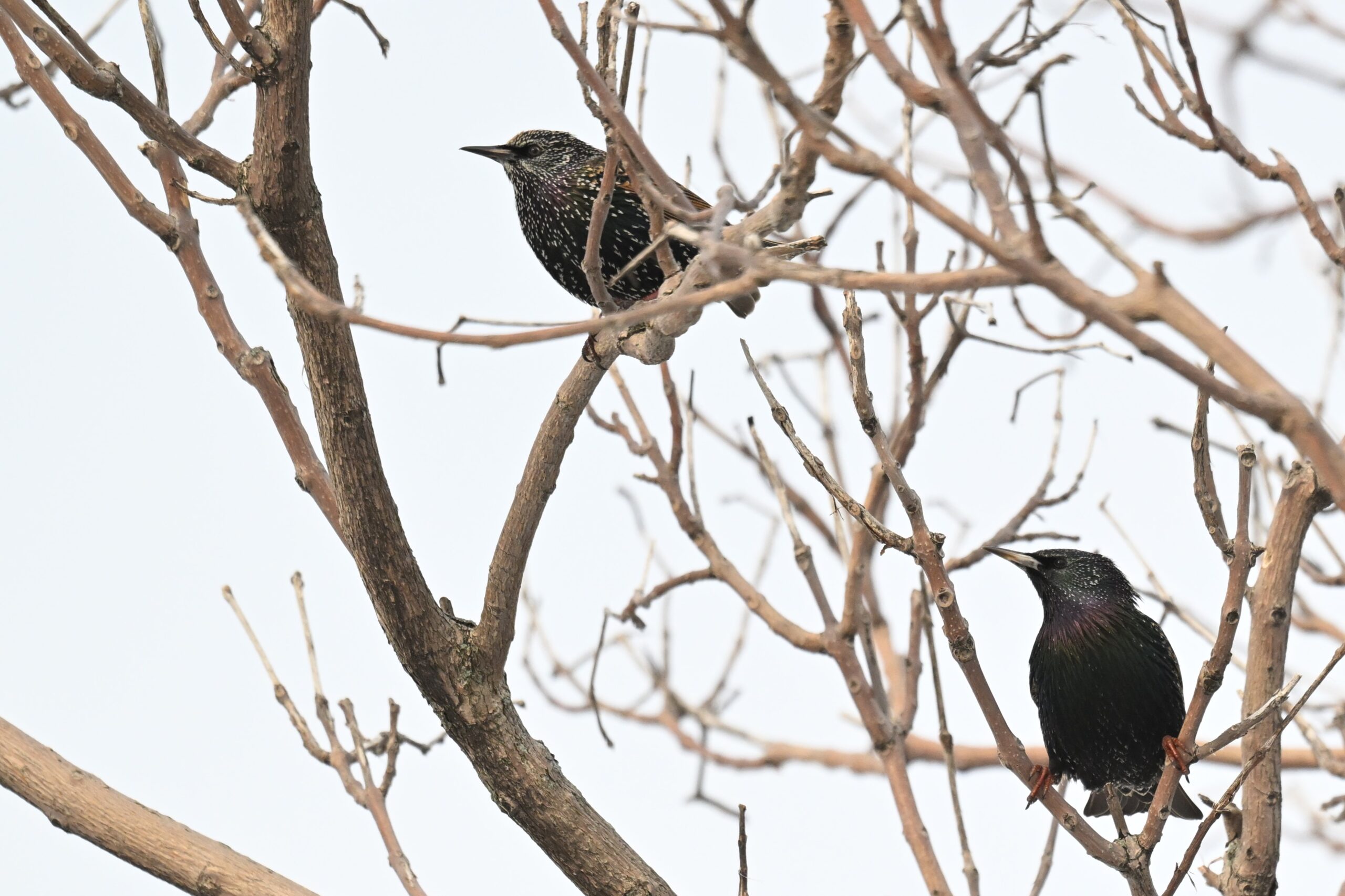
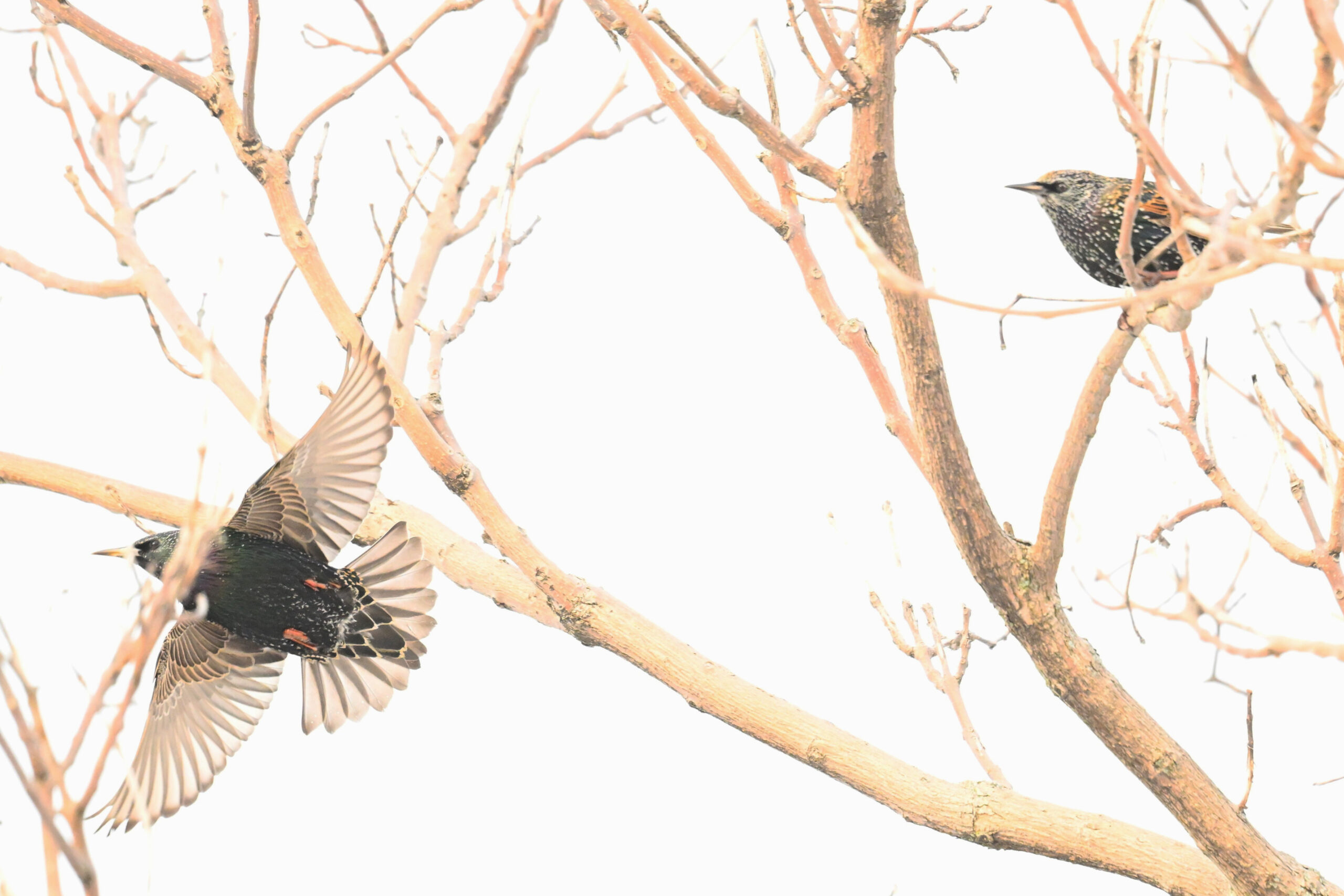
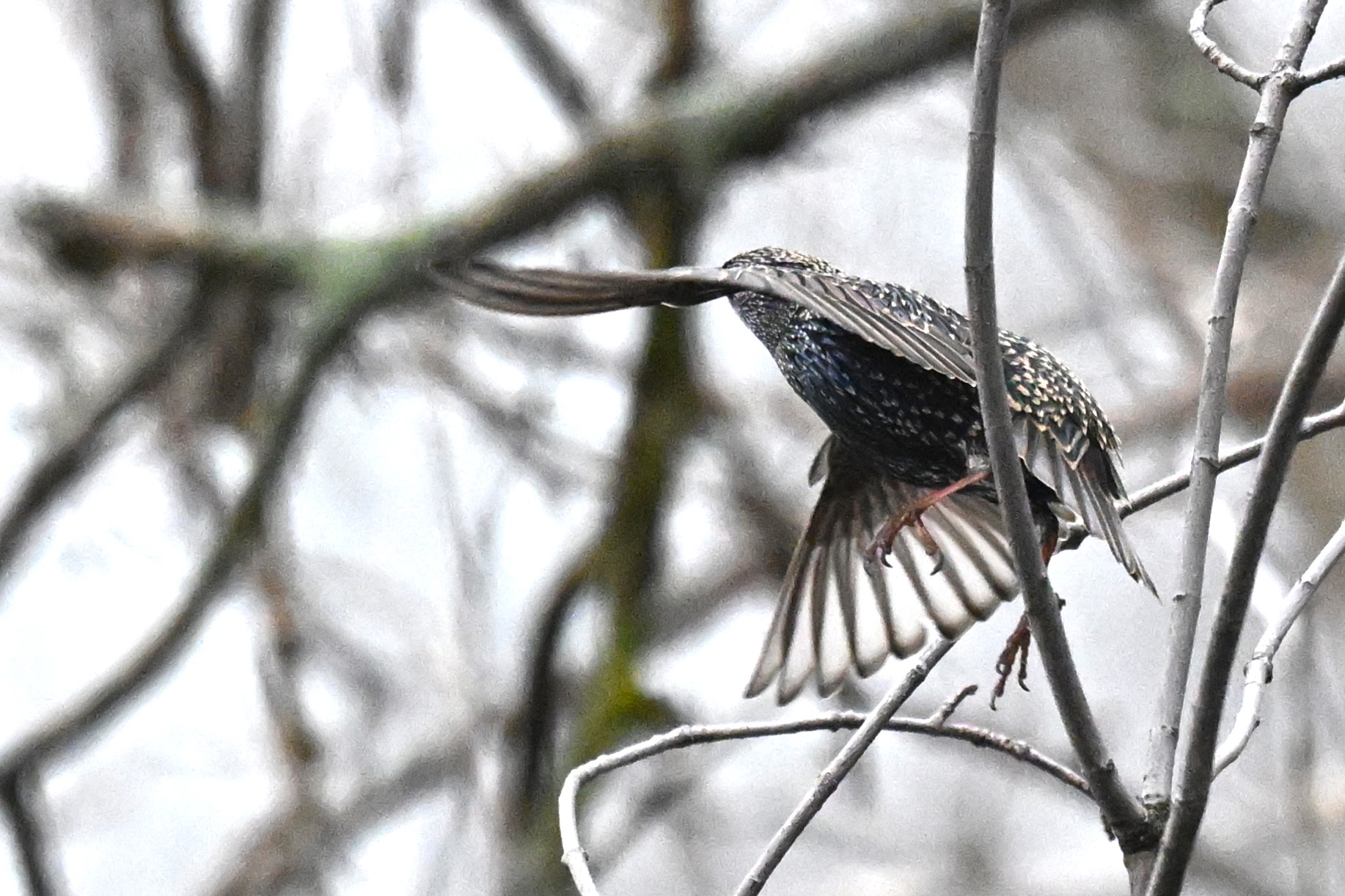
Saturday weather: overcast with an occasional hint of blue sky; periodic, localized lake-effect snow; very cold in a damp/clingy way – lovely day at Presque Isle State Park, but unpleasantly cold. Reasonable gull and waterfowl activity, almost no ‘land bird’ activity. Sunday: looks like a sunny day as forecast!
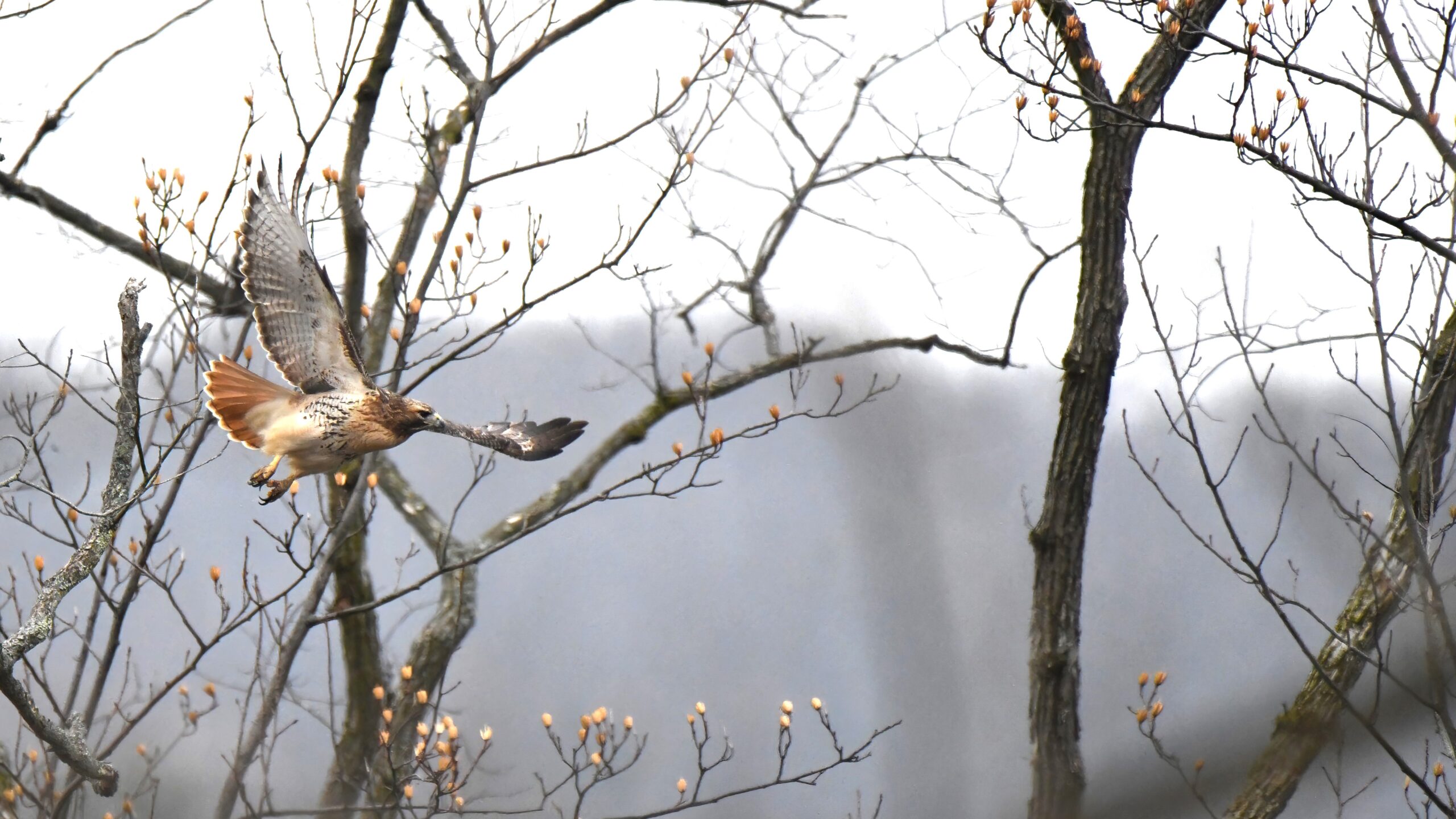
The last BirdingPI.com “Hot Shots! Part Deux” reference was almost a year ago to the day. Must be a “January in Erie can’t get outside because it’s too cold” thing. Anyway, 10 cm of snow or thereabouts by Friday morning, light snow all day, back to seasonably cold temperatures. Saturday, no precipitation, overcast and very cold.
Here, some recent, ‘merely ok’ shots of Red-tailed Hawk in Erie County. Above: Millcreek Twp (“Gateway to Presque Isle”); below: Presque Isle State Park by the Pine Tree Trail east trailhead and nearby swamp.
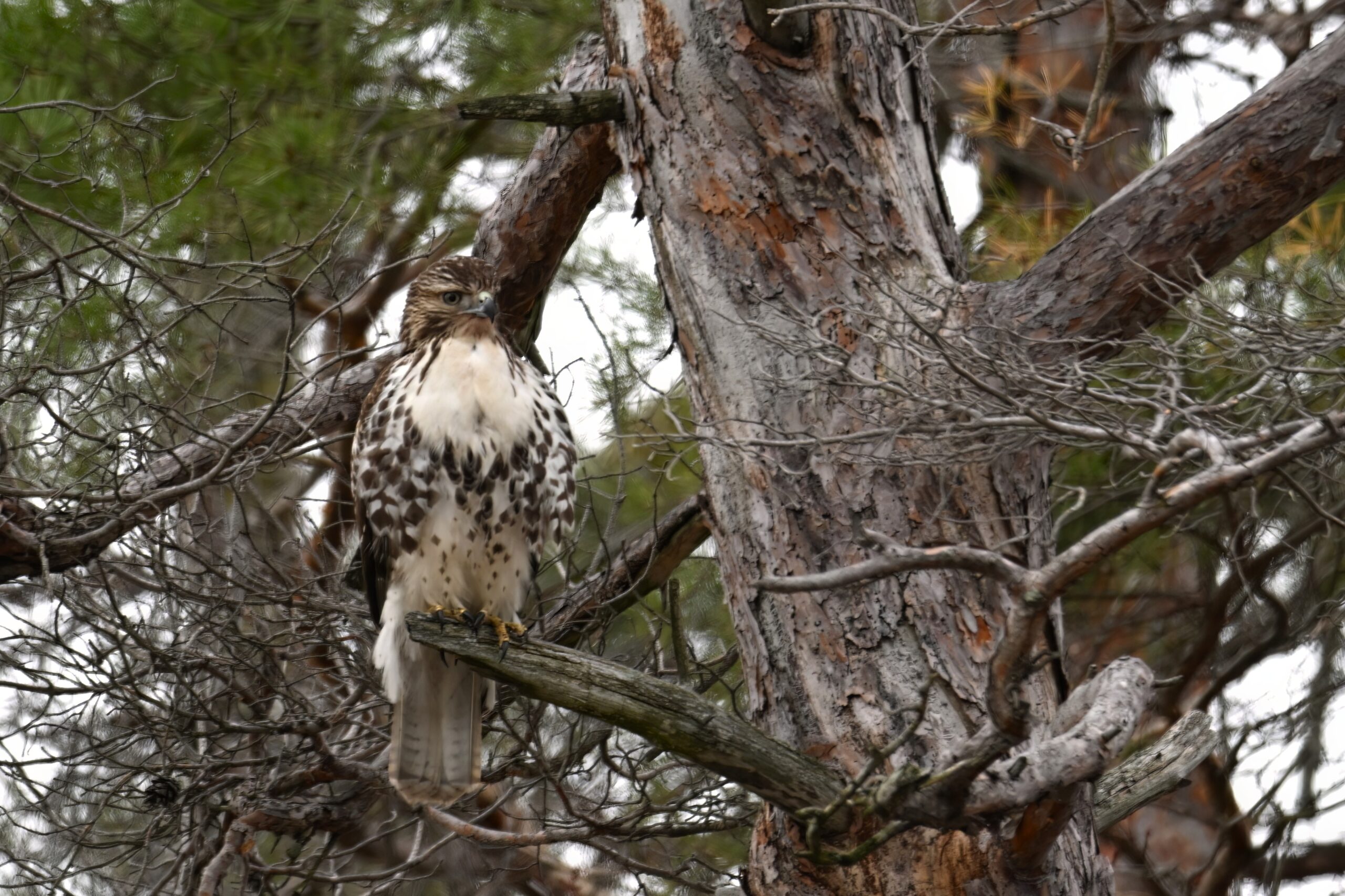
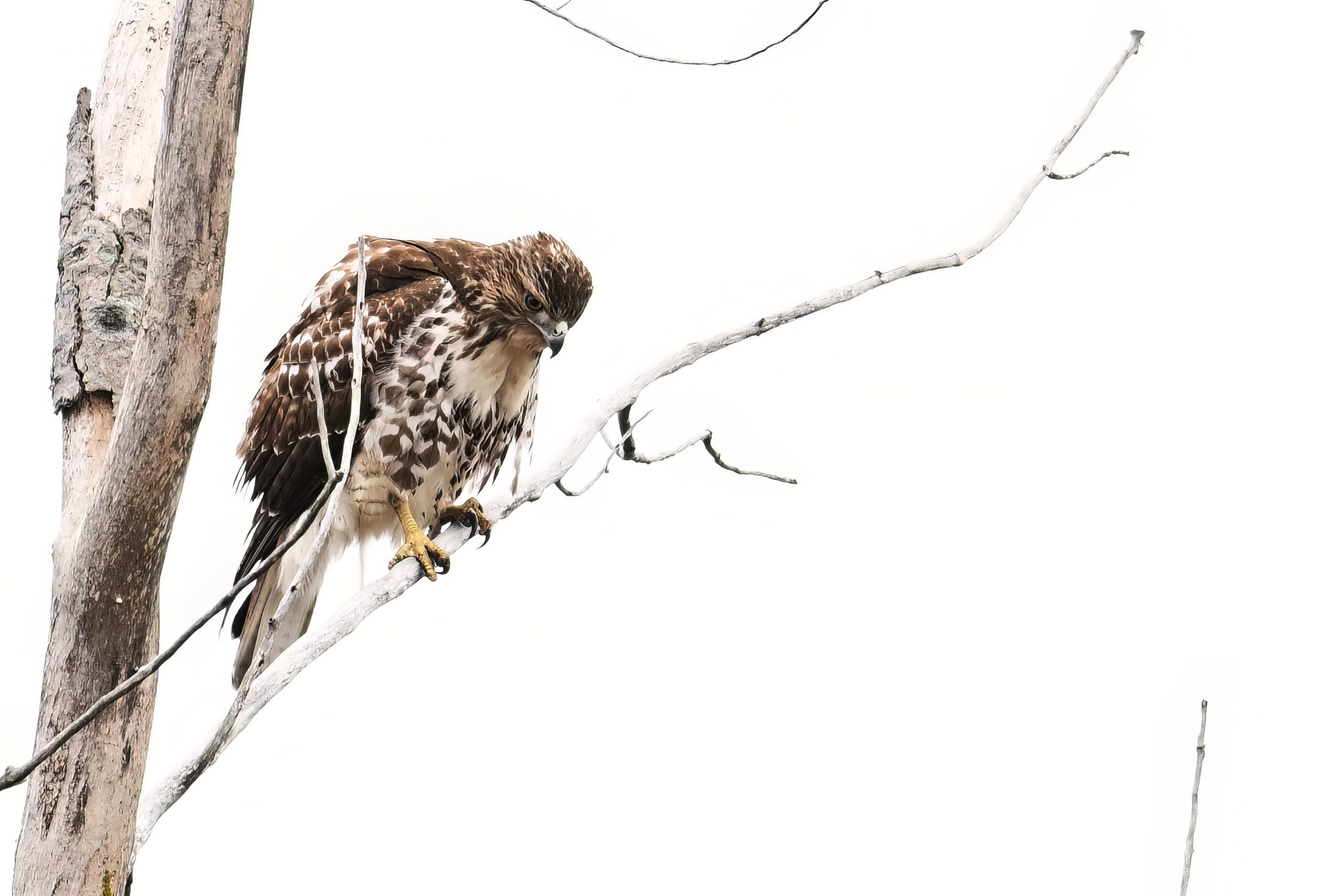
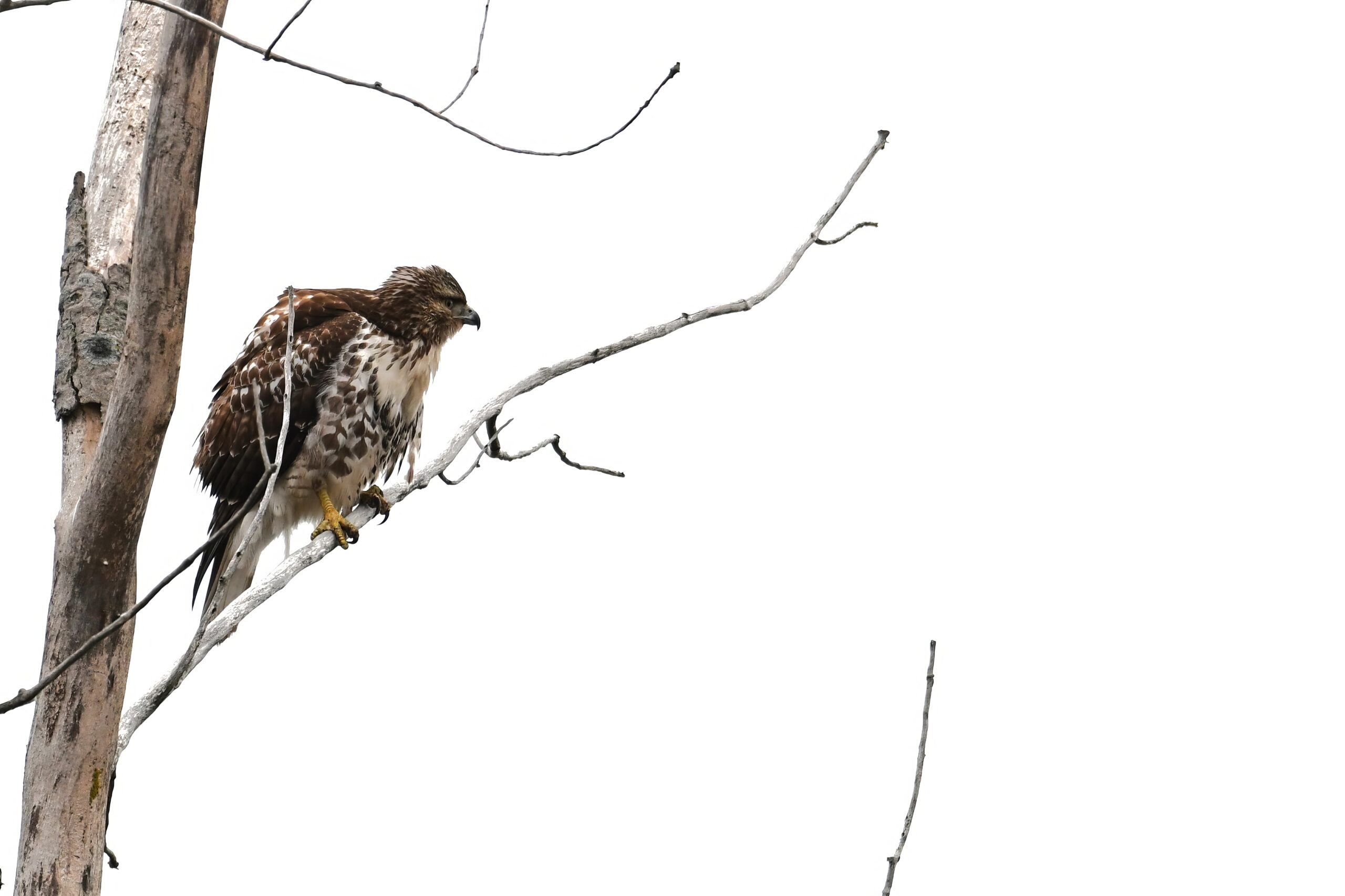
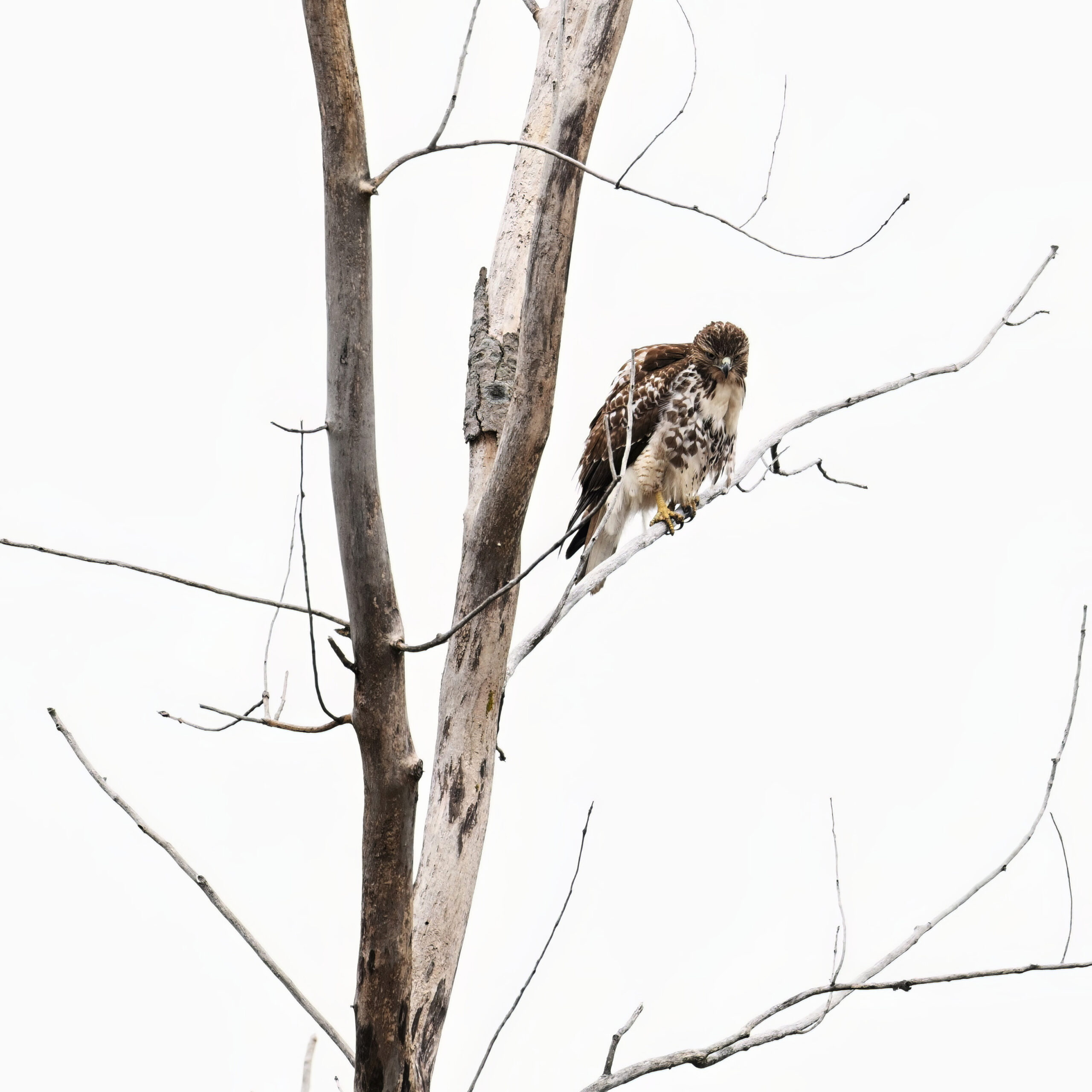
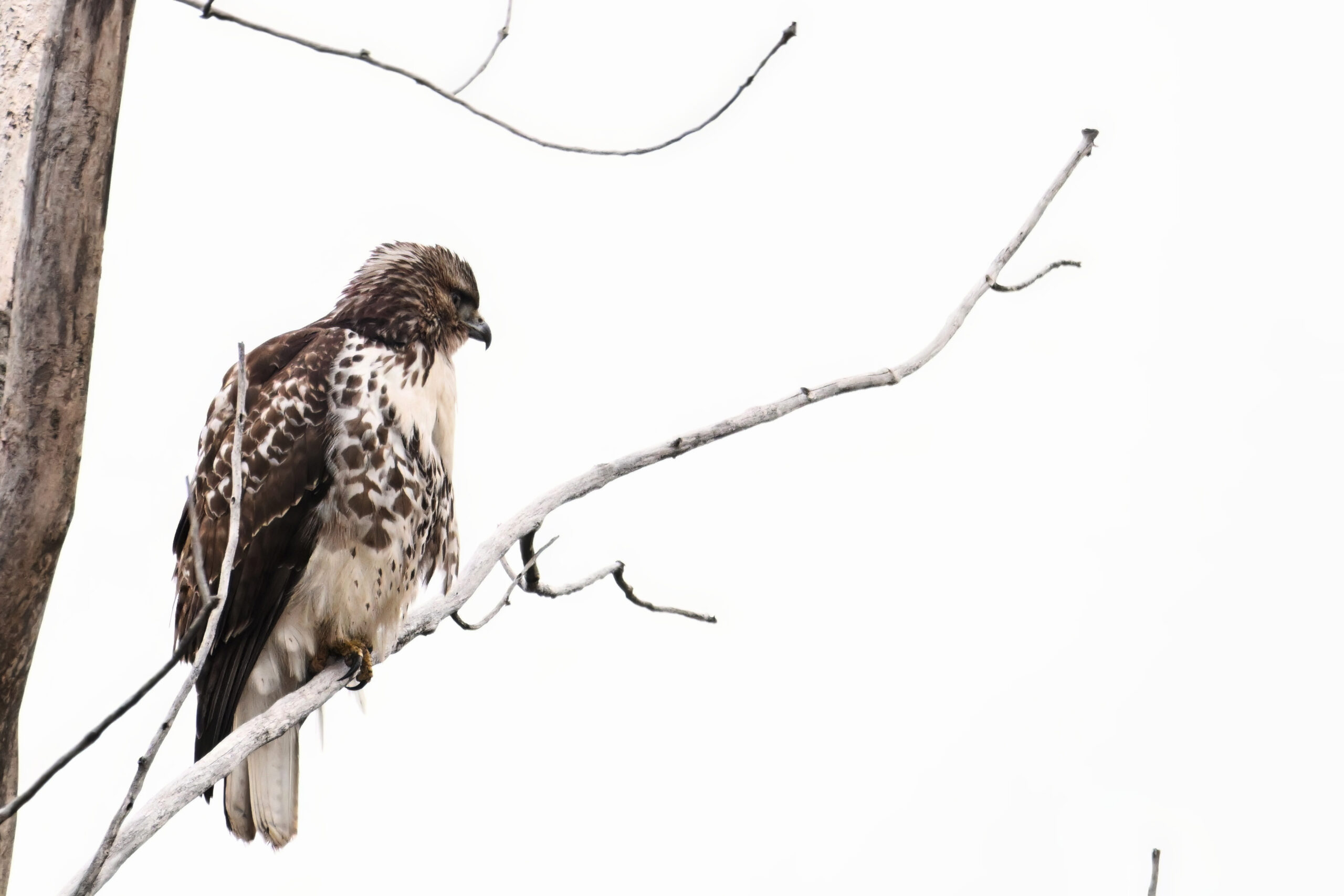
Supposed to be sunny and not as cold Sunday and Monday – fingers crossed for good bird photography weather!
Dateline: 7-12 January 2023
Running very late on the weekend update, so time for a ‘data dump’ of recent shots in Erie Country, in mostly overcast/dark conditions.
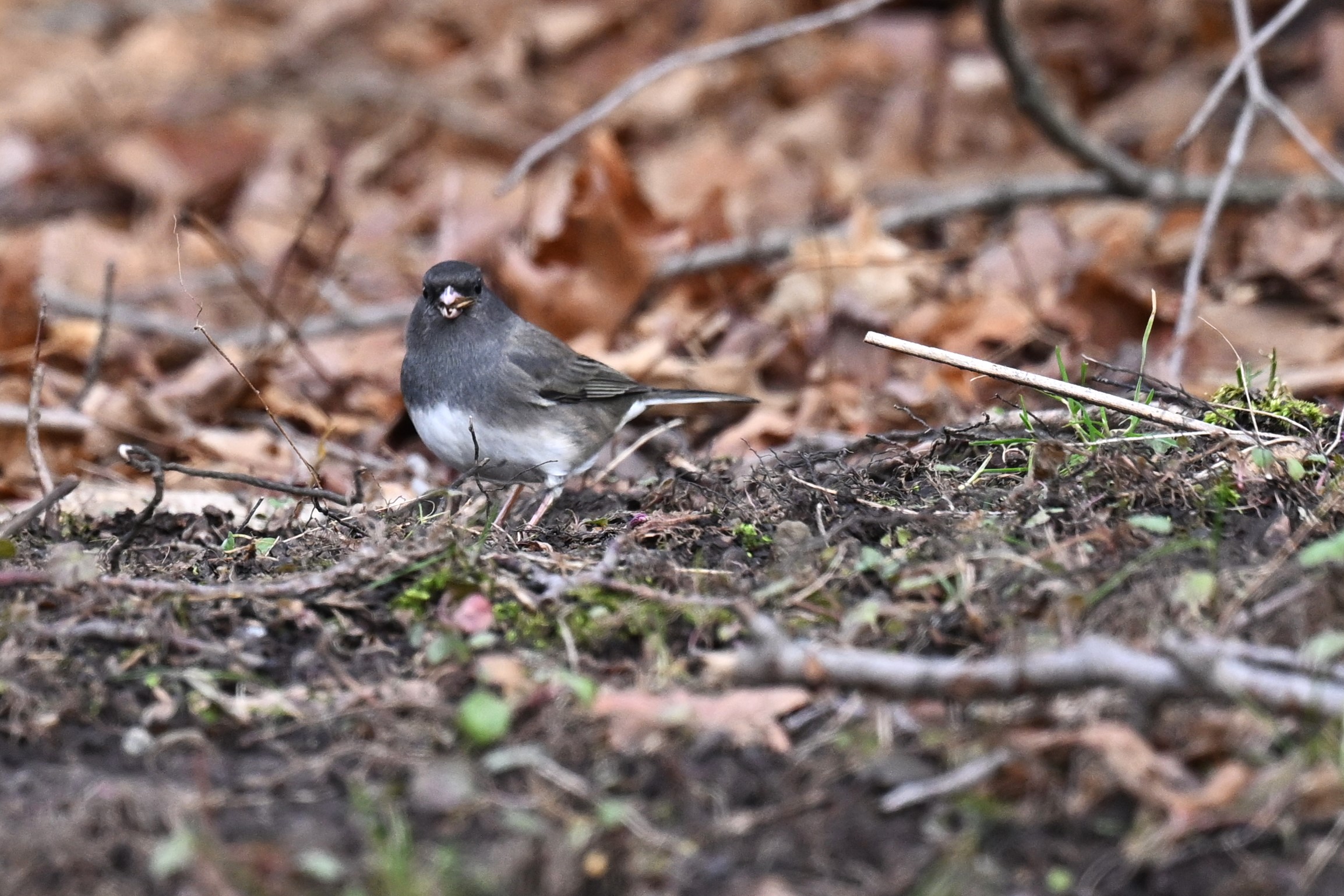
Weather in Erie: cold and overcast over the weekend; unseasonably warm by mid-week, sunny on Tuesday and partially sunny on Wednesday; light rain Wednesday night tapering off by morning transitioning to heavier rain by afternoon. Currently under a winter weather advisory for snow on Friday.
Two shots of American Robin at State Game Lands 314, enjoying a snack of Staghorn Sumac:
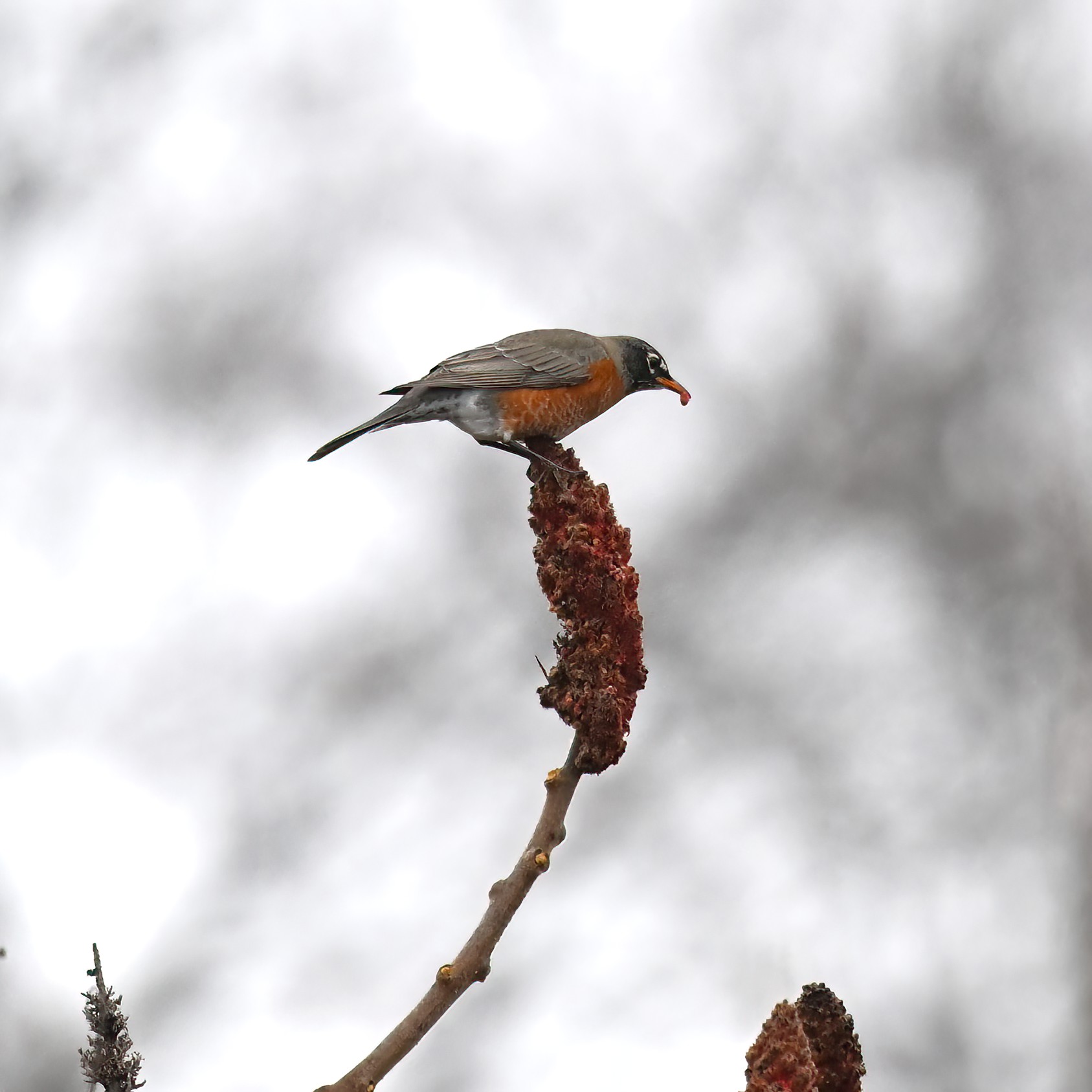
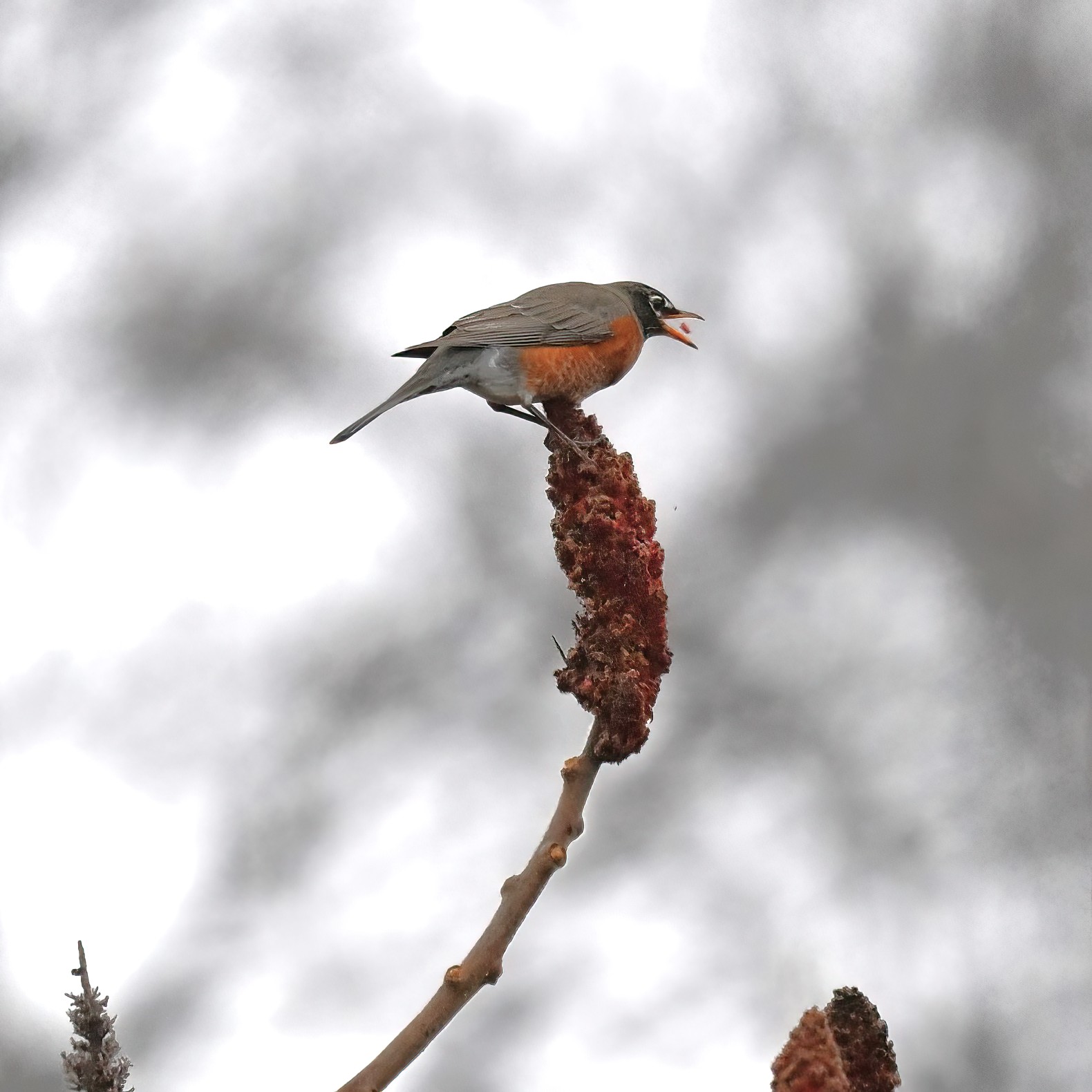
Moving on to Presque Isle State Park, over several different days:
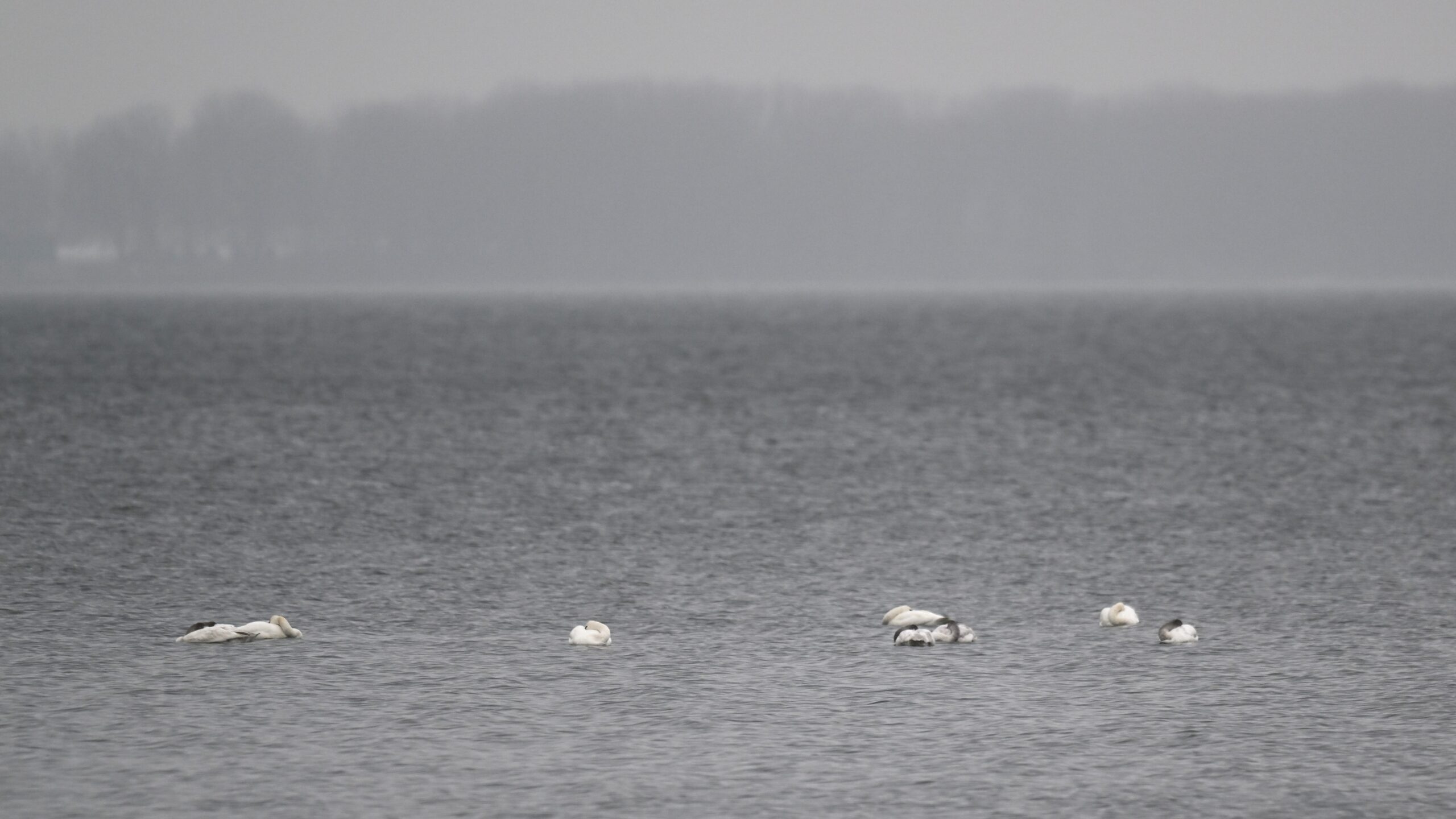
Several days later, that beautiful Barred Owl was back at the same perch by the corner of Canoe Portage Trail and Duck Pond Trail:
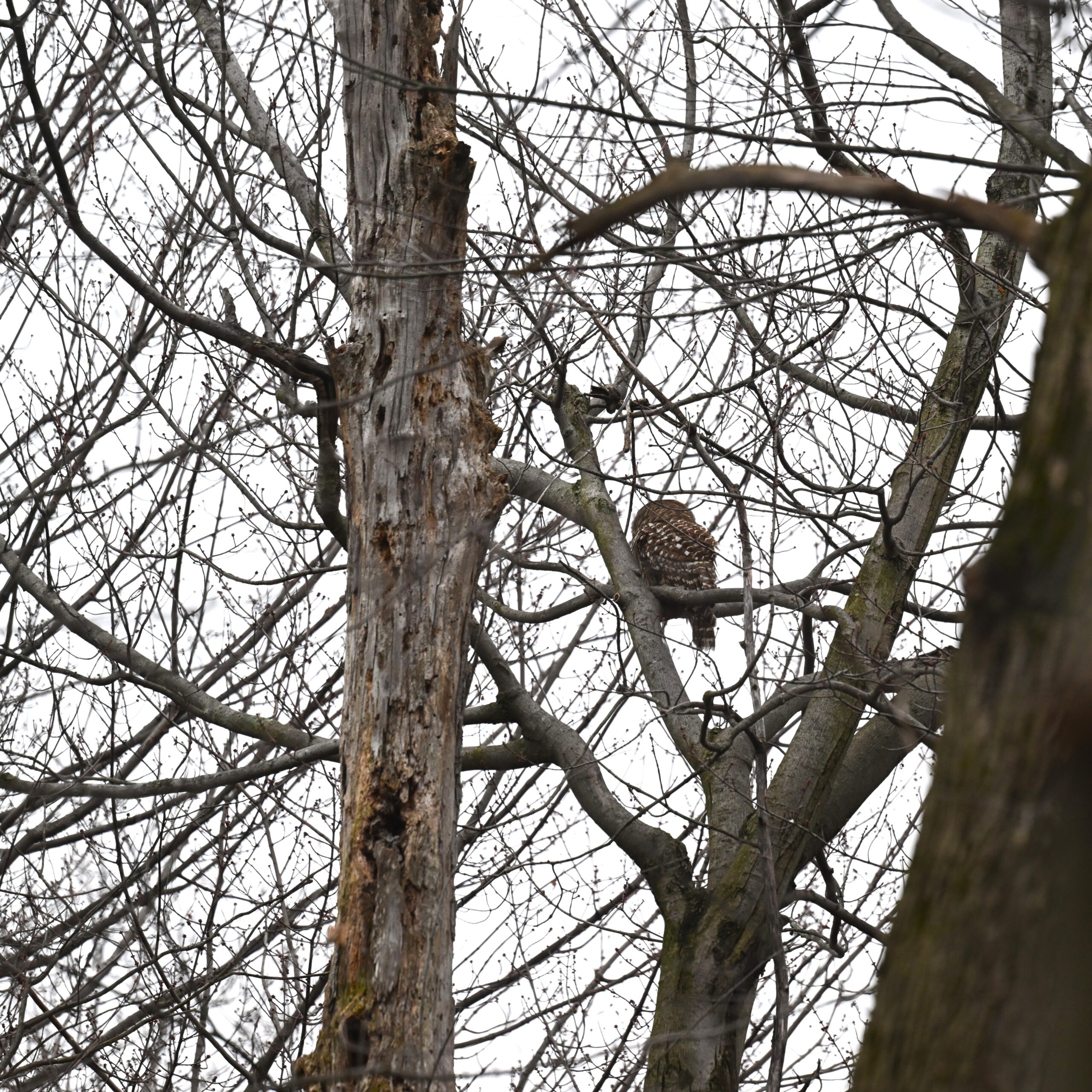
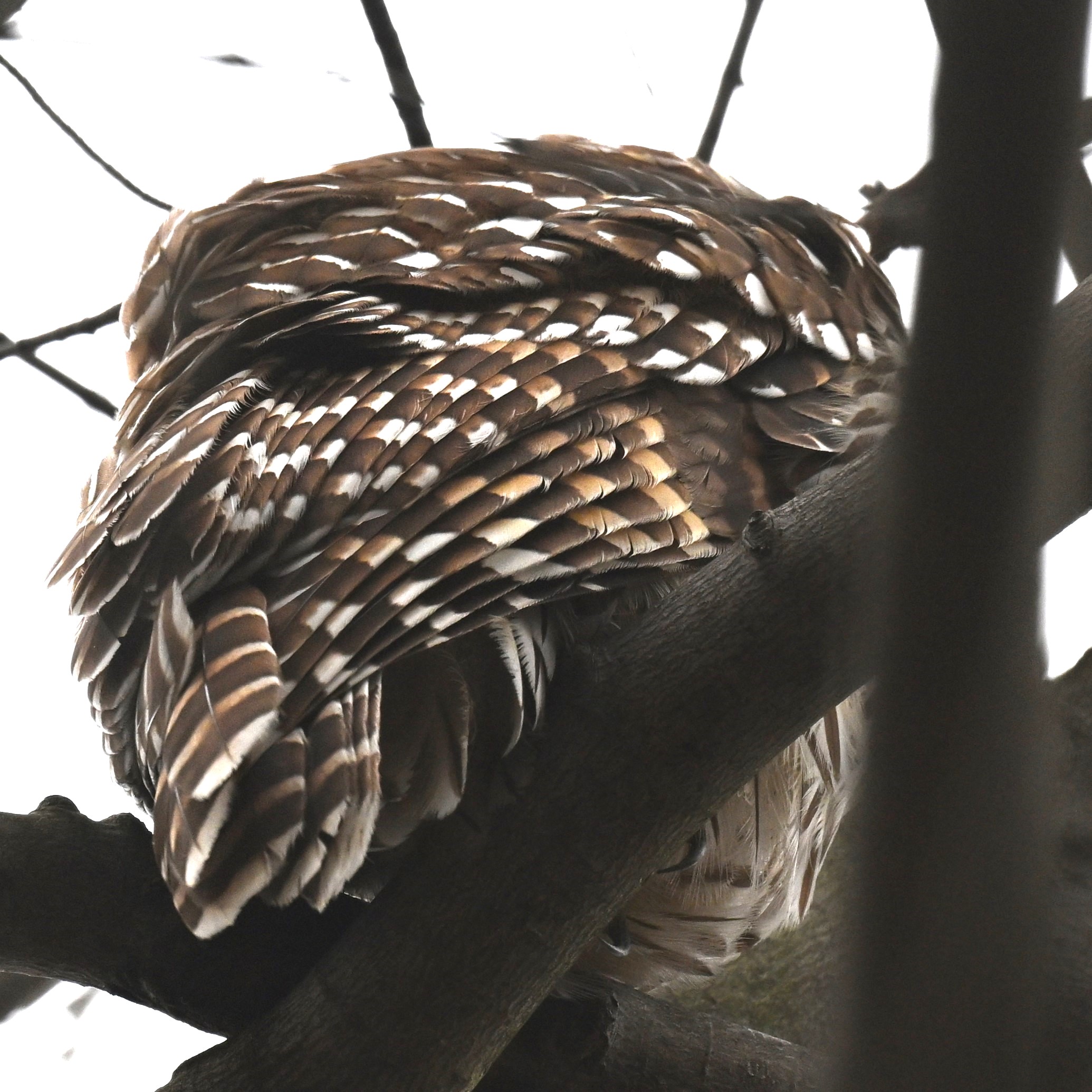
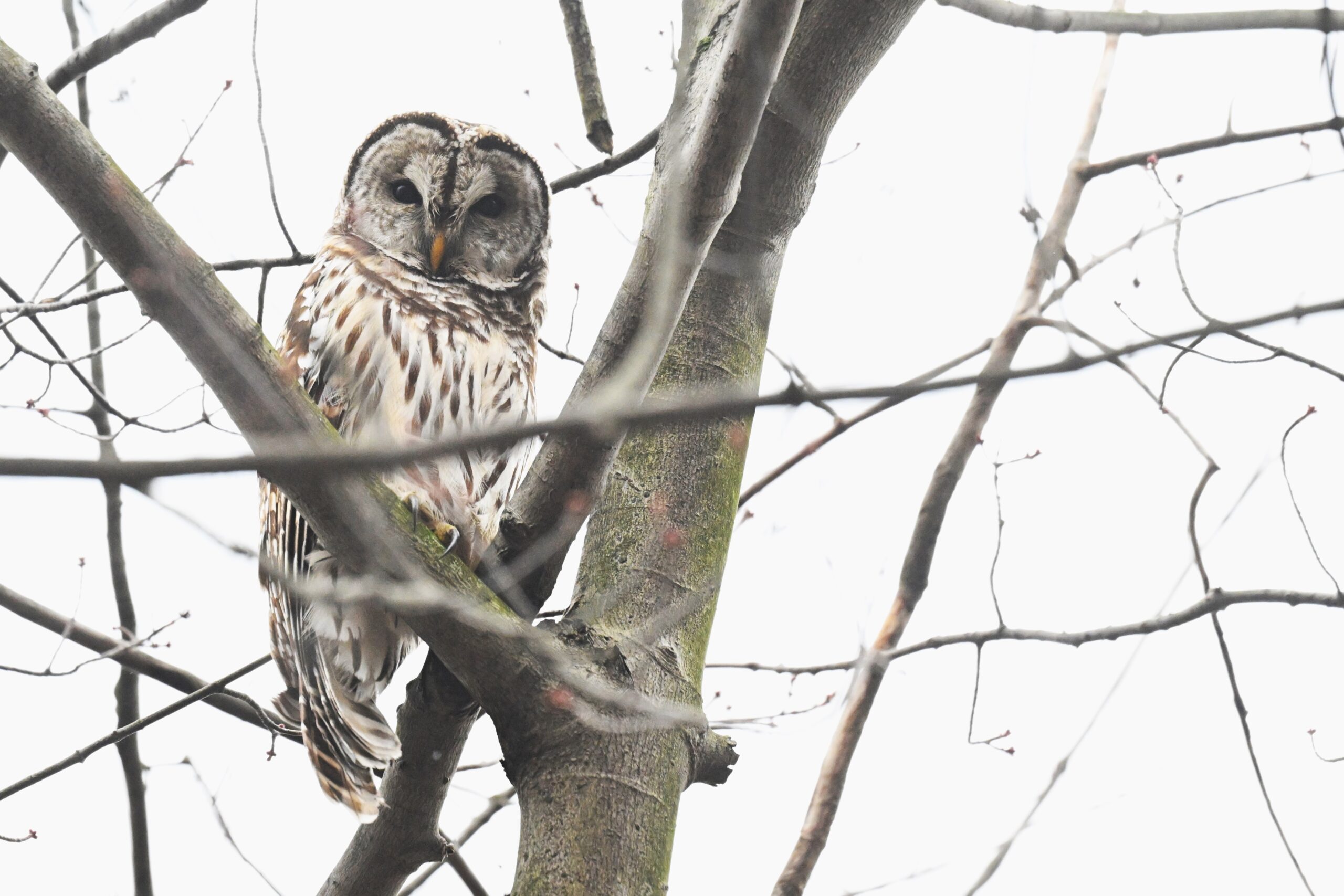
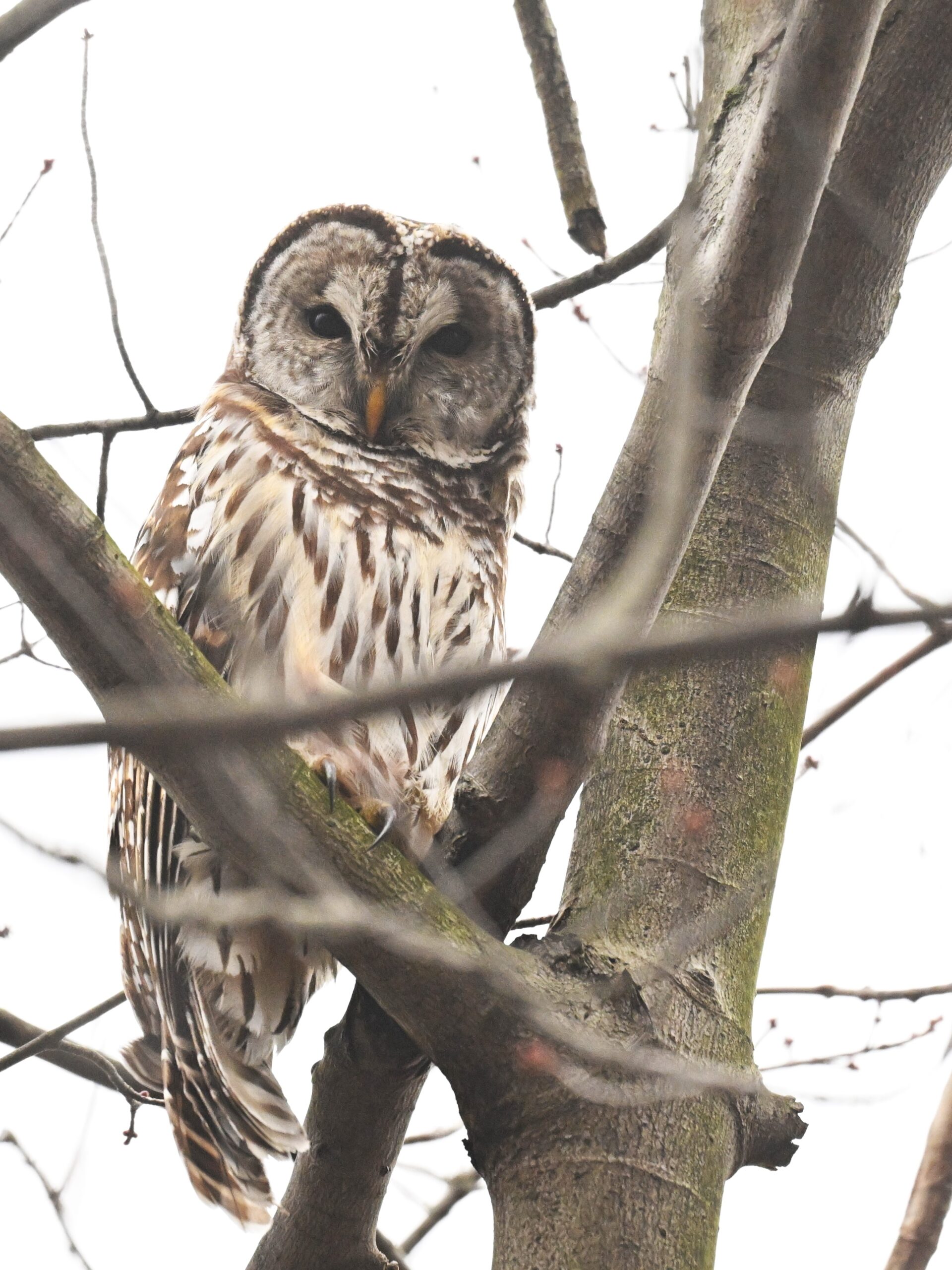
Couple shots of female Downy Woodpecker along Canoe Portage Trail:
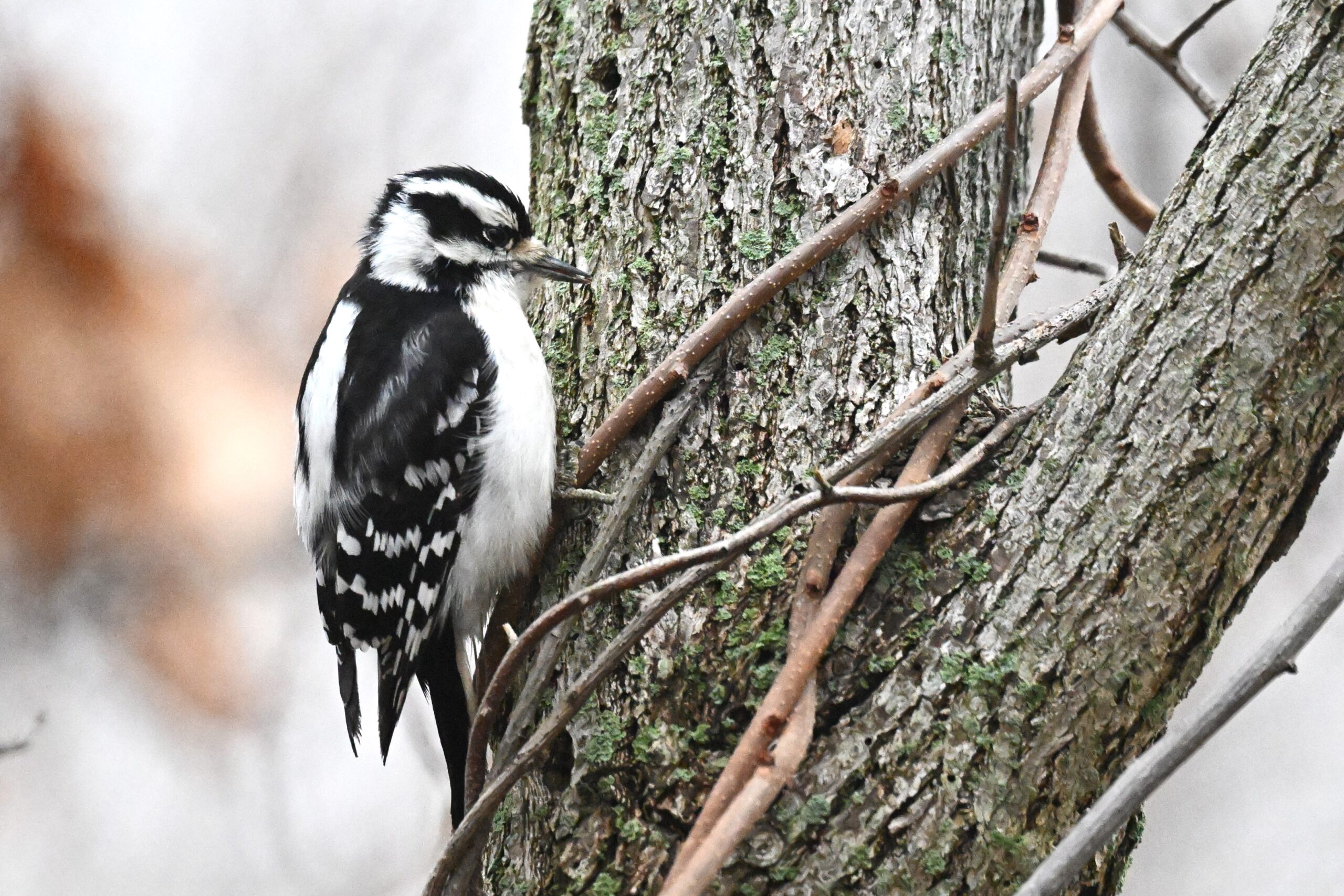
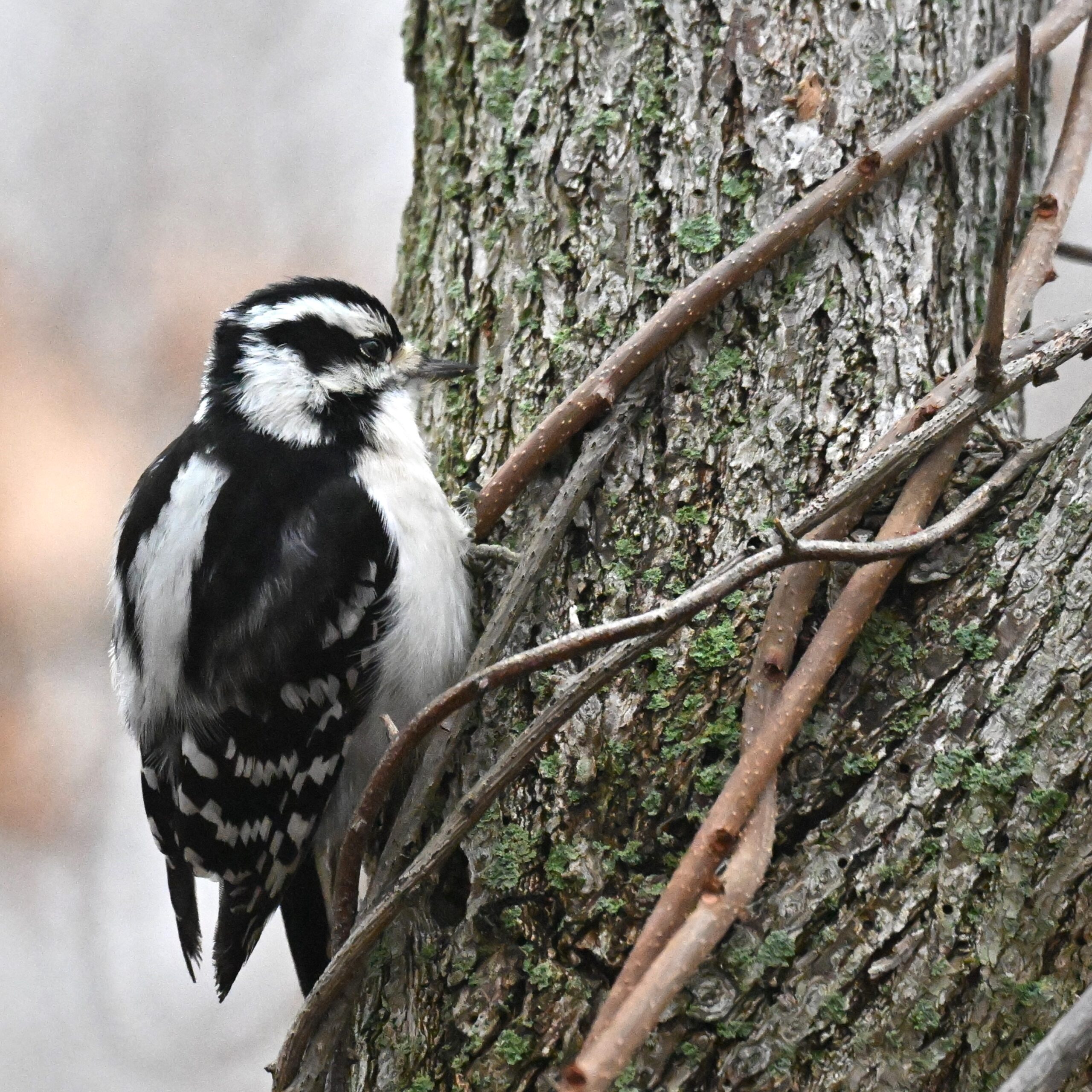
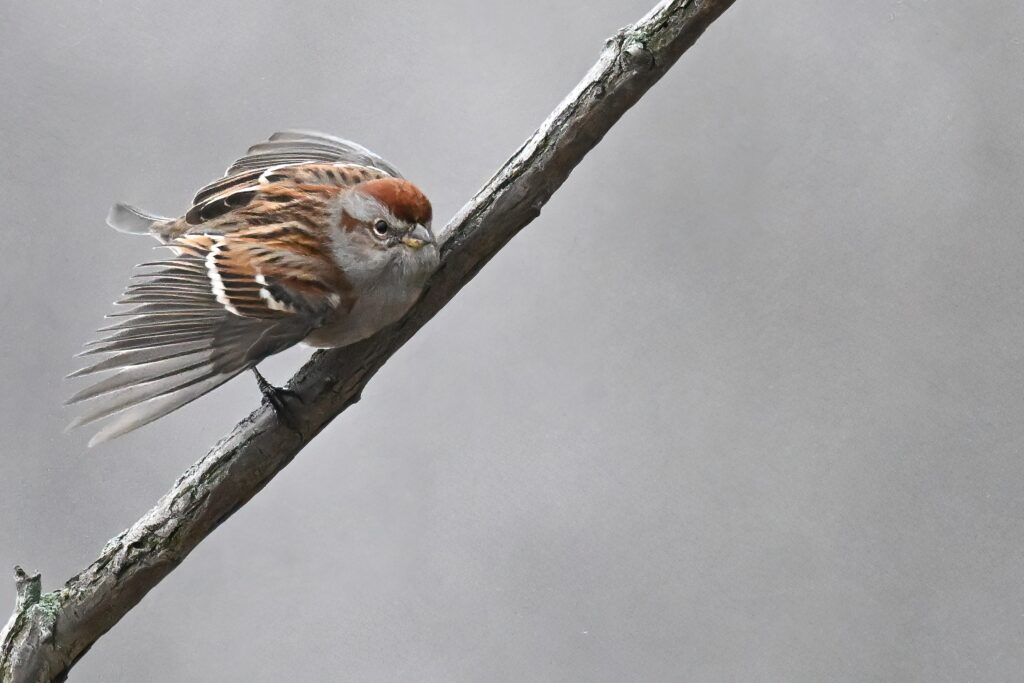
Another view of the Barred Owl on the way back along the Canoe Portage Trail:
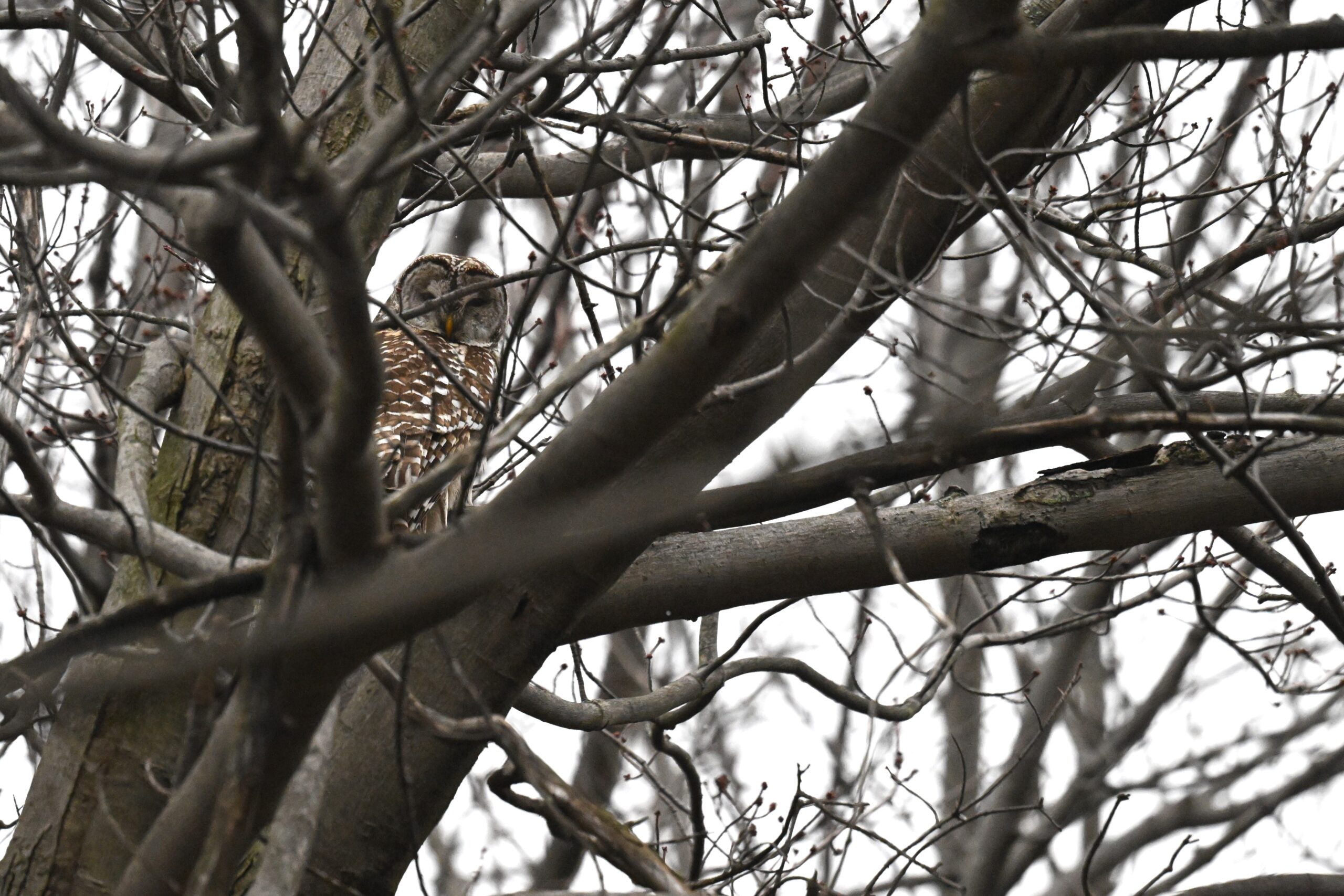
Tundra Swan on Presque Isle Bay, near the Long Pond Trail east trailhead:
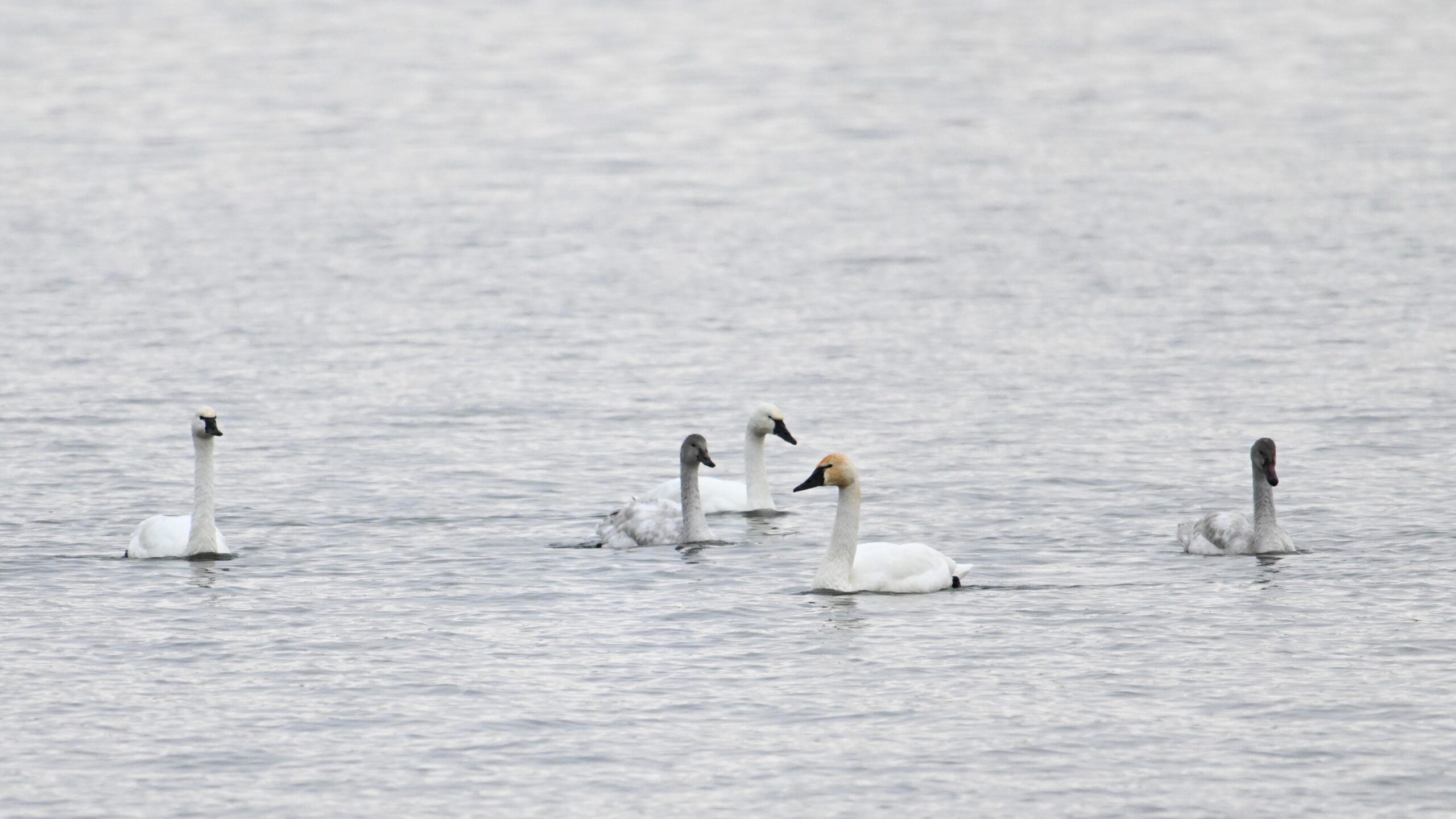
Now with a view of the Bayfront Convention Center (right) and Sheraton Bayfront hotel (left), with downtown Erie in far background:
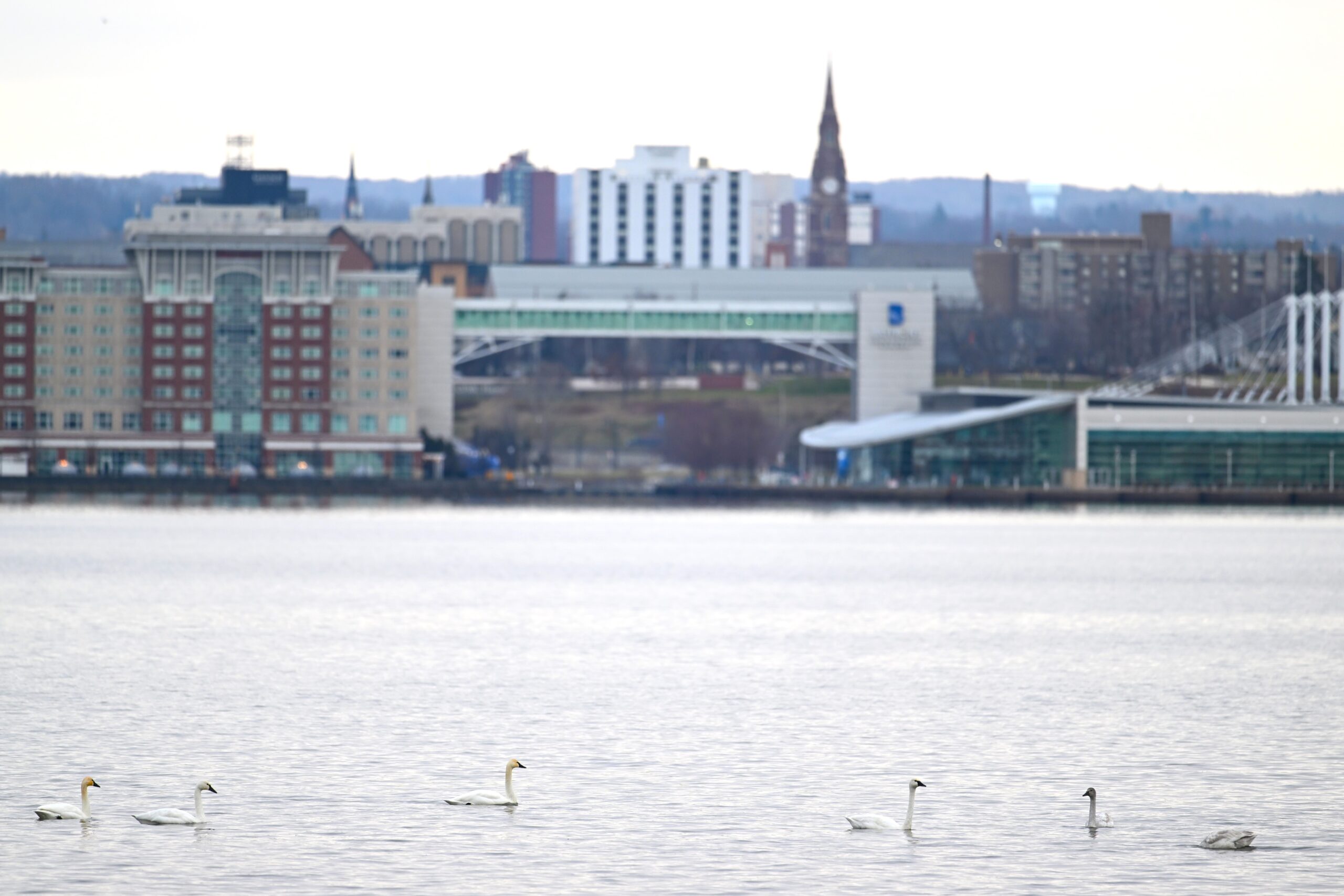
Sans duck hunters, a quiet day on Thompson Bay:
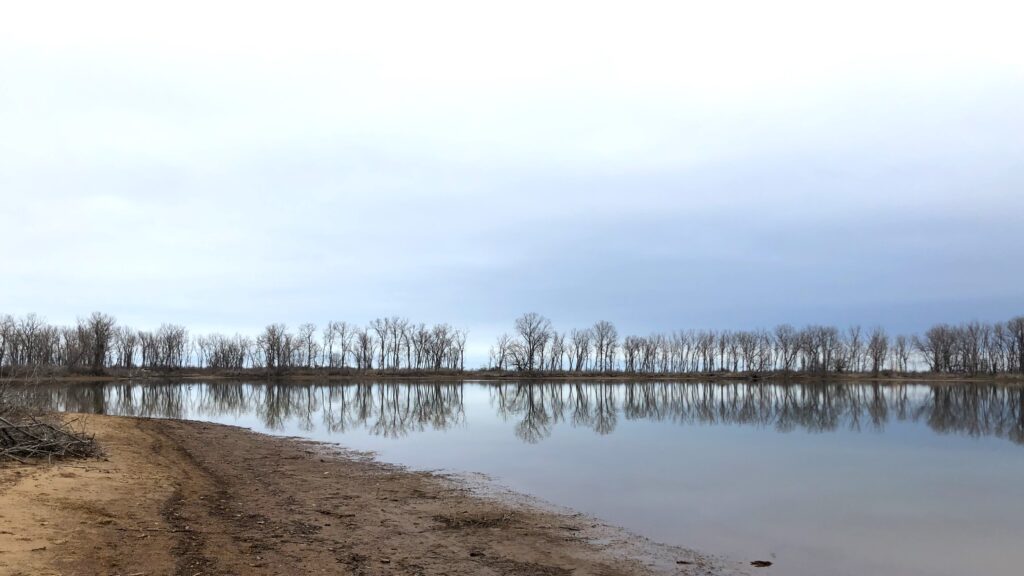
Reflection on Thompson Bay with Horned Grebe, Bufflehead, and some sort of merganser duck:
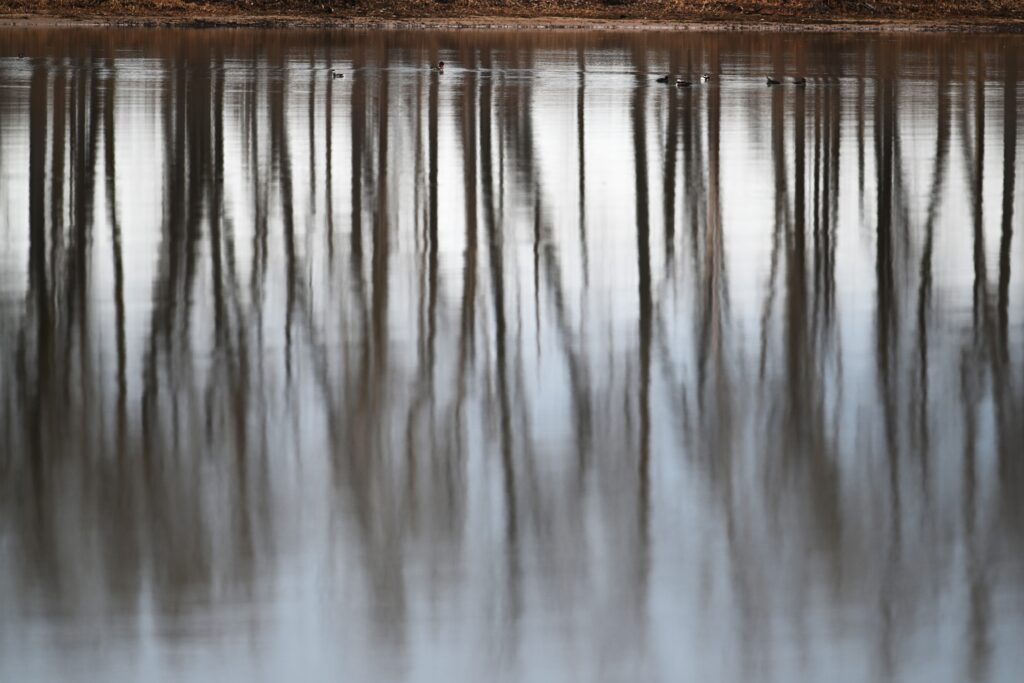
Not a particularly good shot, but a gull and Red-breasted Merganser, off Budny Beach:
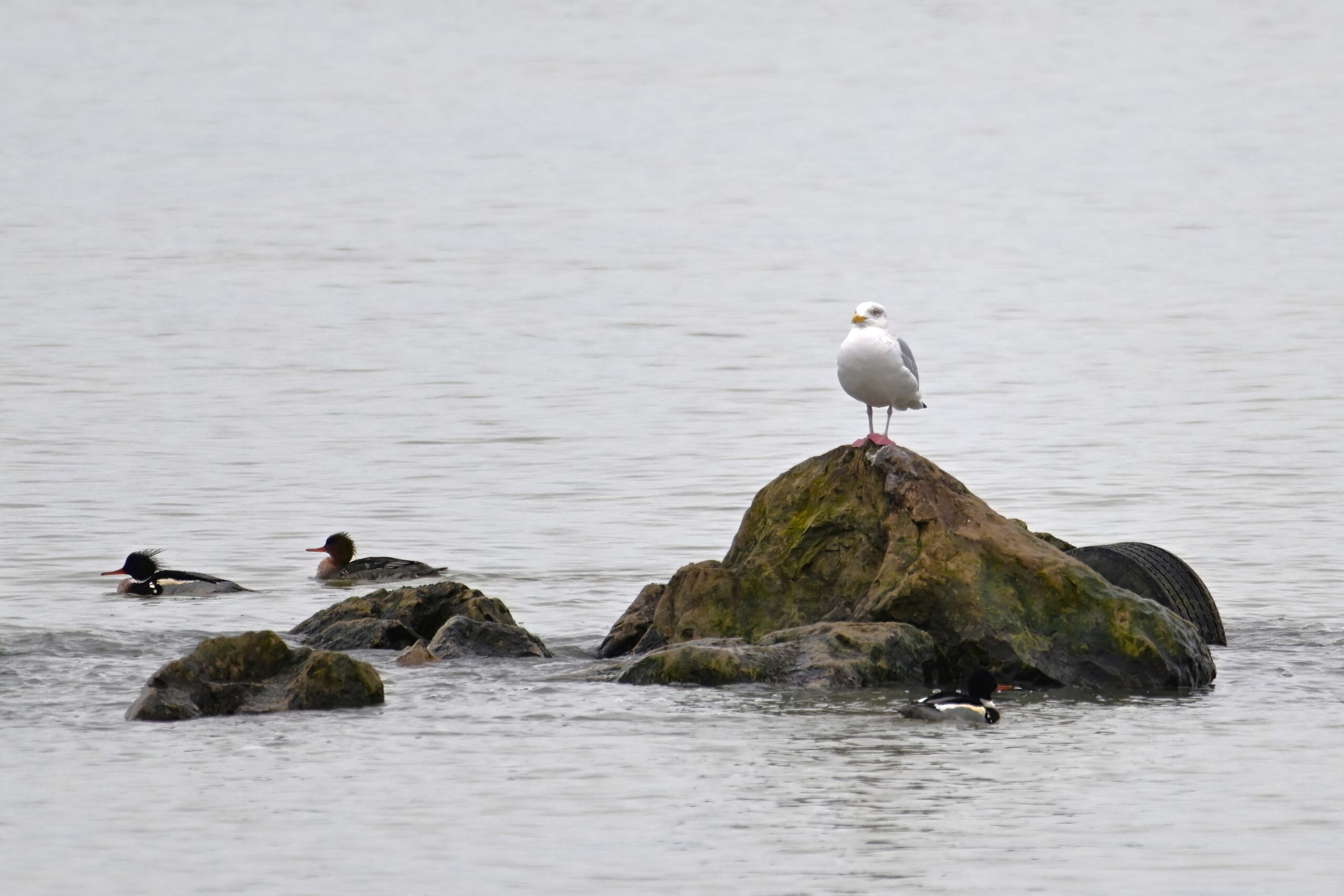
With all the recent rain, trail conditions generally wet and muddy where applicable/typical. Here, the B-Trail:
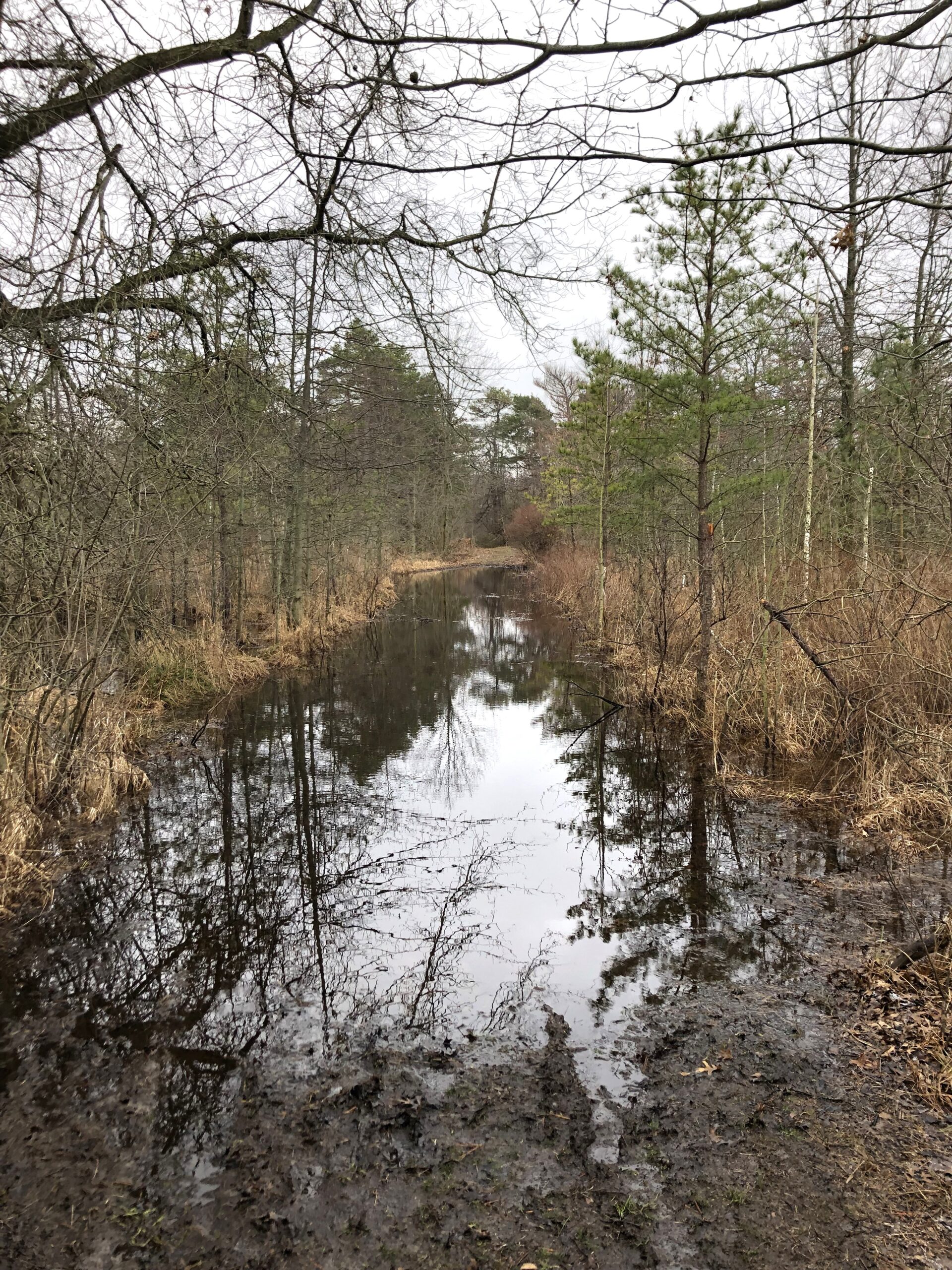
Ice dunes and surf off the Presque Isle west-side beach:
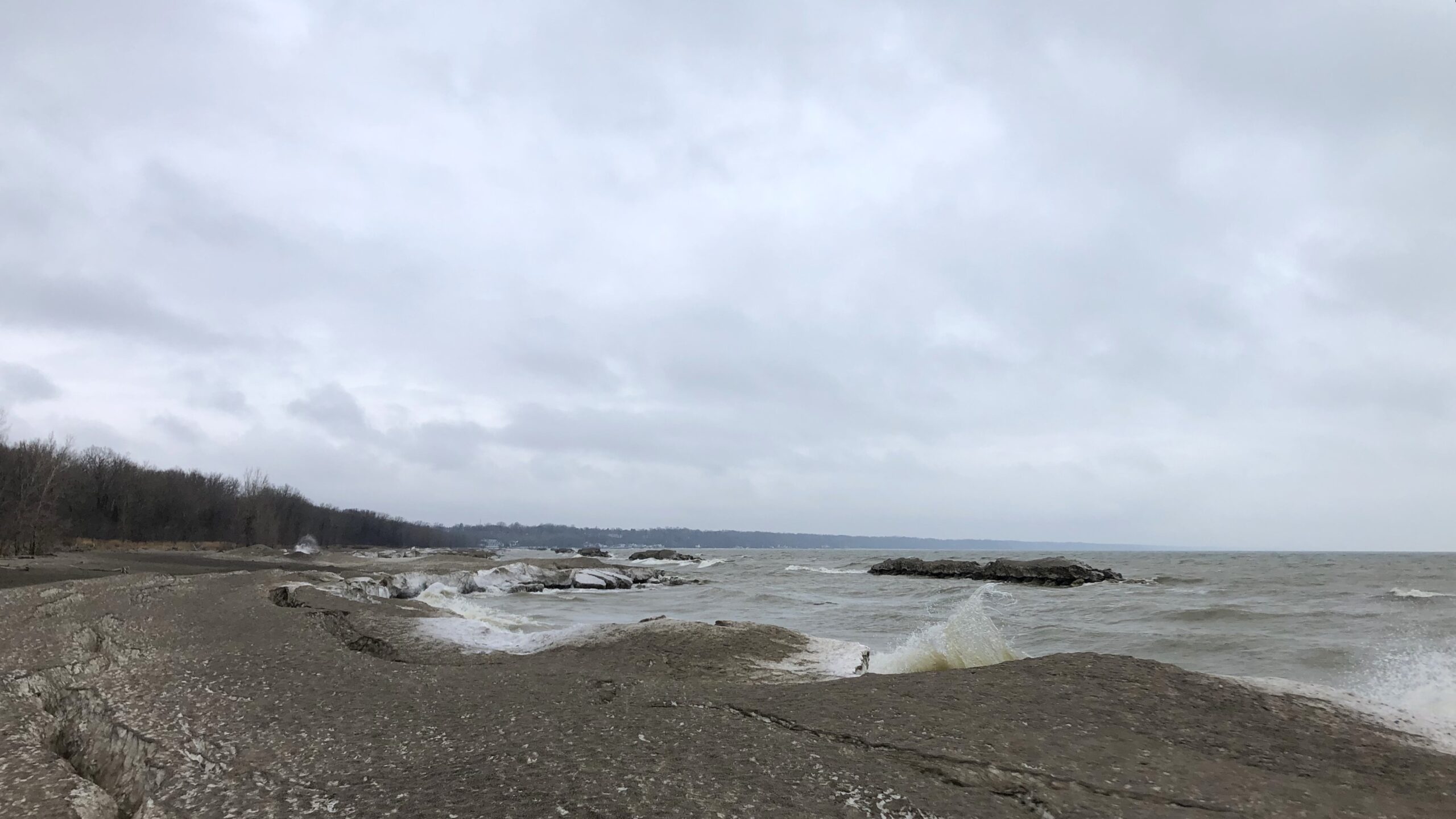
View of gulls on the west end of North Pier, with Perry Monument in the background, taken from South Pier:
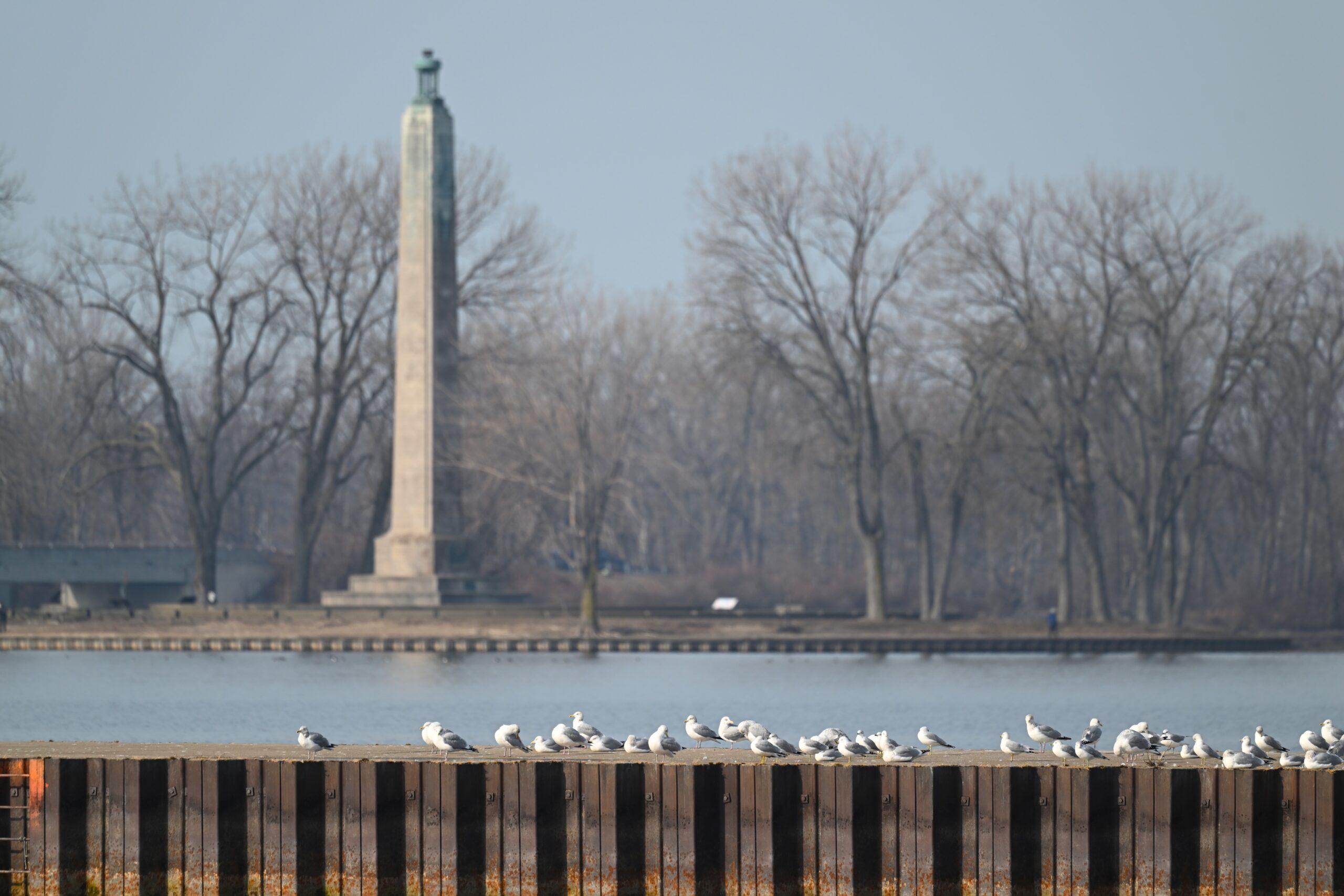
Wishing everyone a nice holiday (MLK Day) weekend!
First up, peaceful, reasonably ok shots of a Ring-billed Gull in the wind at Conneaut Beach:
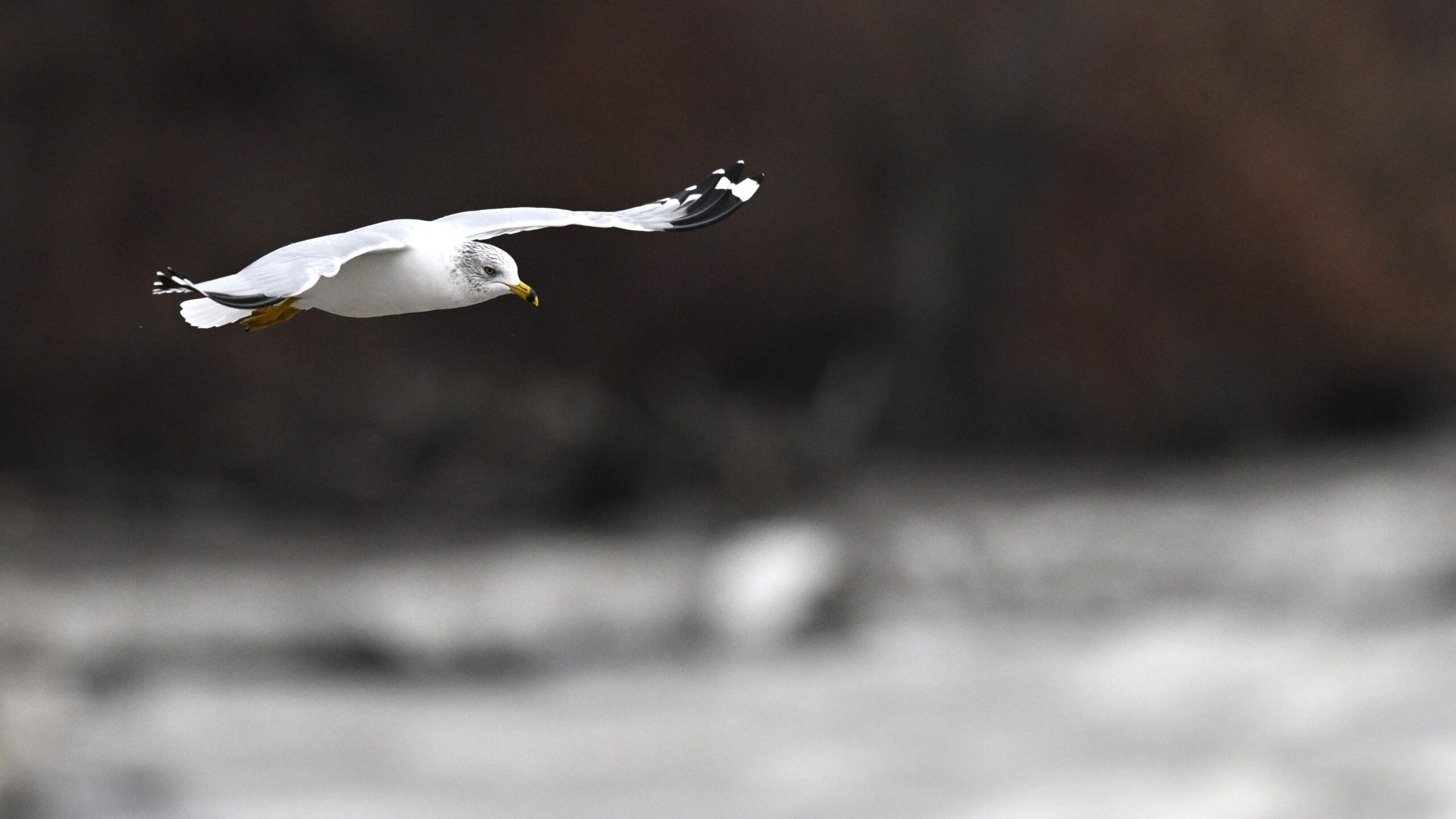
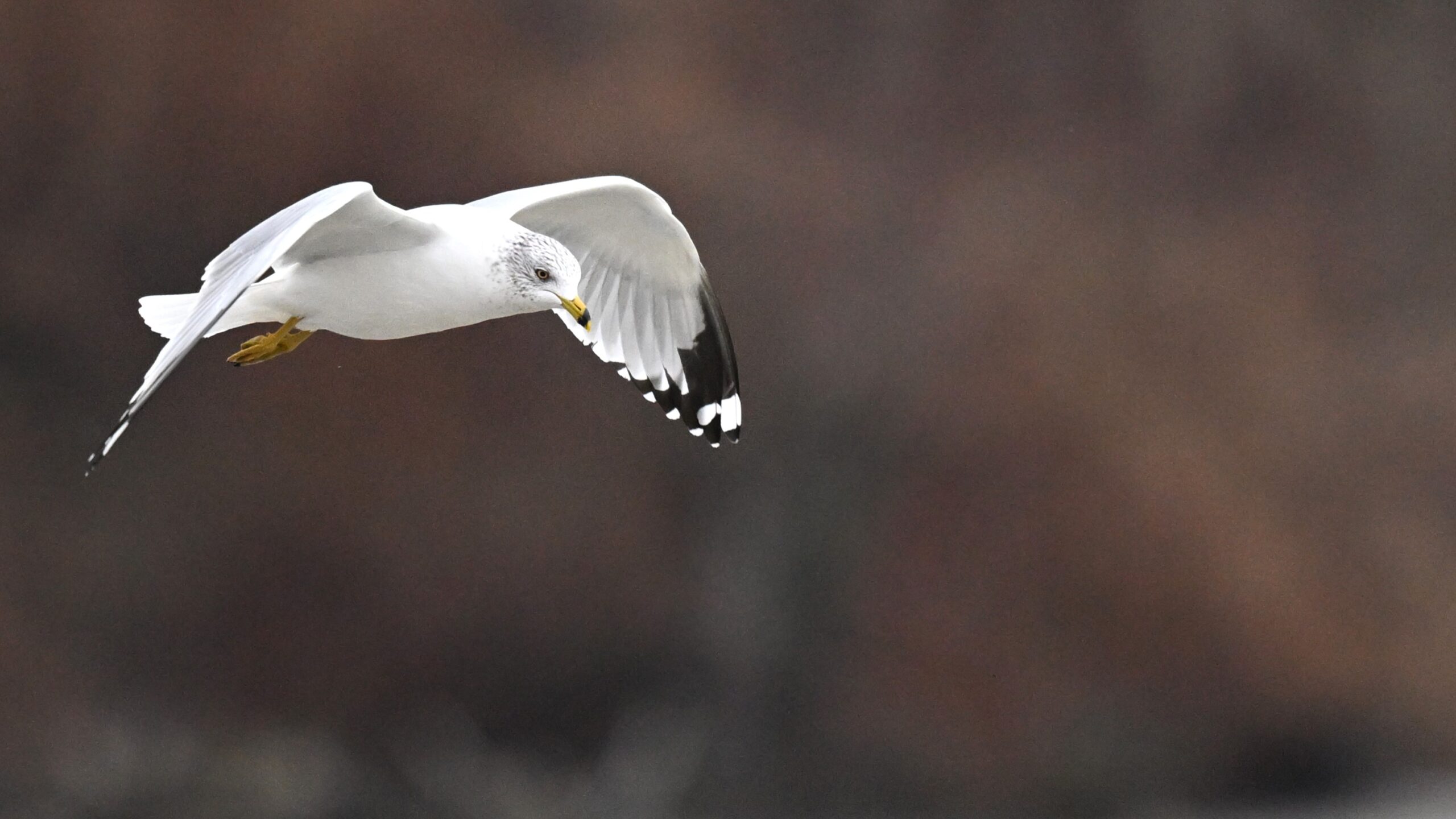
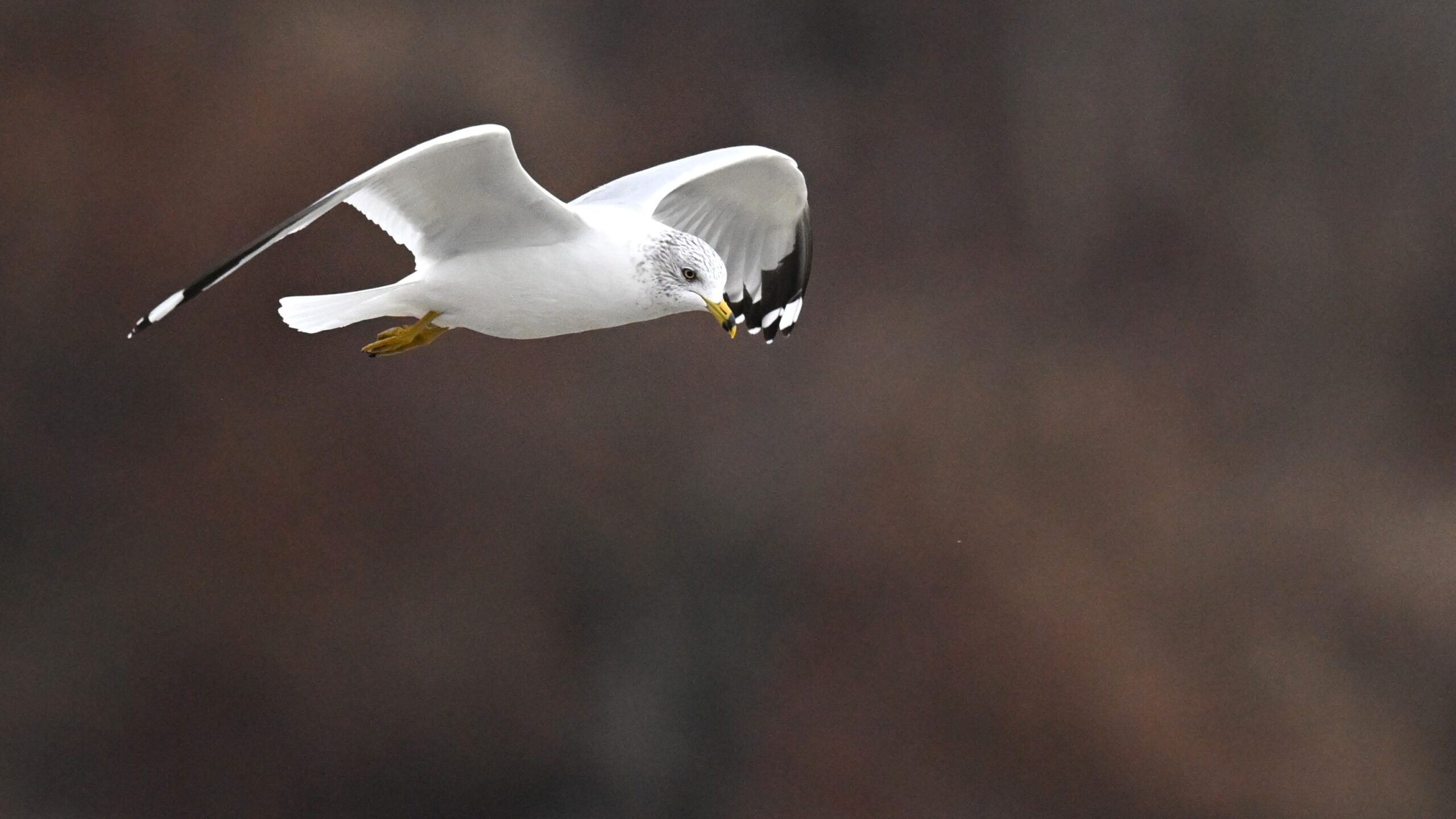
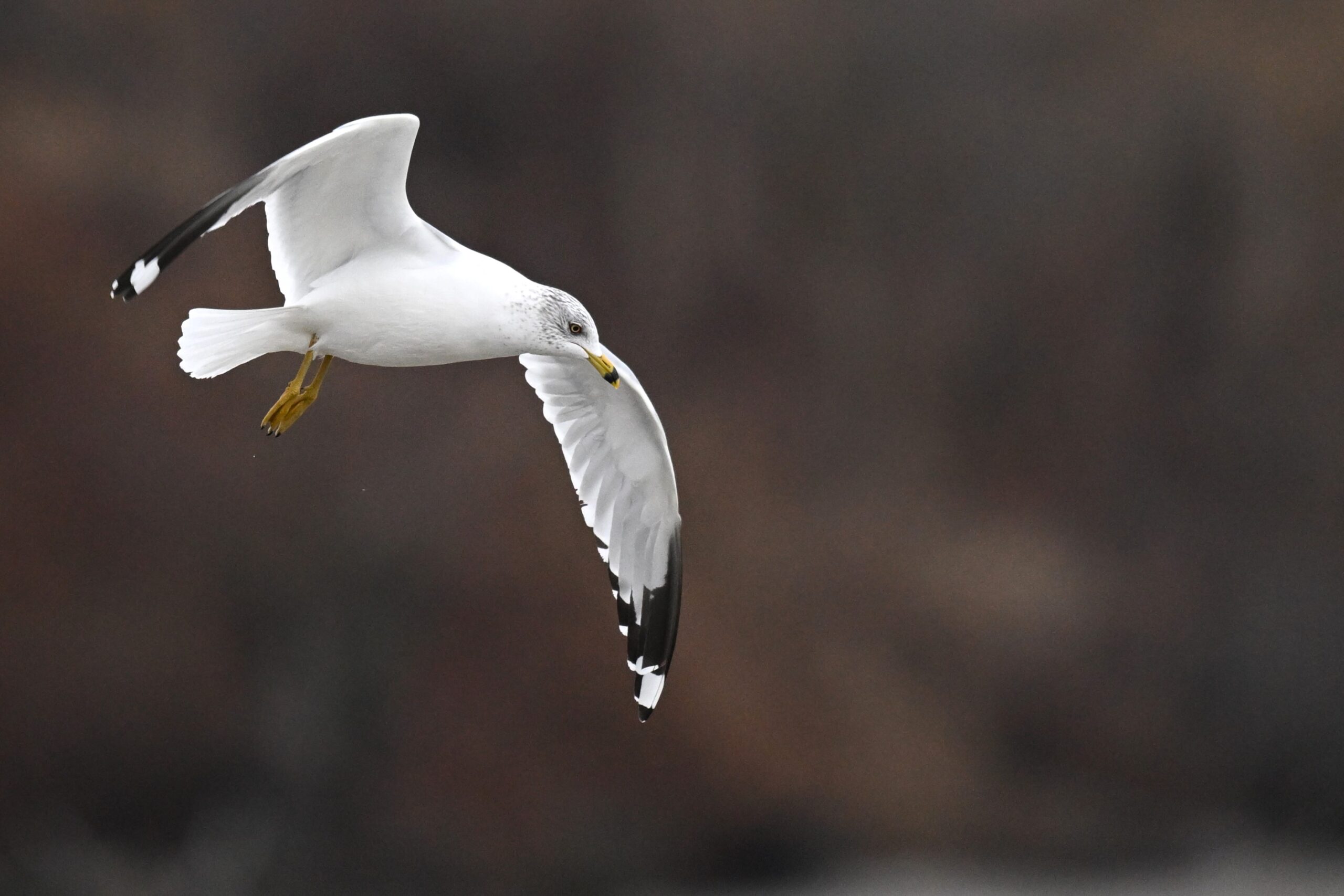
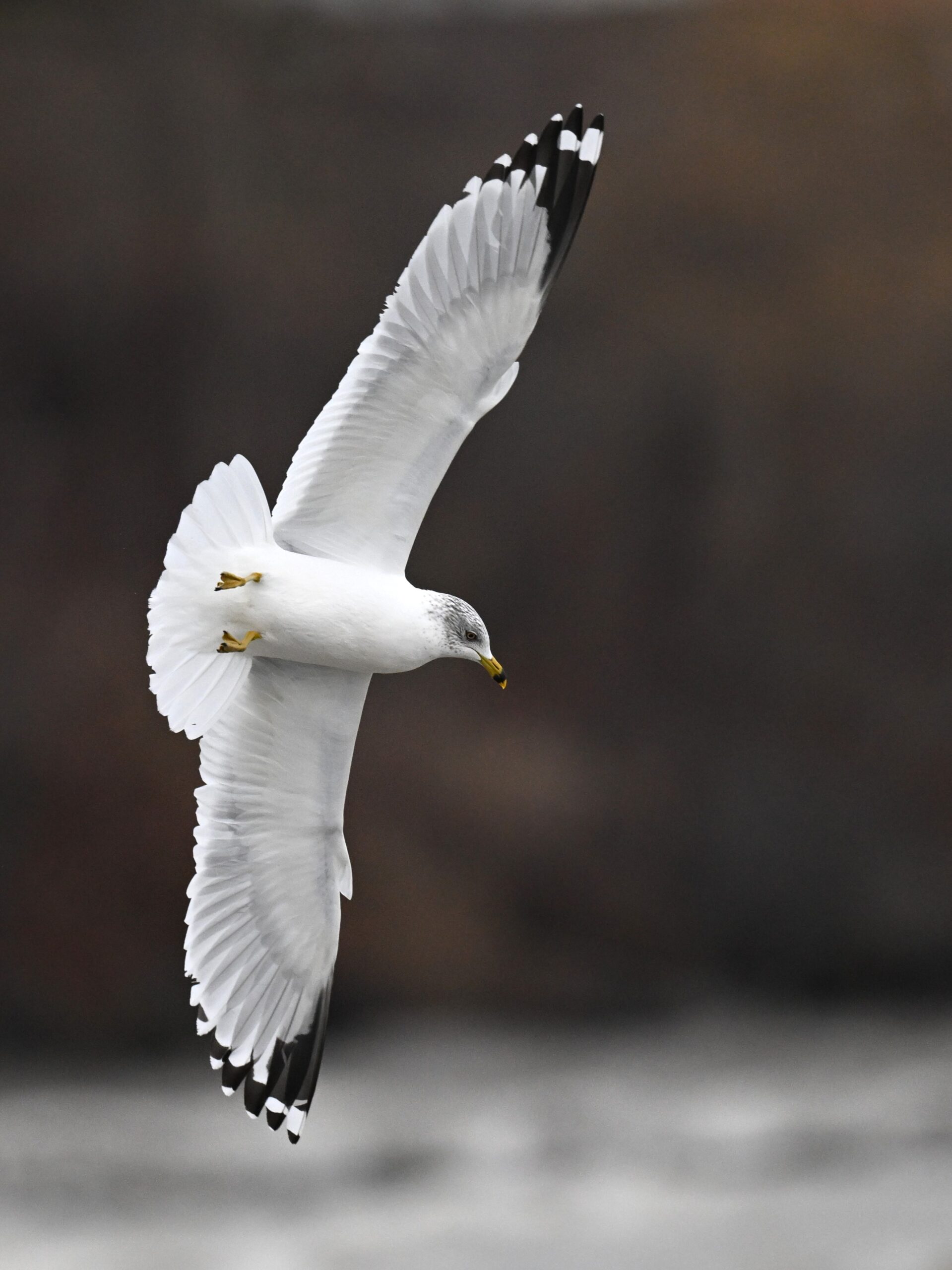
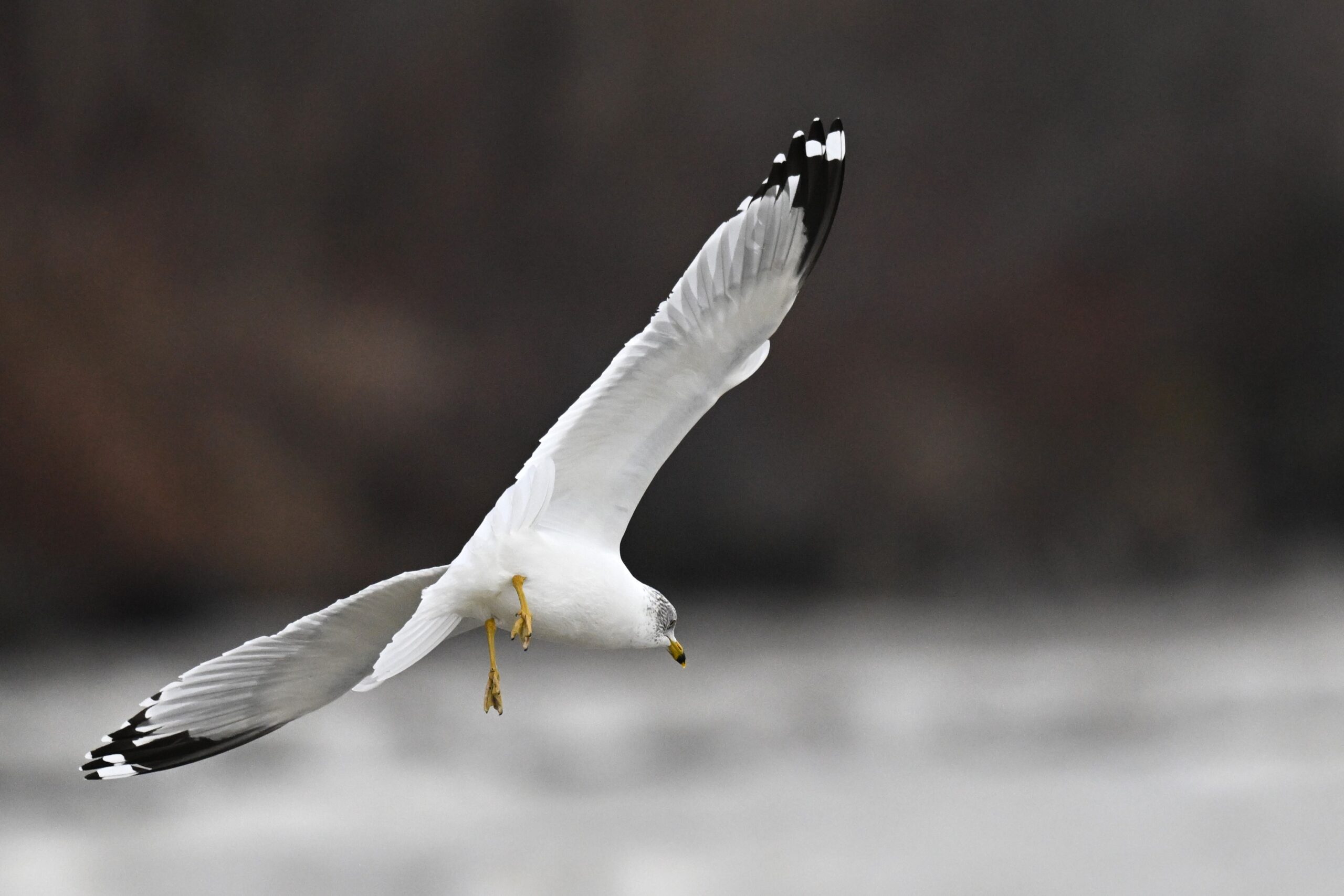
Next up, fun shots of a Ring-billed Gull obtaining fish lunch, off South Pier, across from Presque Isle State Park:
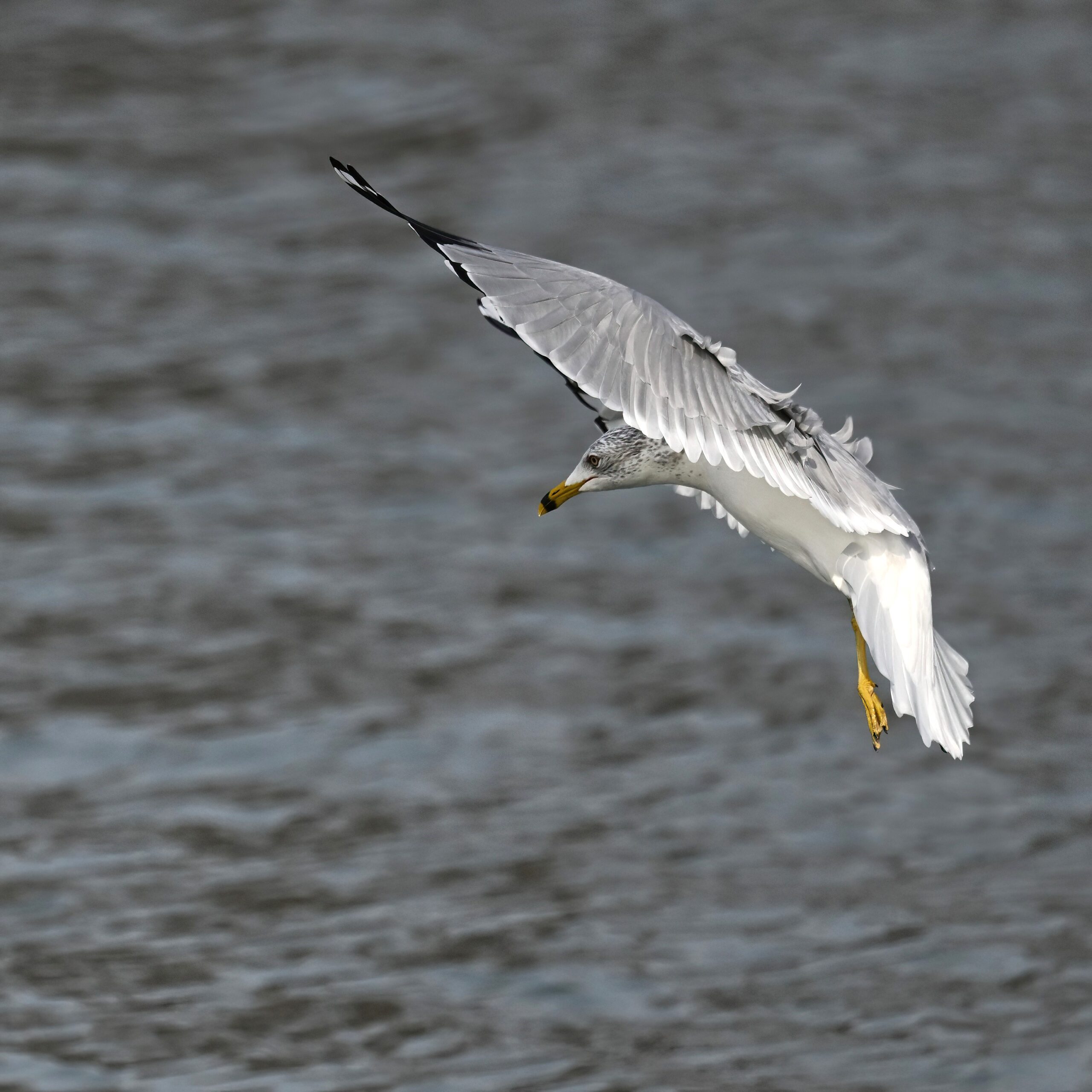
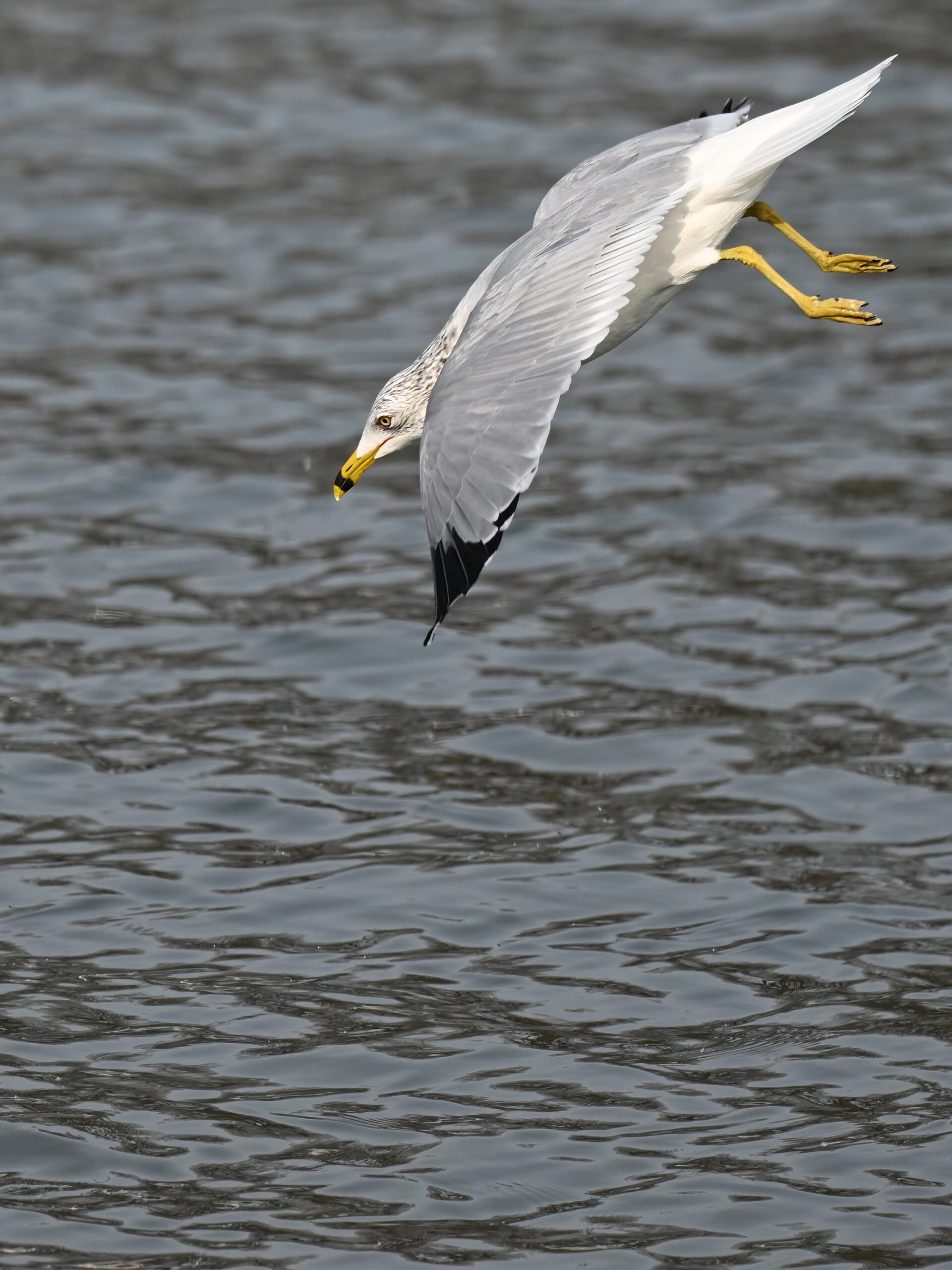
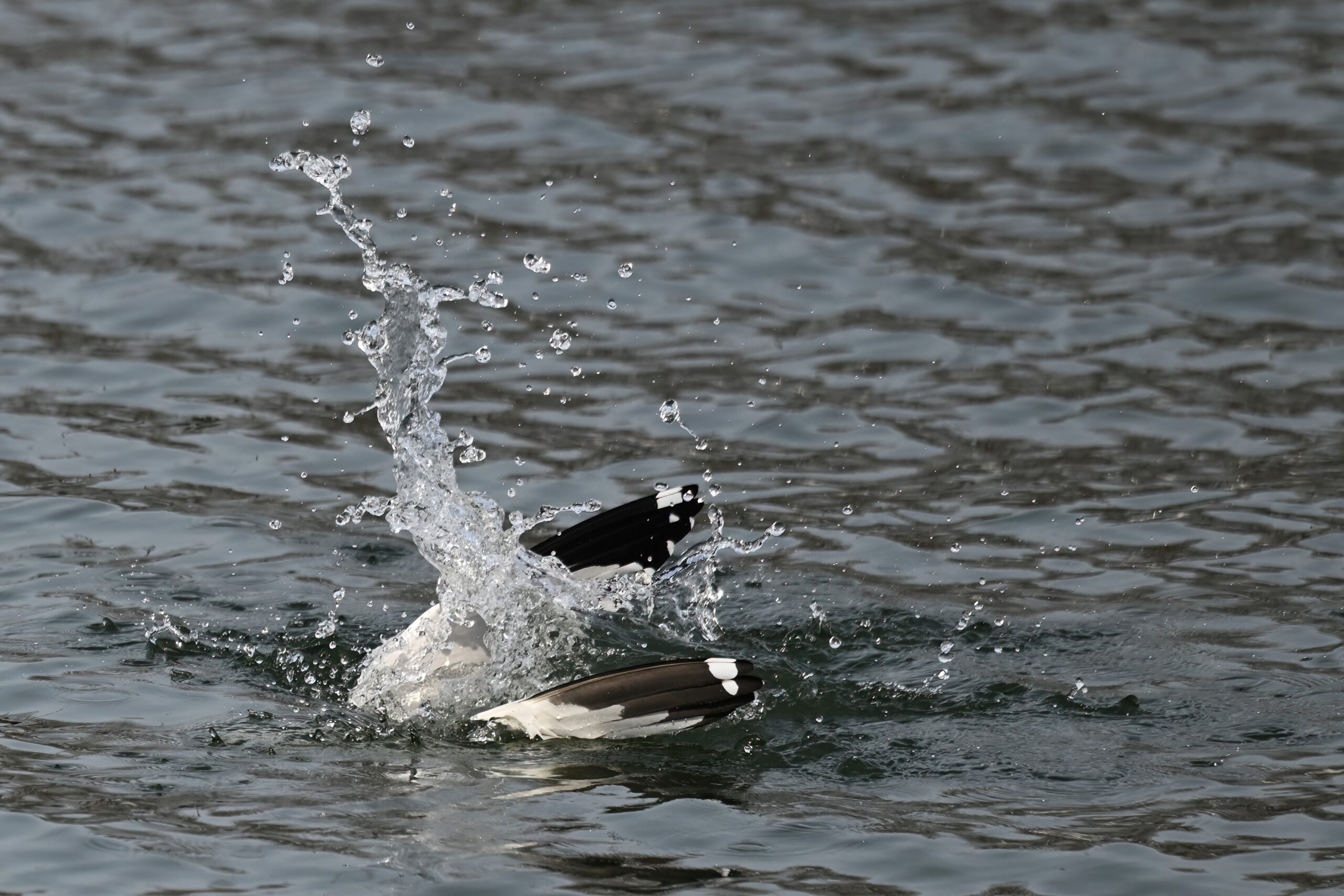
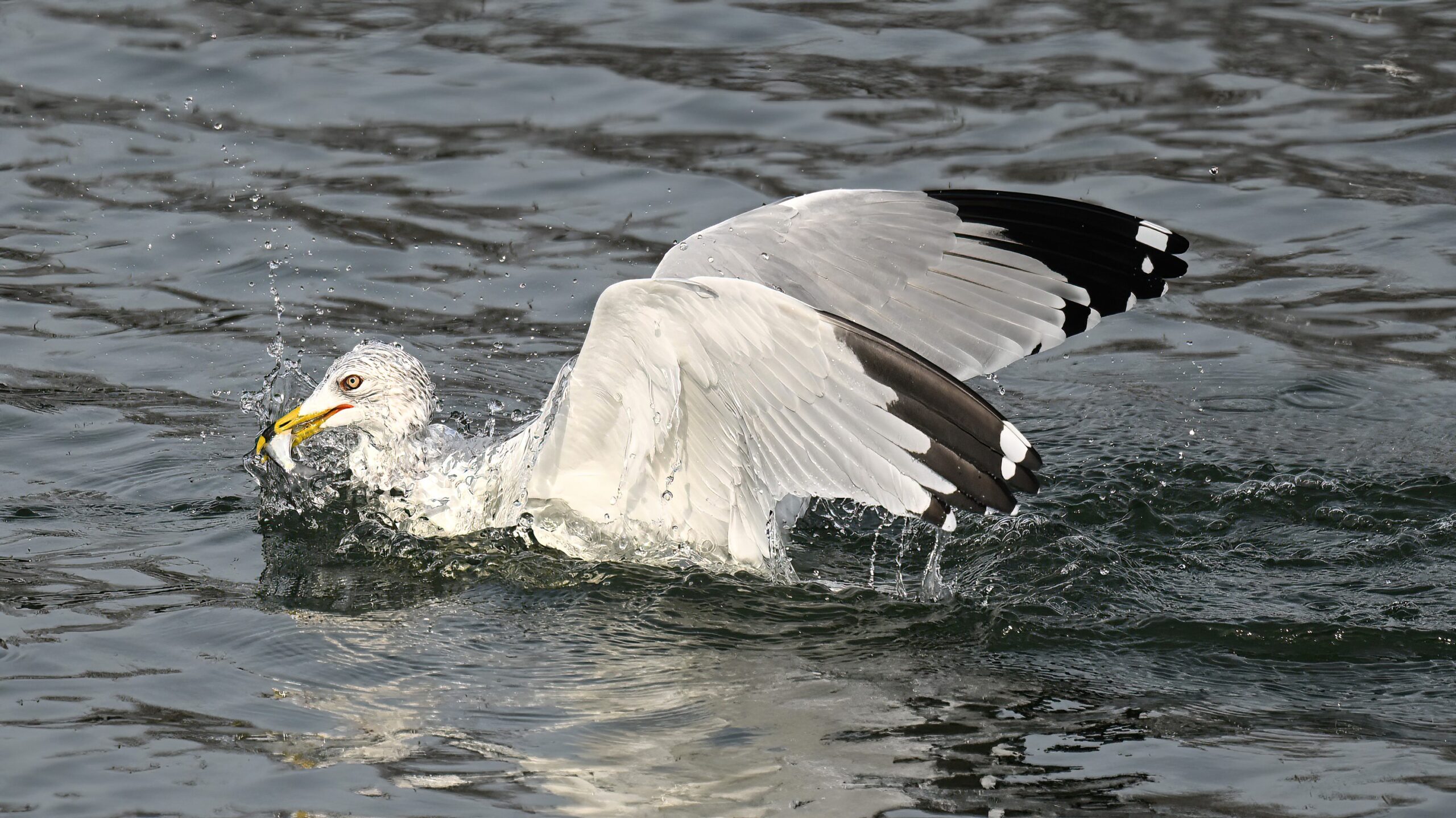
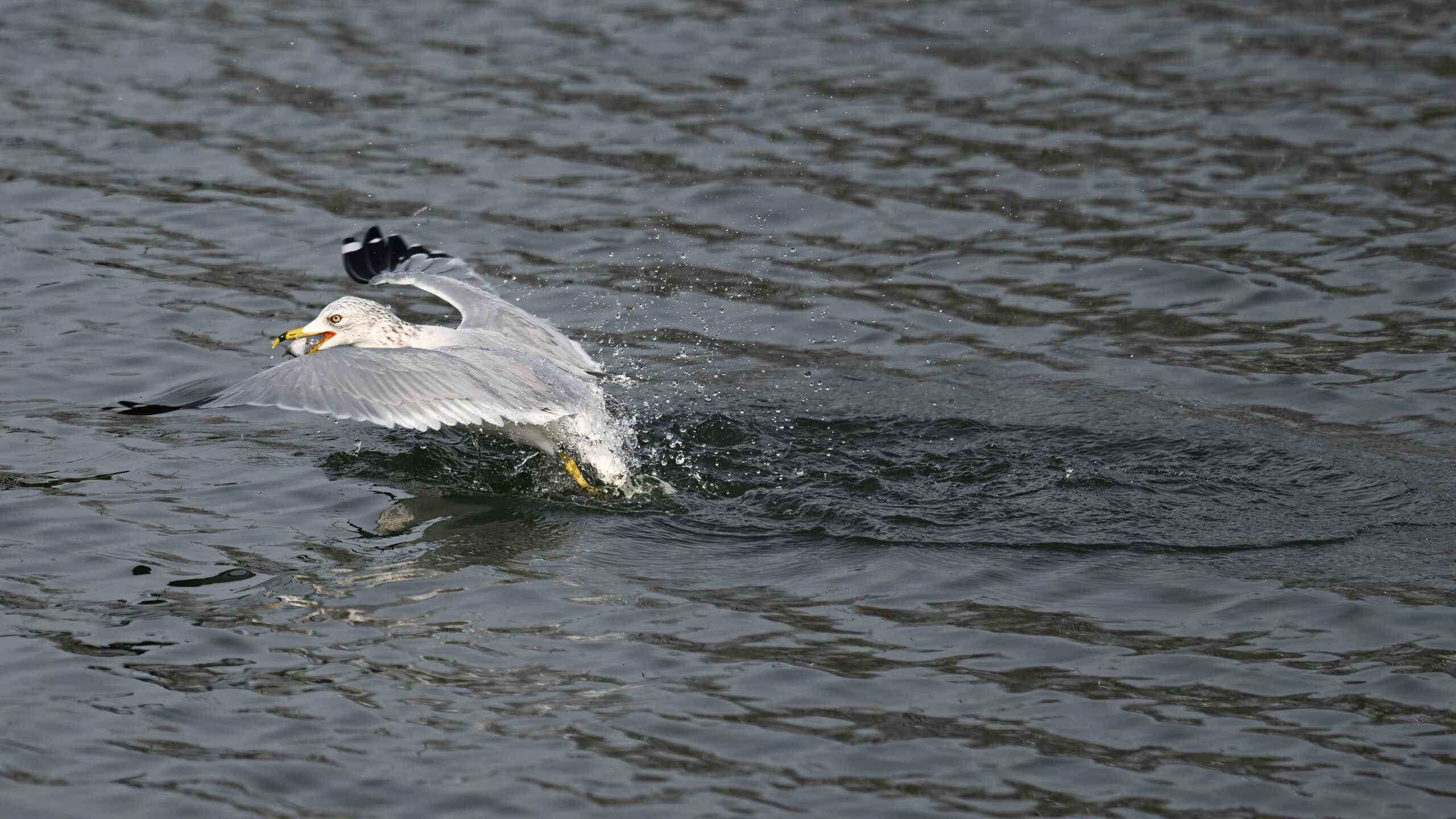
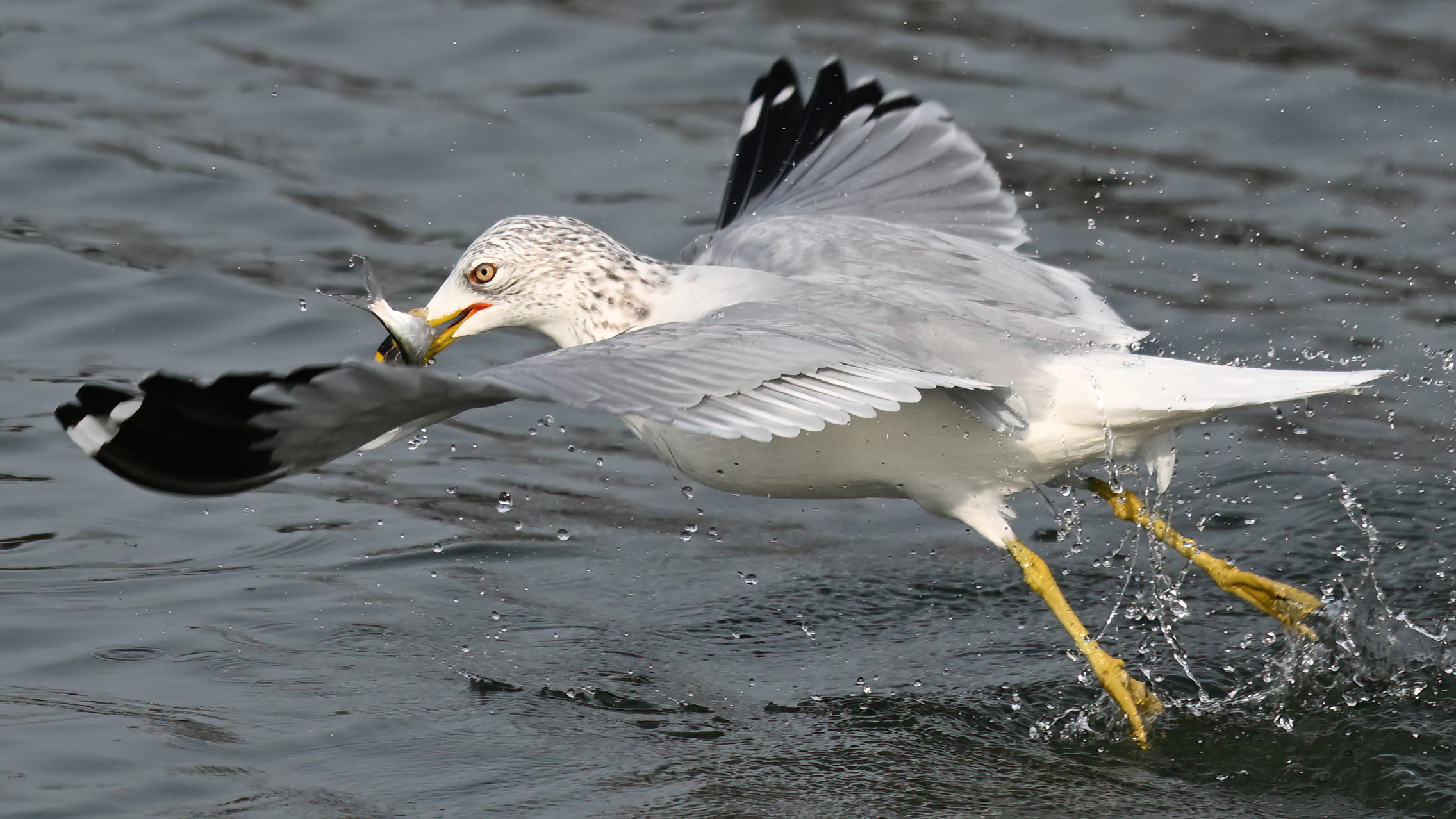
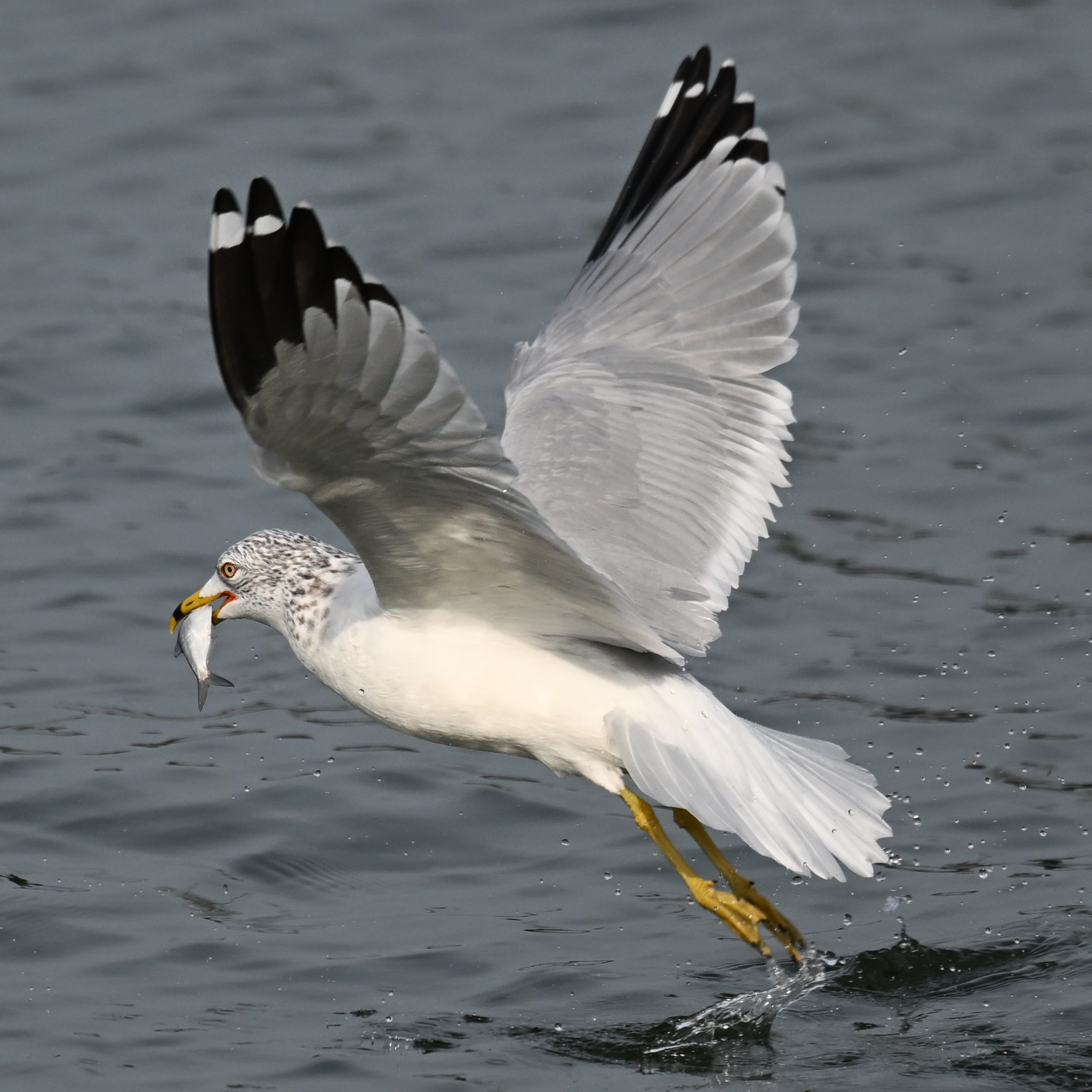
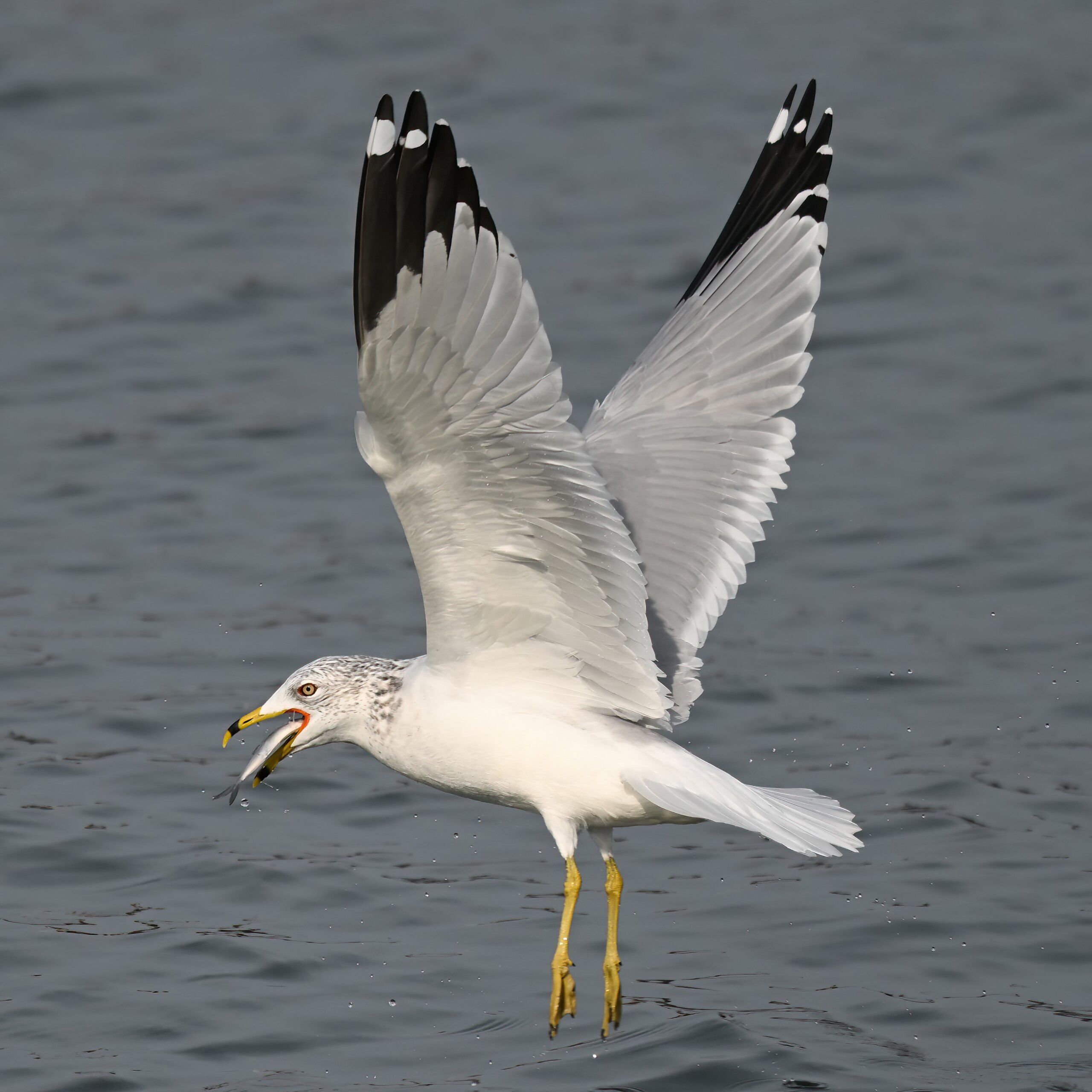
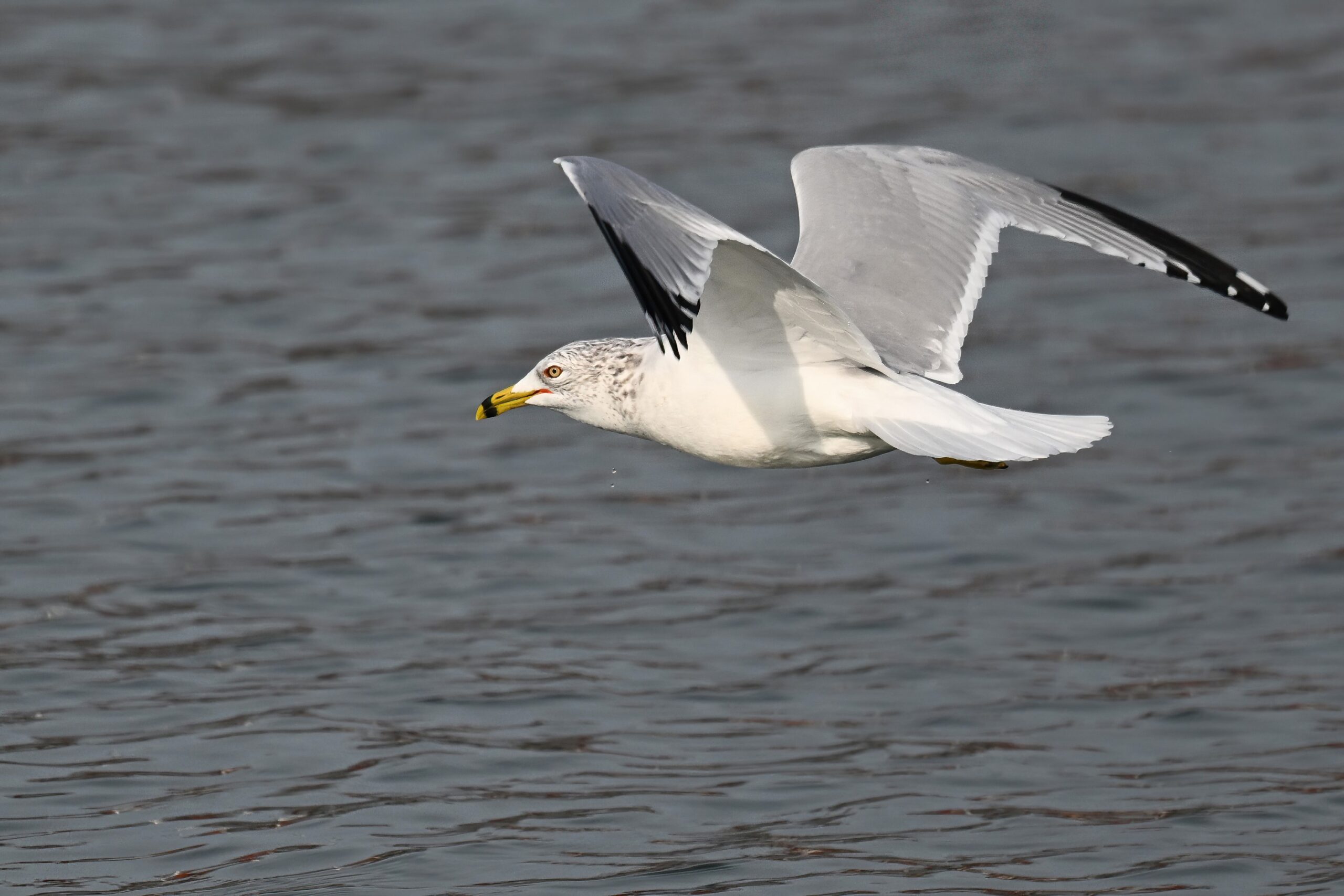
Concluding with a bird ID note, BirdingPI.com’s been seeing isolated, dark-winged gulls on Lake Erie between Gull Point and the mainland (e.g., off East Ave boat ramp) for a while now. Finally got a couple closer shots to confirm this as Greater Black-backed Gull!
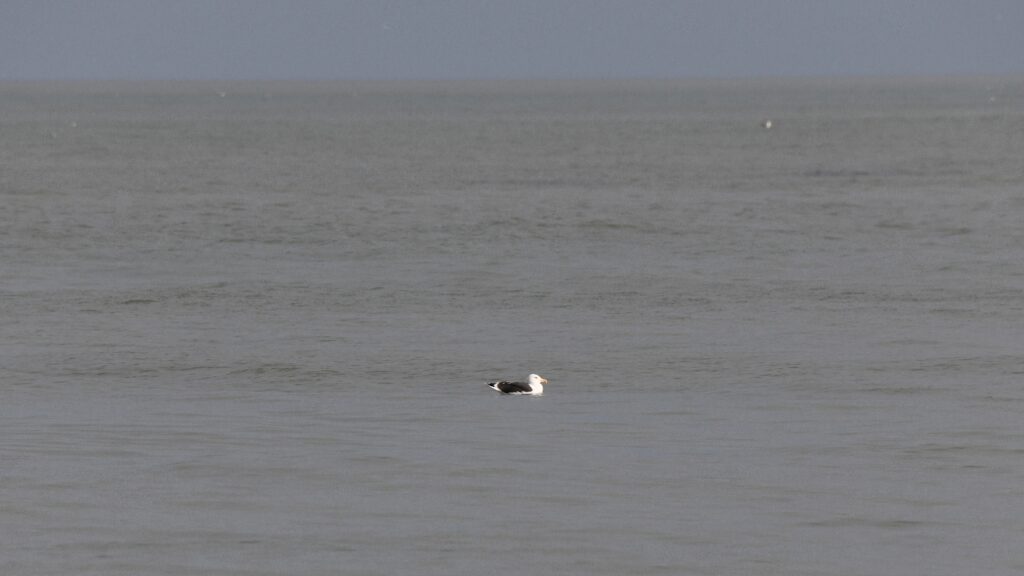
Note the relatively large size, dark wing color, stark white head/chest, and rounded bill:
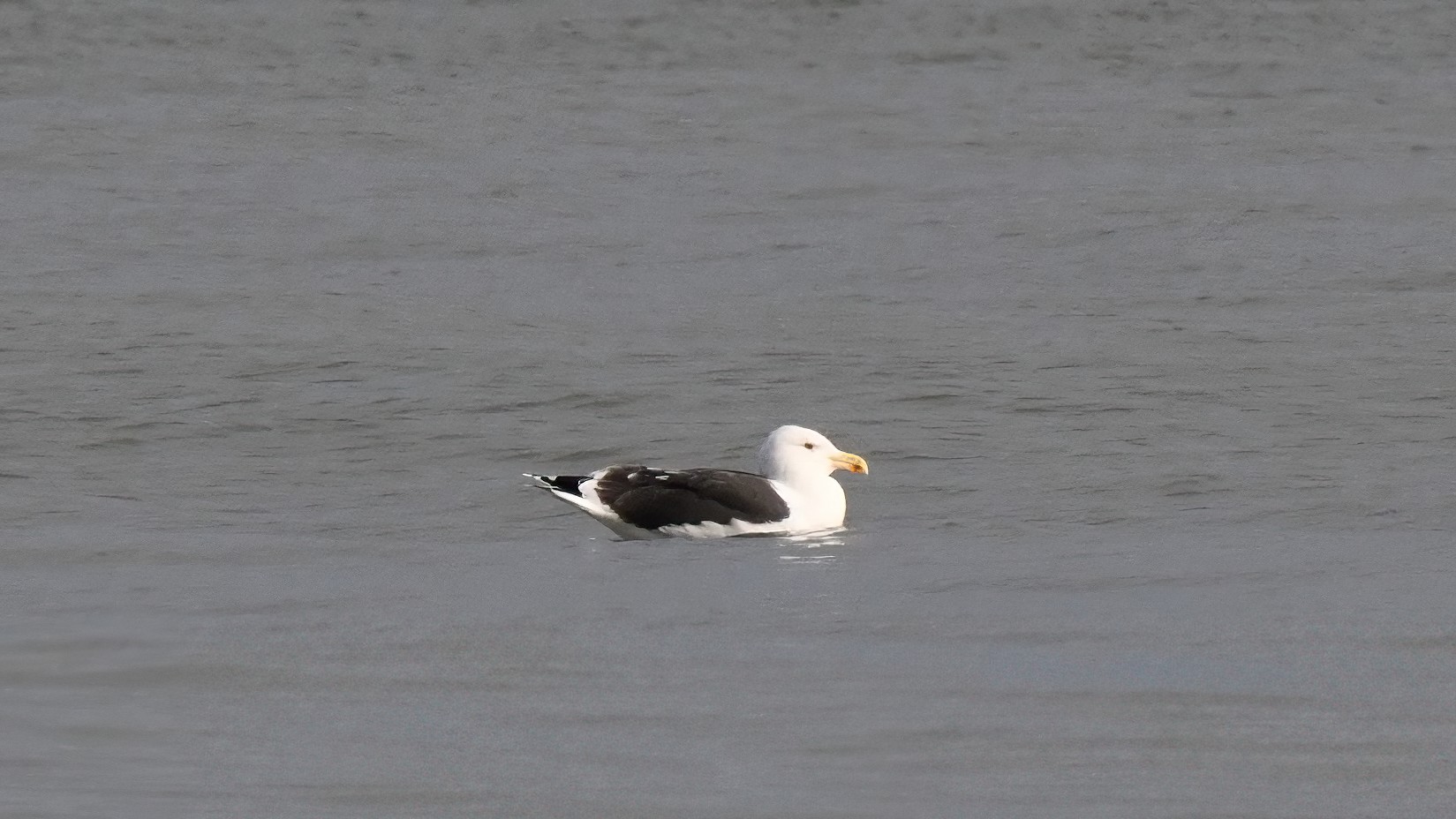
Dateline: 10 January 2023.
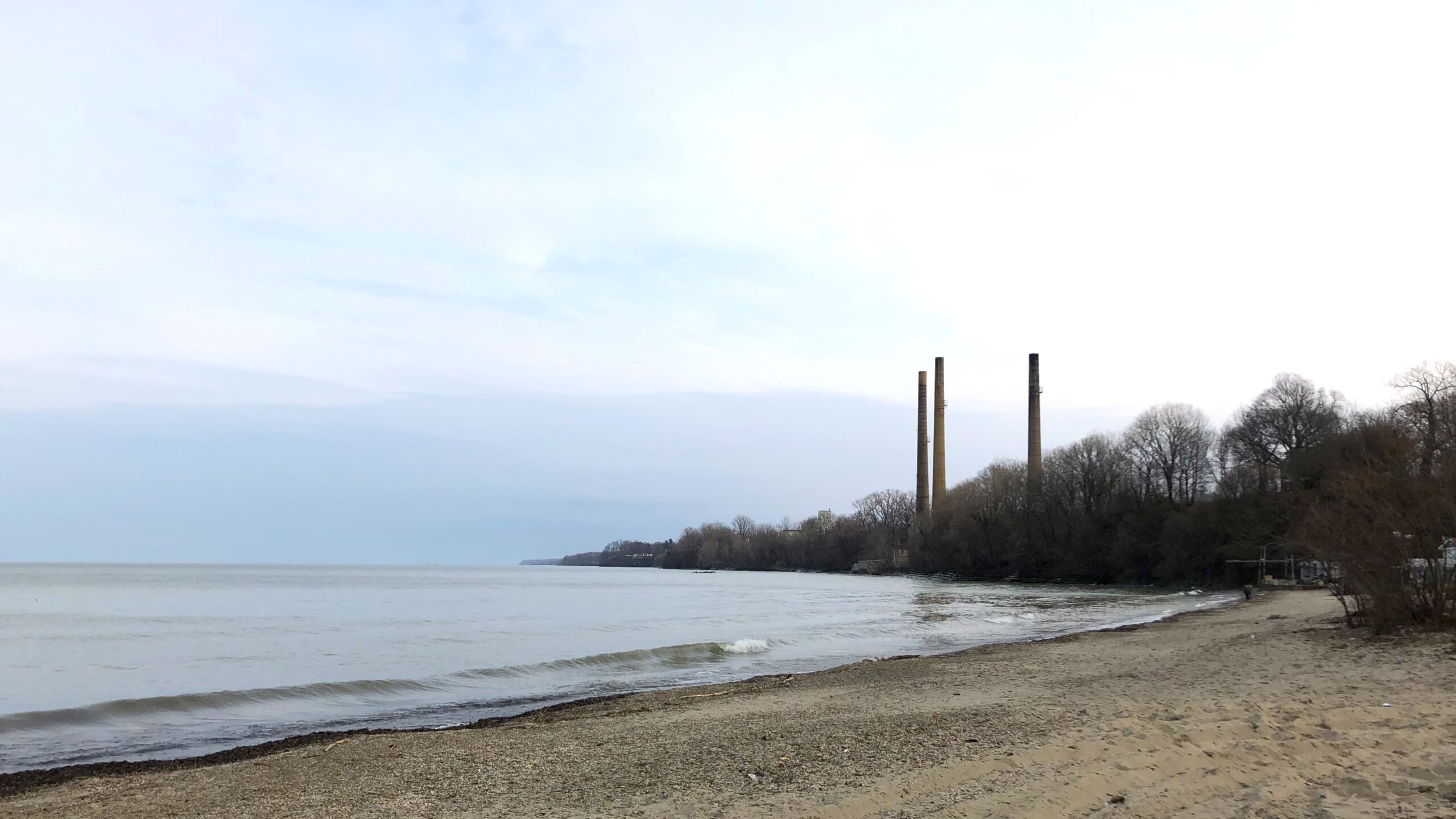
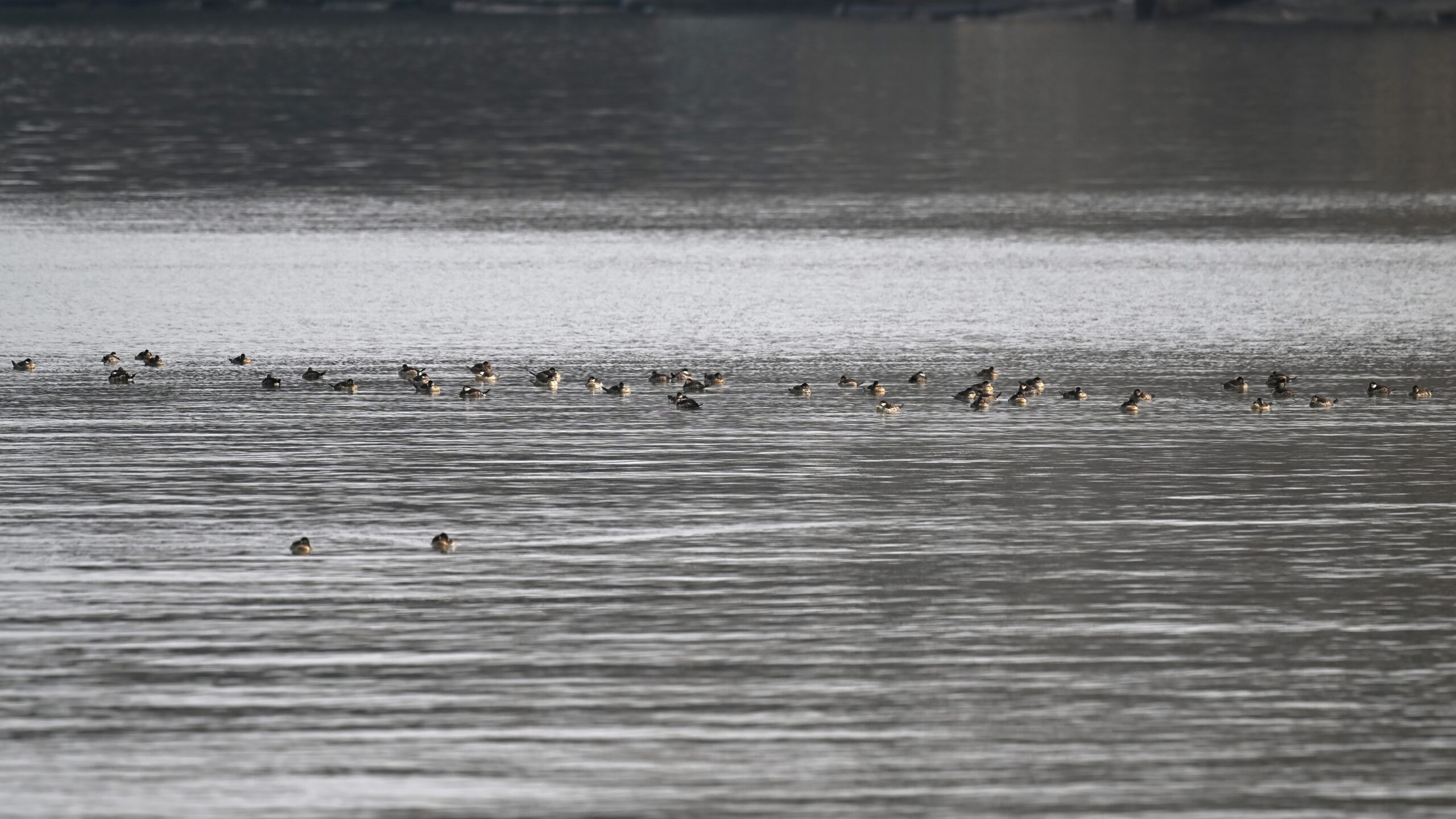
Tuesday, cool but mostly sunny; nice to see the sun for once. Time for a quick lunchtime stop at the East Avenue boat ramp and beach (Erie, PA), which yielded a sizeable flock of amazing Ruddy Duck!
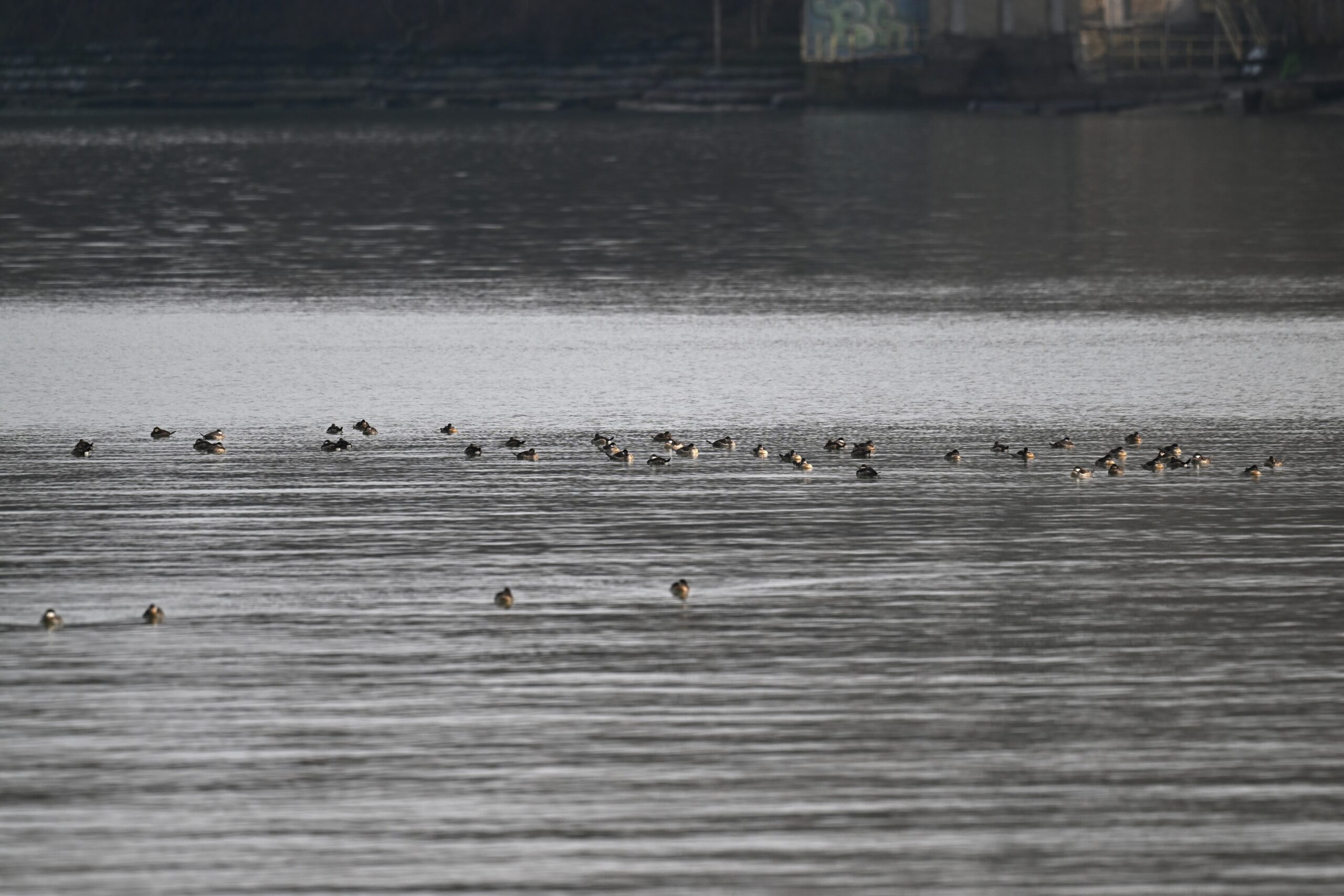
Not a common sighting, hence the amazement. BirdingPI.com’s last official sighting was a couple years ago, with several spotted flying over Presque Isle Bay.
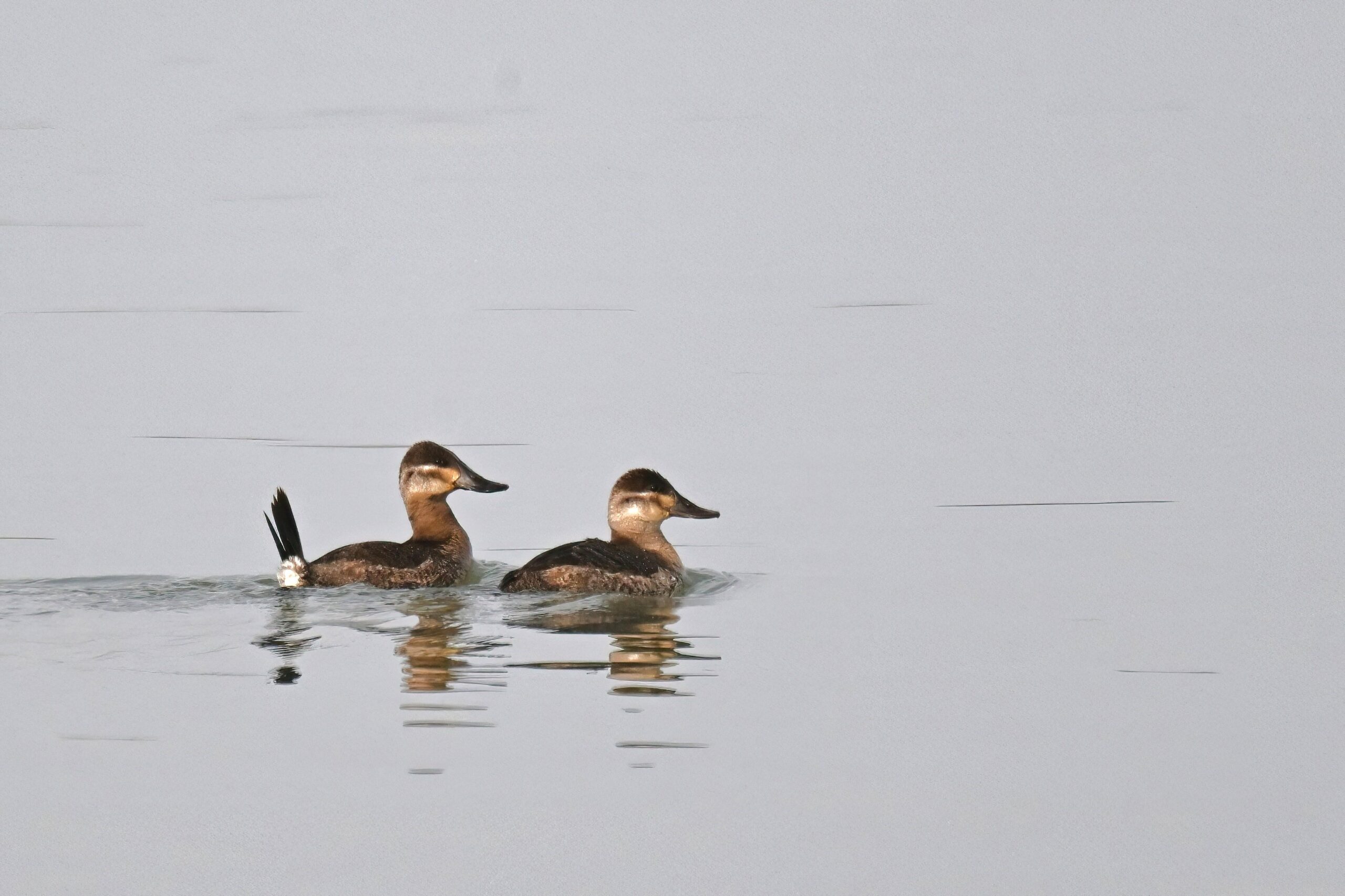
As night feeders, most were resting/asleep (see shots above), but several were actively foraging (diving).
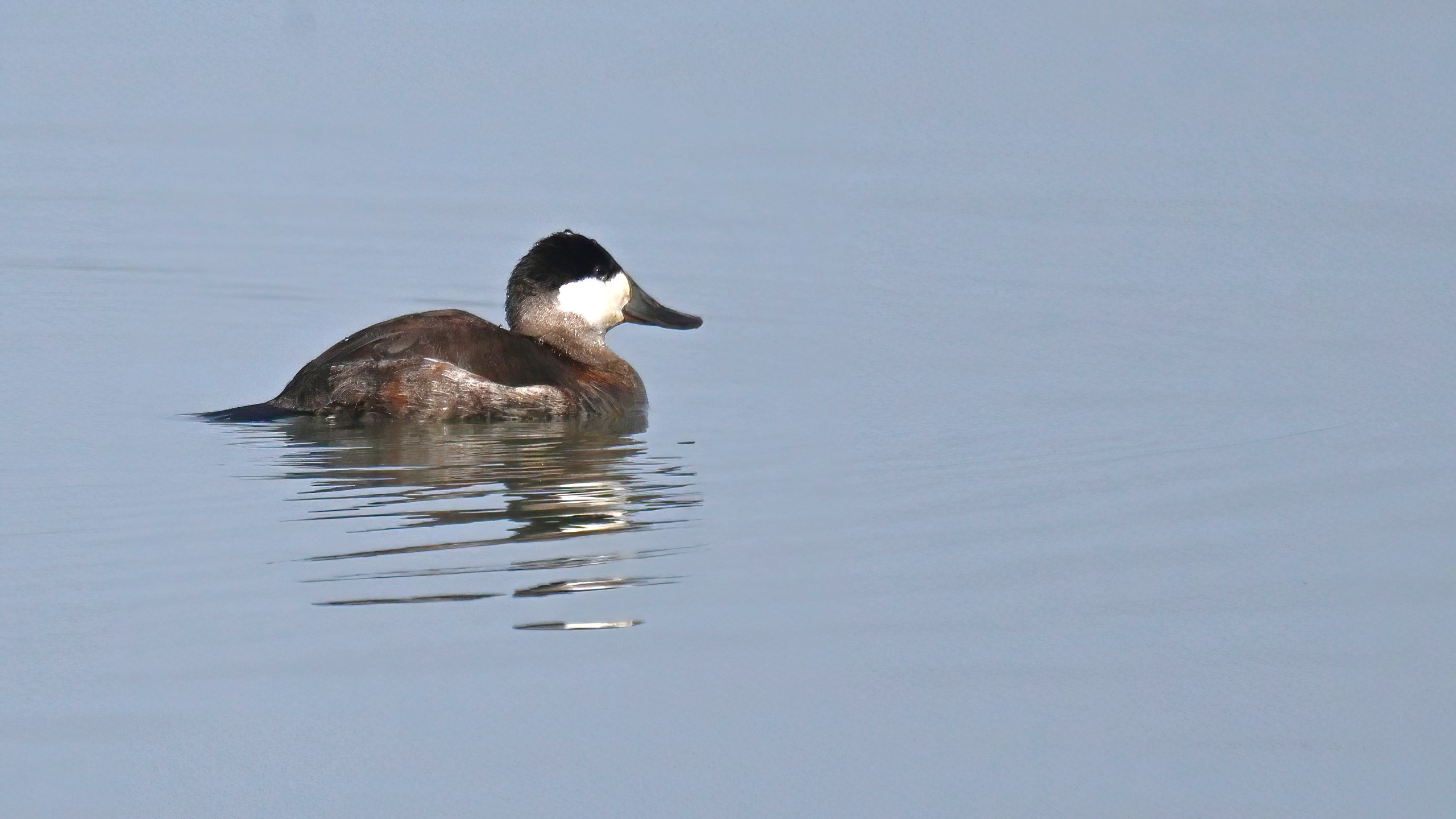
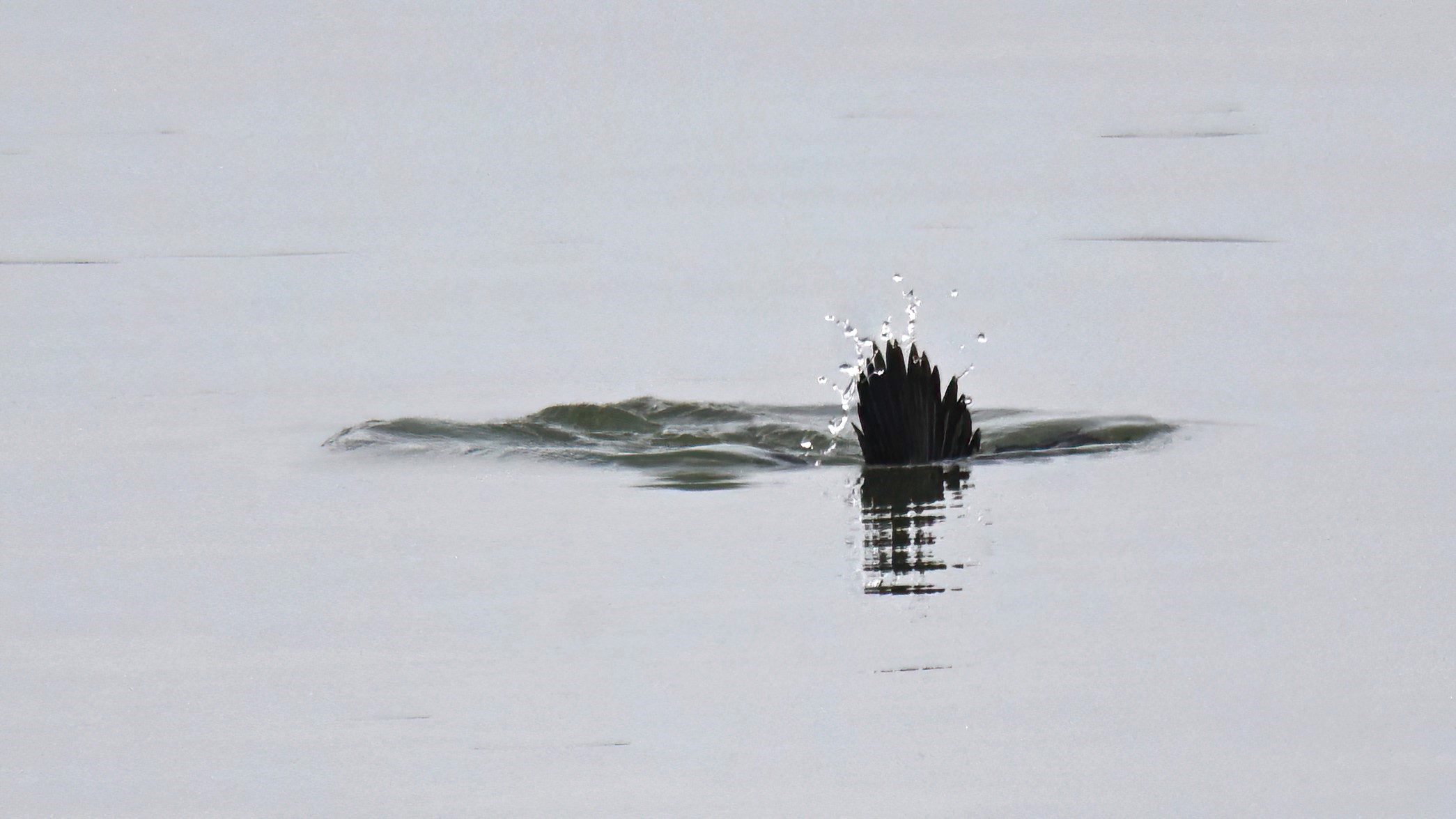
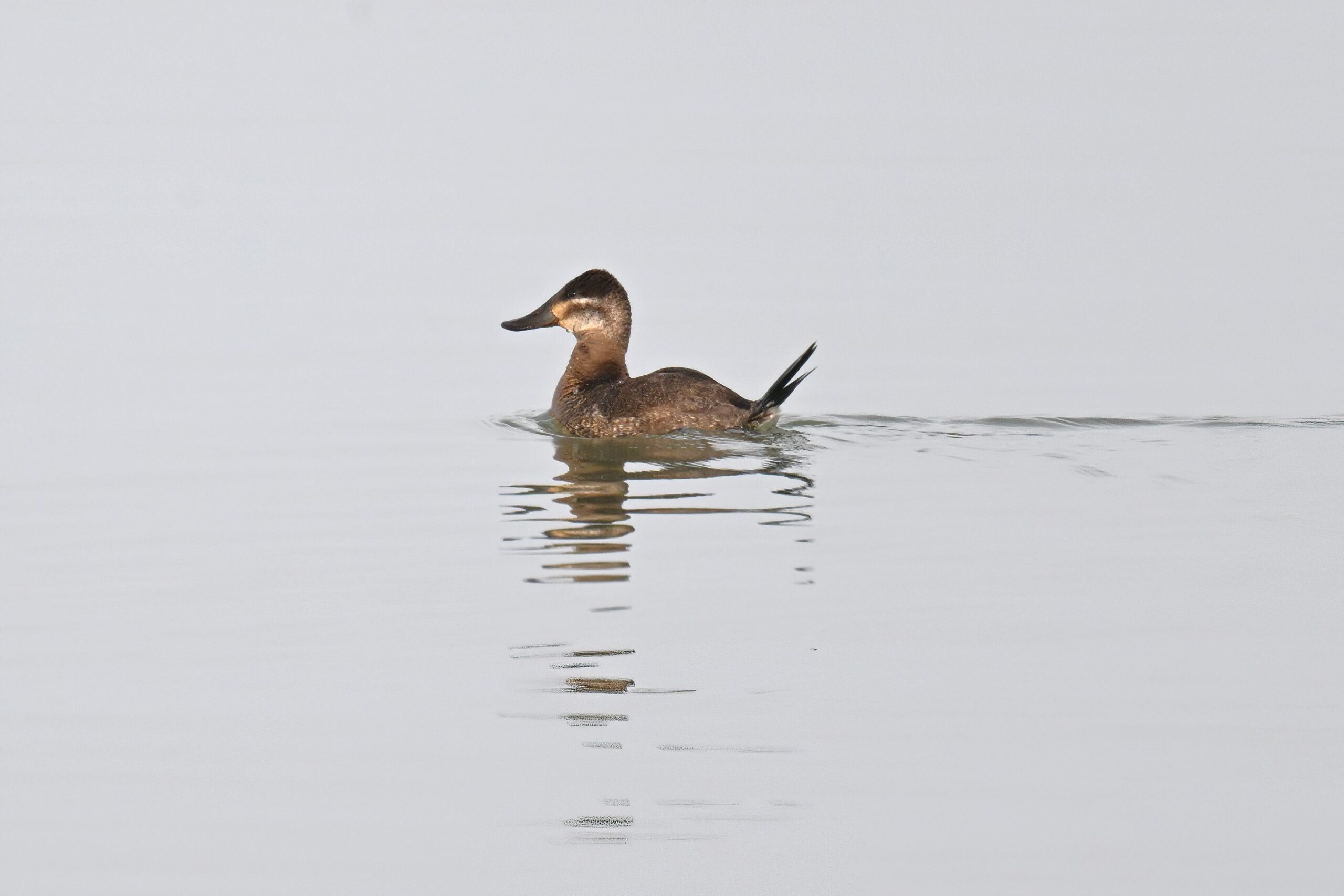
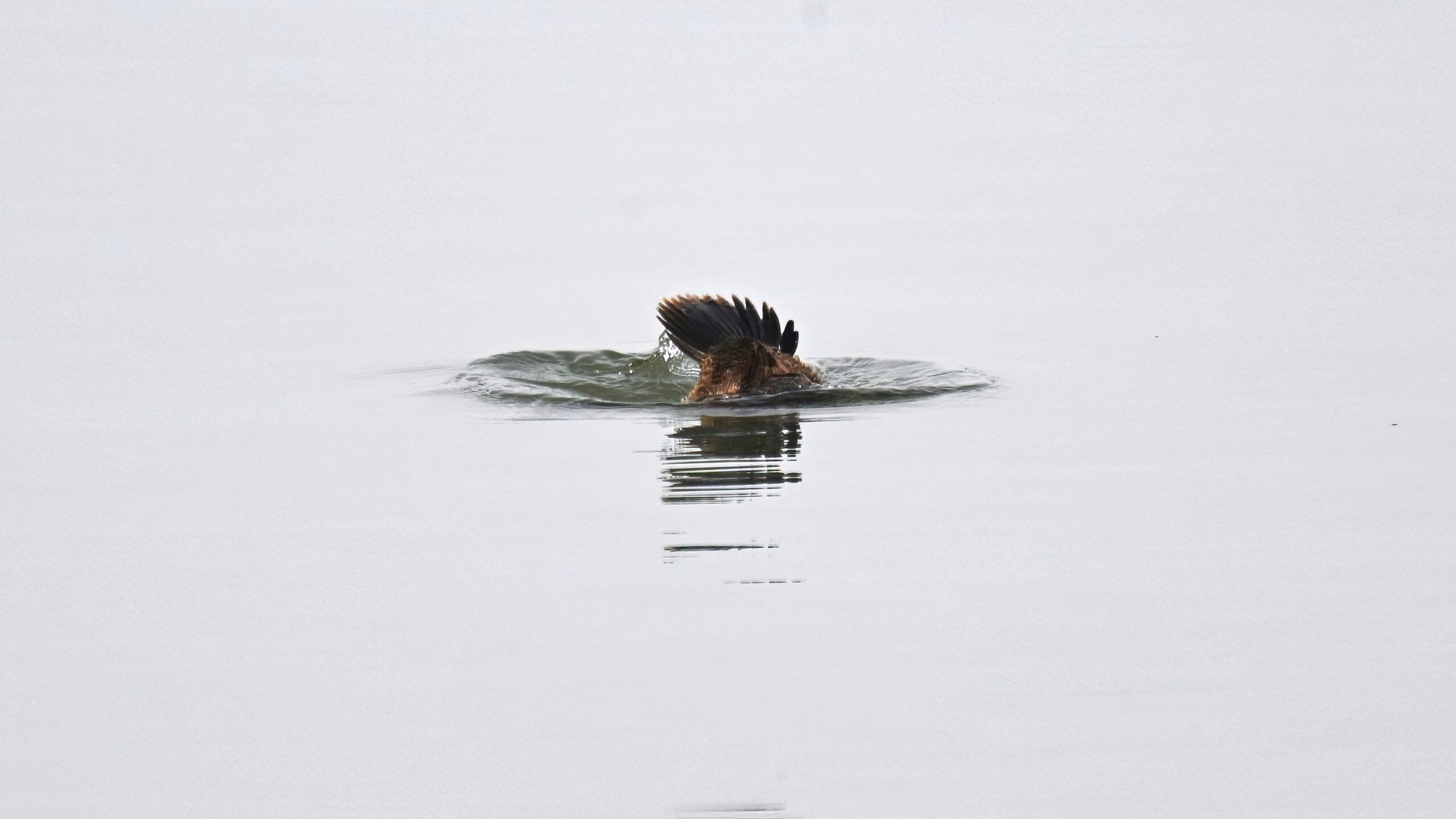
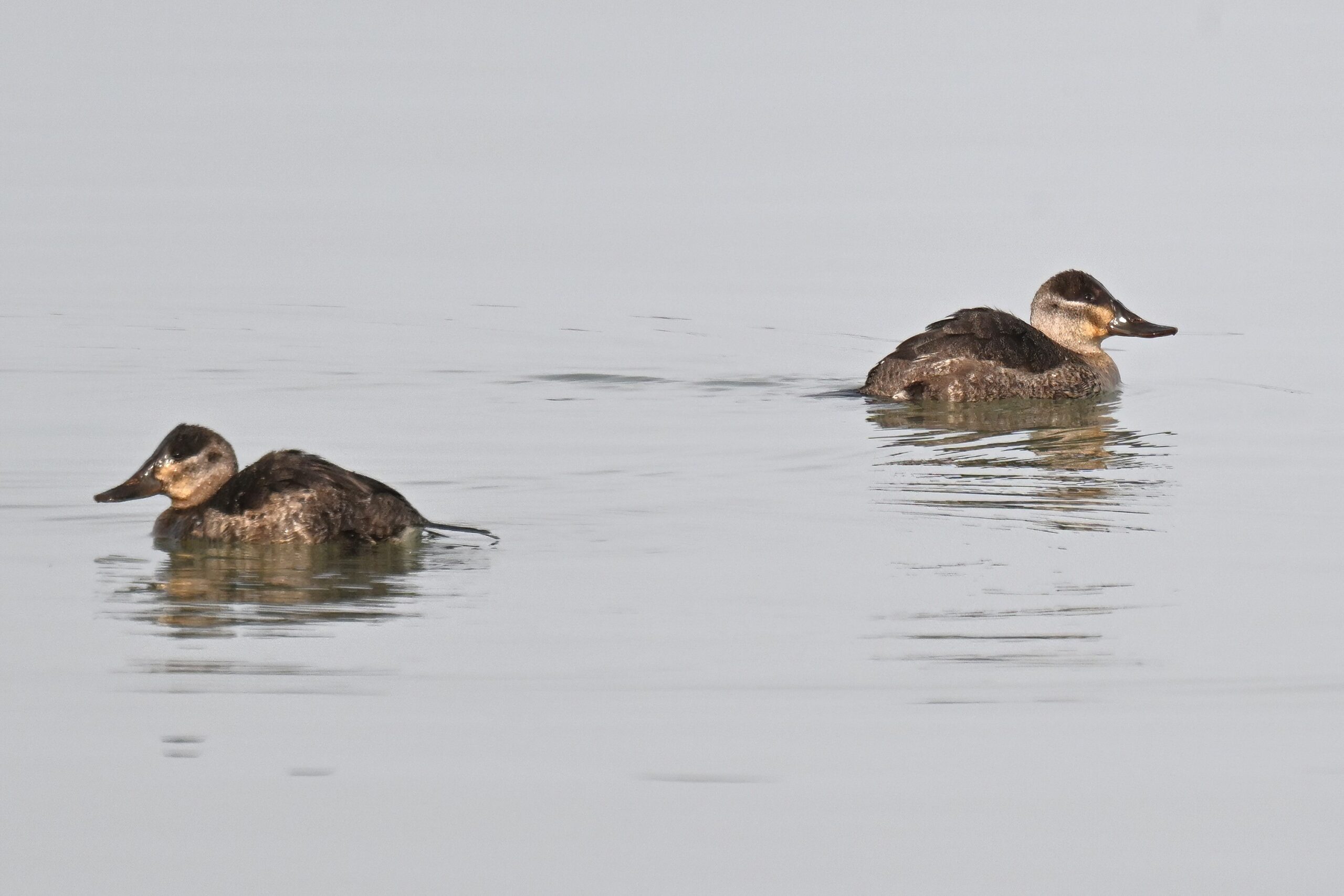
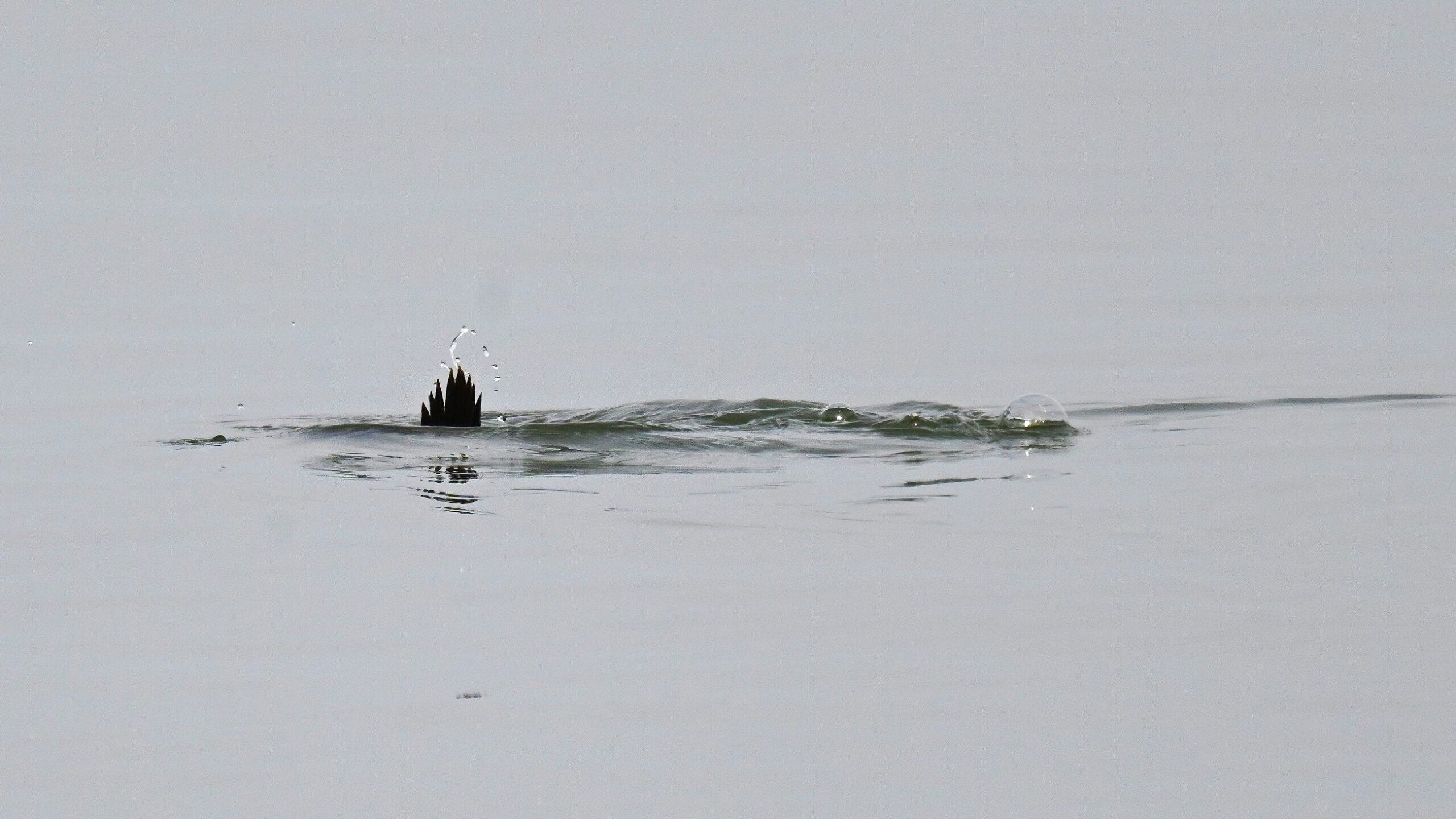
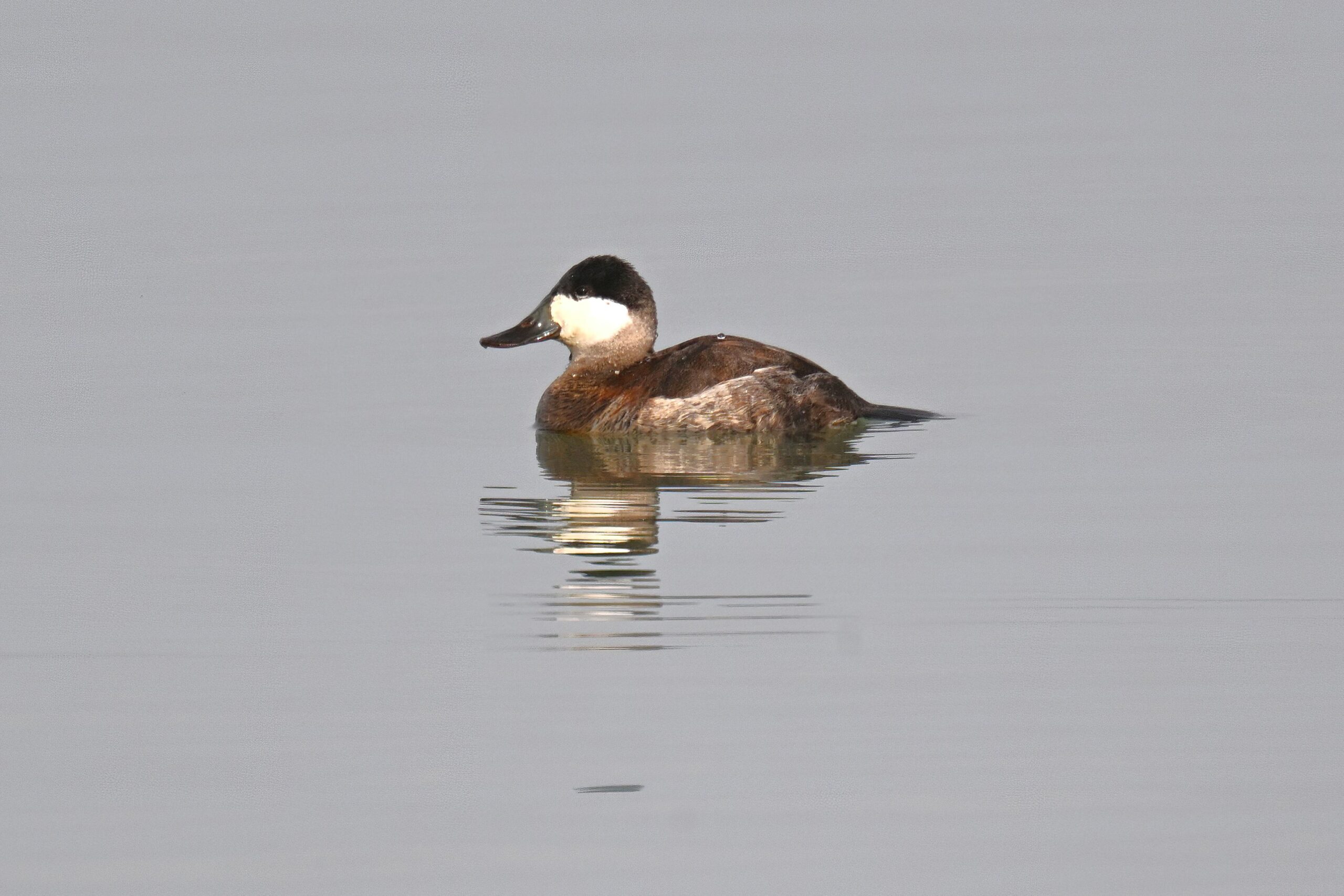
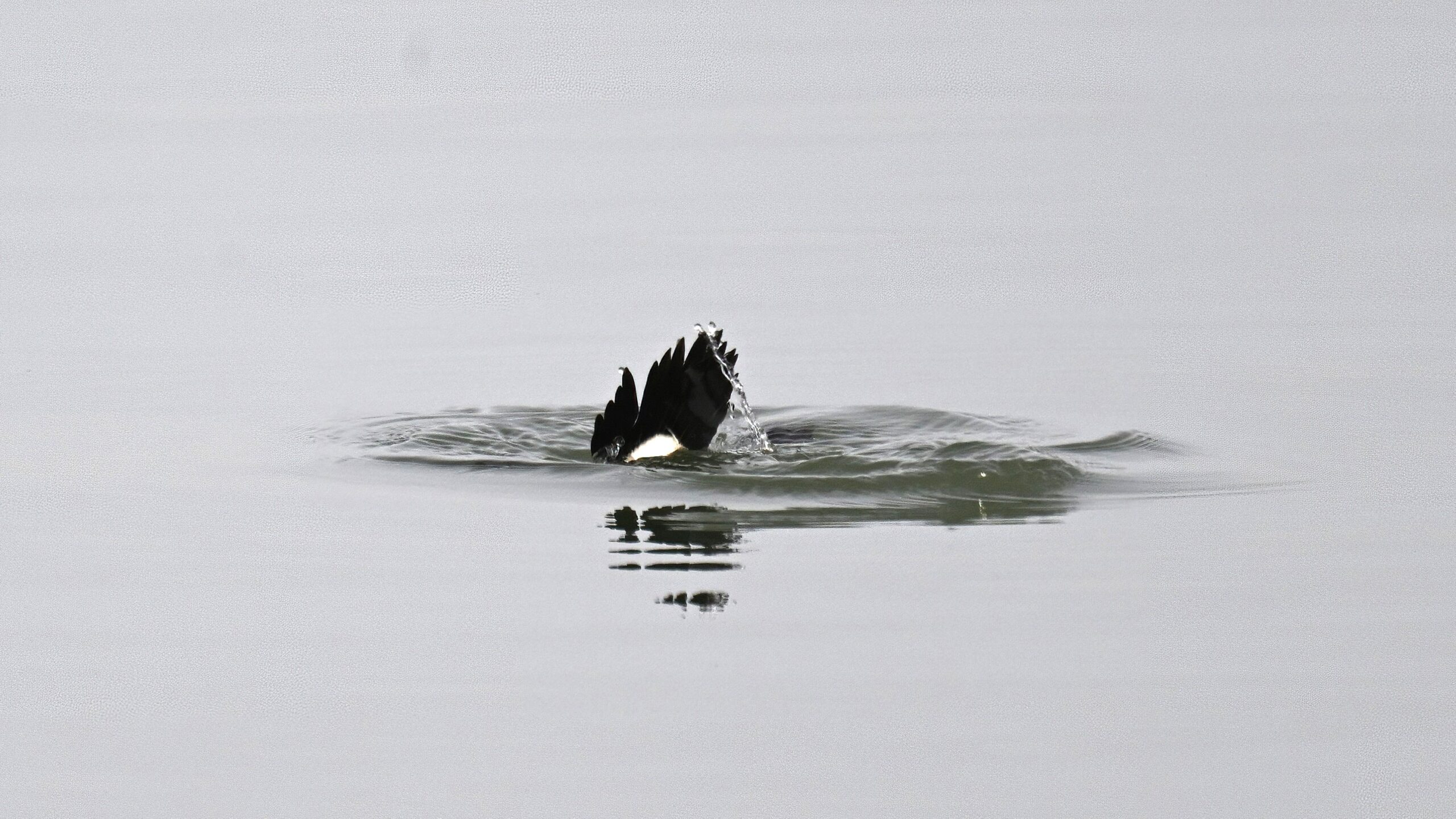
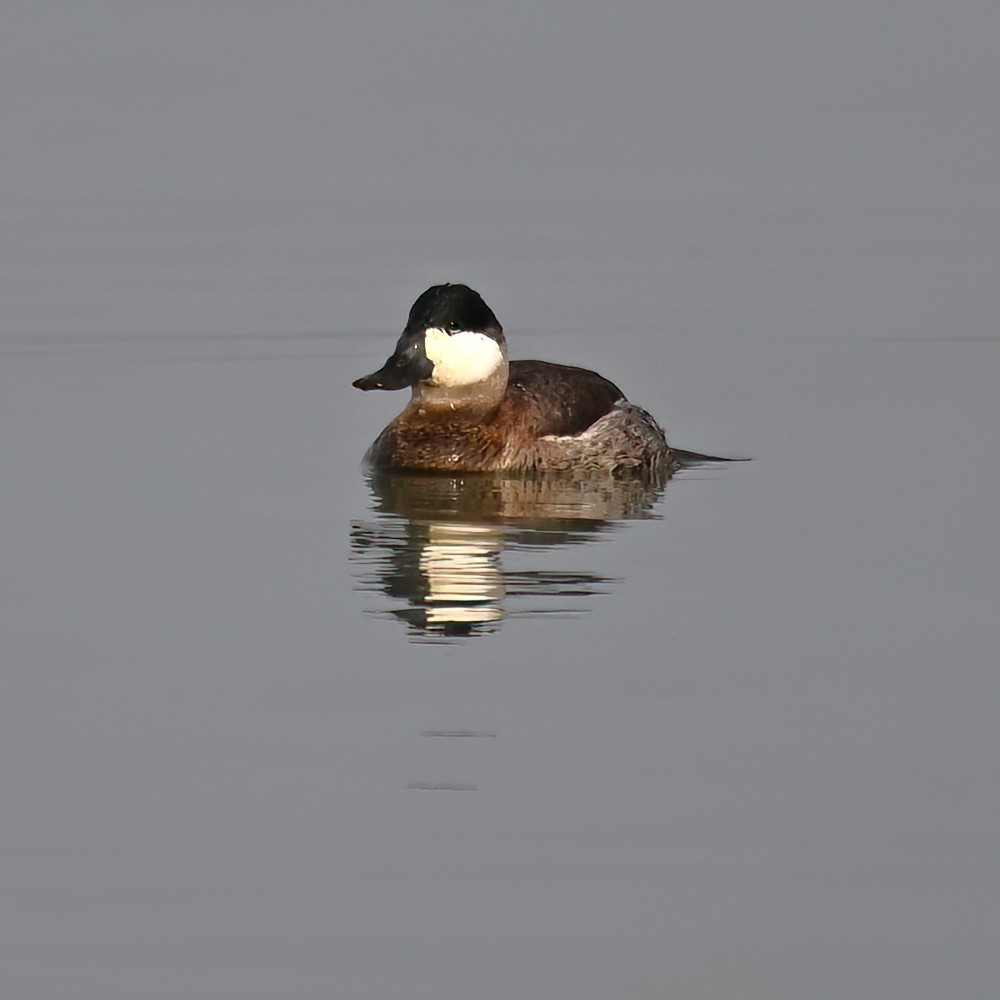
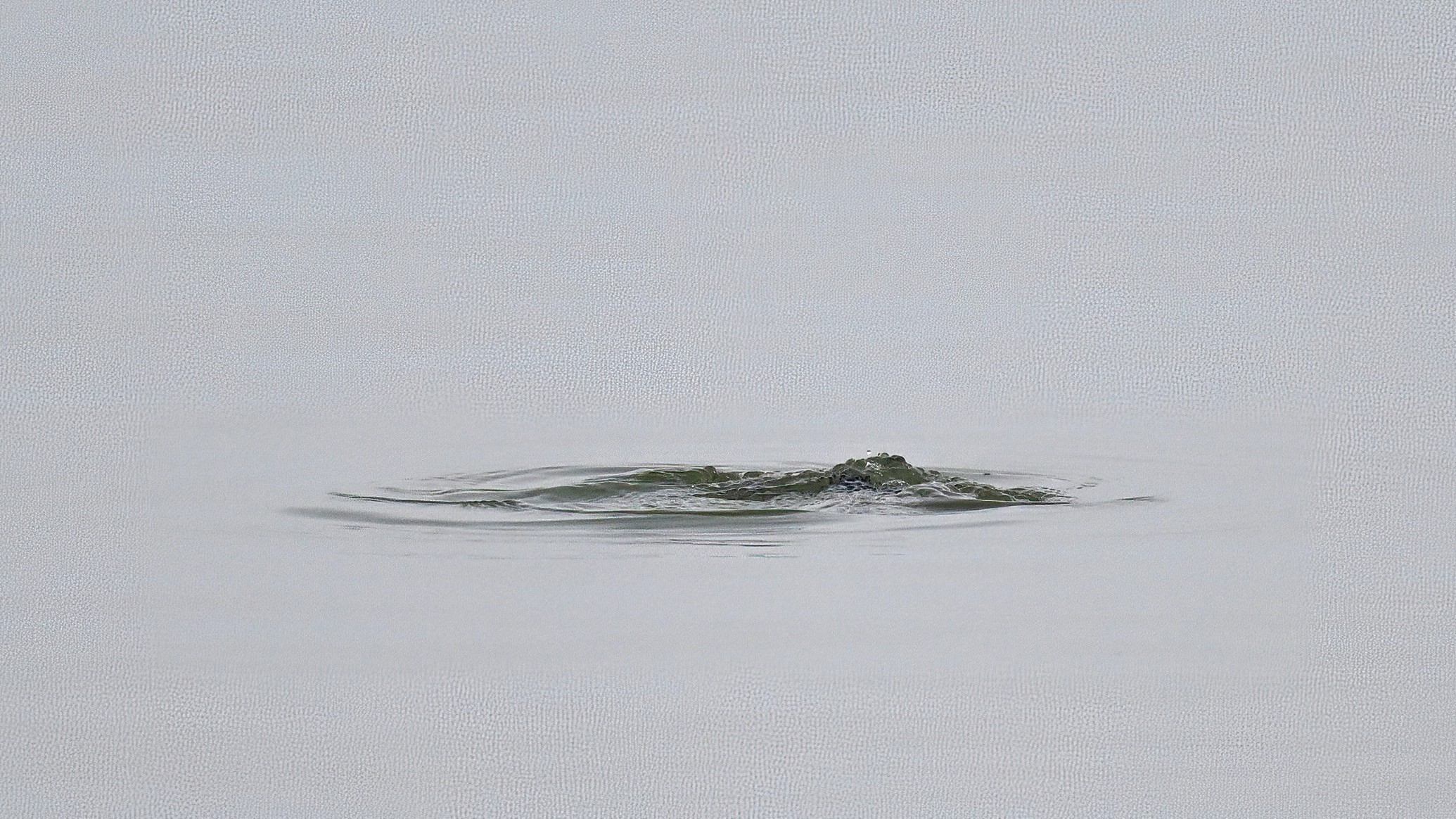
Directions to East Ave boat ramp: navigate to East Avenue and head north until the pavement ends at the lake.
[Editor’s Note: edited on 17 Jan 2023 to add picture of East Avenue beach, to provide context. Hammermill Paper Co. smoke stacks in background.]